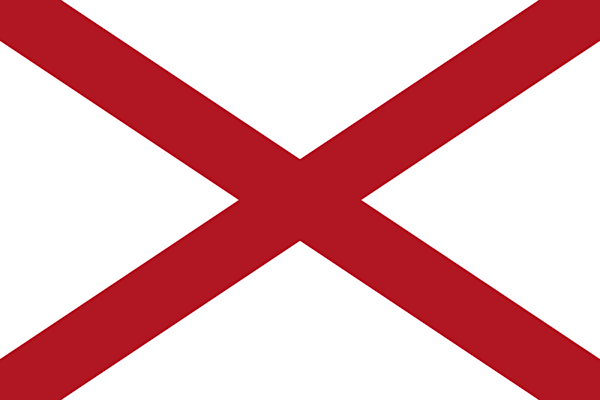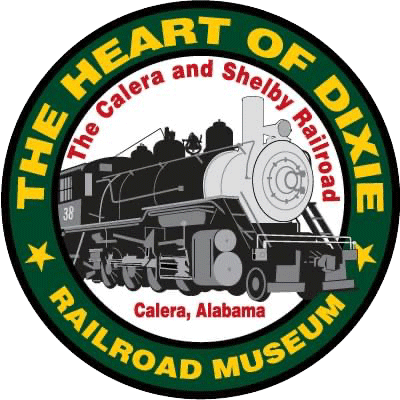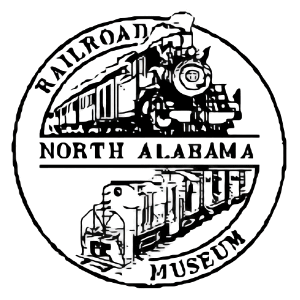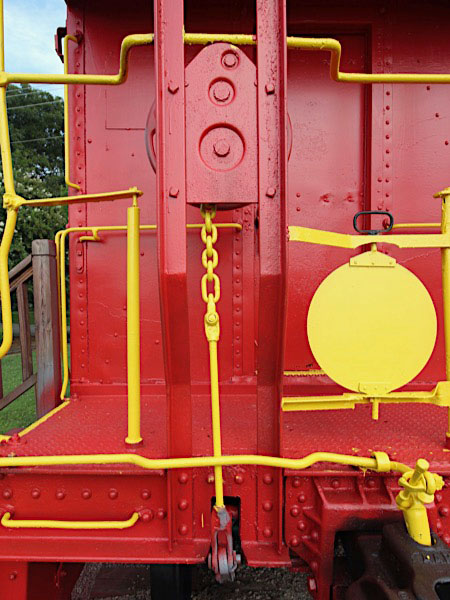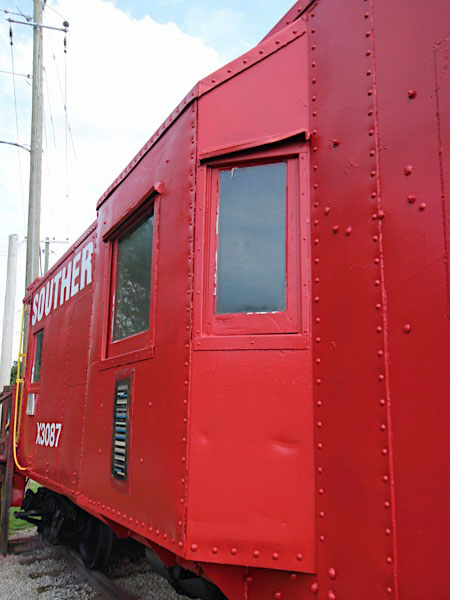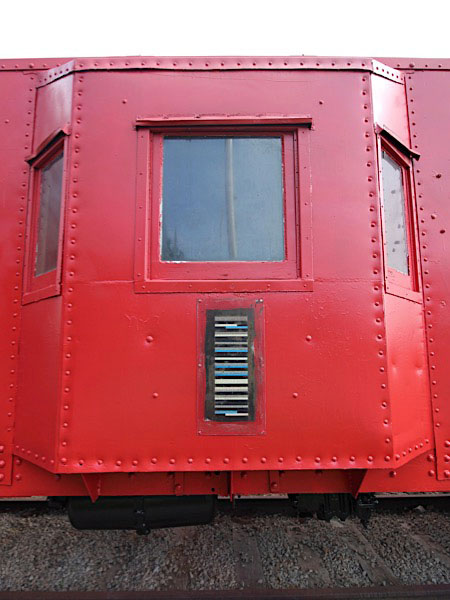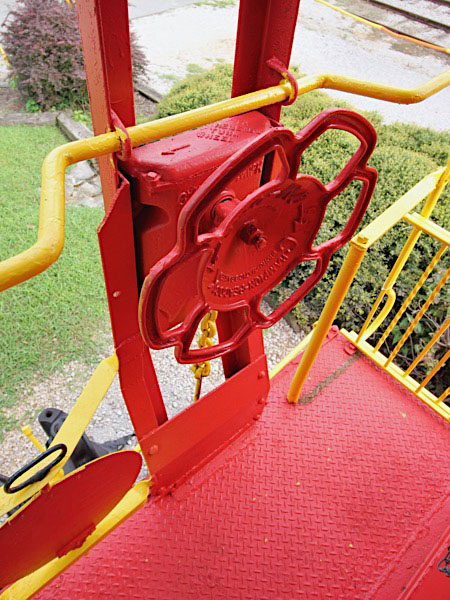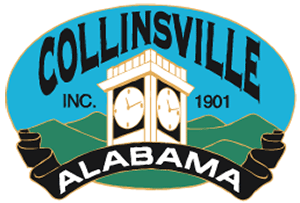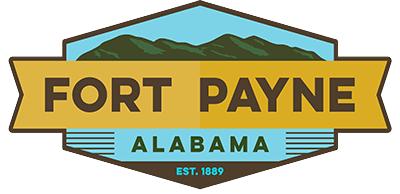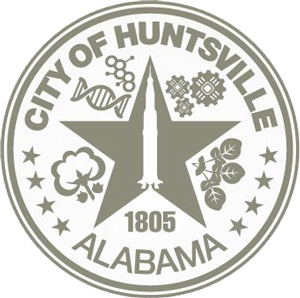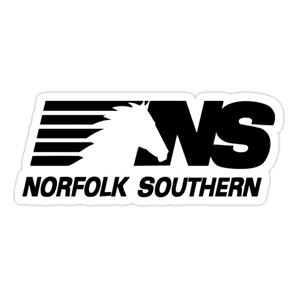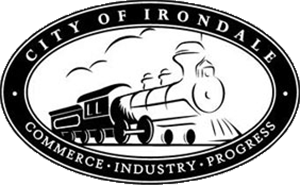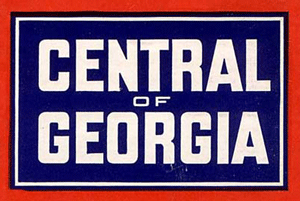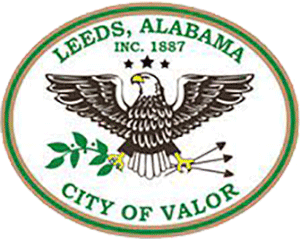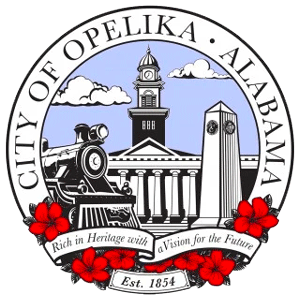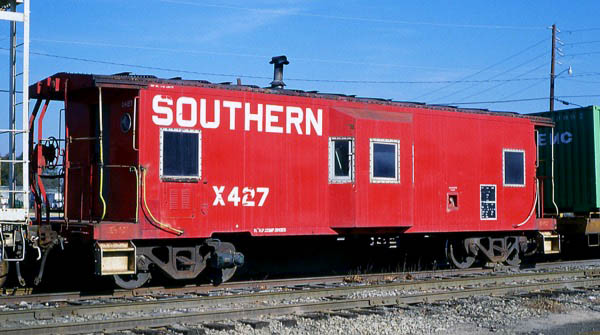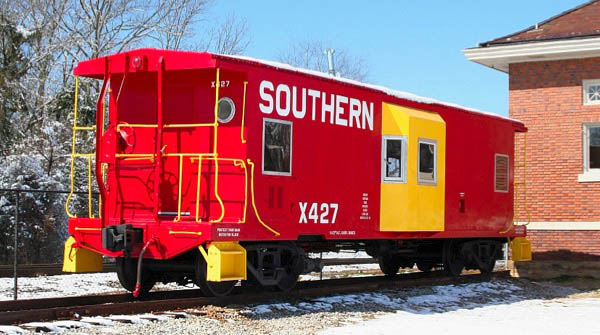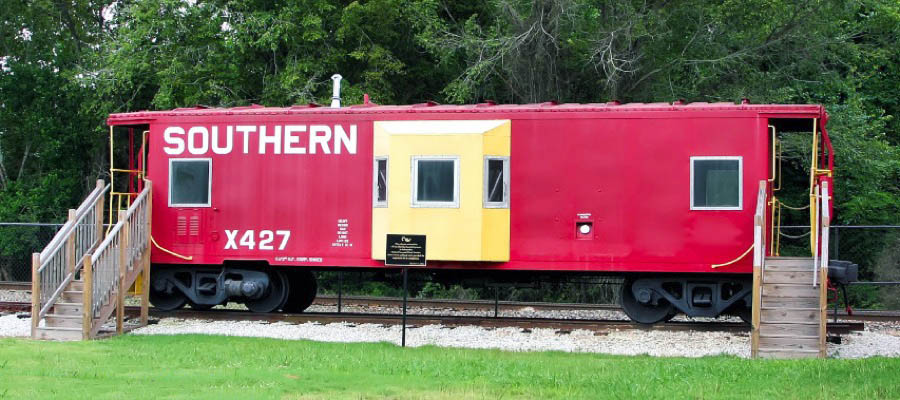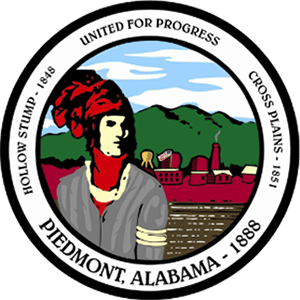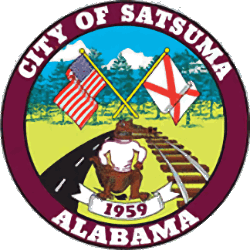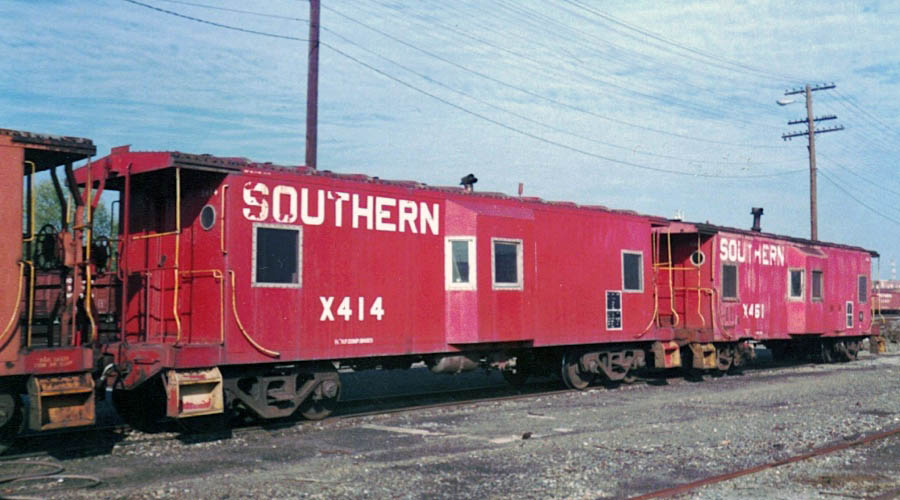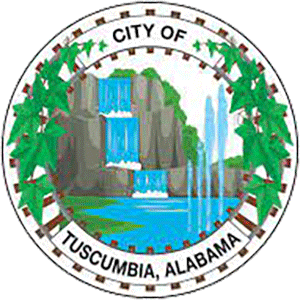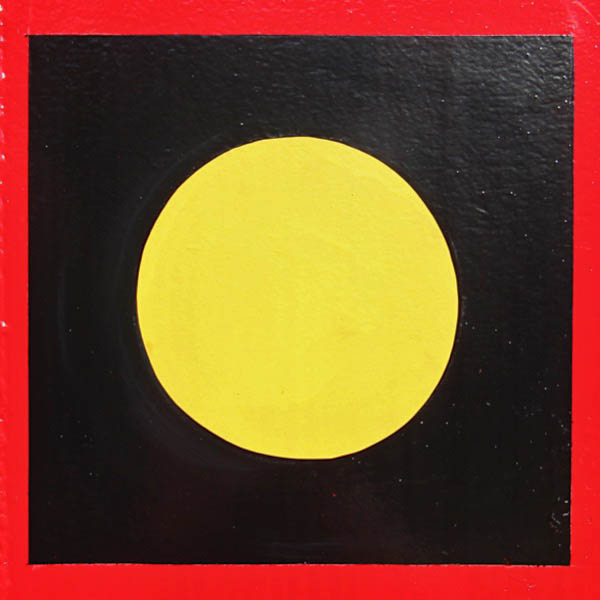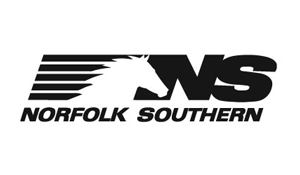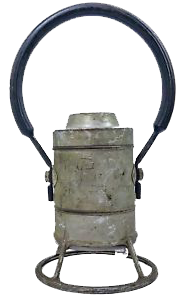

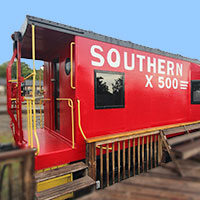 |
Southern Railway Bay Windows in Alabama |
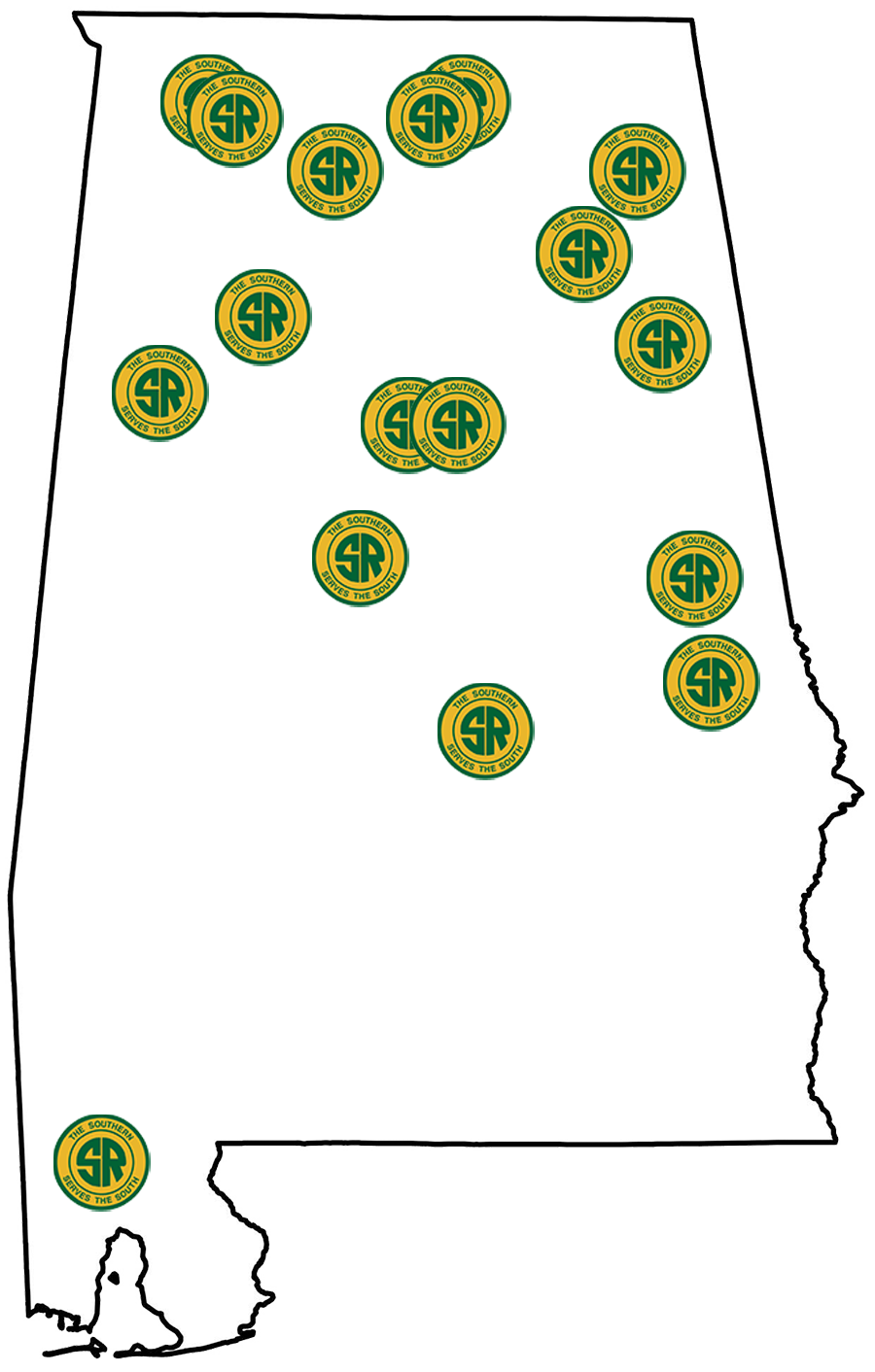

Jump back to our complete Southern Bay Window Survivors numerical listing
 Calera
Calera
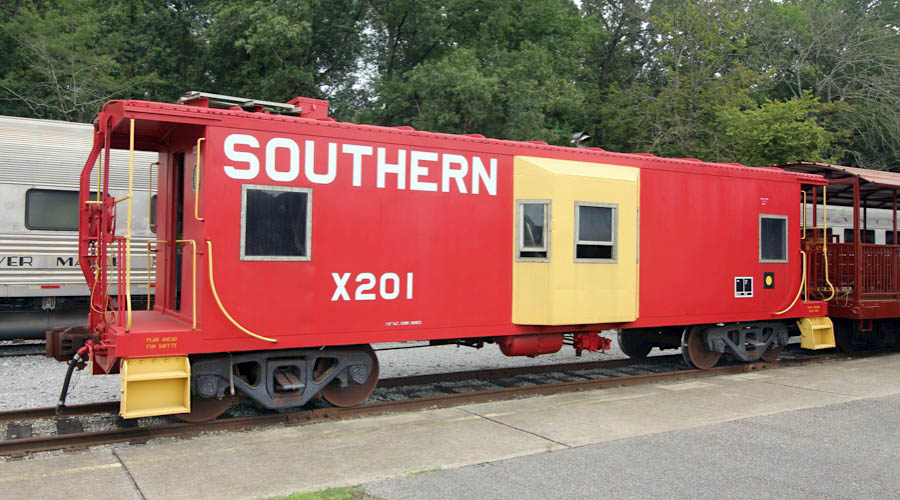
Southern Railway #X201
Calera, Al / Aug 2021 / RWH
 outhern #X201 is beautifully preserved in active service at the Heart of Dixie Railroad Museum in Calera, Alabama. The car is regularly used for the museum's excursion train. It features yellow bay windows and roof-mounted solar panels, features common to Southern's bay windows used in local freight service.
outhern #X201 is beautifully preserved in active service at the Heart of Dixie Railroad Museum in Calera, Alabama. The car is regularly used for the museum's excursion train. It features yellow bay windows and roof-mounted solar panels, features common to Southern's bay windows used in local freight service.

Click to see the Heart of Dixie Railroad Museum plotted on a Google Maps page
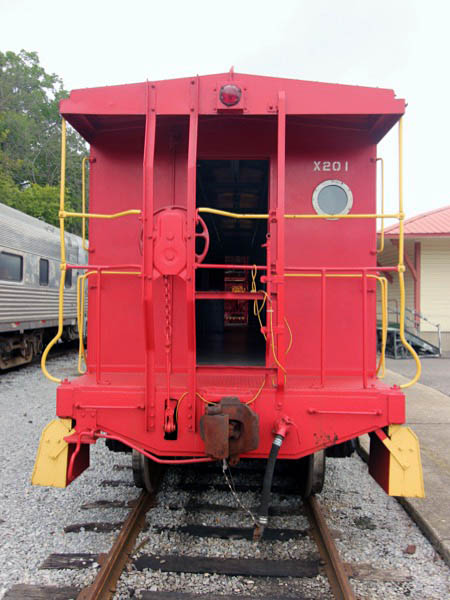
Calera, Al / Aug 2021 / RWH
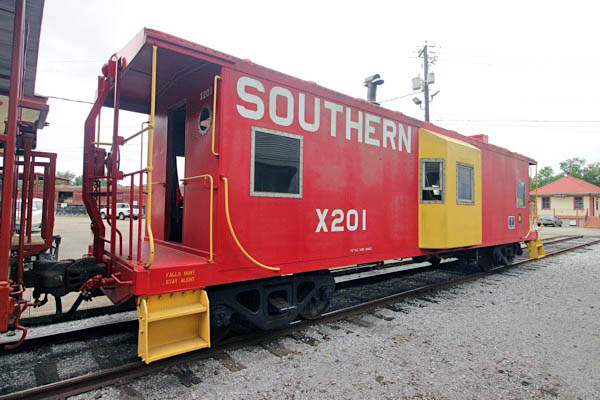
Calera, Al / Aug 2021 / RWH
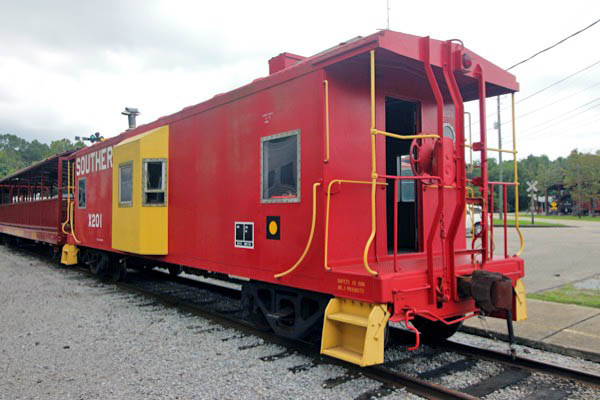
Aug 2021 / RWH
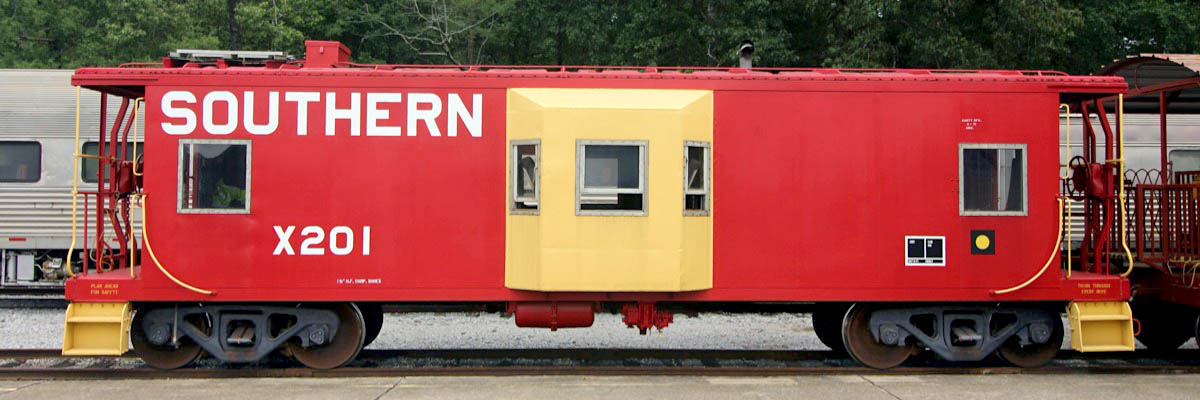
Calera, Al / Aug 2021 / RWH
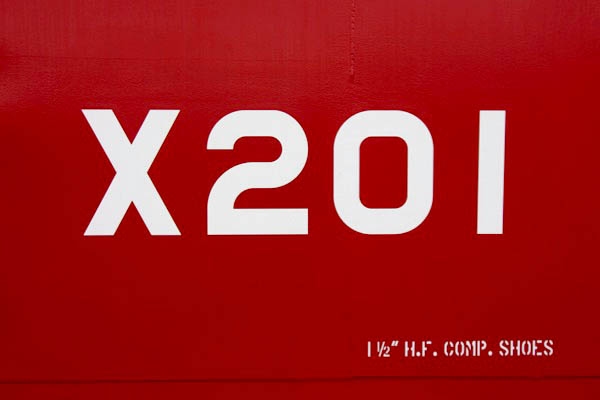
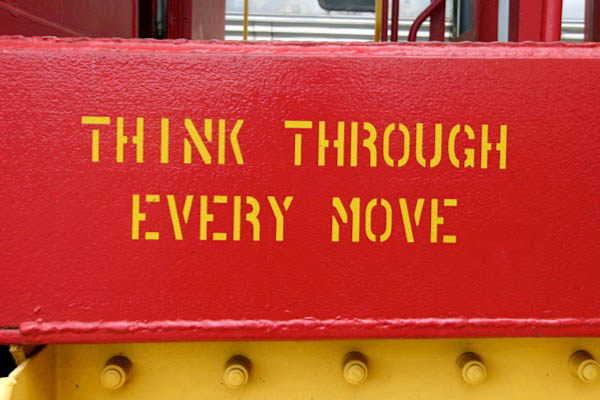
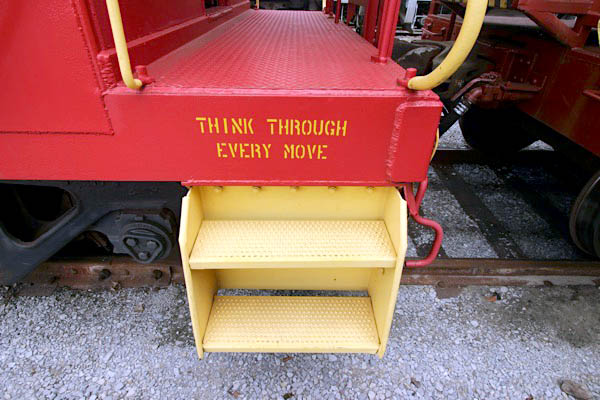
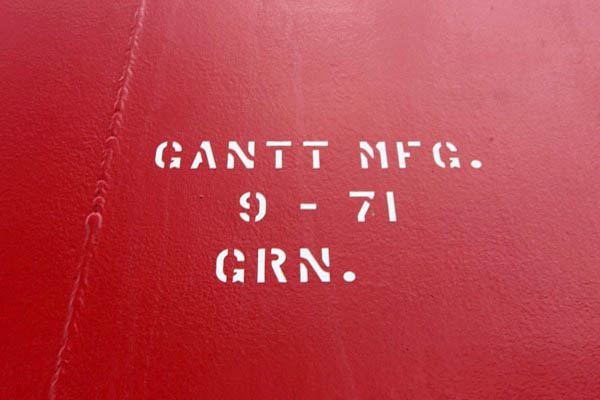
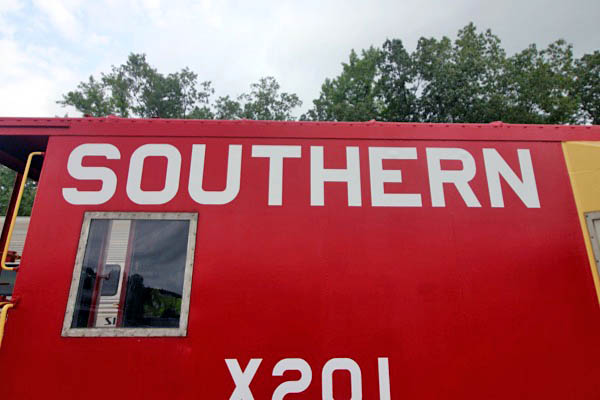
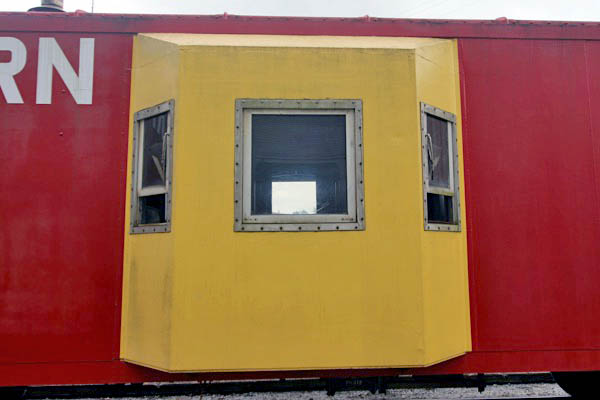
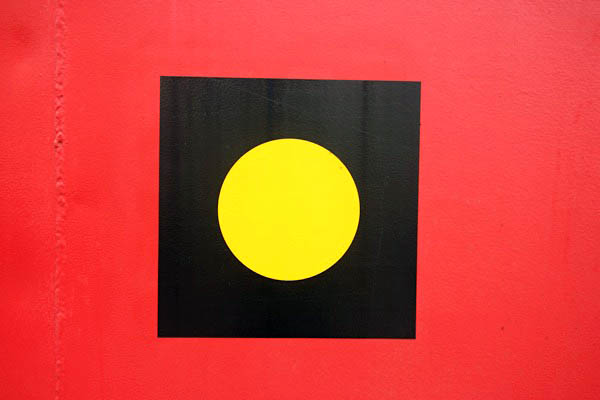
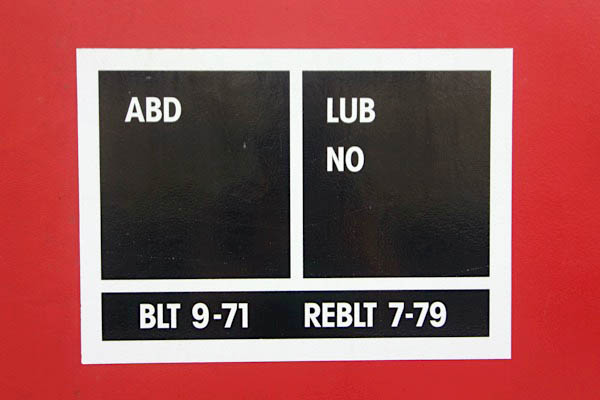
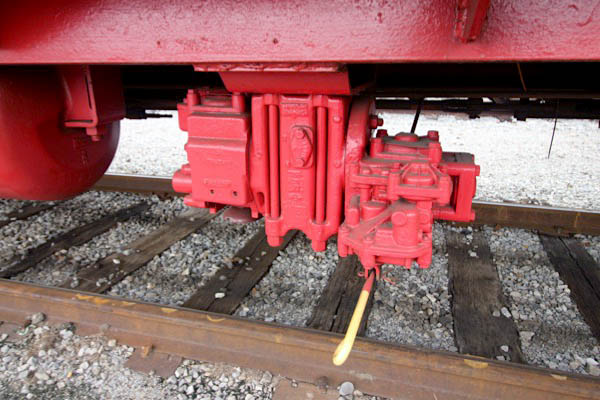
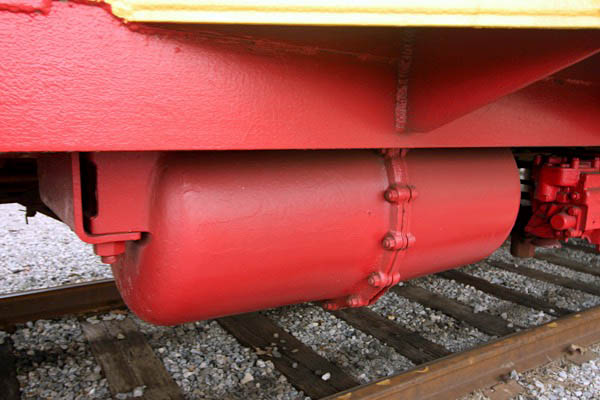
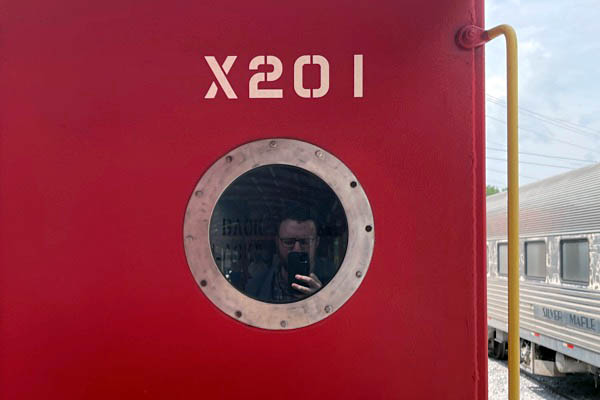
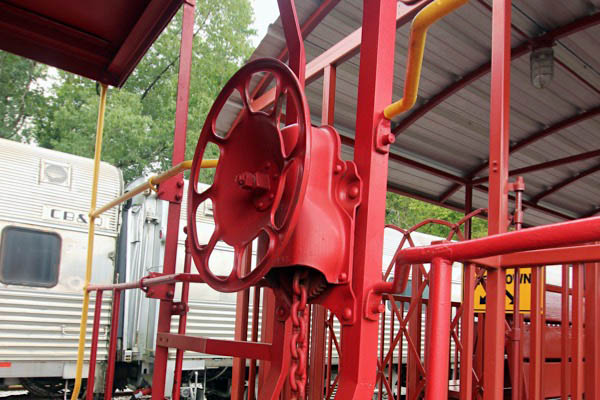
Aug 2021 / RWH
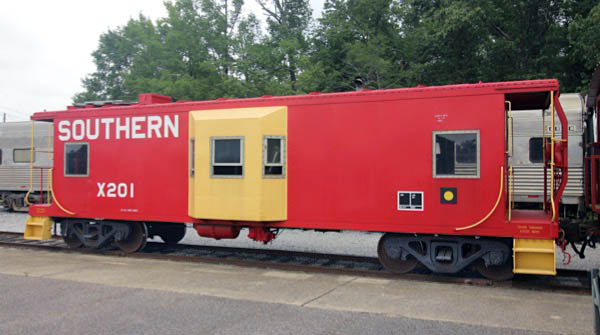
Calera, Al / Aug 2021 / RWH
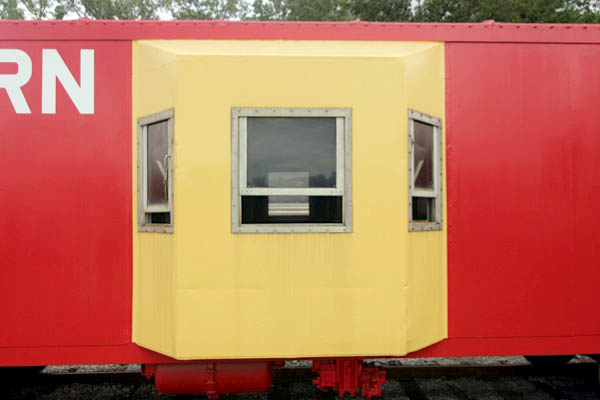
Aug 2021 / RWH
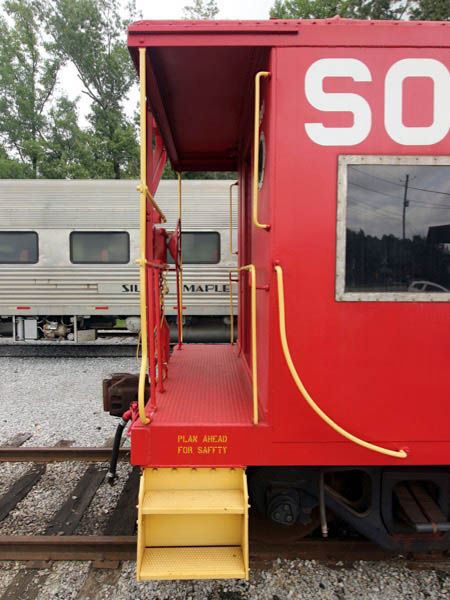
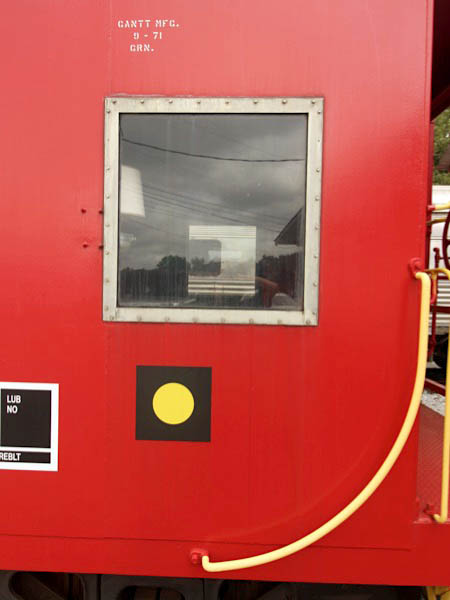
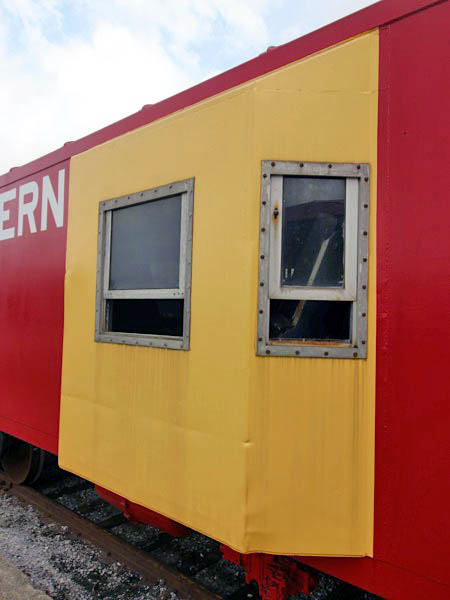
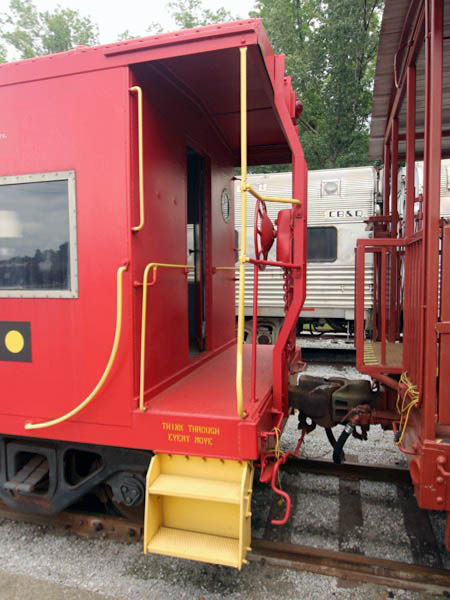
Aug 2021 / RWH
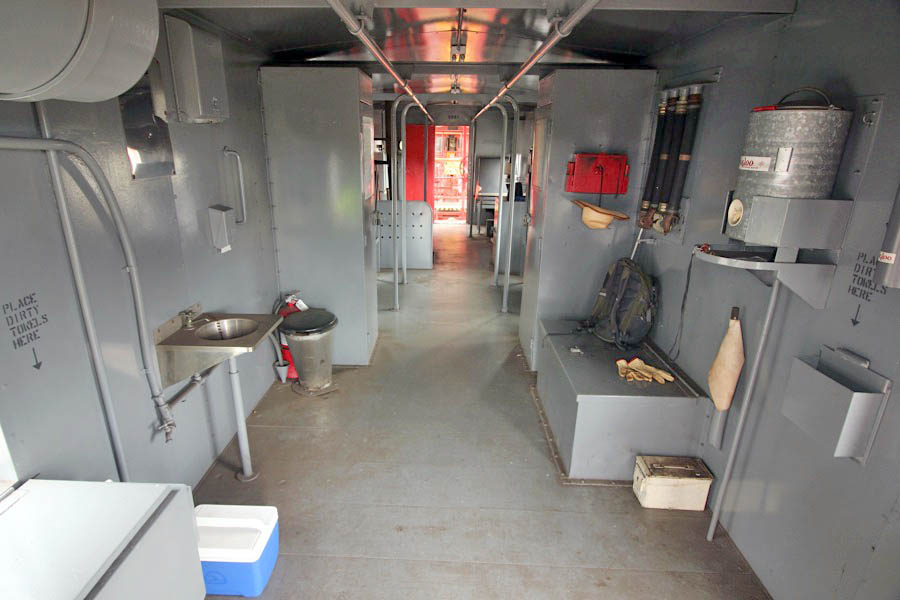
Aug 2021 / RWH
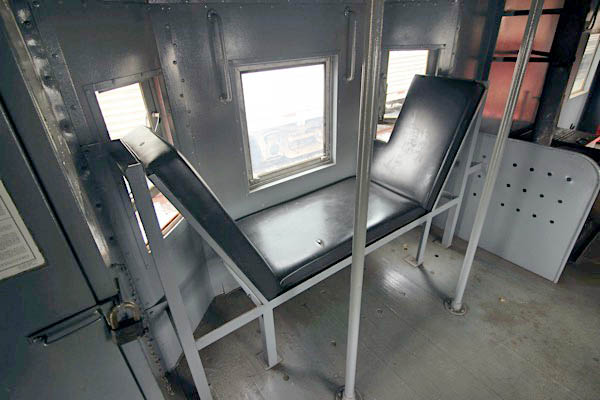
Aug 2021 / RWH
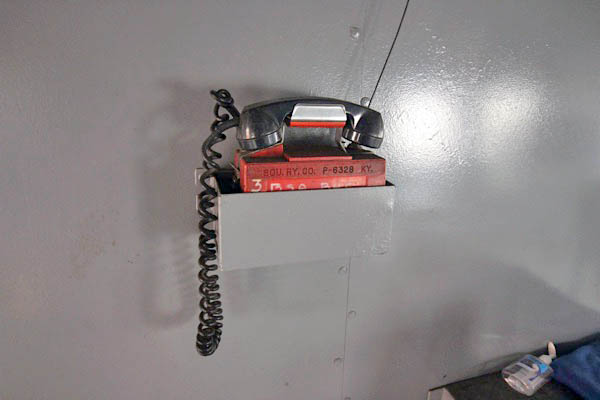
Aug 2021 / RWH
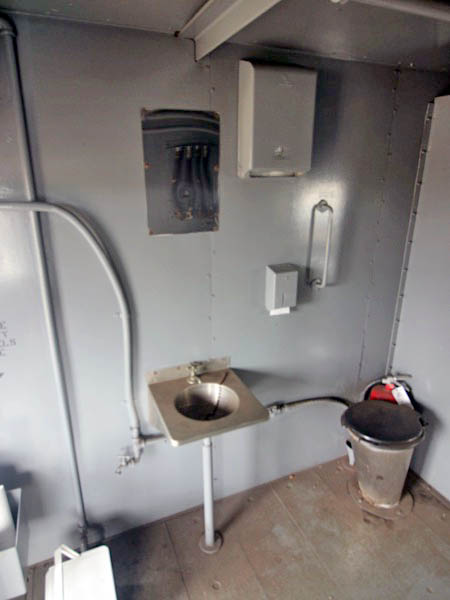
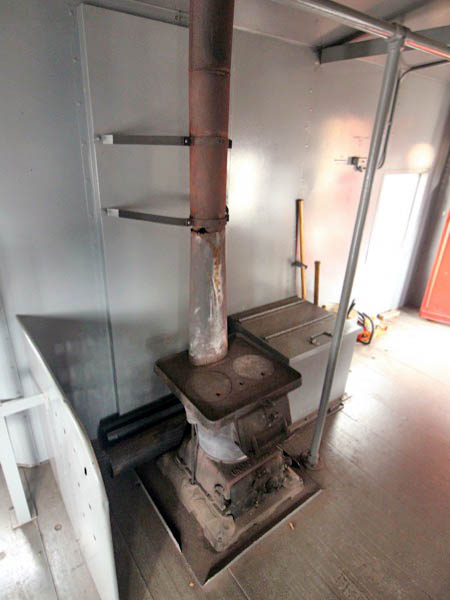
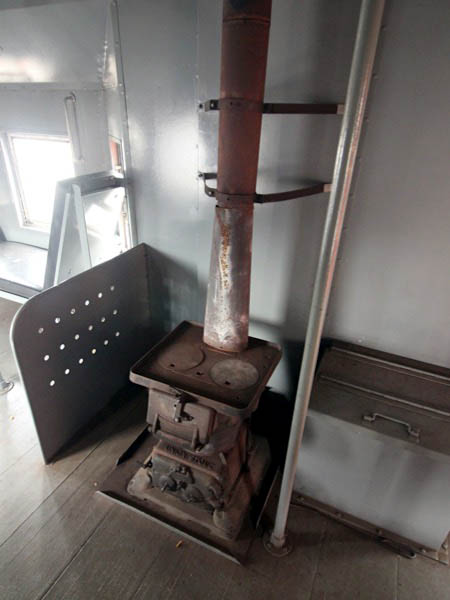
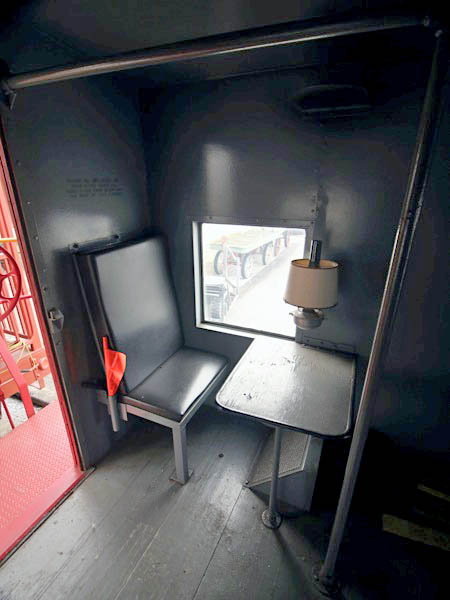
Aug 2021 / RWH

Calera, Al / Aug 2021 / RWH

See also our complete Heart of Dixie Railroad Museum scrapbook in Preservation
 Chase
Chase
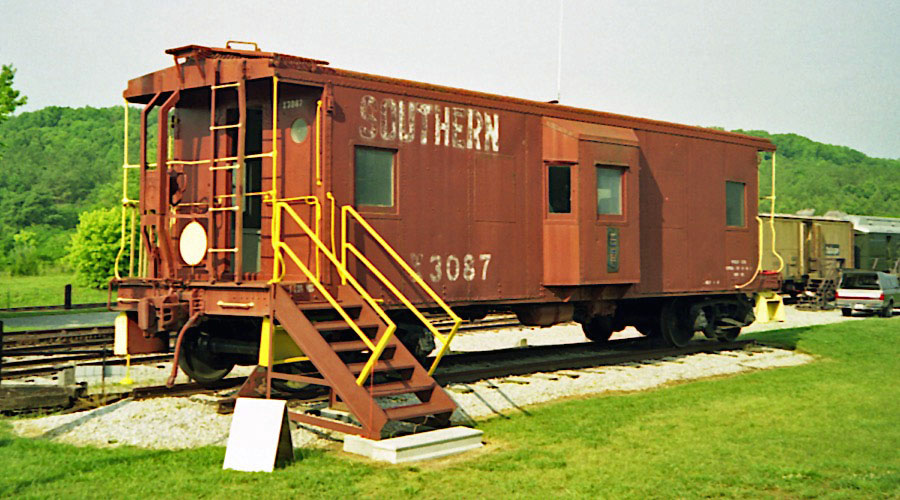
Southern Railway #X3087
Chase, Al / May 1999 / JCH
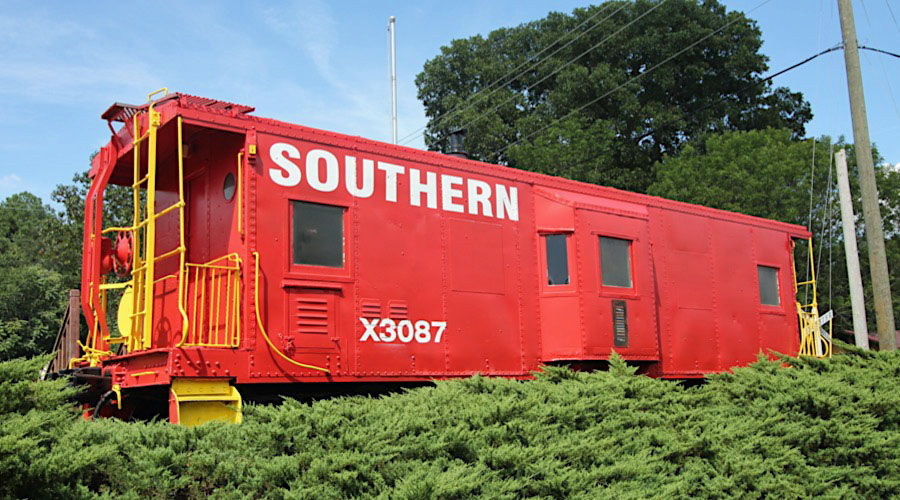
Chase, Al / Aug 2019 / RWH
 outhern #X3087 is beautifully preserved on display at the entrance to the North Alabama Railroad Museum in Chase, Alabama, northeast of Huntsville. The car is unusual among surviving Southern bay windows in that it retains its older 4-digit number. Most remaining cabooses show the later 3-digit renumbering scheme.
outhern #X3087 is beautifully preserved on display at the entrance to the North Alabama Railroad Museum in Chase, Alabama, northeast of Huntsville. The car is unusual among surviving Southern bay windows in that it retains its older 4-digit number. Most remaining cabooses show the later 3-digit renumbering scheme.

Click to see the North Alabama Railroad Museum plotted on a Google Maps page
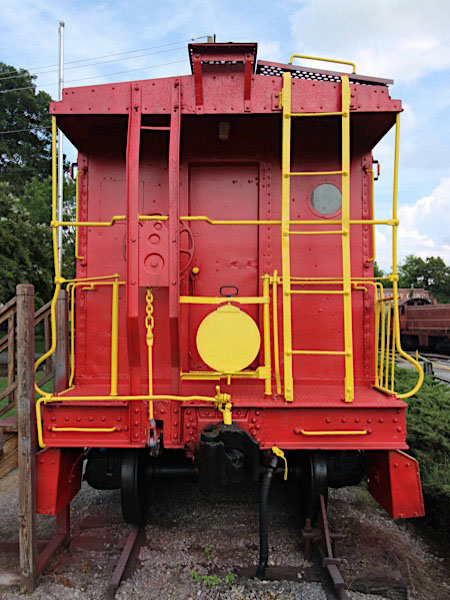
Aug 2019 / RWH
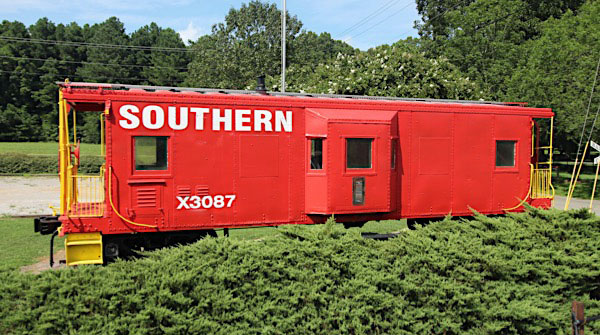
Chase, Al / Aug 2019 / RWH
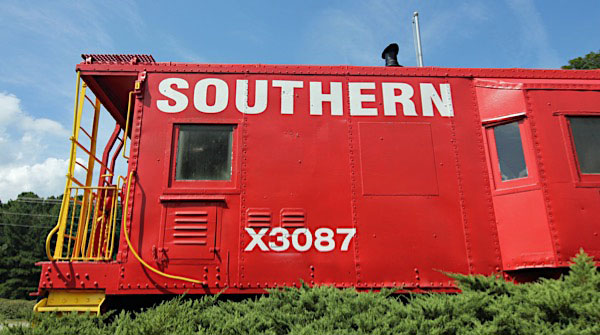
Chase, Al / Aug 2019 / RWH
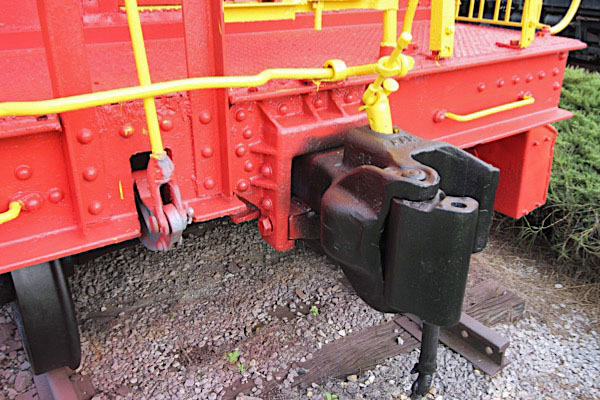
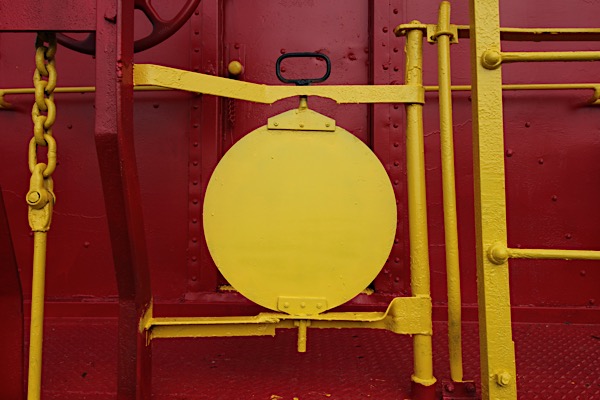
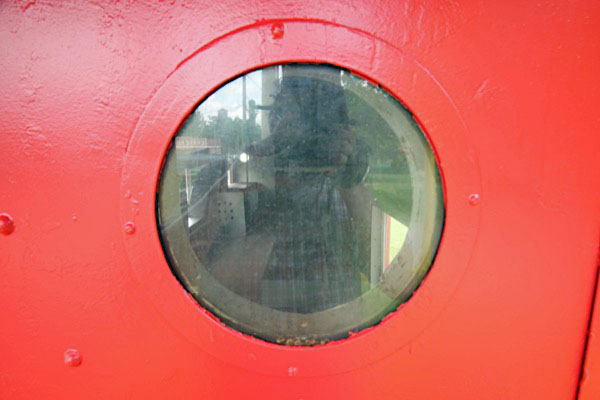
Chase, Al / Aug 2019 / RWH
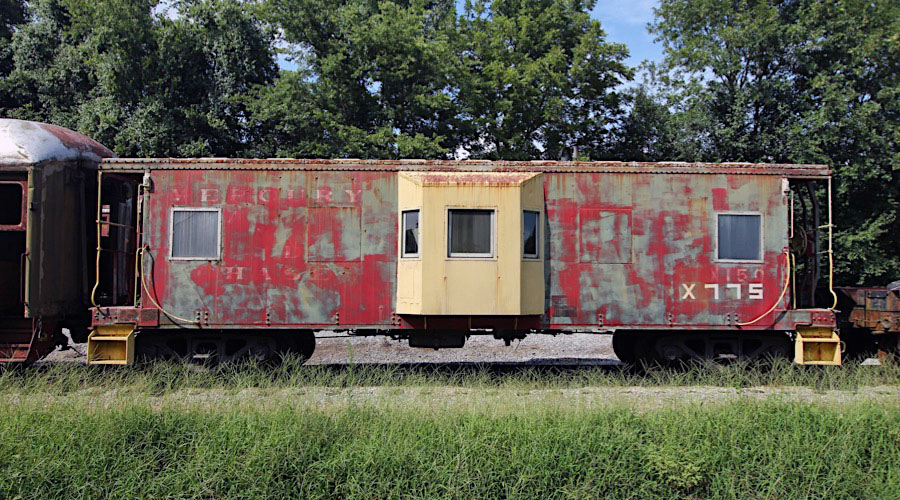
Mercury & Chase #X775
Chase, Al / Aug 2019 / RWH
Mercury & Chase #X775 is preserved in the rolling stock collection of the North Alabama Railroad Museum in Chase, Alabama. The car retains its Southern Railway number, but is lettered for the museum's excursion railroad which honors nearby locations. As of 2019, its lettering and paint were fading, but the yellow bay window highlight was still prominent.
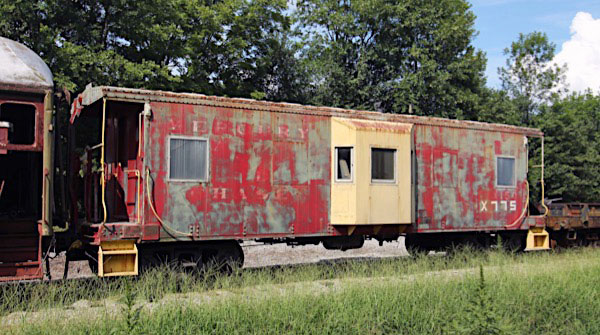
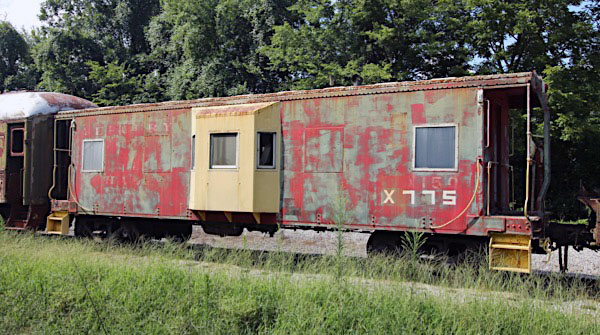
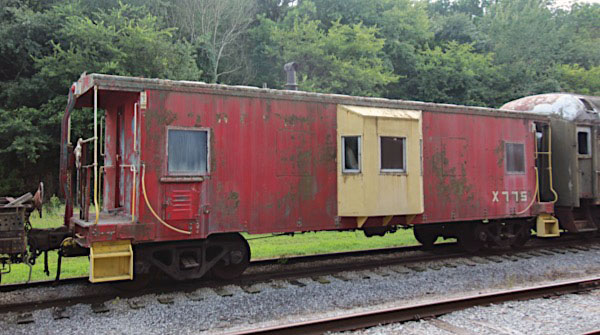
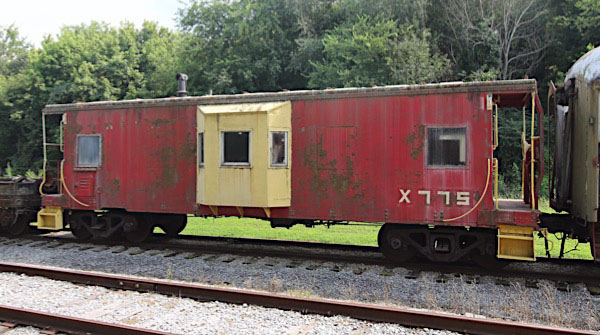
Chase, Al / Aug 2019 / RWH
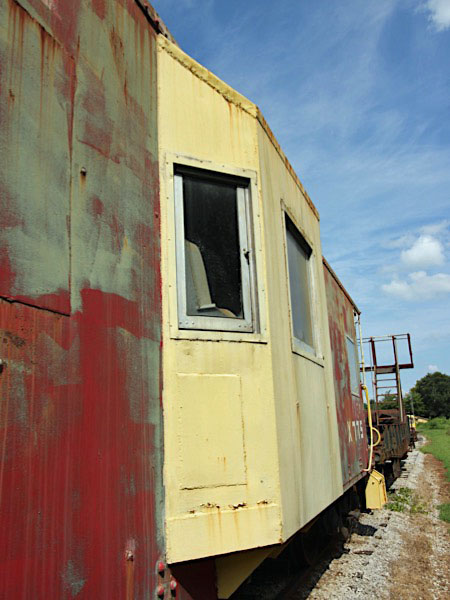
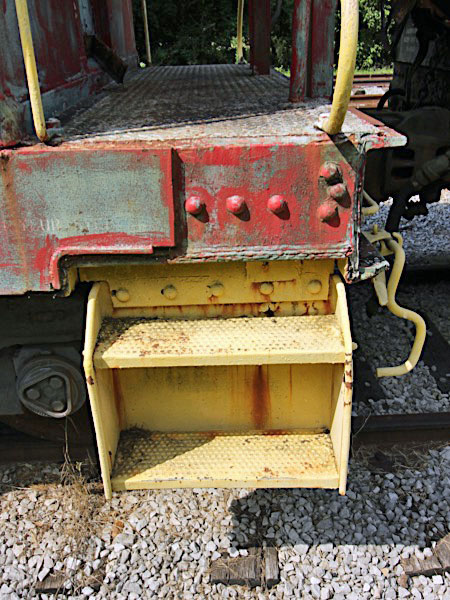
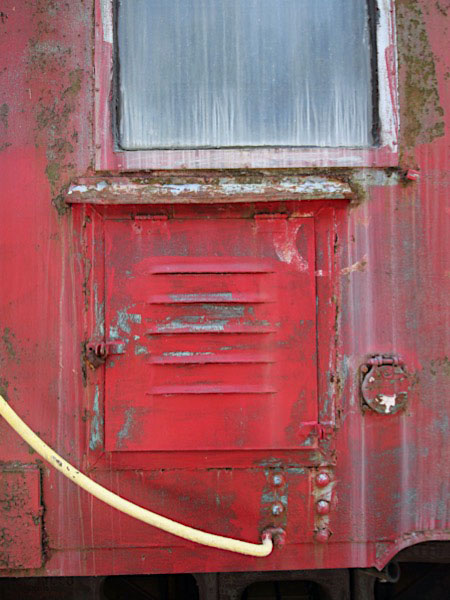
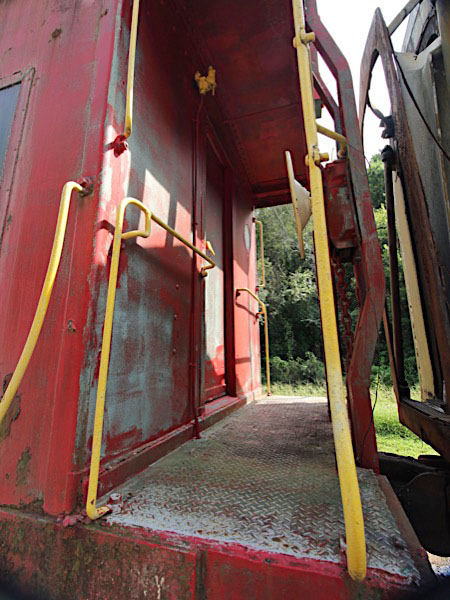
Aug 2019 / RWH
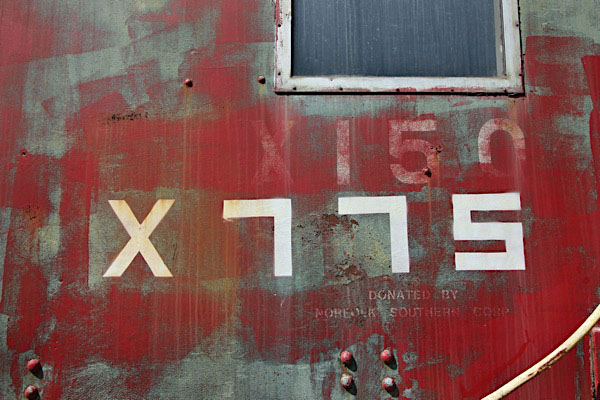
Aug 2019 / RWH
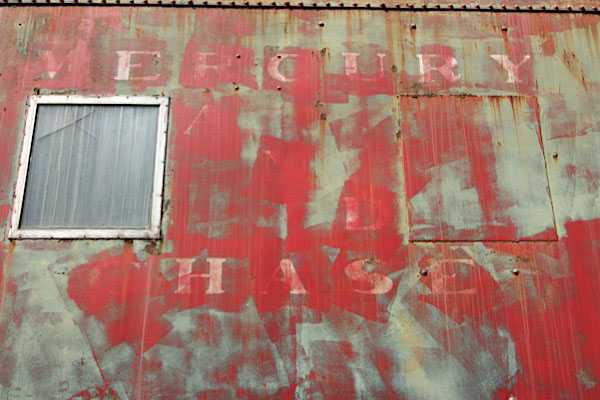
Aug 2019 / RWH

See also our complete North Alabama Railroad Museum scrapbook in Preservation
 Collinsville
Collinsville
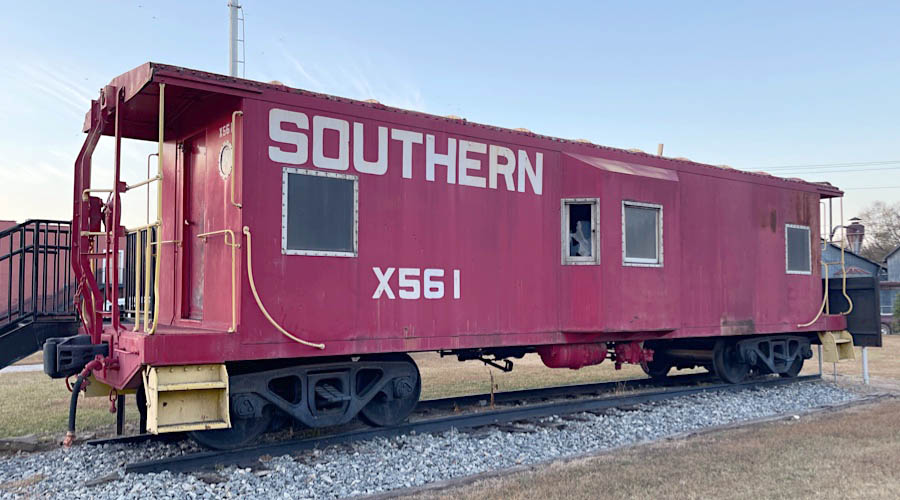
Southern Railway #561
Collinsville, Al / Oct 2022 / RWH
 outhern #X561 is the anchor for the Veterans Memorial Park in the northeastern Alabama community of Collinsville. Situated along mainstreet just blocks from US Highway 11, the park is adjacent to Norfolk Southern's busy Birmingham to Chattanooga mainline. This line is the former Alabama Great Southern, later Southern Railway. Bay window X561 is a good shape for an outdoor display, featuring lettering and numbering in the correct fonts and correct red and yellow paint. Data markings are missing and the body has some weathering on one side. The caboose remains a nice feature in a community park obviously well maintained.
outhern #X561 is the anchor for the Veterans Memorial Park in the northeastern Alabama community of Collinsville. Situated along mainstreet just blocks from US Highway 11, the park is adjacent to Norfolk Southern's busy Birmingham to Chattanooga mainline. This line is the former Alabama Great Southern, later Southern Railway. Bay window X561 is a good shape for an outdoor display, featuring lettering and numbering in the correct fonts and correct red and yellow paint. Data markings are missing and the body has some weathering on one side. The caboose remains a nice feature in a community park obviously well maintained.
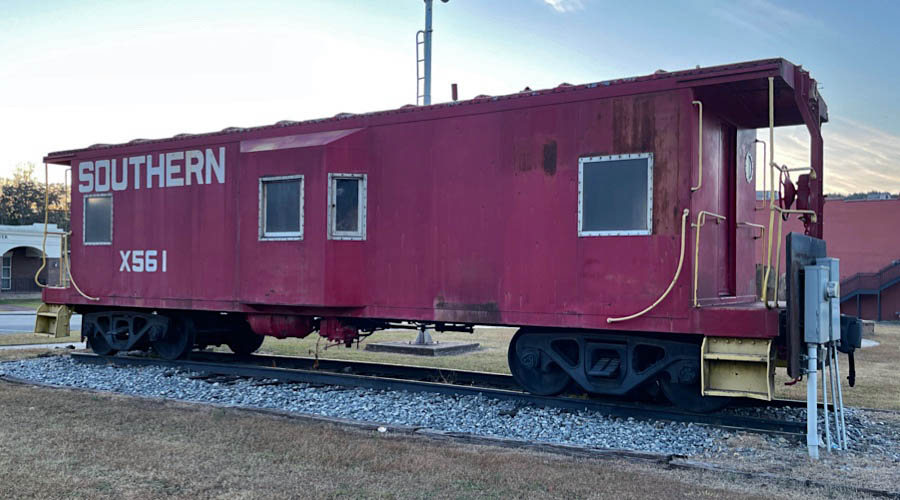
Collinsville, Al / Oct 2022 / RWH
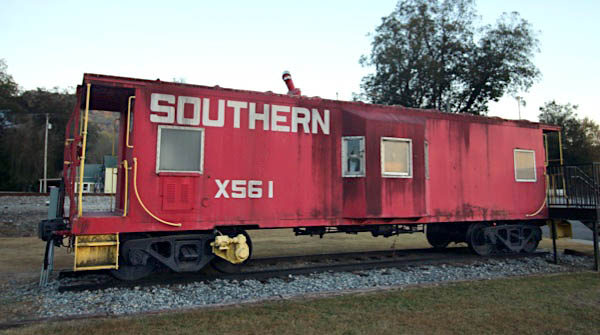
Collinsville, Al / Oct 2022 / RWH
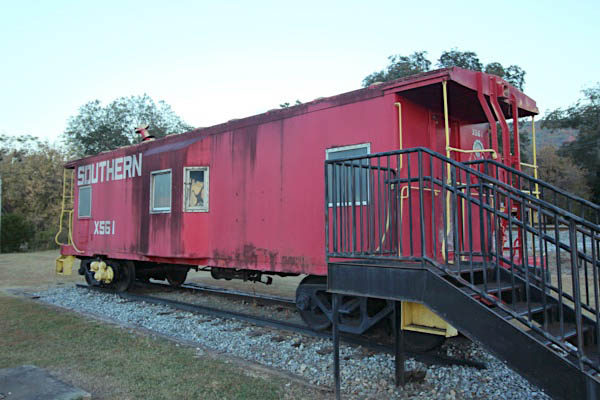
Collinsville, Al / Oct 2022 / RWH
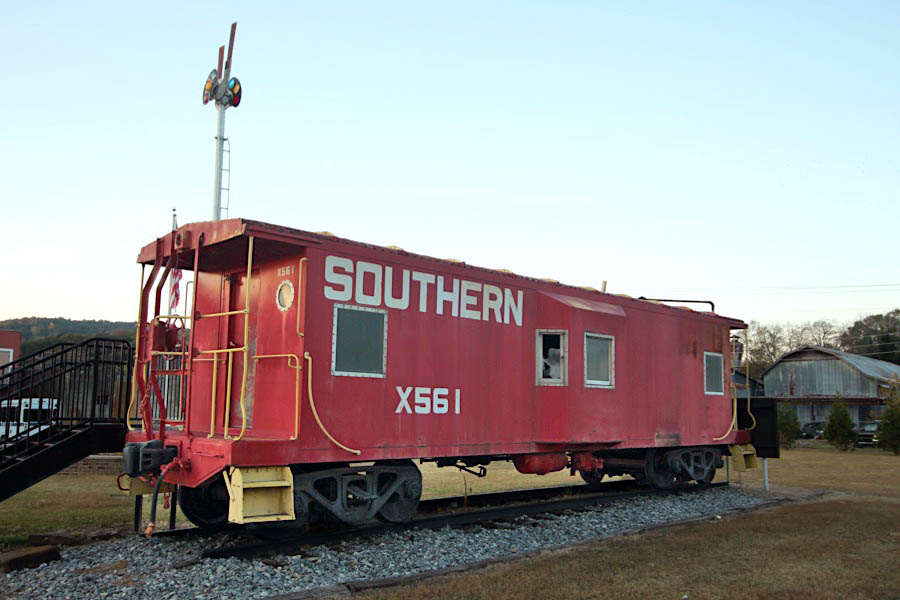
Collinsville, Al / Oct 2022 / RWH
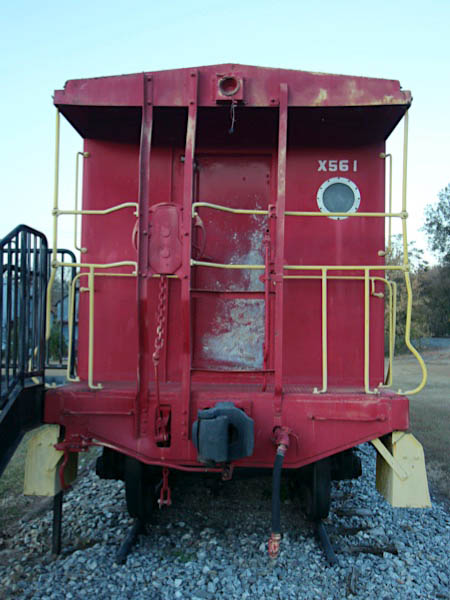
Oct 2022 / RWH
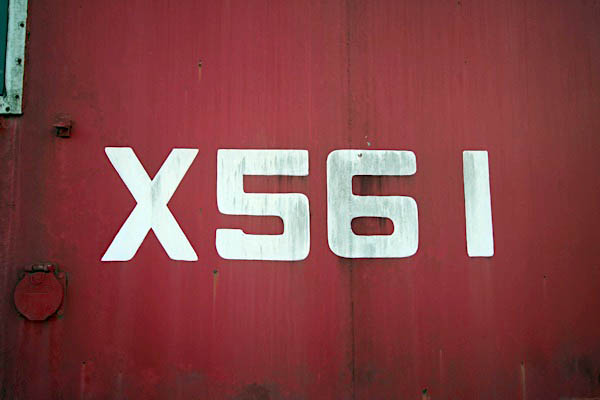
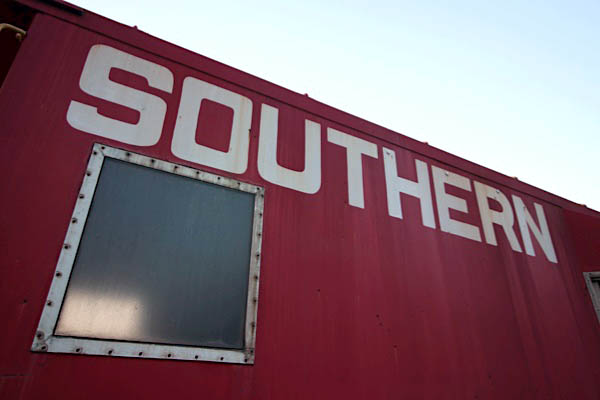
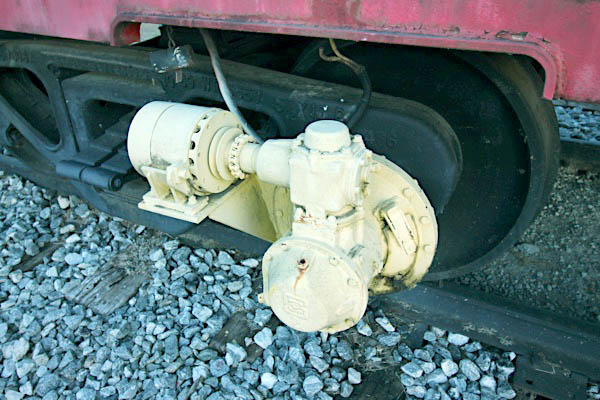
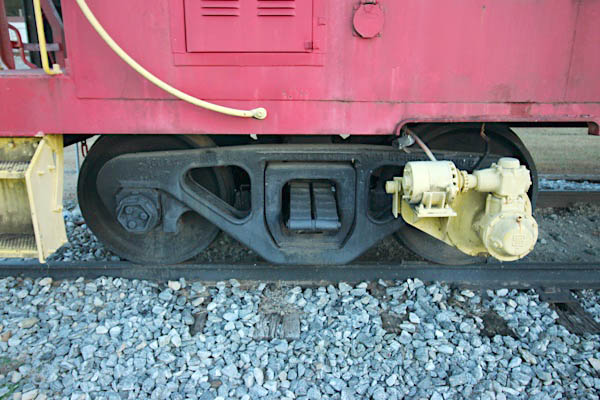
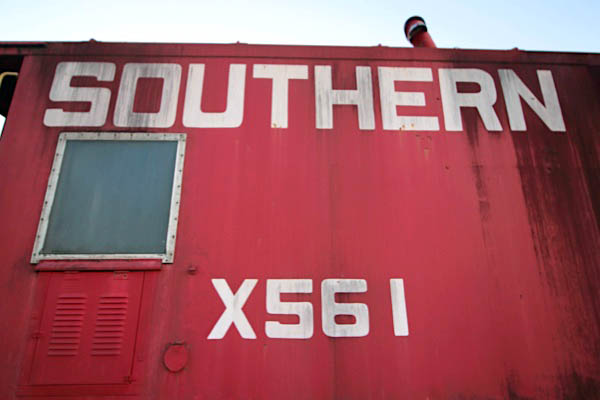
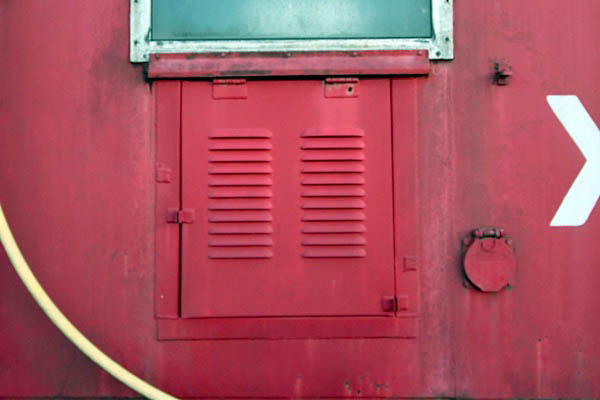
Oct 2022 / RWH
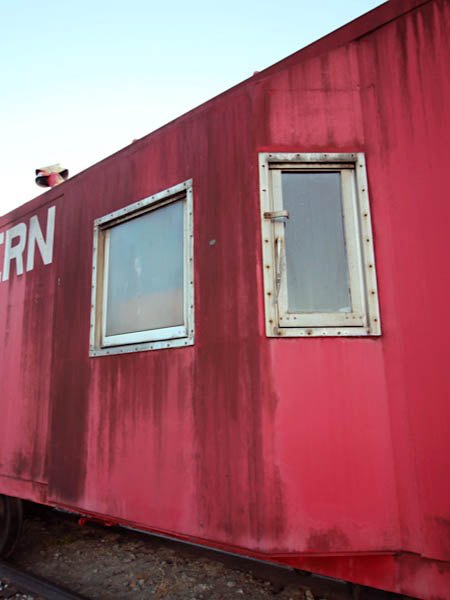
Oct 2022 / RWH
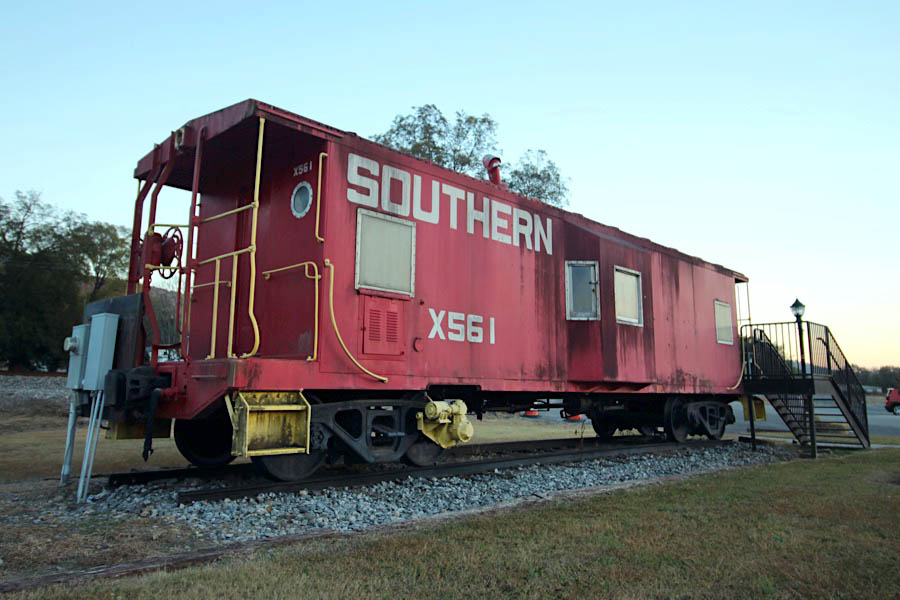
Collinsville, Al / Oct 2022 / RWH
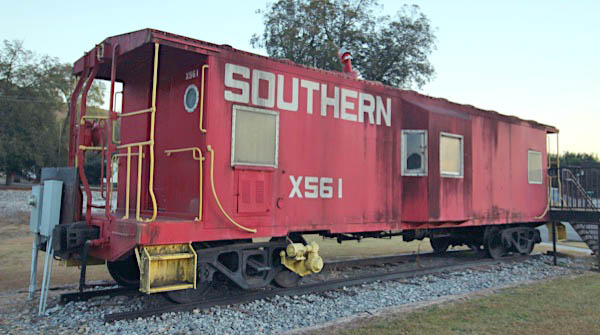
Collinsville, Al / Oct 2022 / RWH
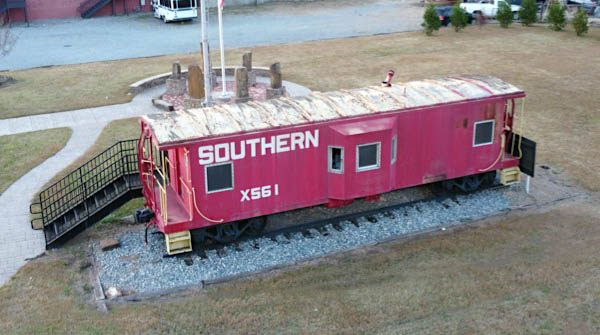
Collinsville, Al / Oct 2022 / RWH
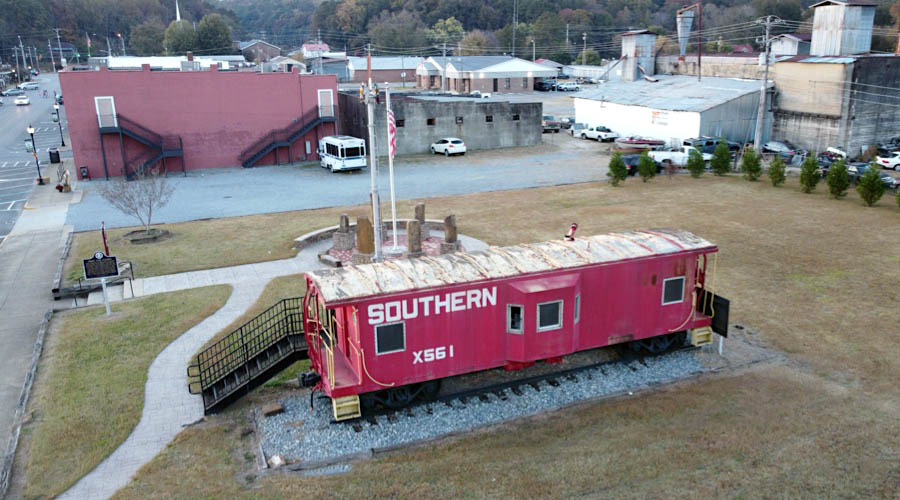
Collinsville, Al / Oct 2022 / RWH
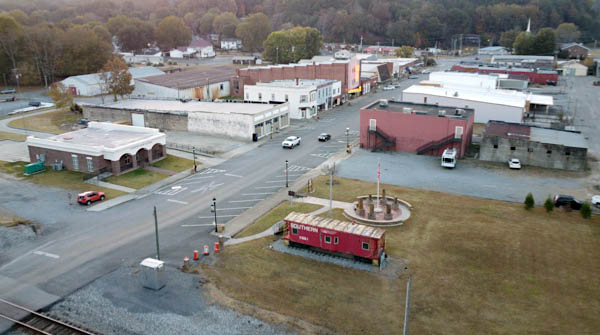
Collinsville, Al / Oct 2022 / RWH
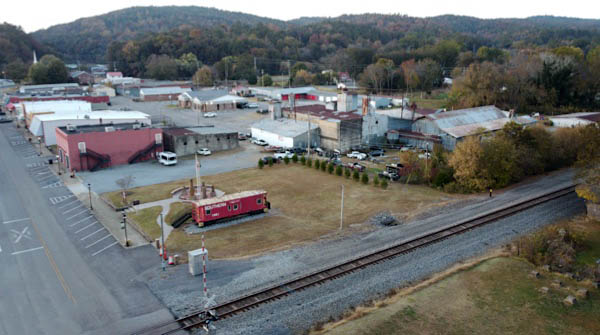
Collinsville, Al / Oct 2022 / RWH
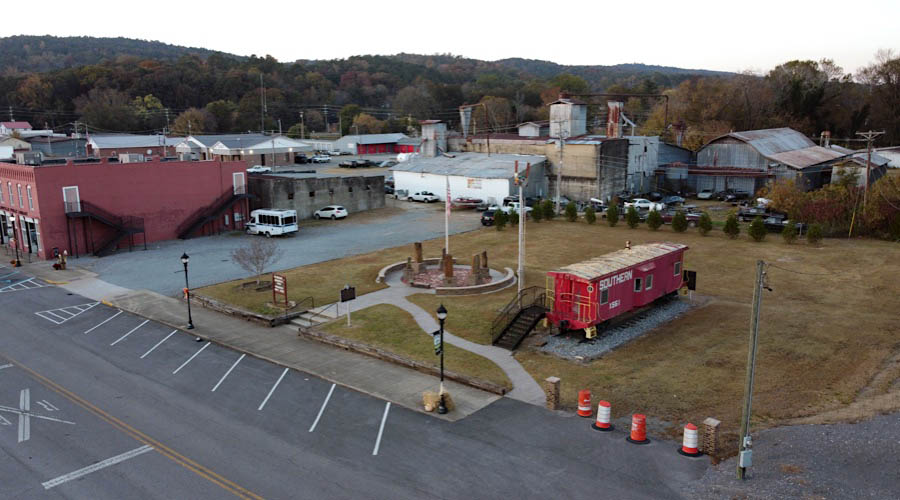
Collinsville, Al / Oct 2022 / RWH
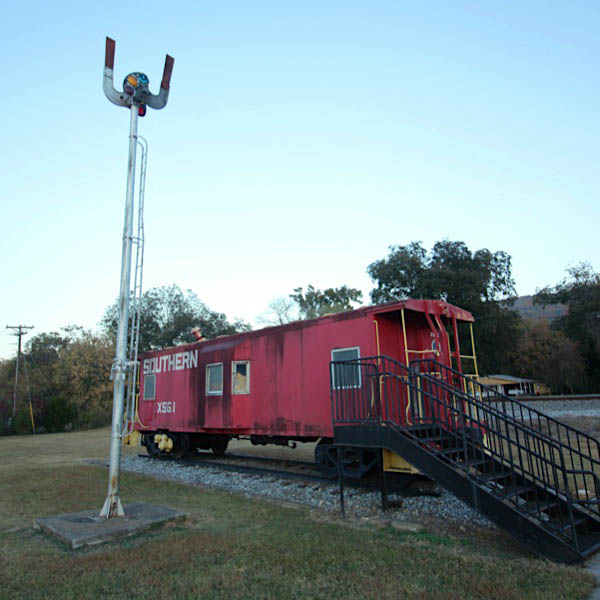
Collinsville, Al / Oct 2022 / RWH
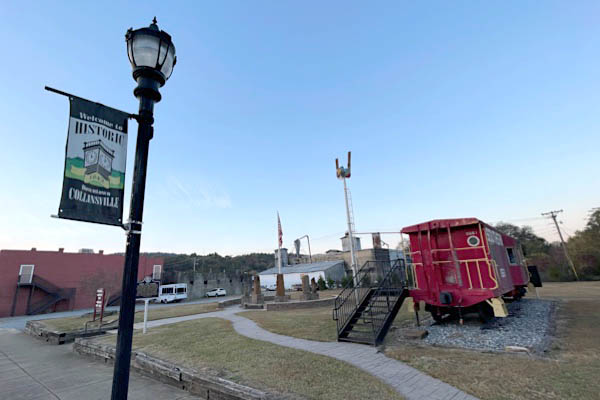
Collinsville, Al / Oct 2022 / RWH
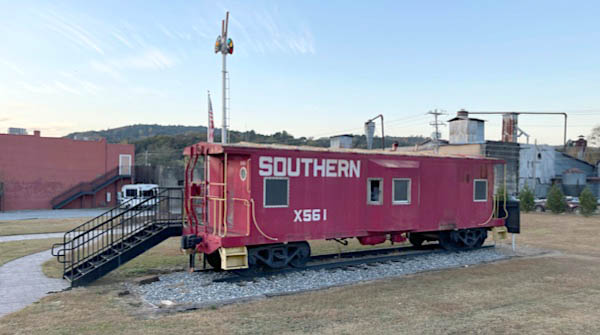
Collinsville, Al / Oct 2022 / RWH
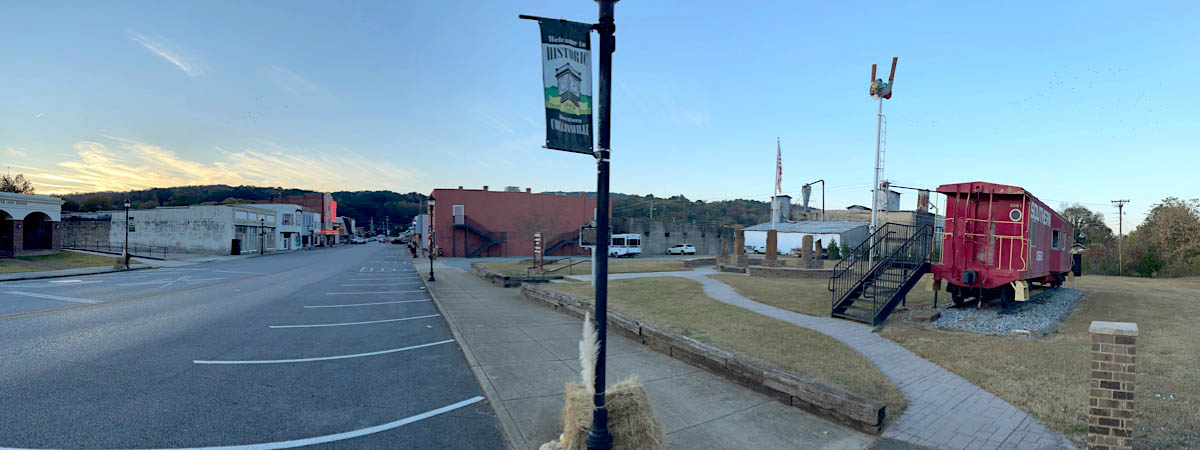
Collinsville, Al / Oct 2022 / RWH
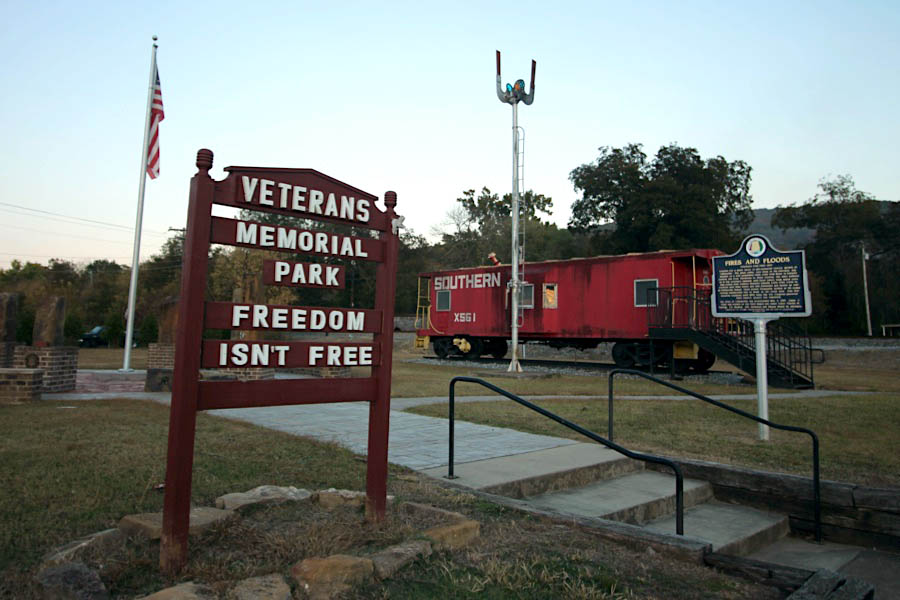
Collinsville, Al / Oct 2022 / RWH
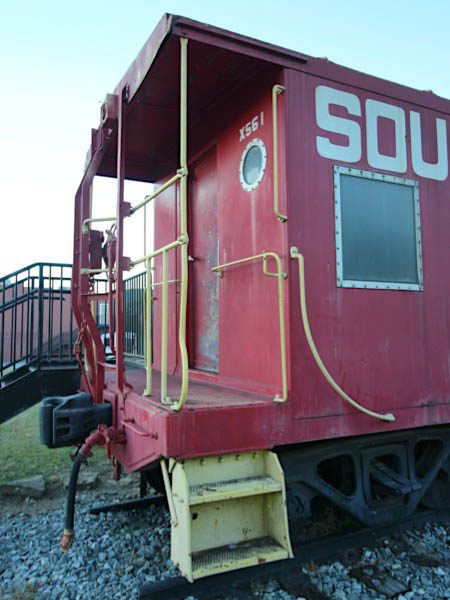
Oct 2022 / RWH
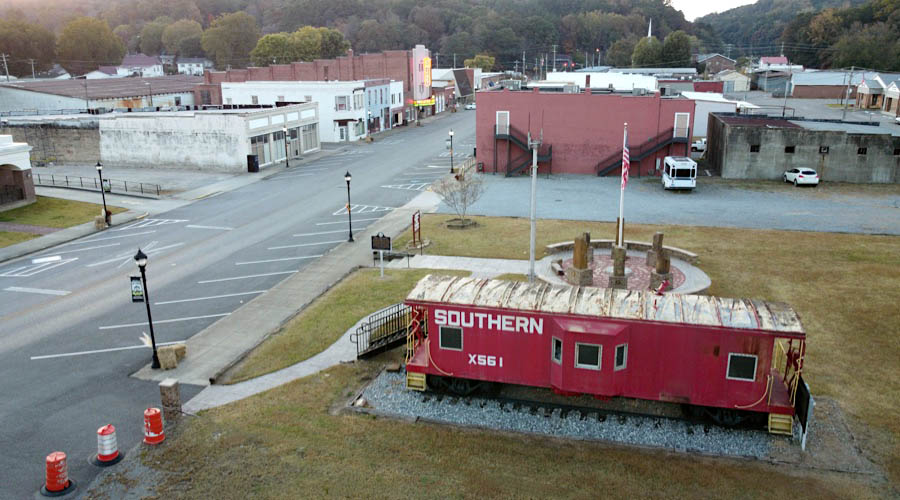
Collinsville, Al / Oct 2022 / RWH
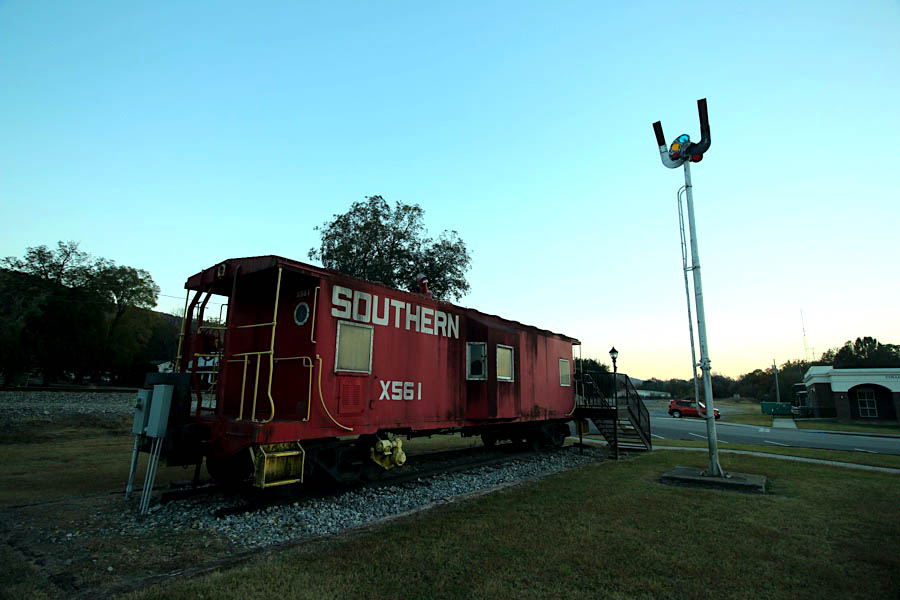
Collinsville, Al / Oct 2022 / RWH
 Fayette
Fayette
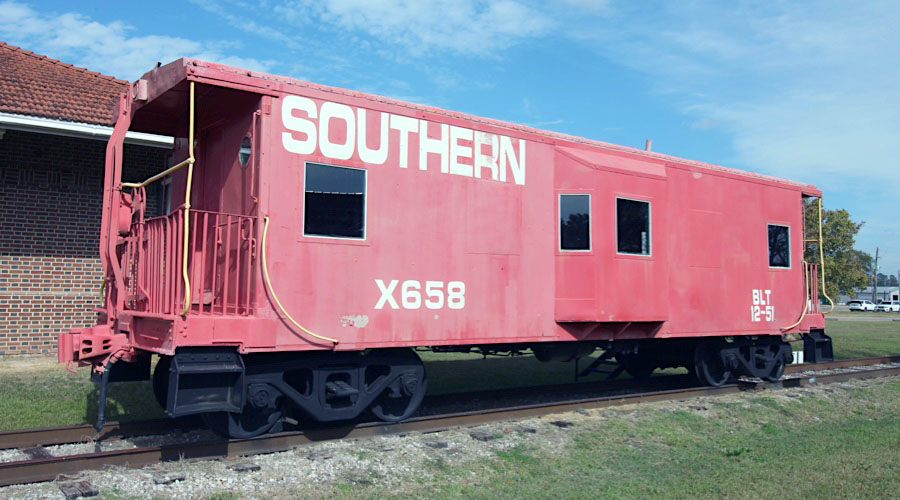
Southern Railway #X658
Fayette, Al / Oct 2022 / RWH
 outhern #X658 is preserved outdoors along the former Southern right of way at the Fayette Depot Museum in Fayette, Alabama. As of 2022, the car is in good physical shape, having last been painted in an accurate carbody red. The car is lettered for Southern and bears its number, but all other markings are missing. Stairs have been added at one end for public entrance. The Fayette depot was built in 1887, located along the former Southern mainline from Birmingham to Columbus, Mississippi.
outhern #X658 is preserved outdoors along the former Southern right of way at the Fayette Depot Museum in Fayette, Alabama. As of 2022, the car is in good physical shape, having last been painted in an accurate carbody red. The car is lettered for Southern and bears its number, but all other markings are missing. Stairs have been added at one end for public entrance. The Fayette depot was built in 1887, located along the former Southern mainline from Birmingham to Columbus, Mississippi.
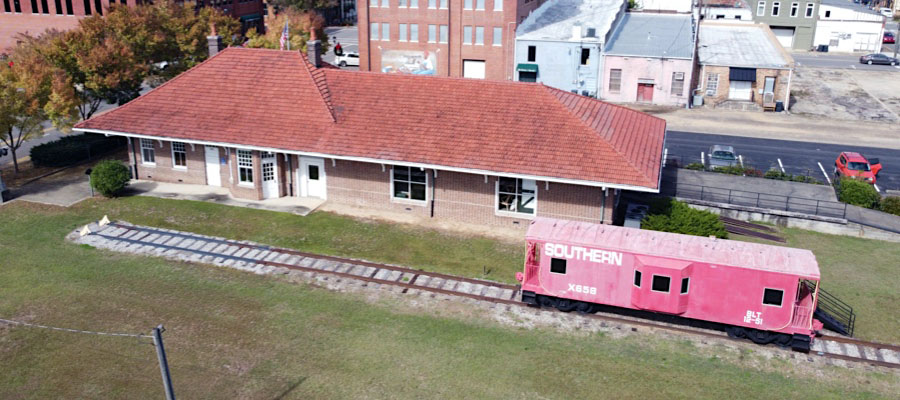
Fayette, Al / Oct 2022 / RWH
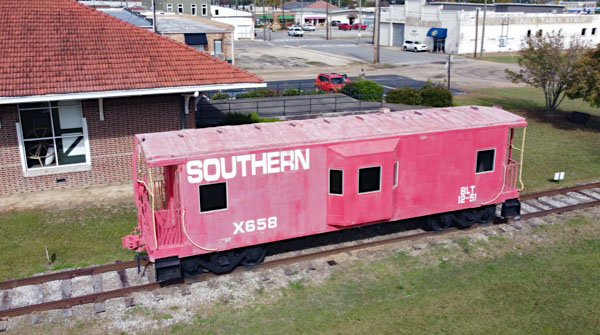
Fayette, Al / Oct 2022 / RWH
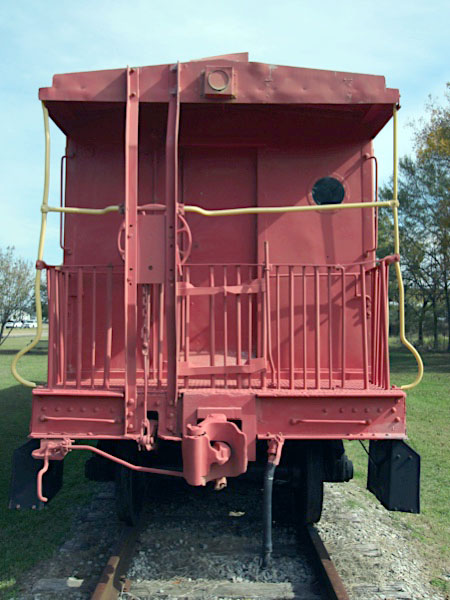
Oct 2022 / RWH
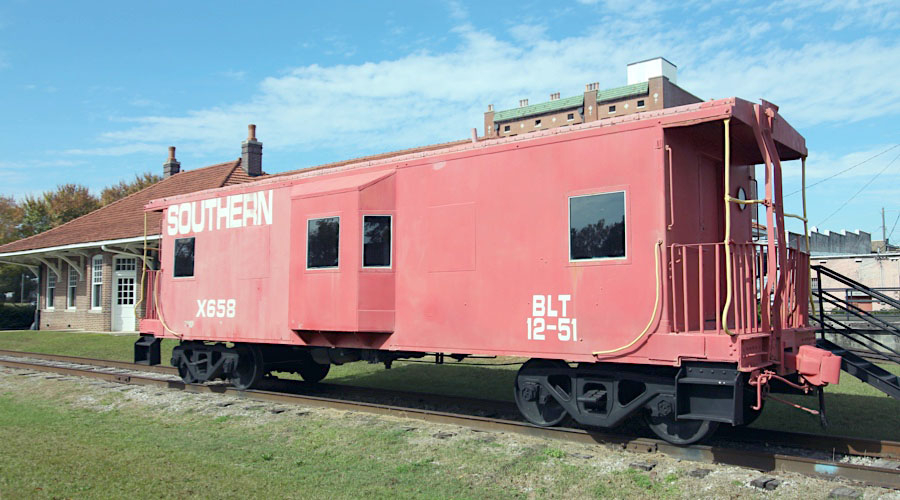
Fayette, Al / Oct 2022 / RWH
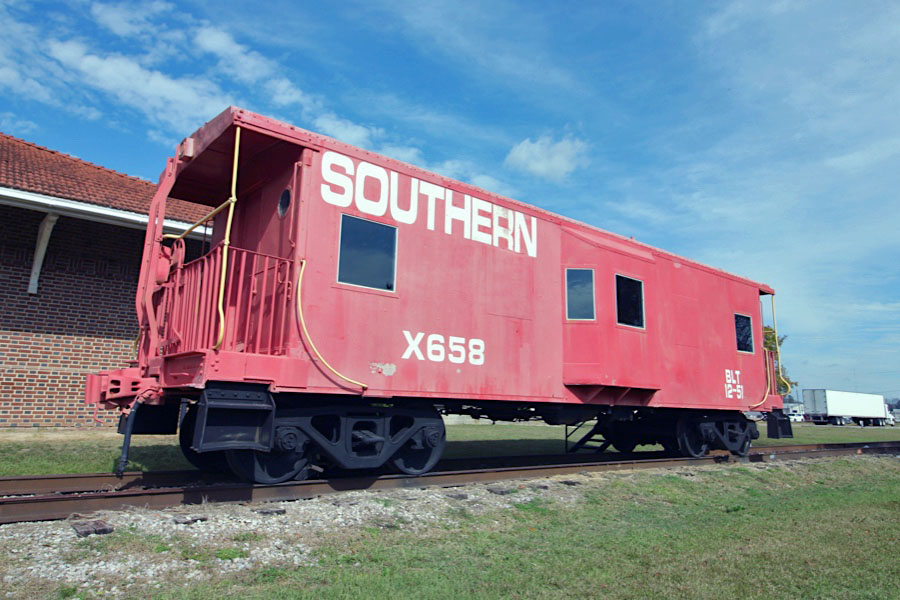
Fayette, Al / Oct 2022 / RWH
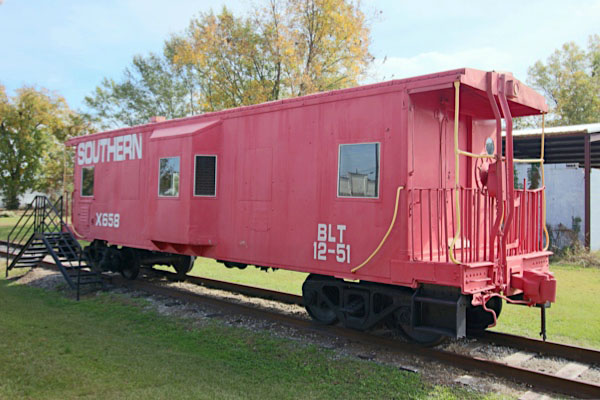
Fayette, Al / Oct 2022 / RWH
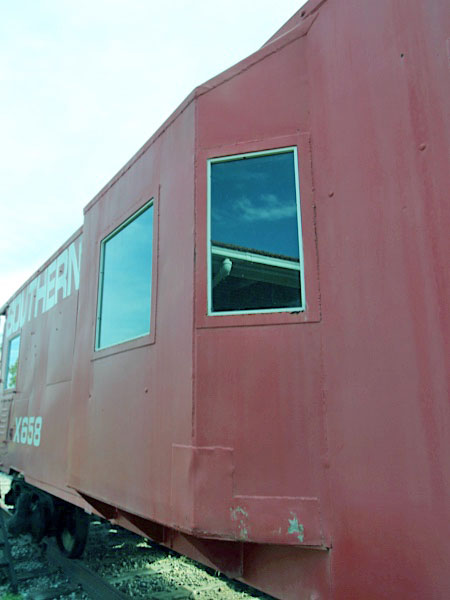
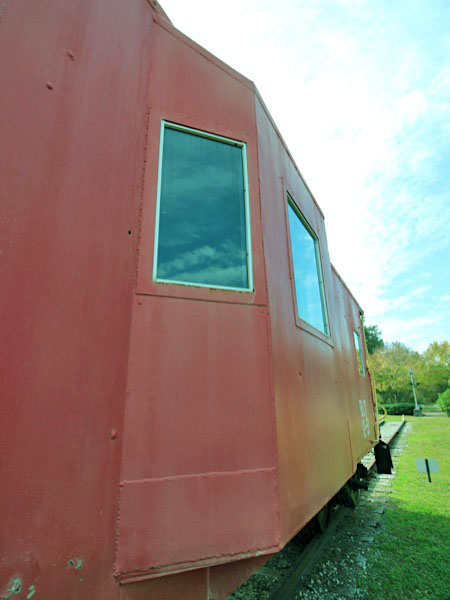
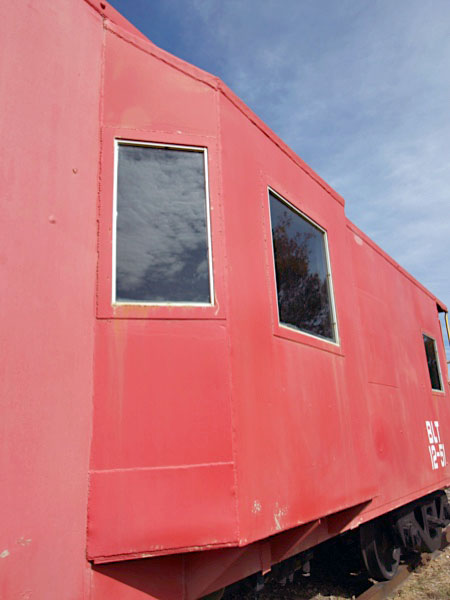
Oct 2022 / RWH
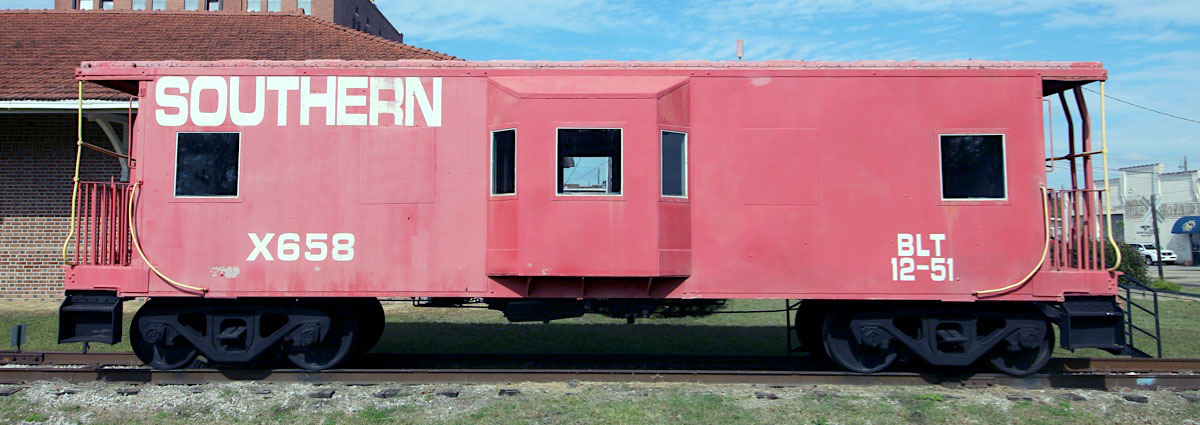
Fayette, Al / Oct 2022 / RWH
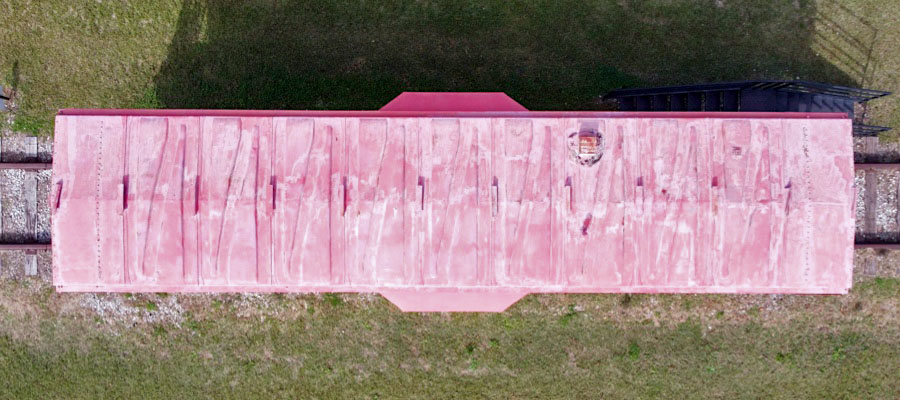
Oct 2022 / RWH
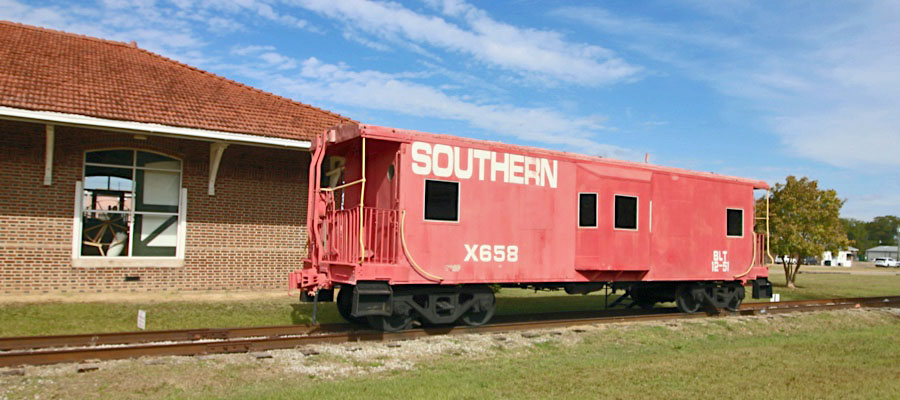
Fayette, Al / Oct 2022 / RWH
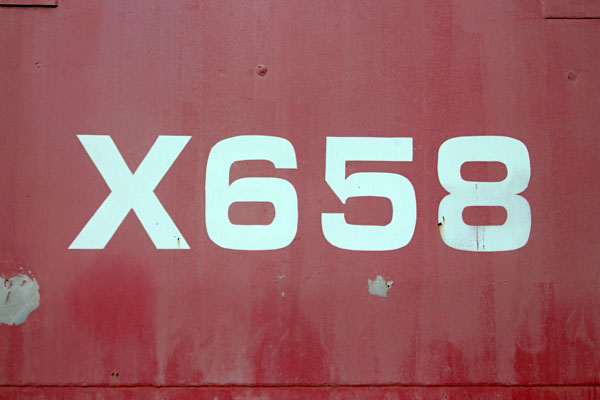
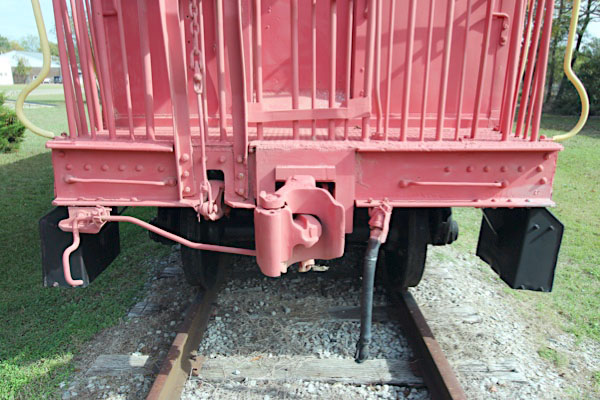
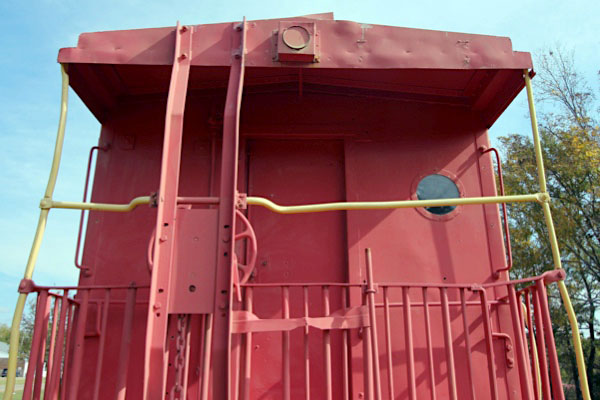
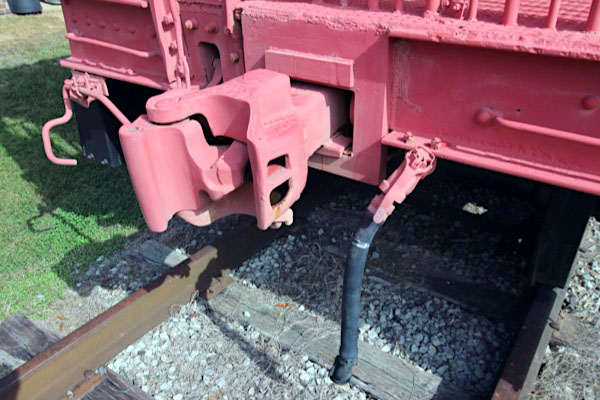
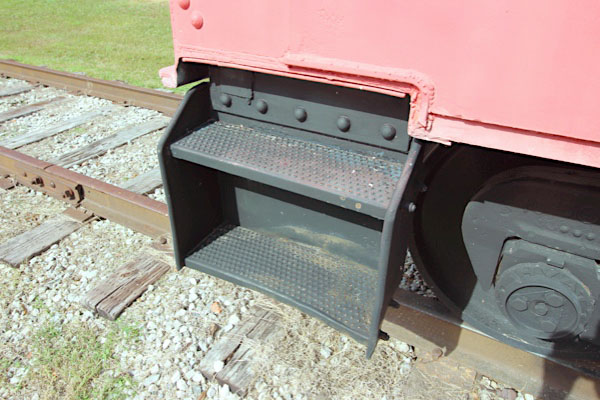
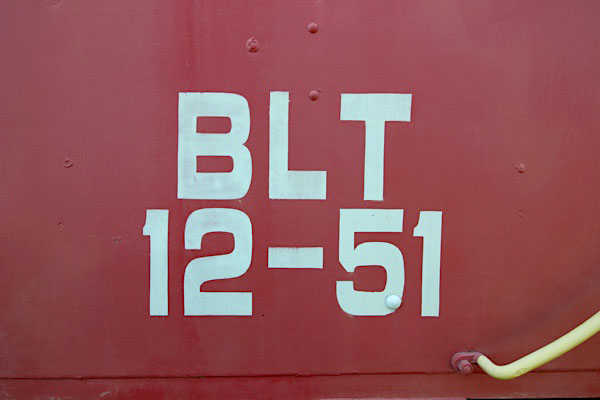
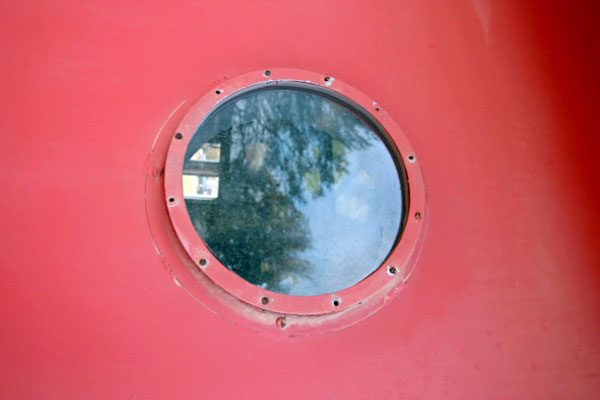
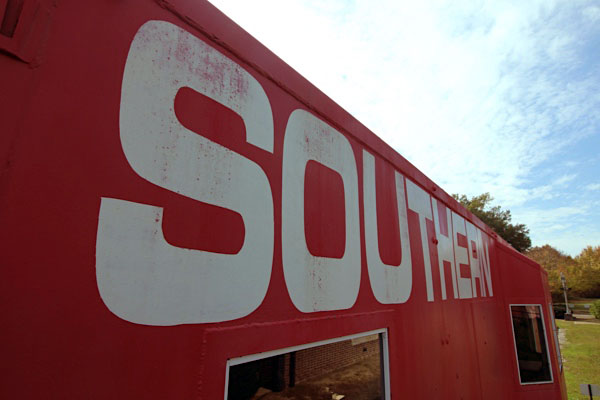
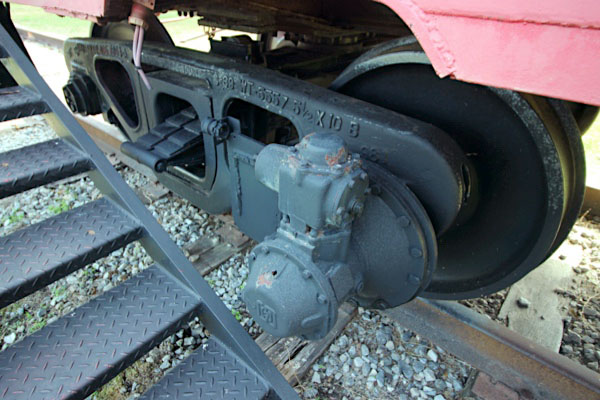
Oct 2022 / RWH
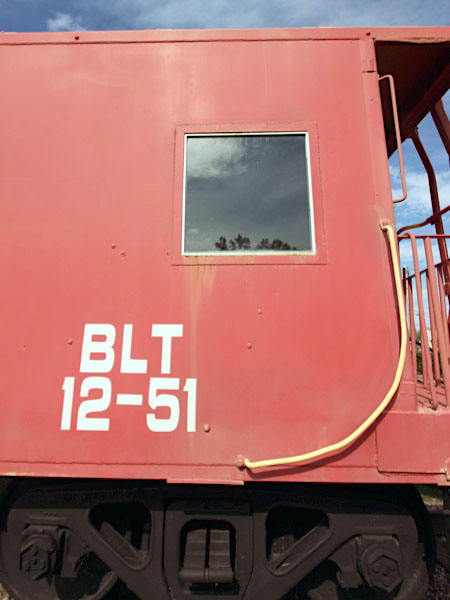
Oct 2022 / RWH
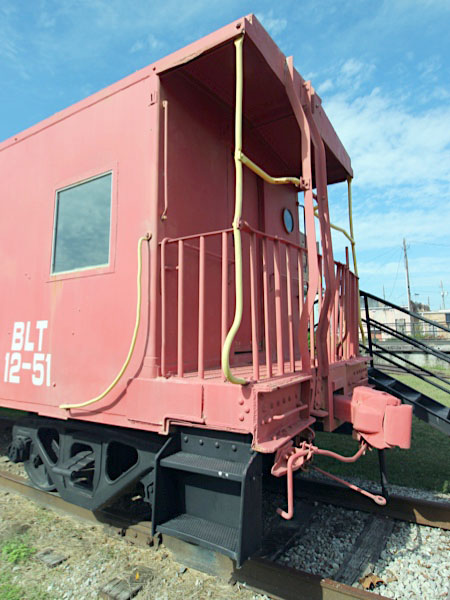
Oct 2022 / RWH
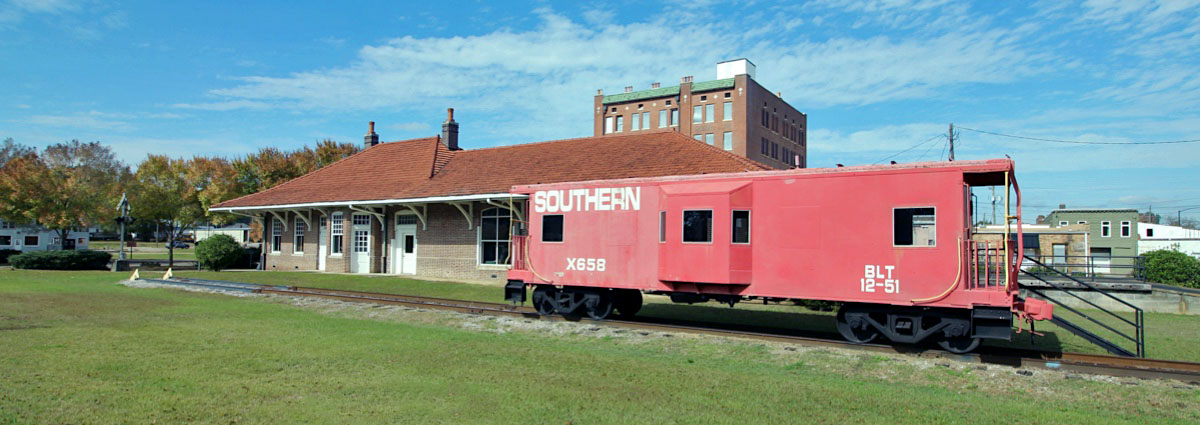
Fayette, Al / Oct 2022 / RWH

Fayette, Al / Oct 2022 / RWH
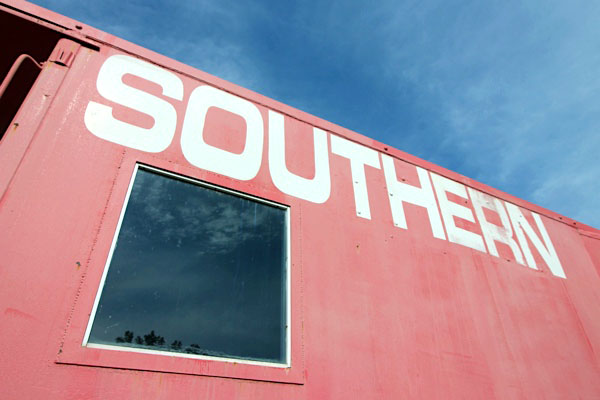
Oct 2022 / RWH

See also our complete Fayette Depot Museum scrapbook in Preservation
 Fort Payne
Fort Payne
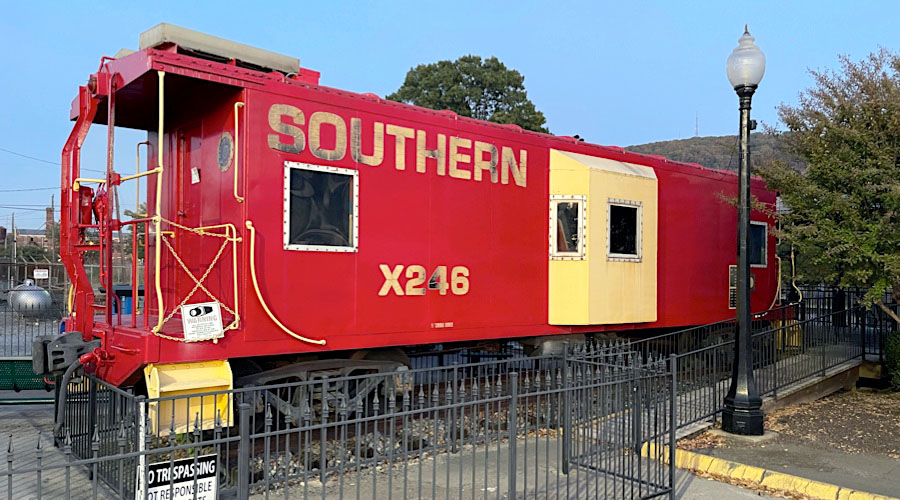
Southern Railway #X246
Fort Payne, Al / Oct 2022 / RWH
 outhern #X246 is nicely preserved at the Fort Payne Depot Museum in Fort Payne, Alabama, along the Norfolk Southern mainline between Birmingham and Chattanooga. The caboose was assigned to local service on the Southern, and retains its solar power roof panels and yellow bay window. It is painted and lettered accurately and as of 2022 is in good physical shape. Adjacent to a children's play area, the museum has converted the inside of the caboose into an educational space for the community.
outhern #X246 is nicely preserved at the Fort Payne Depot Museum in Fort Payne, Alabama, along the Norfolk Southern mainline between Birmingham and Chattanooga. The caboose was assigned to local service on the Southern, and retains its solar power roof panels and yellow bay window. It is painted and lettered accurately and as of 2022 is in good physical shape. Adjacent to a children's play area, the museum has converted the inside of the caboose into an educational space for the community.
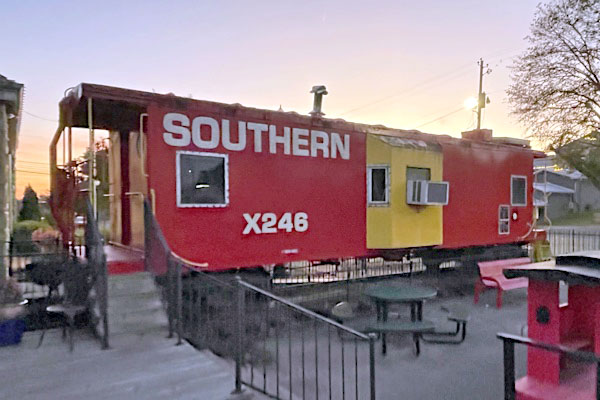
Fort Payne, Al / Oct 2022 / RWH
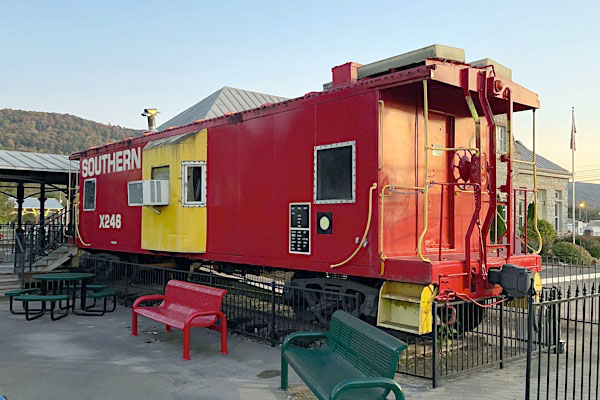
Fort Payne, Al / Oct 2022 / RWH
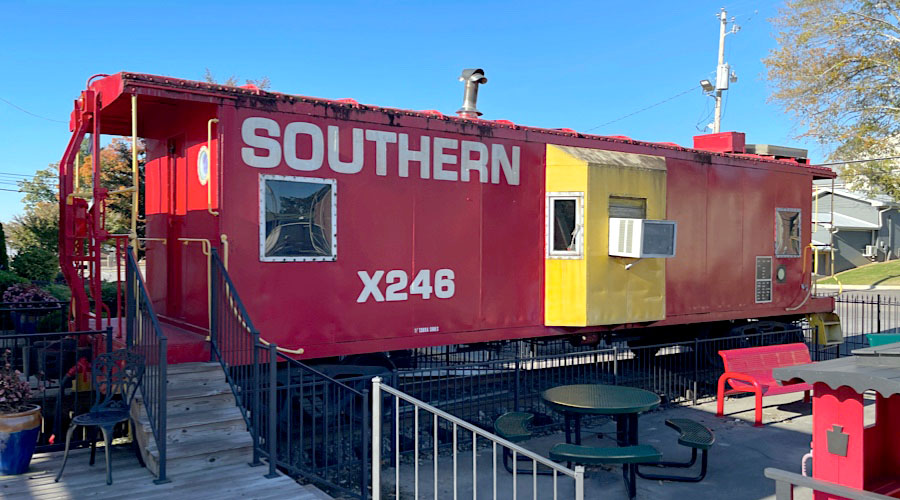
Fort Payne, Al / Oct 2022 / RWH
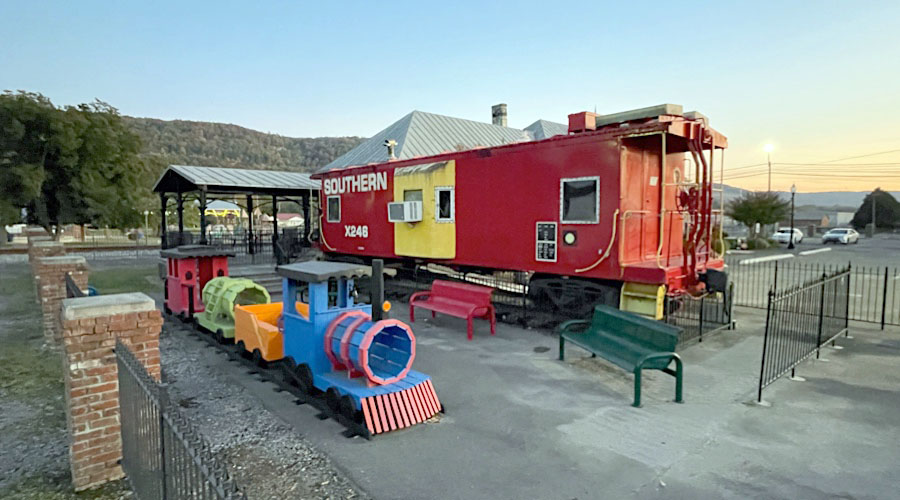
Fort Payne, Al / Oct 2022 / RWH
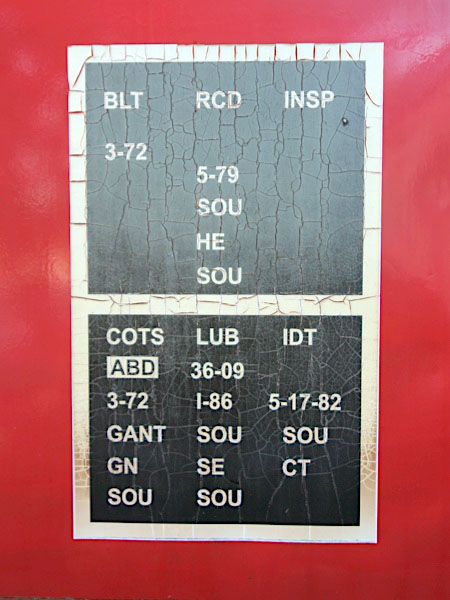
Oct 2022 / RWH
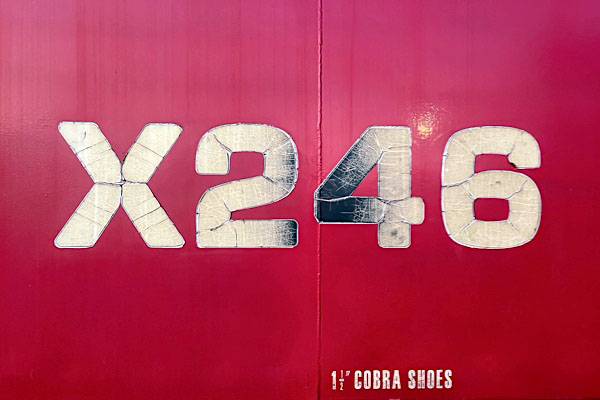
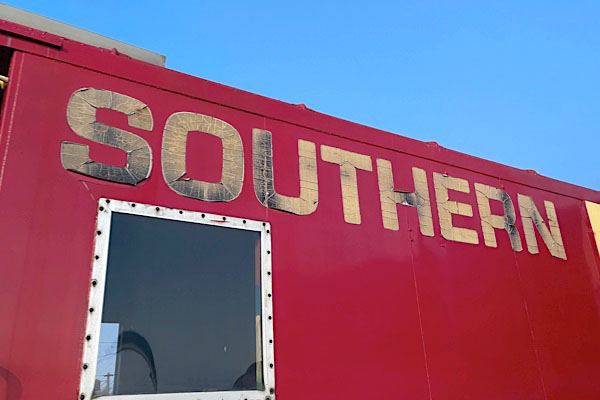
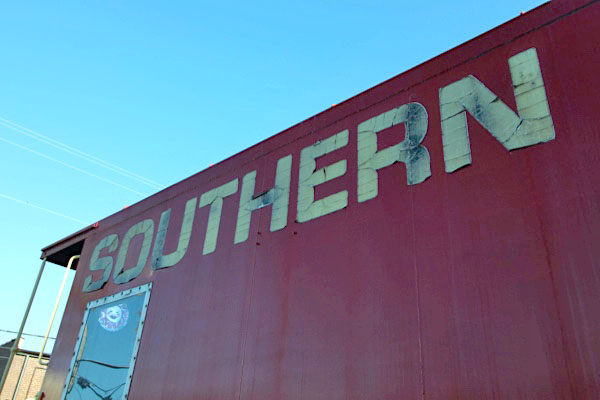
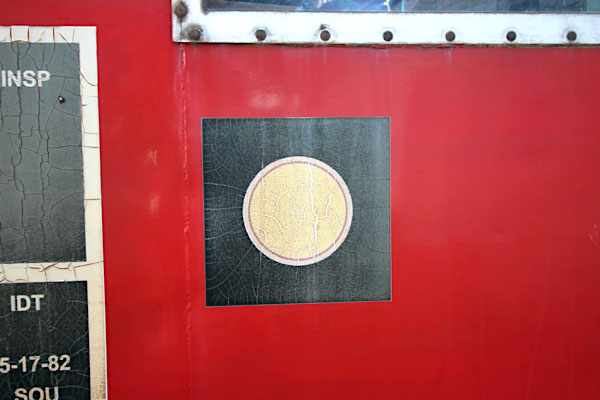
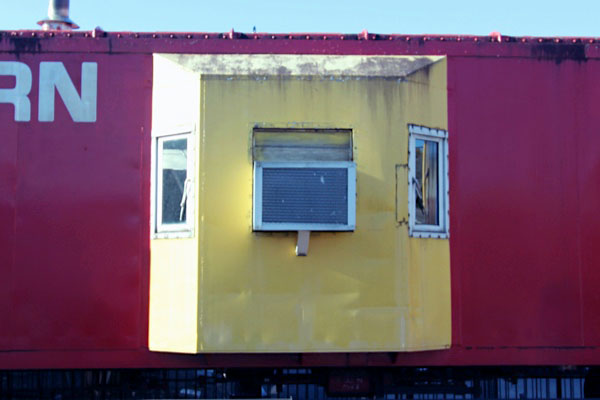
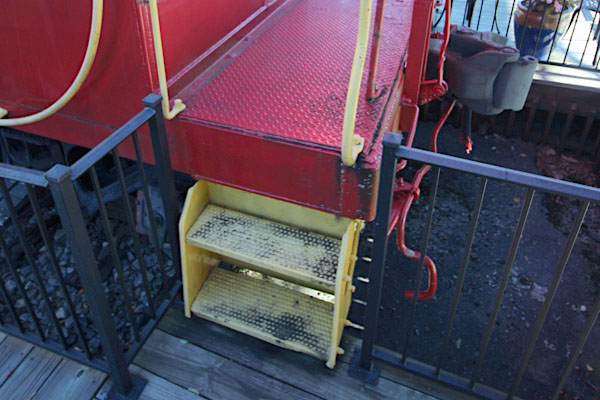
Oct 2022 / RWH
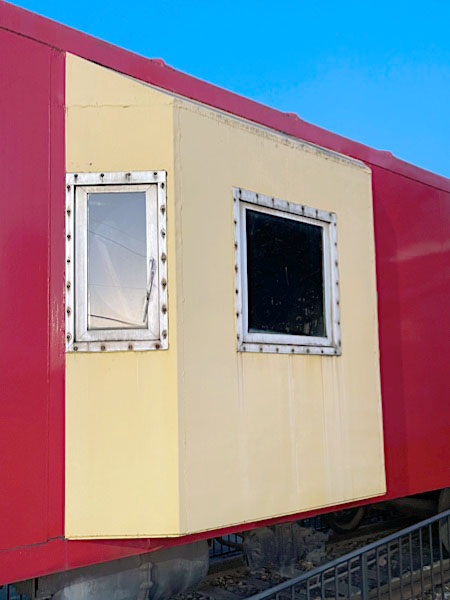
Oct 2022 / RWH
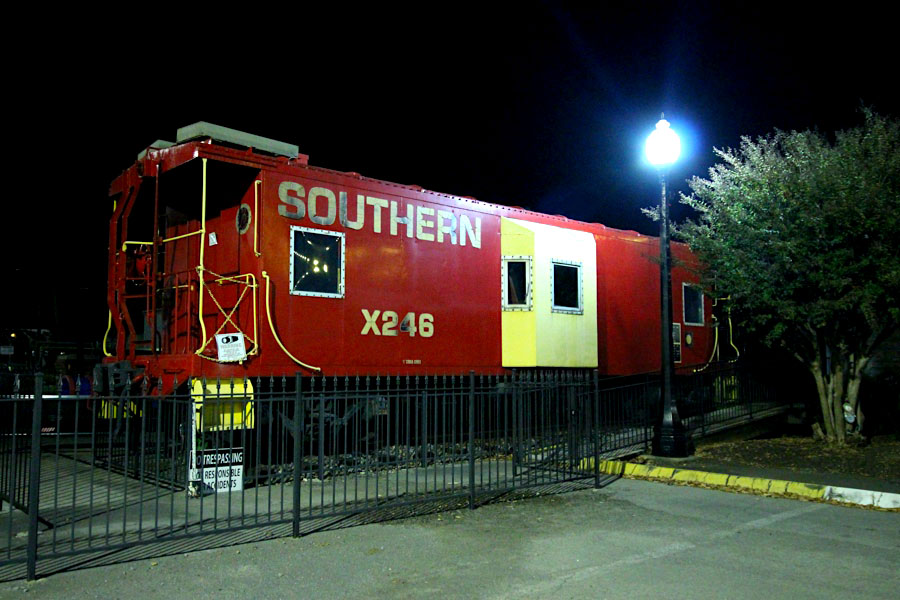
Fort Payne, Al / Oct 2022 / RWH
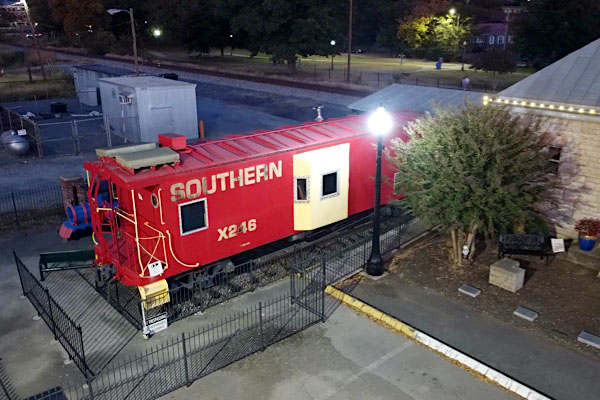
Fort Payne, Al / Oct 2022 / RWH
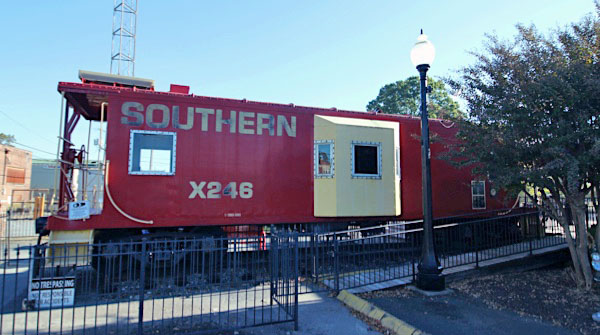
Oct 2022 / RWH
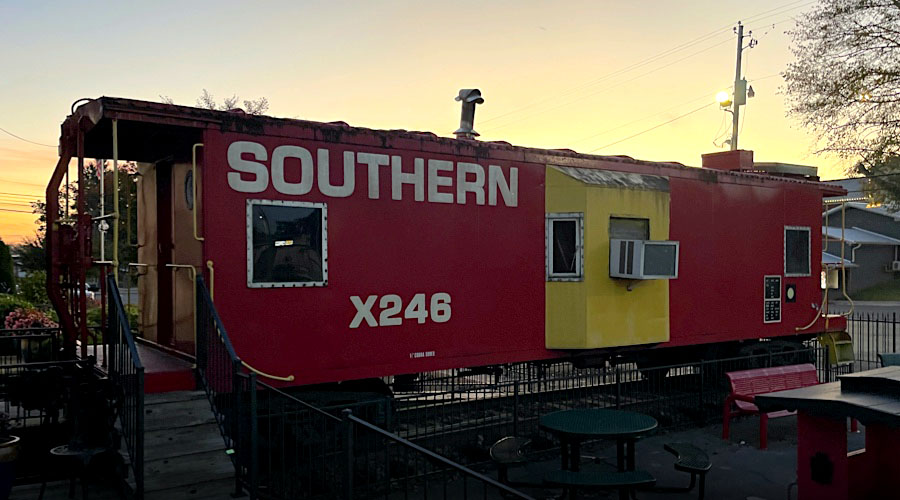
Fort Payne, Al / Oct 2022 / RWH

See also our complete Fort Payne Depot Museum scrapbook in Preservation
 Huntsville
Huntsville
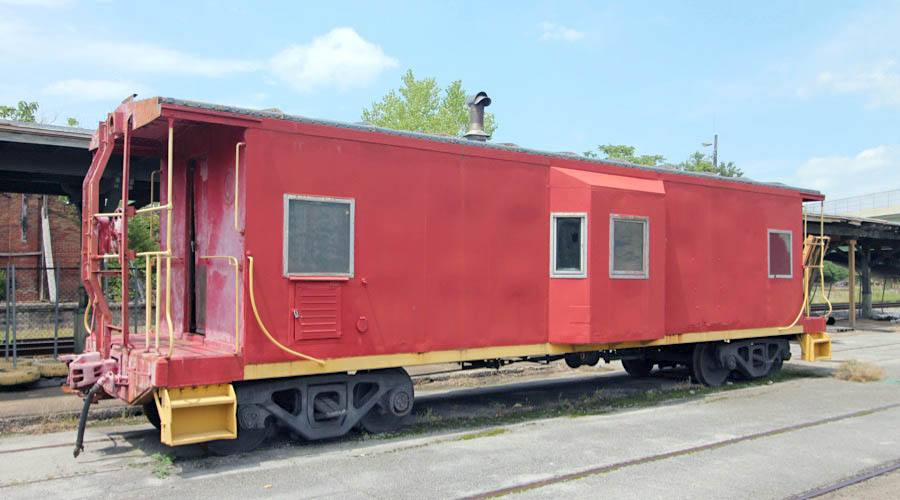
Southern Railway #X408
Huntsville, Al / Aug 2019 / RWH
 outhern #X408 is preserved in the rolling stock collection at the Historic Huntsville Depot in downtown Huntsville, Alabama. The car exhibits all the typical features of the later Southern bay windows, including end portholes, 4 square outside windows, bay window section painted red, and drop down steps mounted under the frame. As of 2019, the car wore authentic Southern red paint but was lacking all lettering and markings.
outhern #X408 is preserved in the rolling stock collection at the Historic Huntsville Depot in downtown Huntsville, Alabama. The car exhibits all the typical features of the later Southern bay windows, including end portholes, 4 square outside windows, bay window section painted red, and drop down steps mounted under the frame. As of 2019, the car wore authentic Southern red paint but was lacking all lettering and markings.

Click to see the Historic Huntsville Depot plotted on a Google Maps page
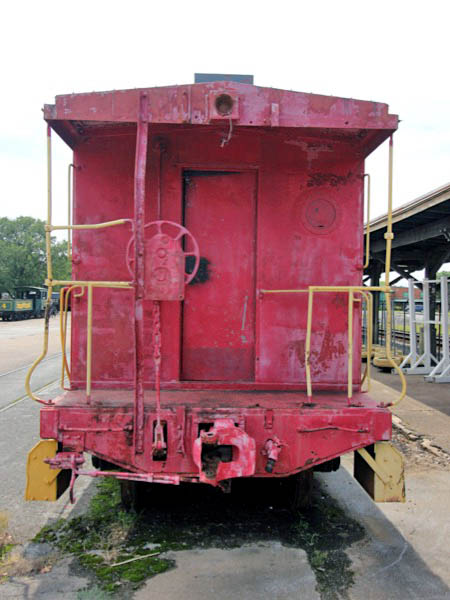
Aug 2019 / RWH
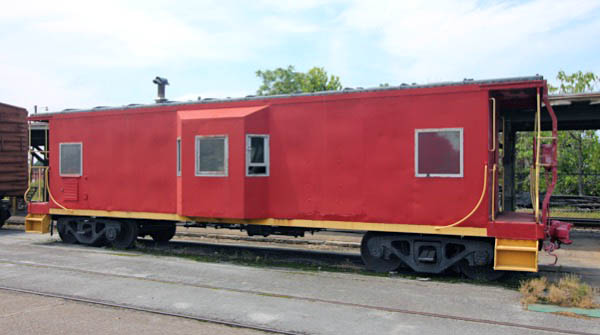
Huntsville, Al / Aug 2019 / RWH
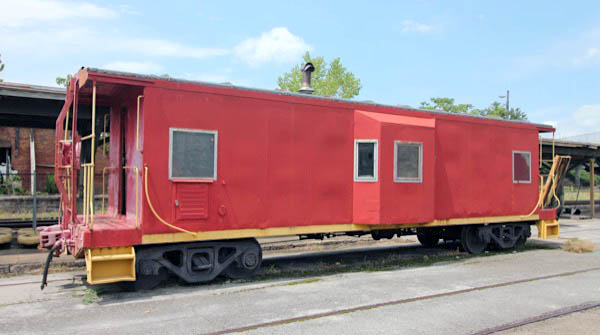
Huntsville, Al / Aug 2019 / RWH
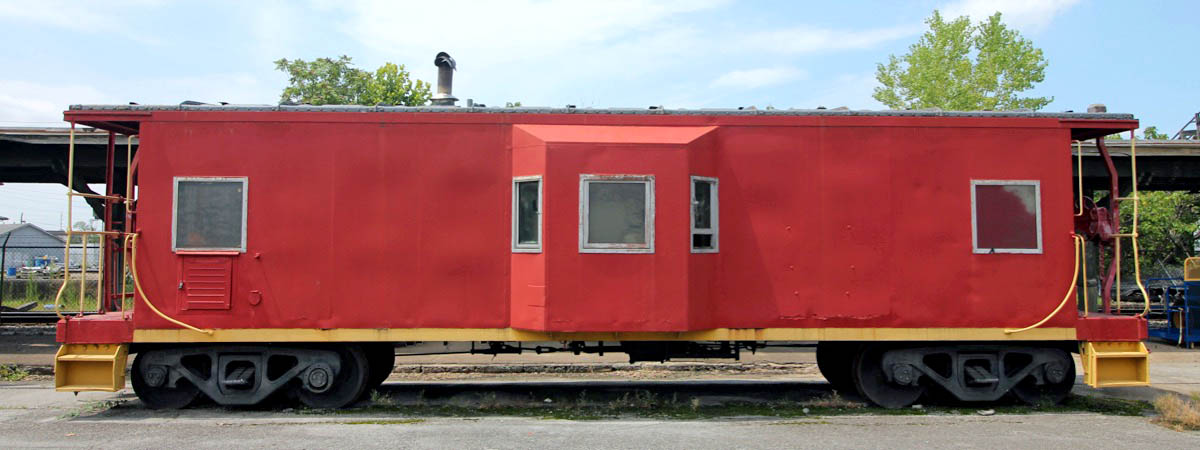
Huntsville, Al / Aug 2019 / RWH
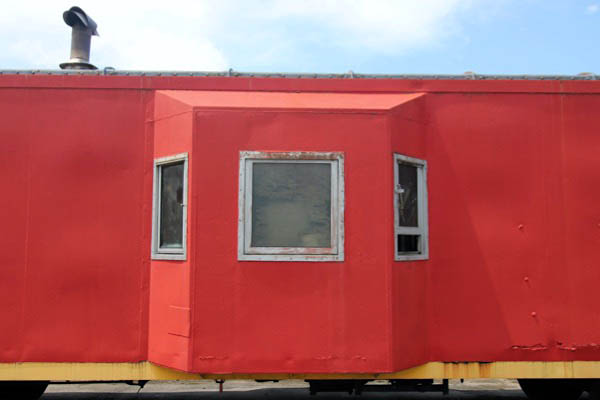
Aug 2019 / RWH

See also our complete Historic Huntsville Depot scrapbook in Preservation
 Irondale
Irondale
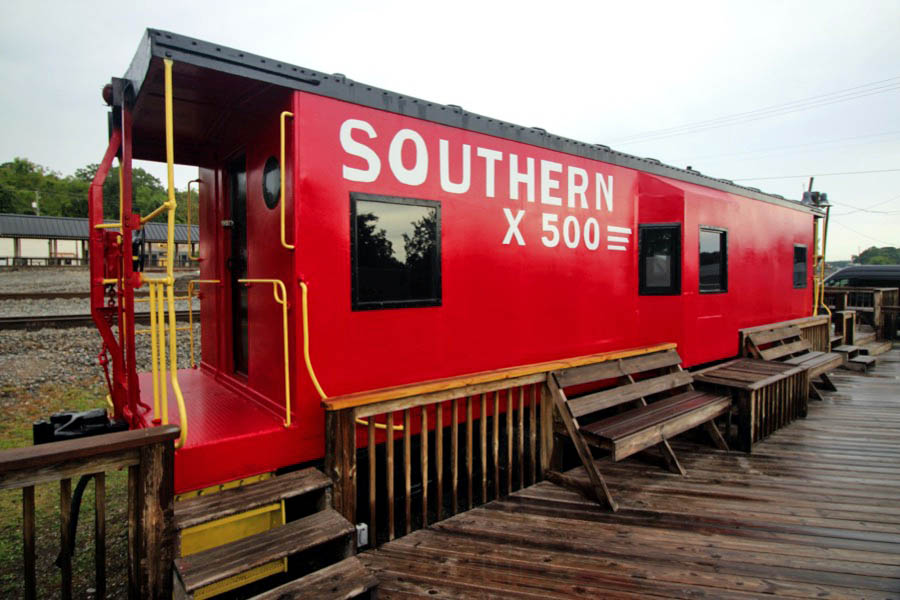
Southern Railway #X500
Irondale, Al / Aug 2021 / RWH
 outhern #X500 is preserved on display at the Irondale Train Watching Platform in Irondale, Alabama, east of Birmingham. The car is located adjacent to a raised wooden decking offering views of the western throat of Norfolk Southern's active Norris Yard. As of 2021, the caboose wears an authentic Southern caboose red, but has been trimmed in black paint and bears no marking data other than inauthentic lettering.
outhern #X500 is preserved on display at the Irondale Train Watching Platform in Irondale, Alabama, east of Birmingham. The car is located adjacent to a raised wooden decking offering views of the western throat of Norfolk Southern's active Norris Yard. As of 2021, the caboose wears an authentic Southern caboose red, but has been trimmed in black paint and bears no marking data other than inauthentic lettering.

Click to see the Irondale Train Watching Platform area plotted on a Google Maps page
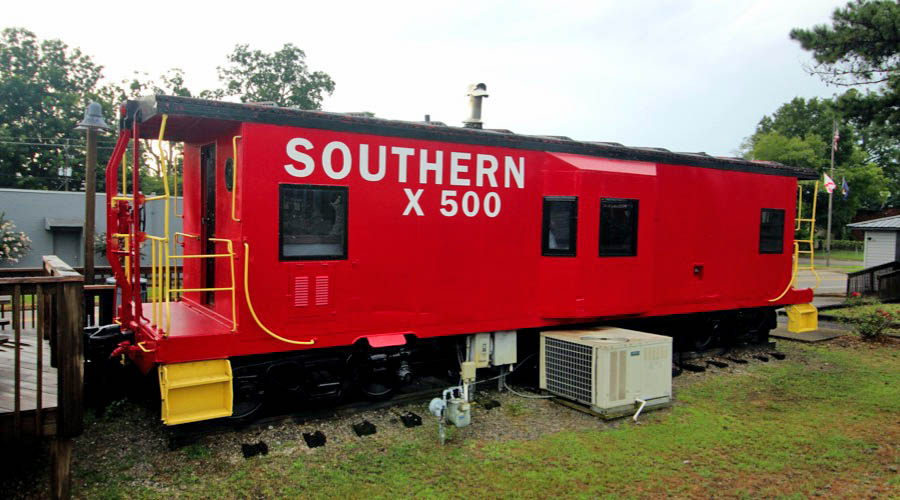
Irondale, Al / Aug 2021 / RWH
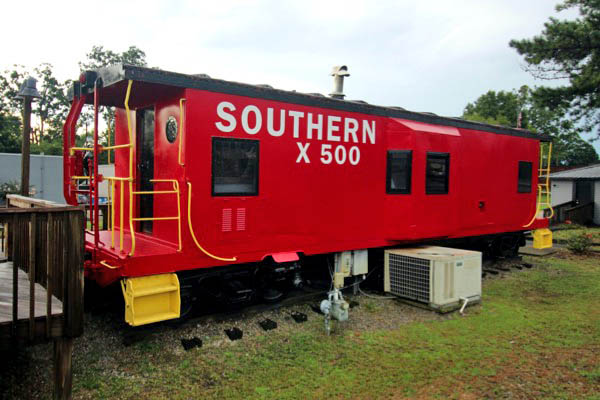
Irondale, Al / Aug 2021 / RWH
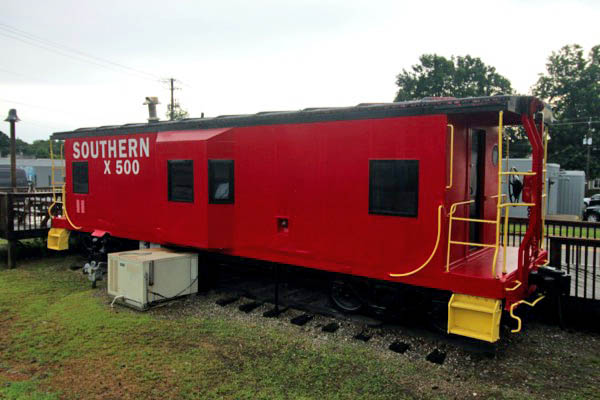
Irondale, Al / Aug 2021 / RWH
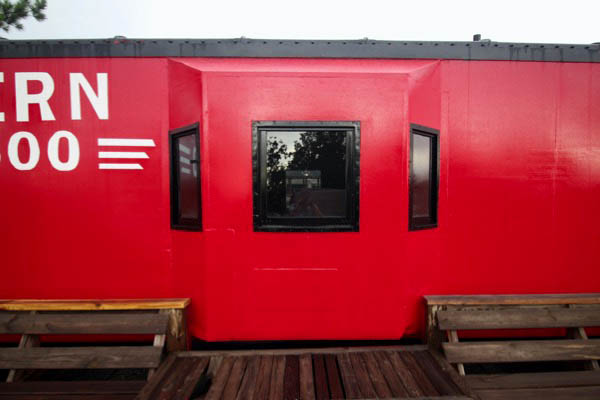
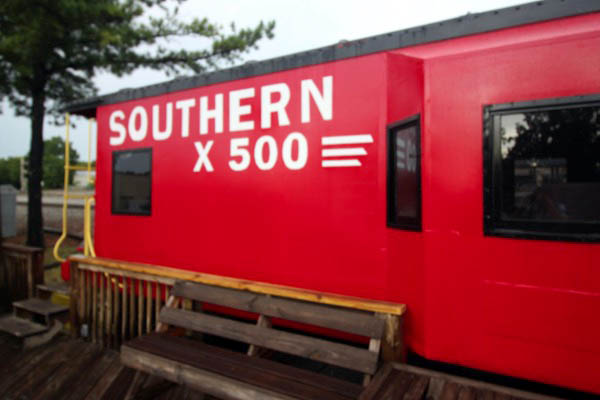
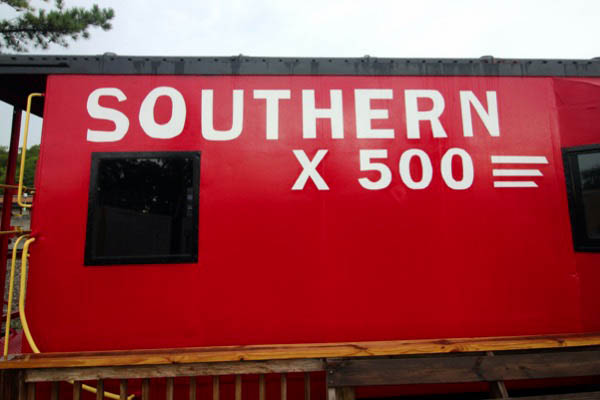
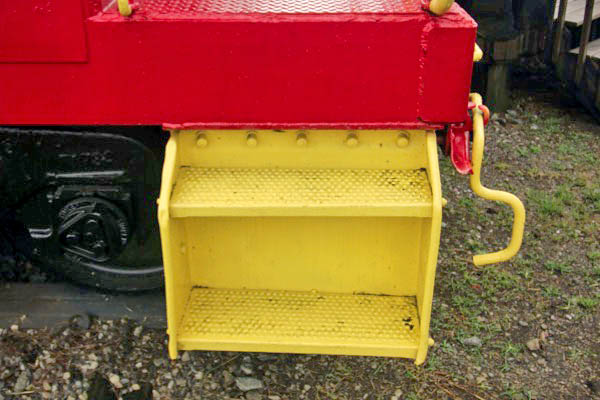
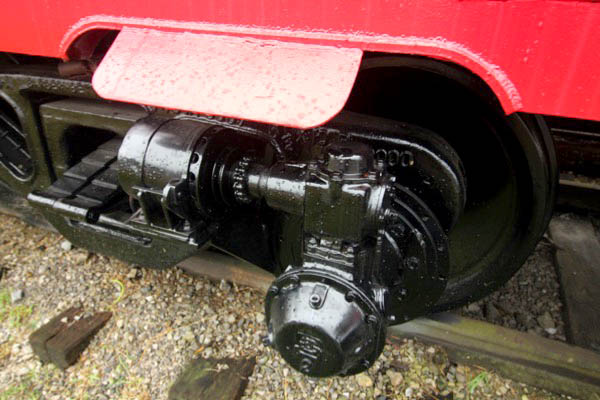
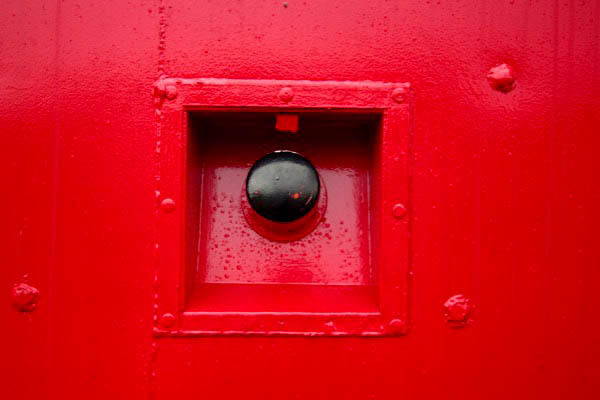
Aug 2021 / RWH
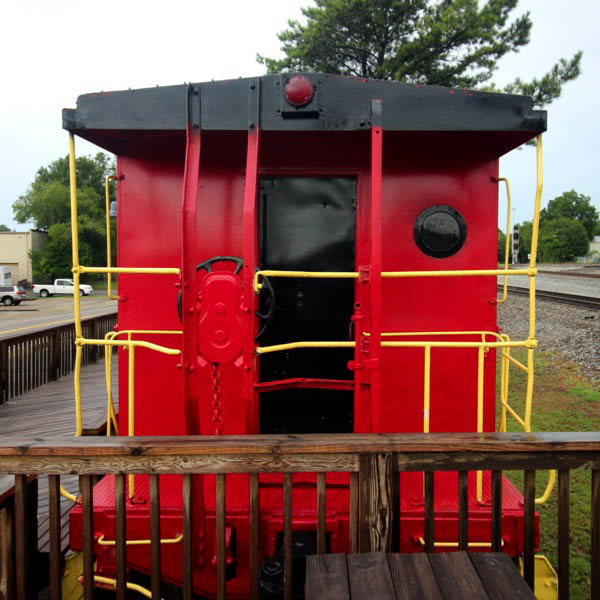
Aug 2021 / RWH
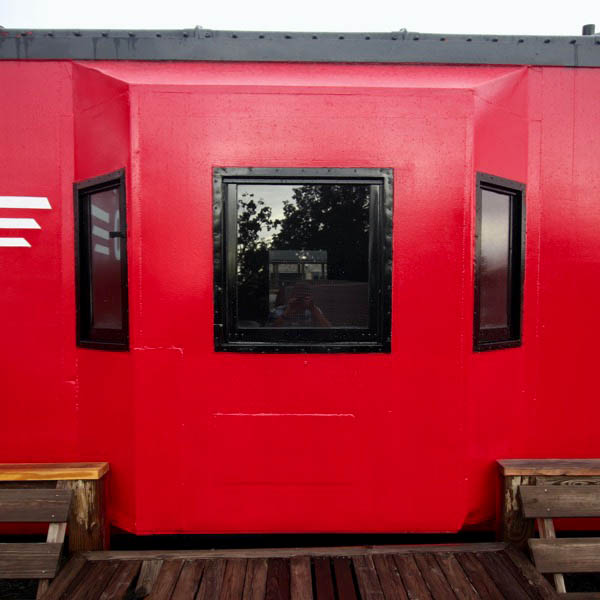
Aug 2021 / RWH
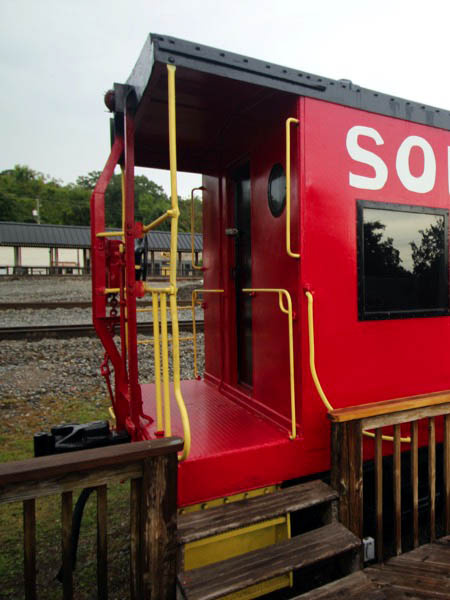
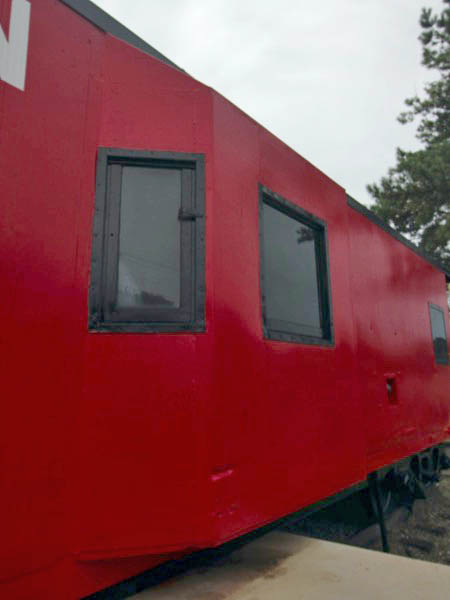
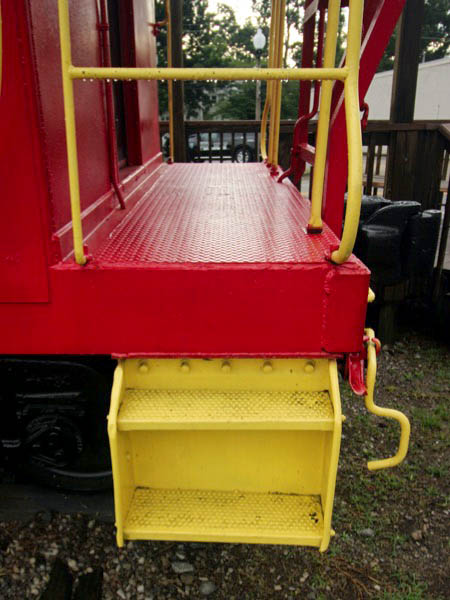
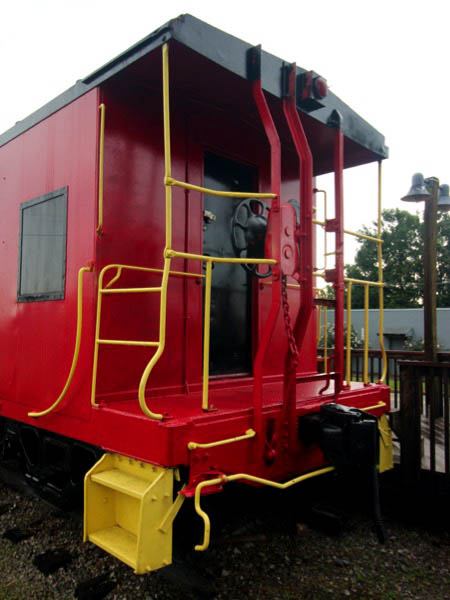
Aug 2021 / RWH
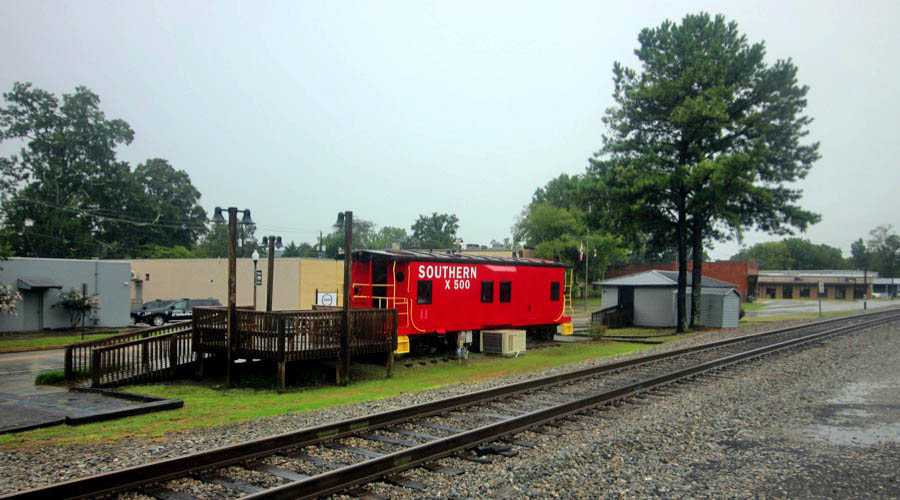
Irondale, Al / Aug 2021 / RWH

See also our complete Irondale Train Watching Platform scrapbook in Preservation
 LaFayette
LaFayette
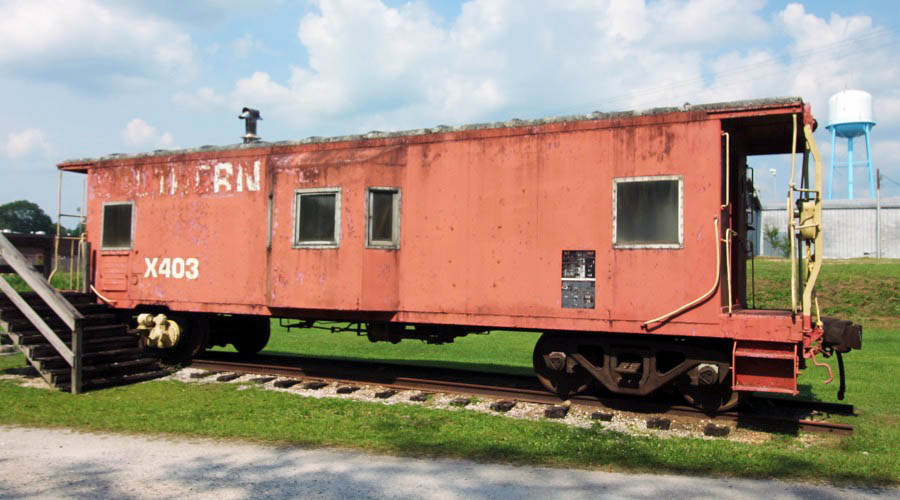
Southern Railway #X403
LaFayette, Al / Jul 2023 / RWH
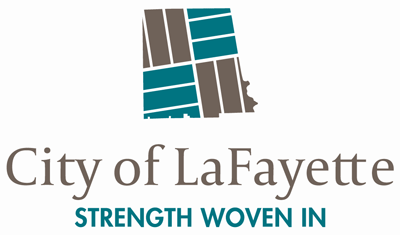
 outhern #X403 is displayed near the former Central of Georgia Railway depot in LaFayette, Alabama, southeast of Birmingham, near the Georgia state line. The display track for the car sits parallel to the former CG branchline between Opelika and Roanoke. The segment north of LaFayette was abandoned in 1982; shortline Pine Belt Souther Railroad operated the segment south of LaFayette to Roanoke Junction until 2001. LaFayette was also the northern terminus of the tiny LaFayette Railway, also abandoned. The Central depot still resides along First Avenue, a few blocks west of downtown. As of 2023, caboose X403 was in solid physical shape but in need of a cosmetic overhaul — the red carbody paint and yellow highlights being severely faded from the elements. The short-body caboose was built new with only four side windows, and still sports all its major appliances. Technical data markers are still present on both sides of the car, albeit faded. A wooden staircase and deck have been erected at one end of the car. The adjacent branchline right-of-way is now completely covered with grass.
outhern #X403 is displayed near the former Central of Georgia Railway depot in LaFayette, Alabama, southeast of Birmingham, near the Georgia state line. The display track for the car sits parallel to the former CG branchline between Opelika and Roanoke. The segment north of LaFayette was abandoned in 1982; shortline Pine Belt Souther Railroad operated the segment south of LaFayette to Roanoke Junction until 2001. LaFayette was also the northern terminus of the tiny LaFayette Railway, also abandoned. The Central depot still resides along First Avenue, a few blocks west of downtown. As of 2023, caboose X403 was in solid physical shape but in need of a cosmetic overhaul — the red carbody paint and yellow highlights being severely faded from the elements. The short-body caboose was built new with only four side windows, and still sports all its major appliances. Technical data markers are still present on both sides of the car, albeit faded. A wooden staircase and deck have been erected at one end of the car. The adjacent branchline right-of-way is now completely covered with grass.

Click to see the Central of Georgia depot area plotted on a Google Maps page
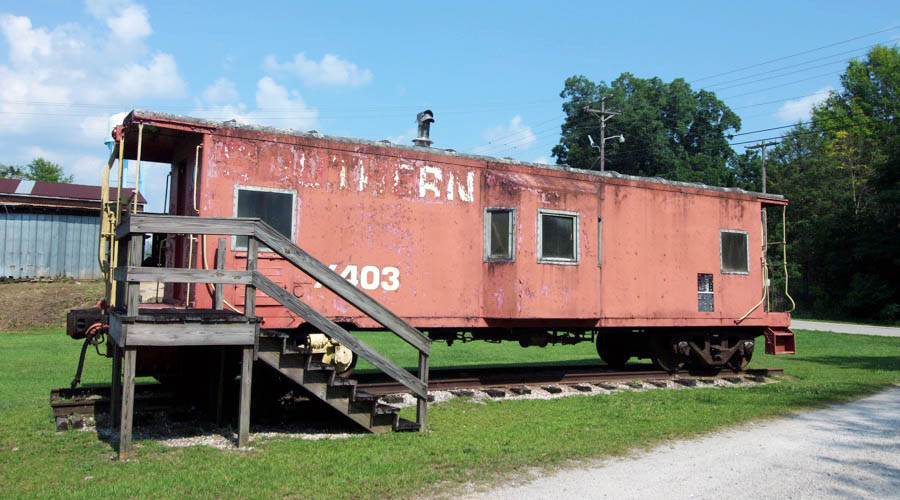
LaFayette, Al / Jul 2023 / RWH
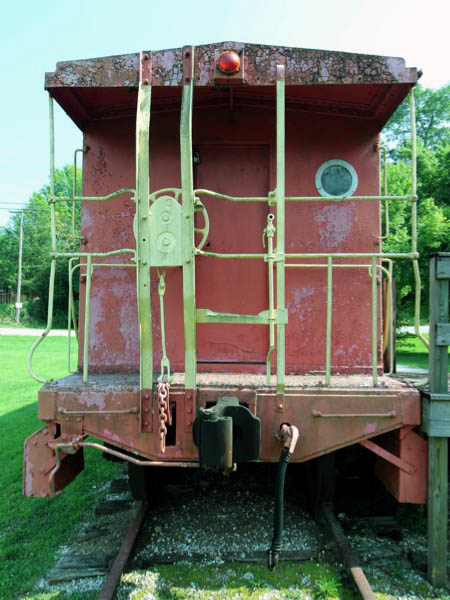
Jul 2023 / RWH
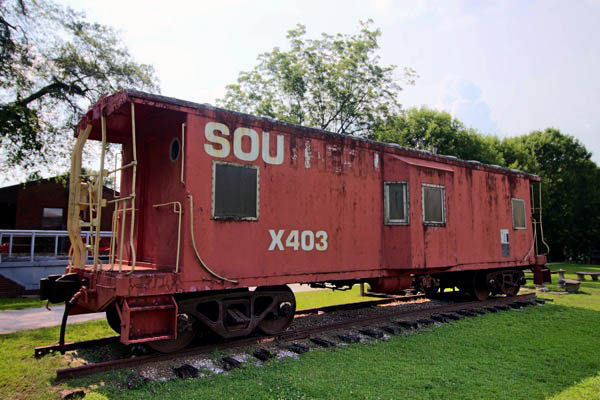
LaFayette, Al / Jul 2023 / RWH
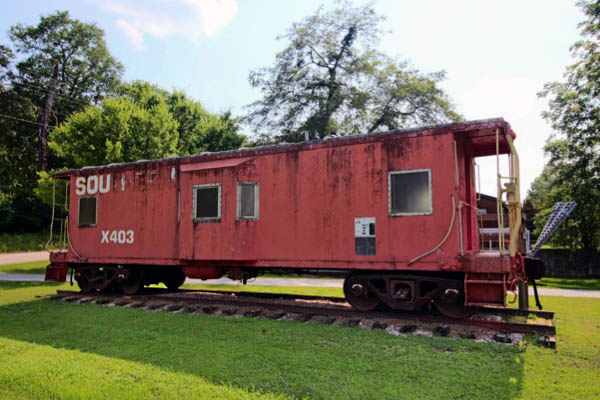
LaFayette, Al / Jul 2023 / RWH
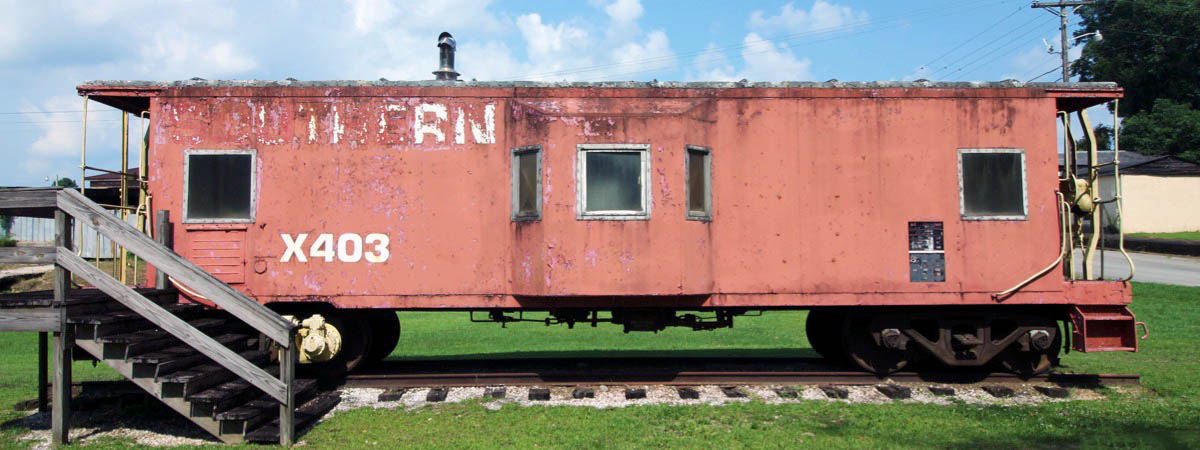
LaFayette, Al / Jul 2023 / RWH
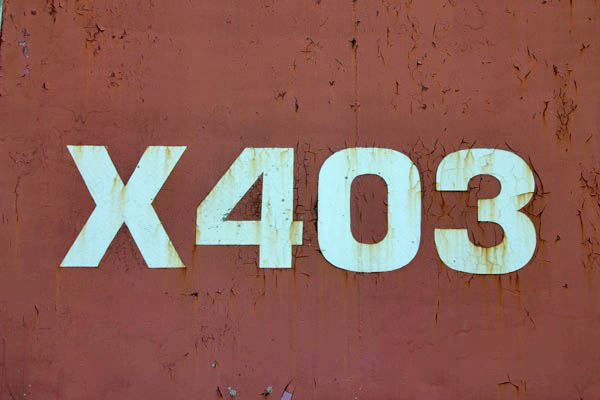
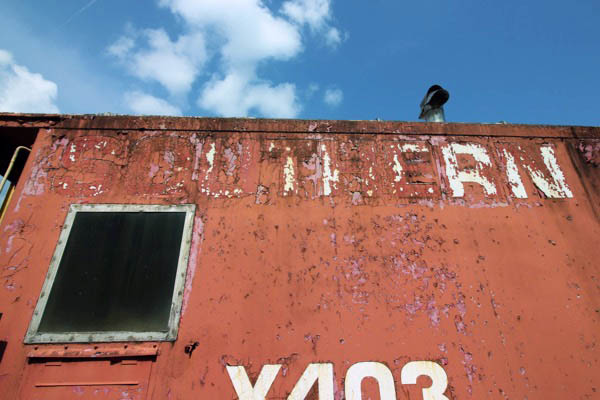
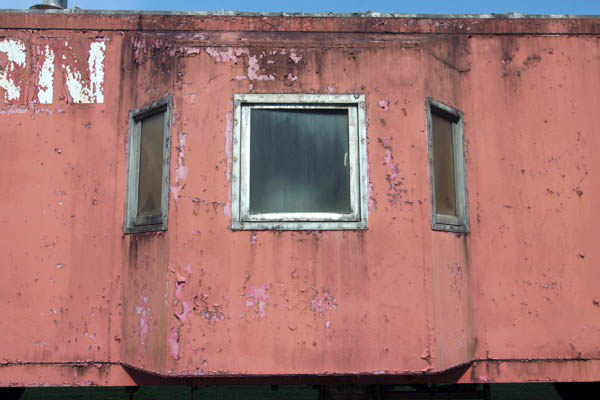
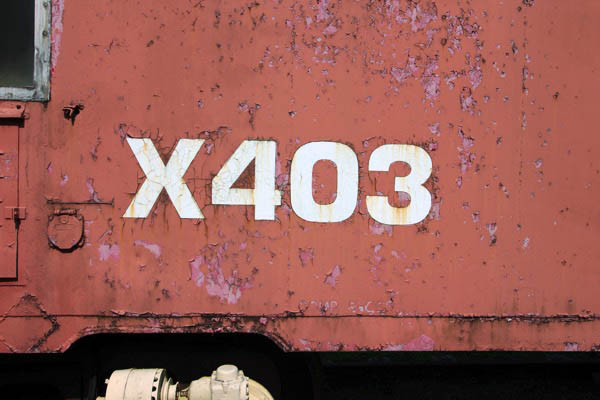
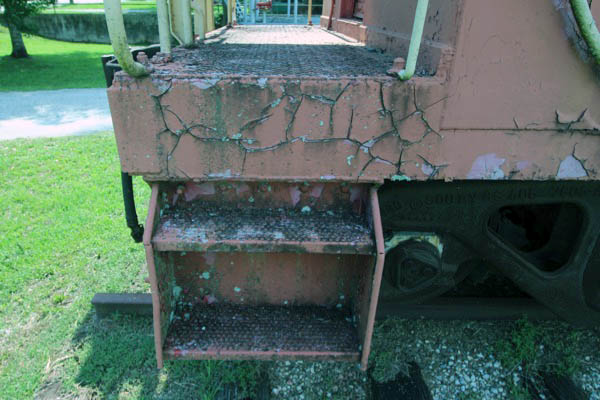
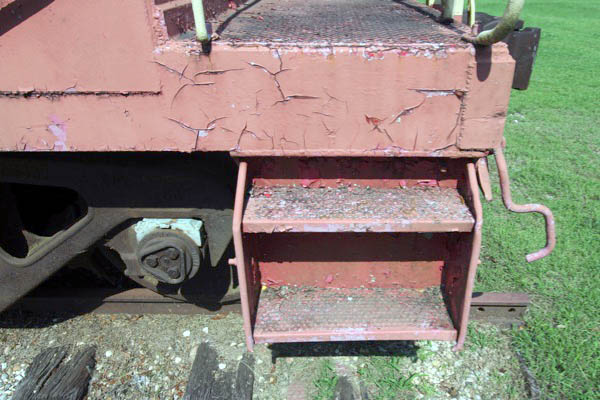
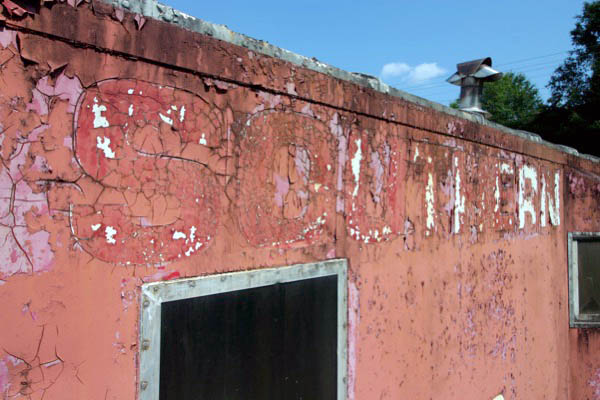
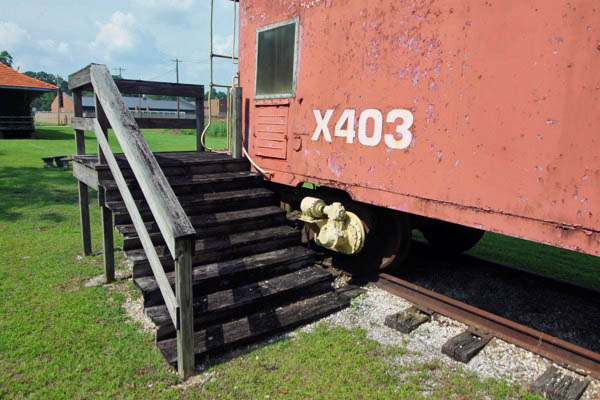
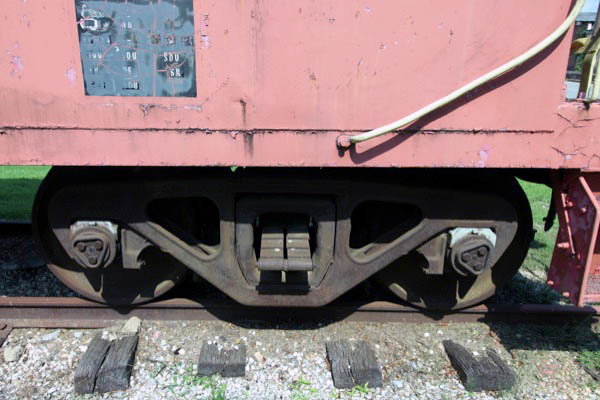
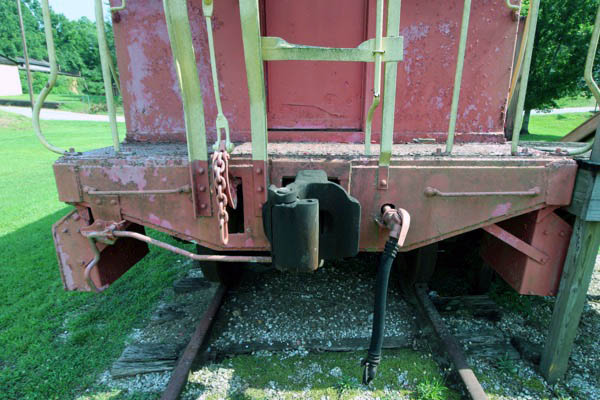
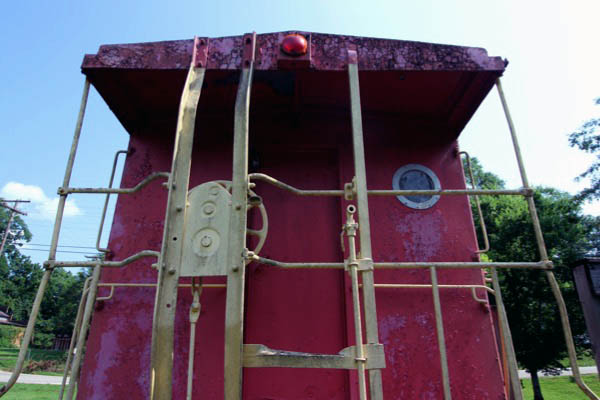
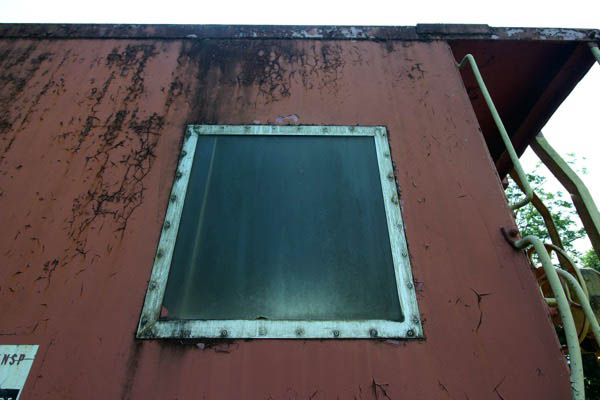
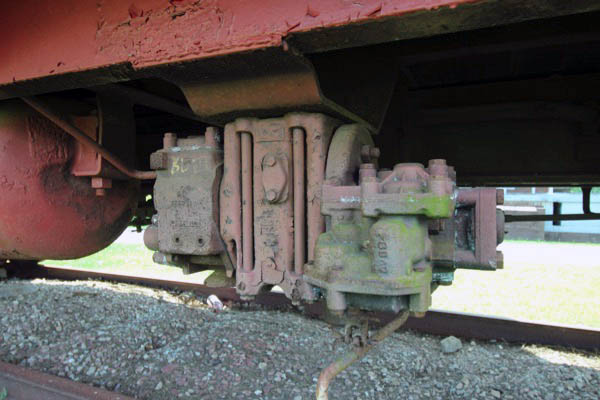
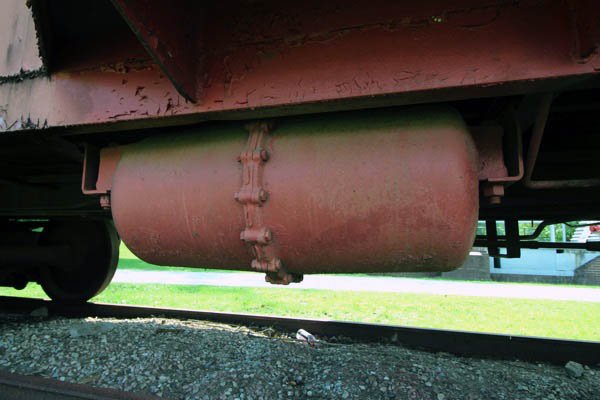
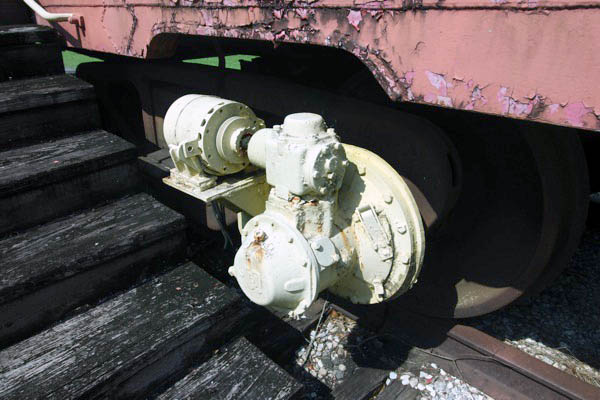
Jul 2023 / RWH
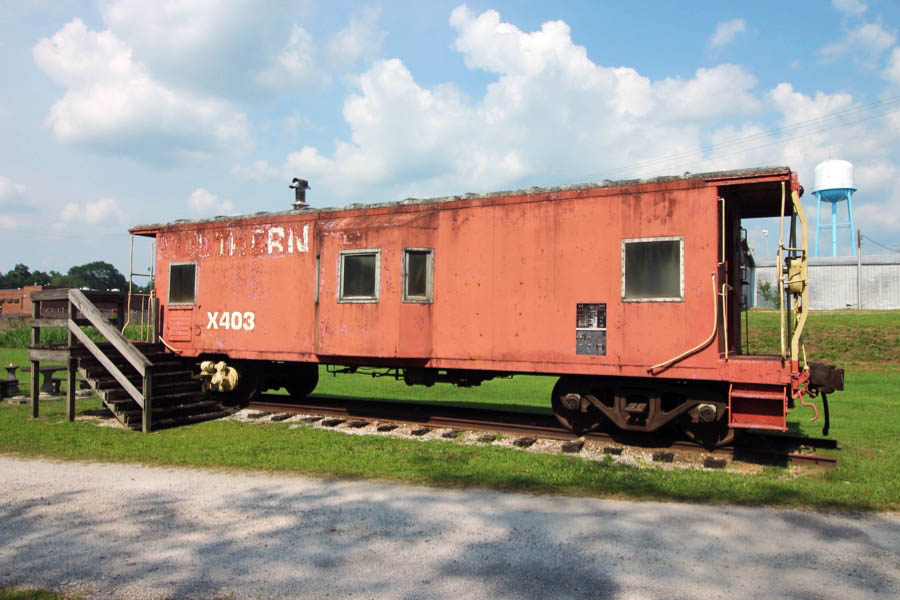
LaFayette, Al / Jul 2023 / RWH
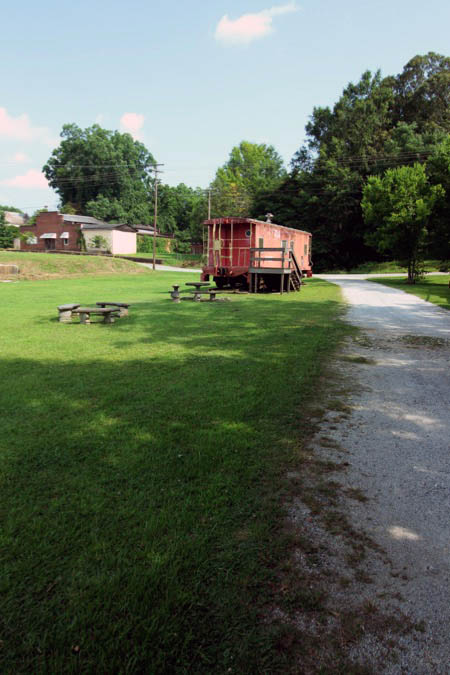
Jul 2023 / RWH
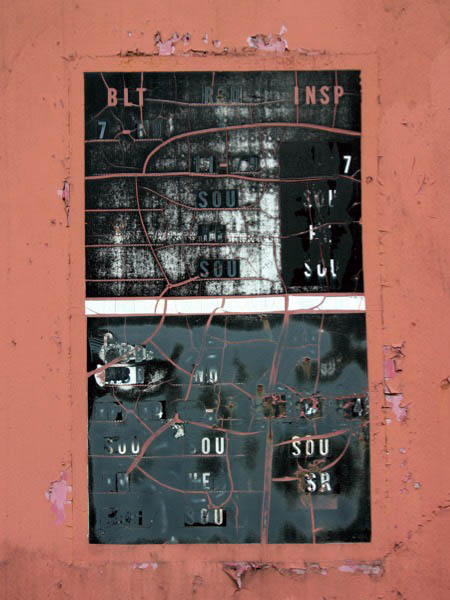
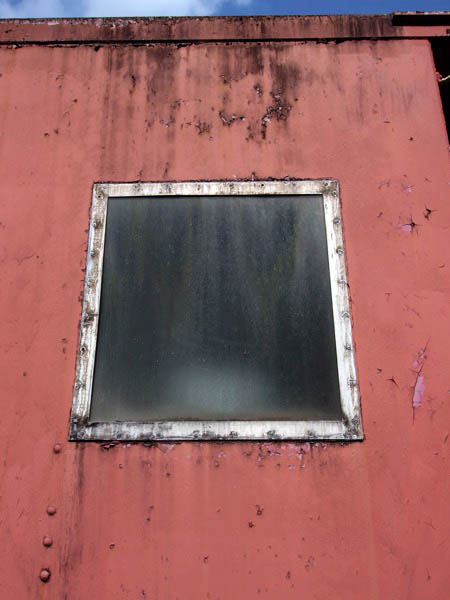
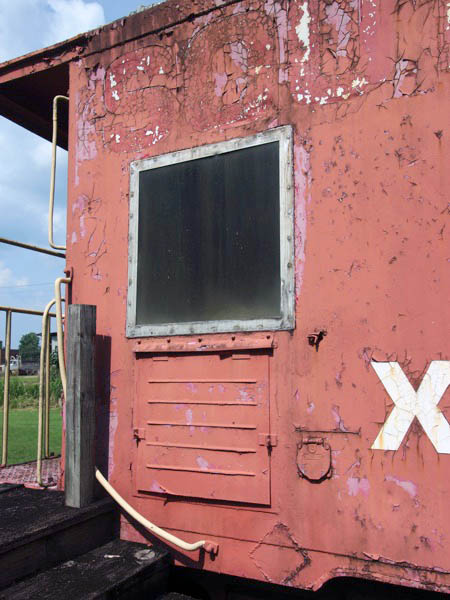
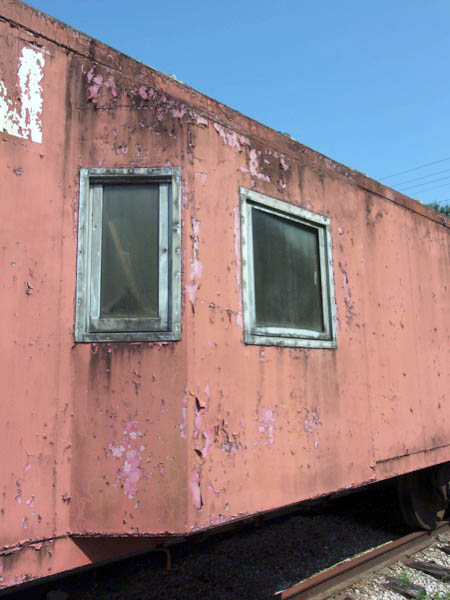
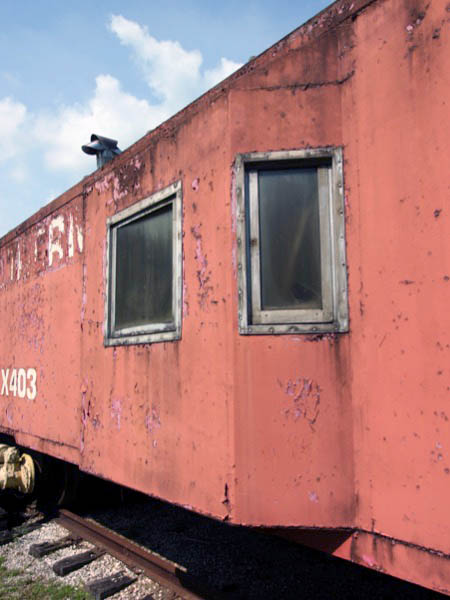
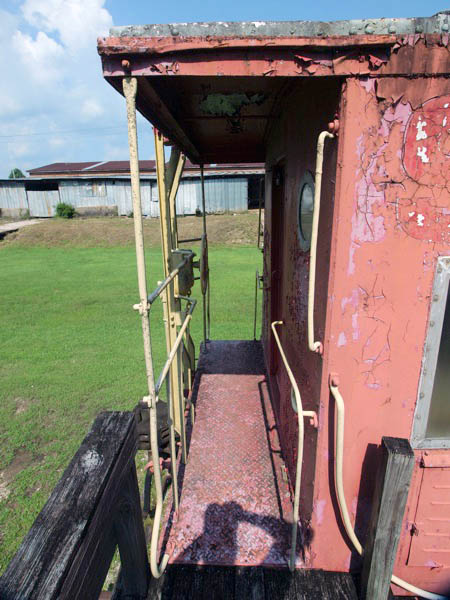
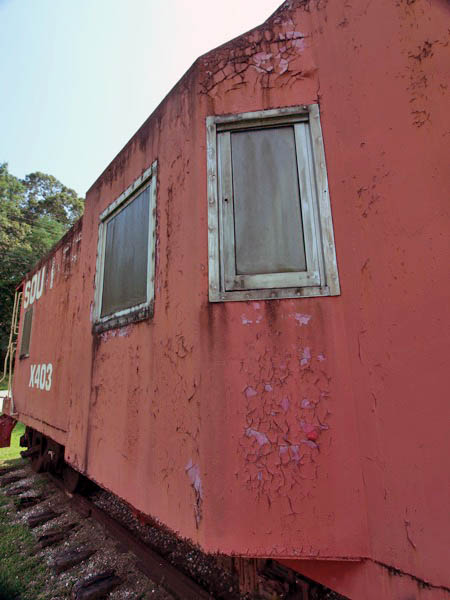
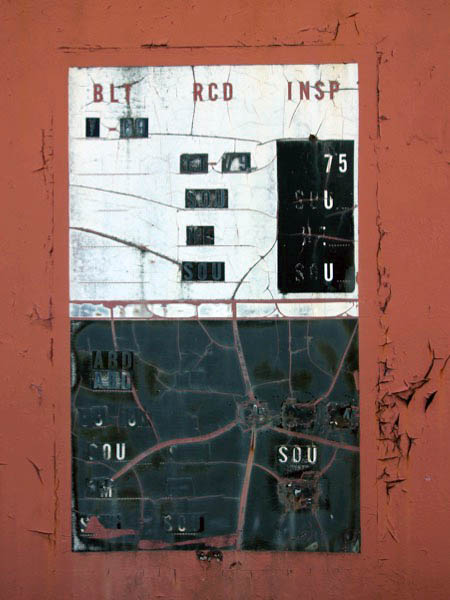
Jul 2023 / RWH
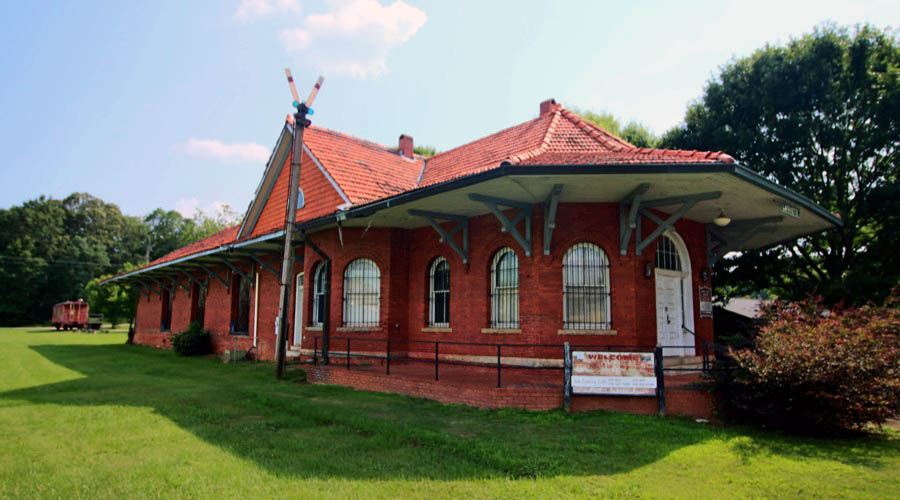
LaFayette, Al / Jul 2023 / RWH
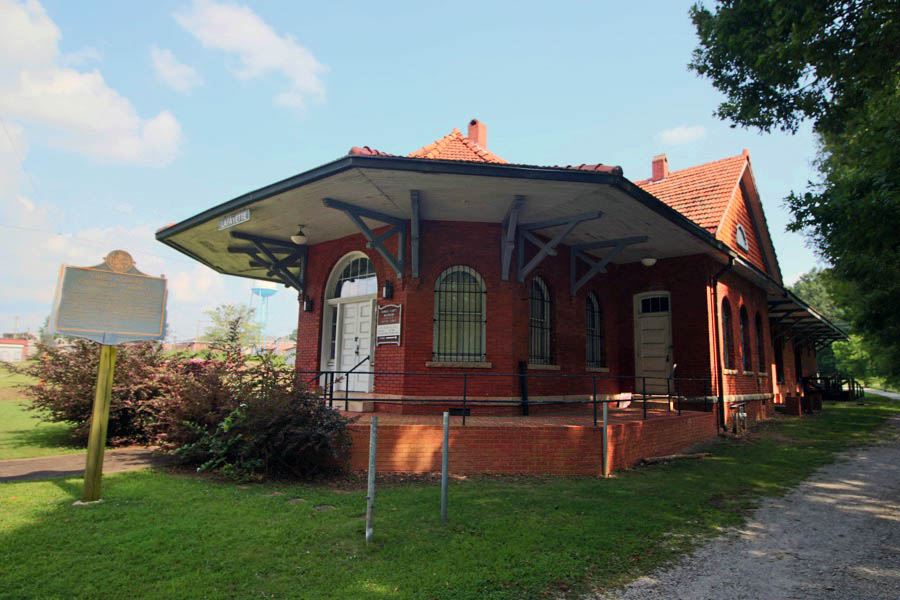
LaFayette, Al / Jul 2023 / RWH
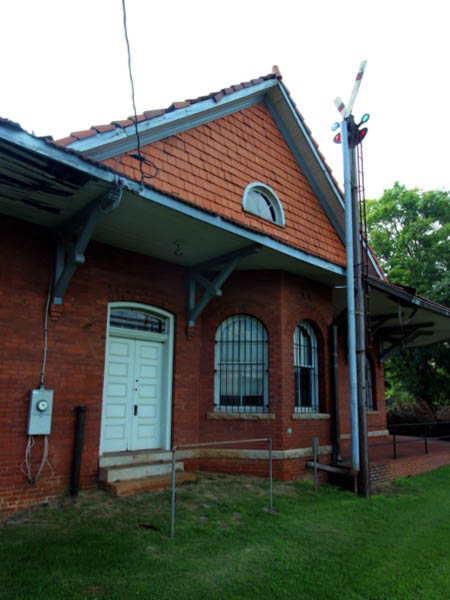
Jul 2023 / RWH
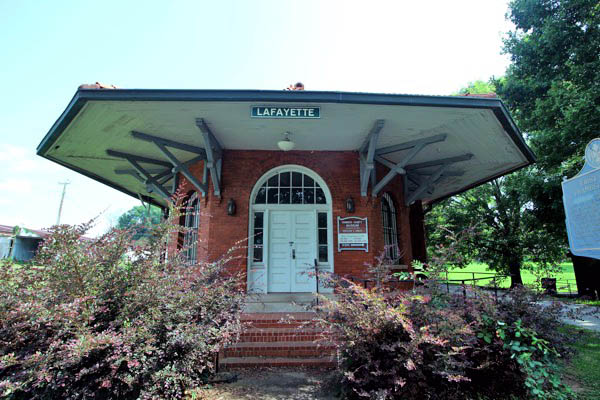
Jul 2023 / RWH
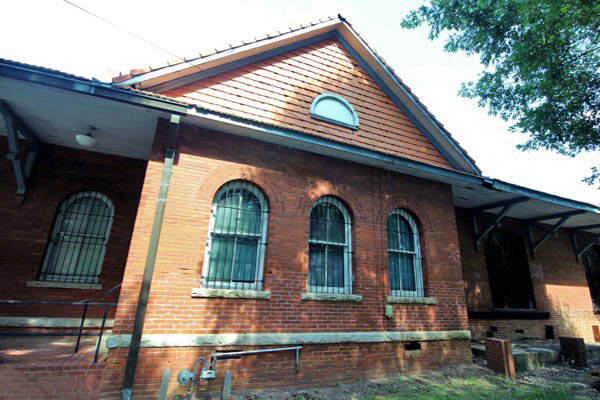
Jul 2023 / RWH
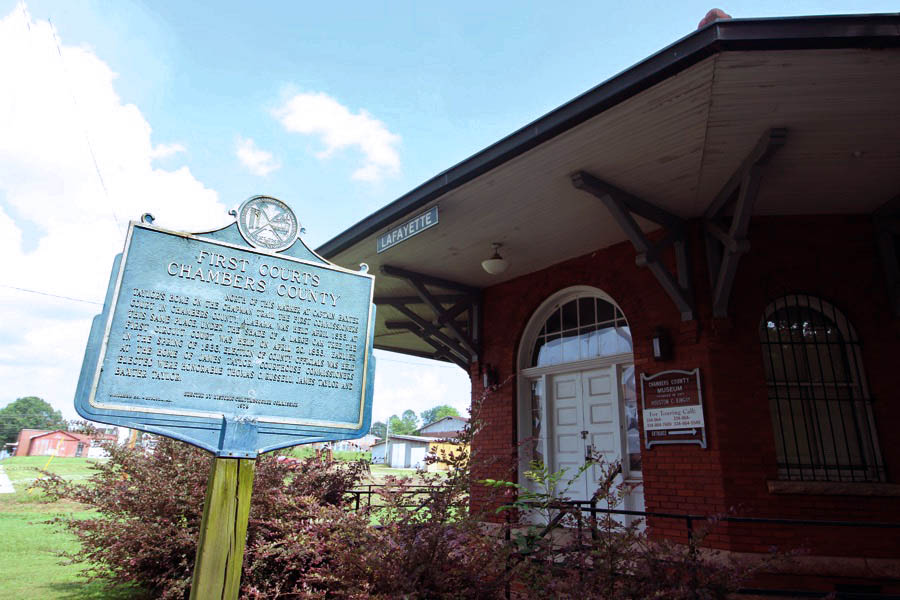
LaFayette, Al / Jul 2023 / RWH
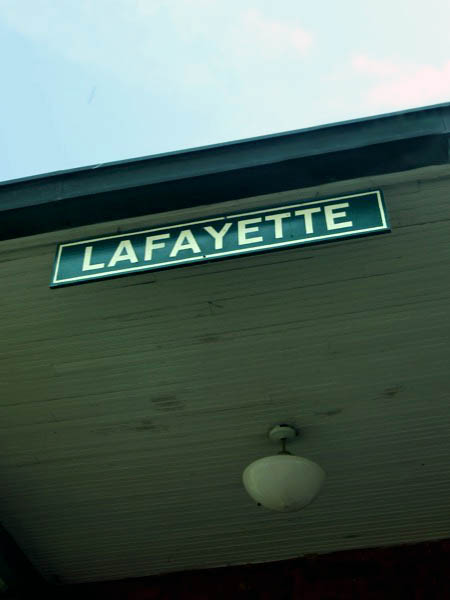
Jul 2023 / RWH
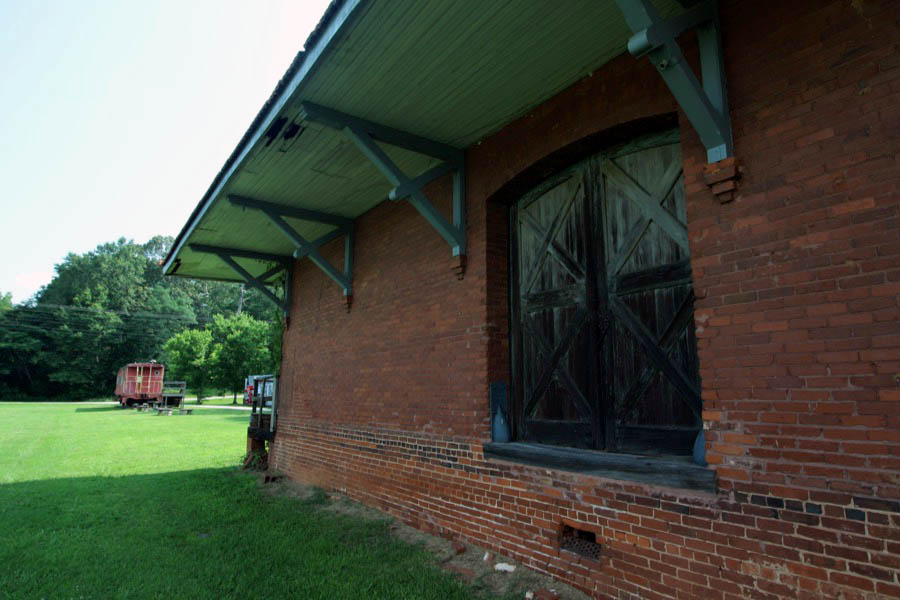
LaFayette, Al / Jul 2023 / RWH

See also our complete Central of Georgia Railway Fallen Flag scrapbook in Mainlines
 Leeds
Leeds
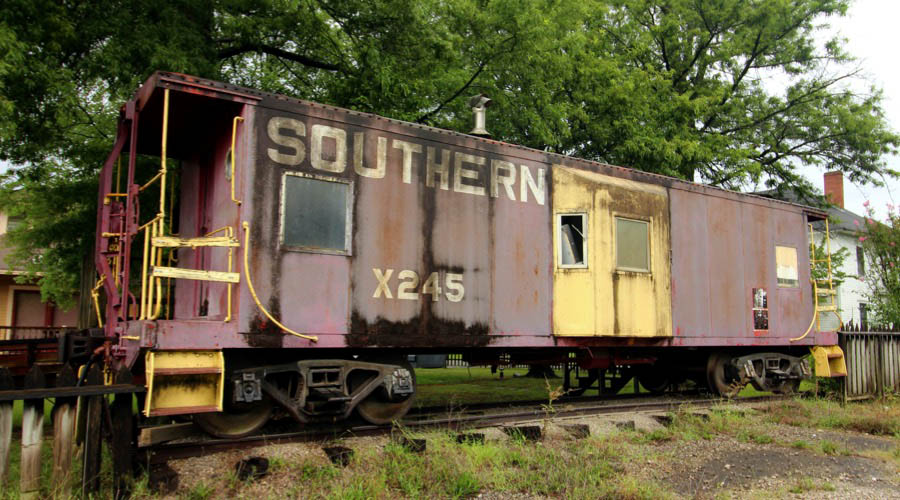
Southern Railway #X245
Leeds, Al / Aug 2021 / RWH
 outhern #X245 is displayed perpendicular to the Norfolk Southern mainline at Leeds, Alabama, east of Birmingham. The display site is adjacent to the beautifully restored Southern Railway depot (built 1884, restored 1984) at Leeds — where the Southern and Central of Georgia mainlines converged. The caboose bears yellow bay windows, indicating local service. As of 2021, the car's paint scheme has deteriorated in the sun and the body evidences rust damage.
outhern #X245 is displayed perpendicular to the Norfolk Southern mainline at Leeds, Alabama, east of Birmingham. The display site is adjacent to the beautifully restored Southern Railway depot (built 1884, restored 1984) at Leeds — where the Southern and Central of Georgia mainlines converged. The caboose bears yellow bay windows, indicating local service. As of 2021, the car's paint scheme has deteriorated in the sun and the body evidences rust damage.

Click to see the Leeds depot area and caboose display plotted on a Google Maps page
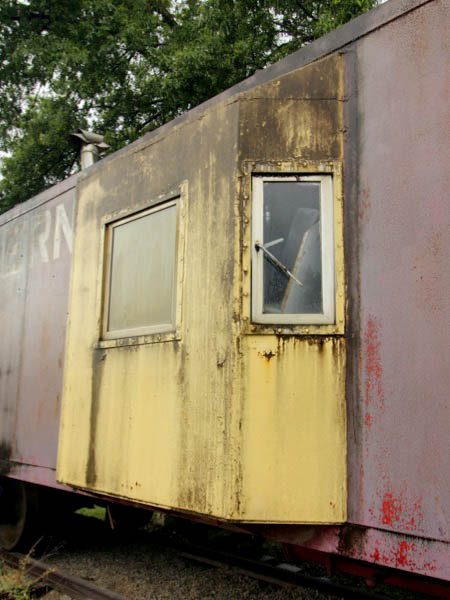
Aug 2021 / RWH
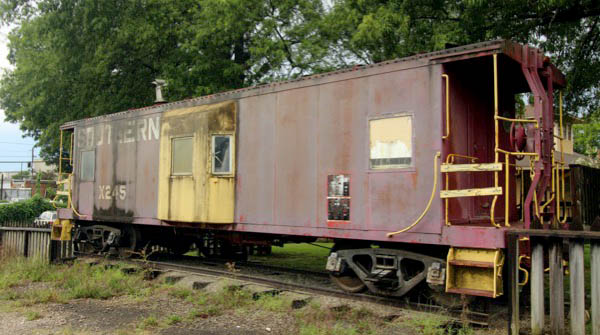
Leeds, Al / Aug 2021 / RWH
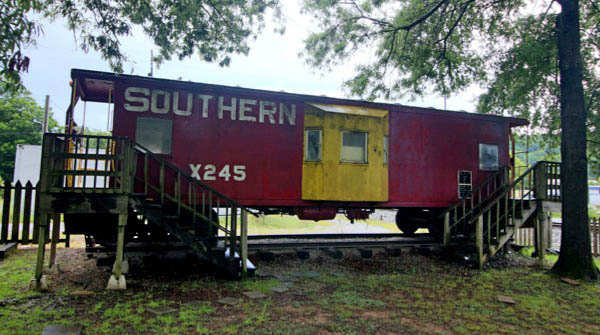
Leeds, Al / Aug 2021 / RWH
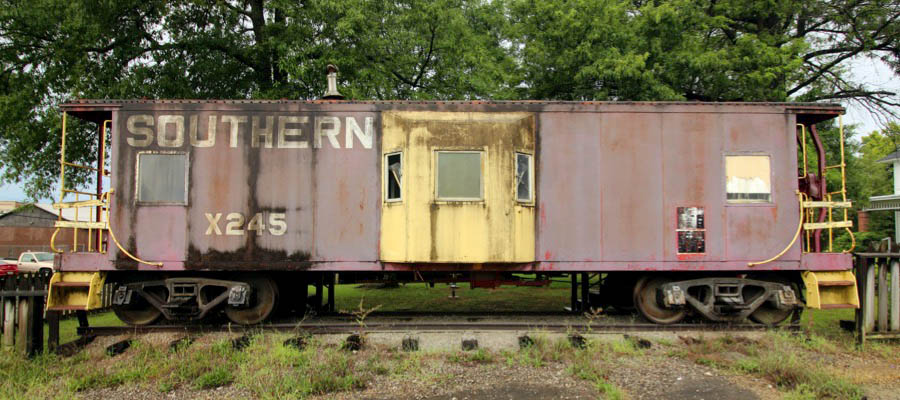
Leeds, Al / Aug 2021 / RWH
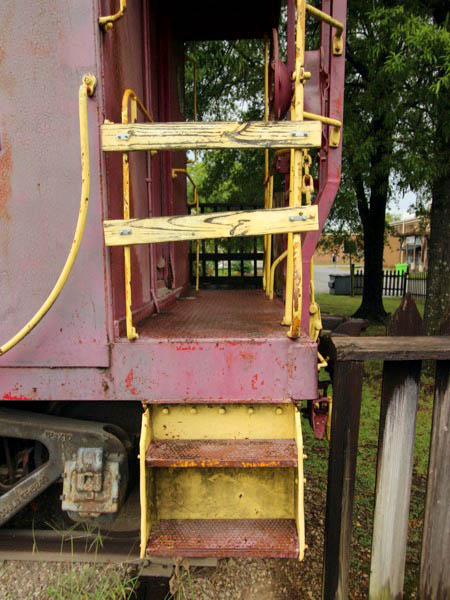
Aug 2021 / RWH
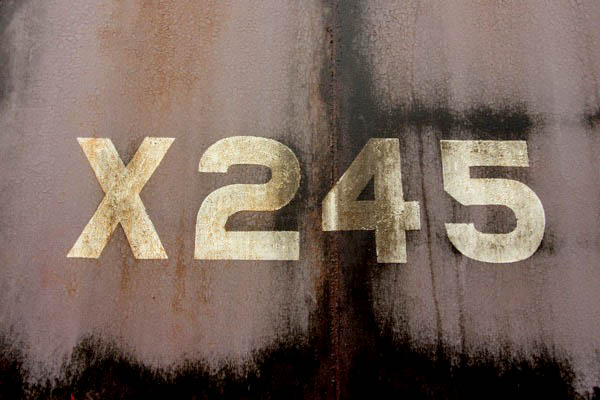
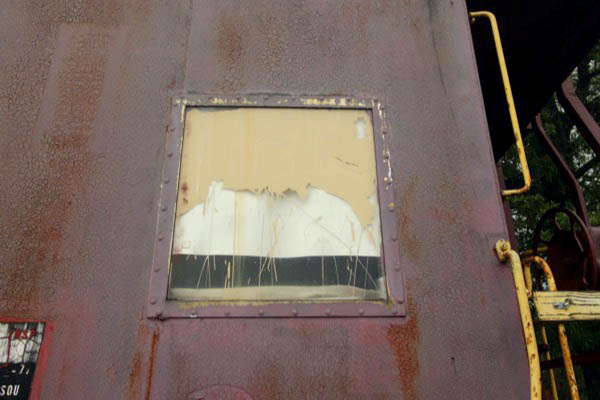
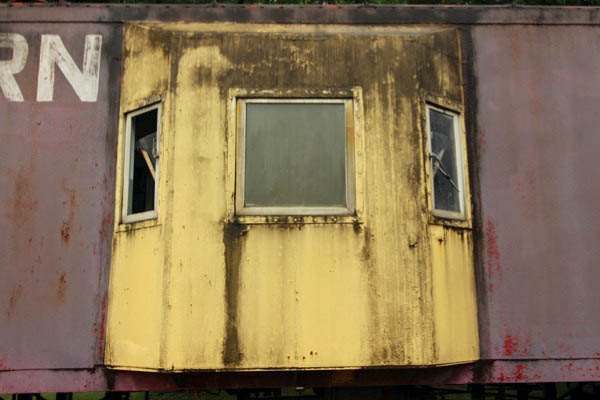
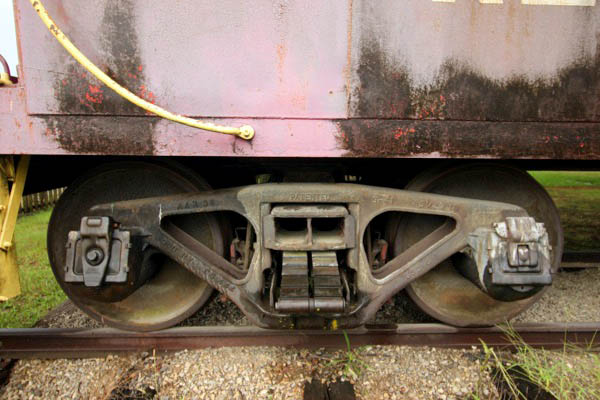
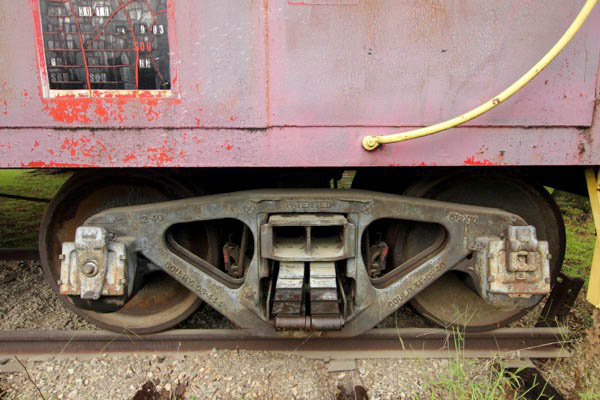
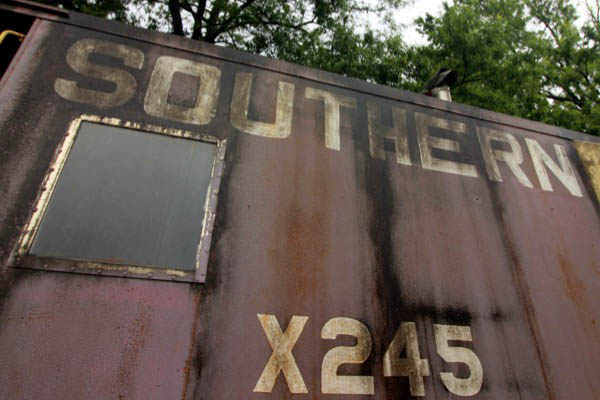
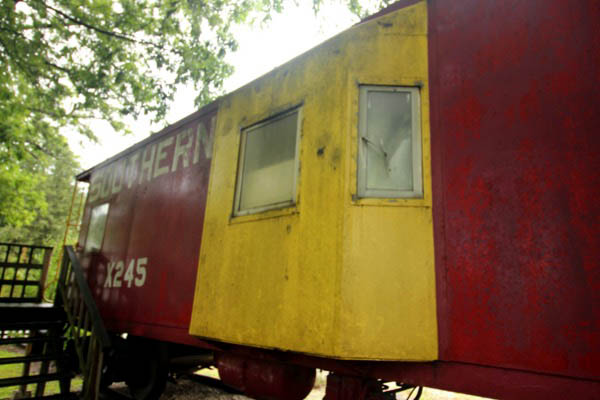
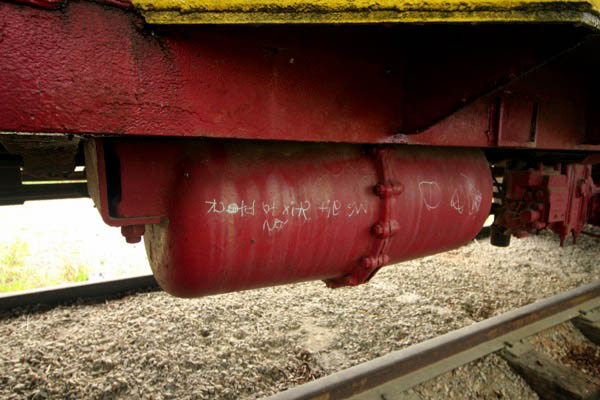
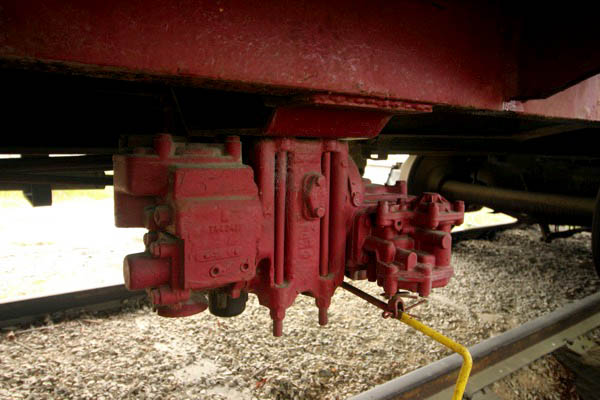
Aug 2021 / RWH
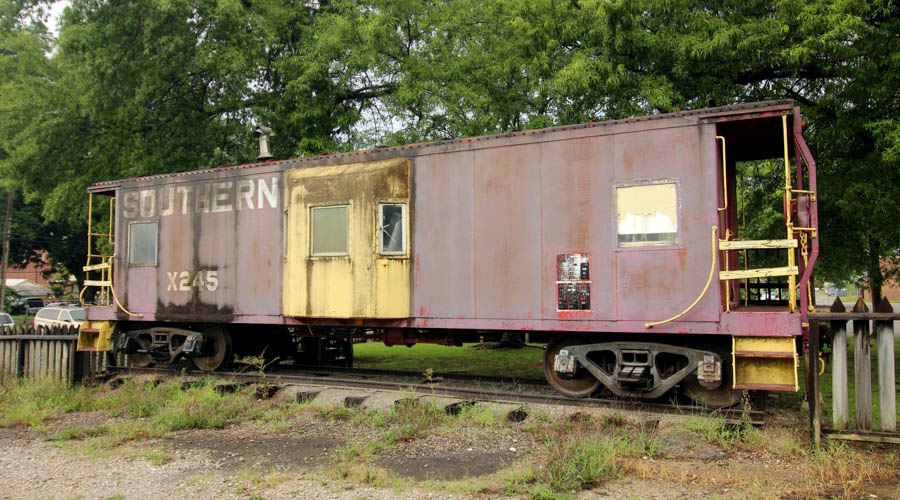
Leeds, Al / Aug 2021 / RWH
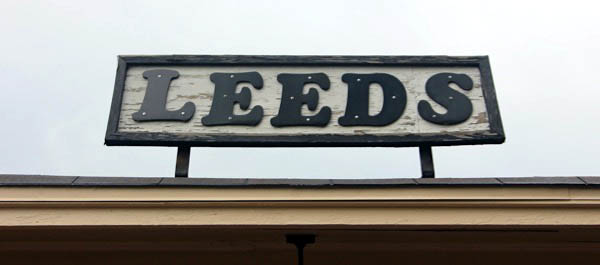
Aug 2021 / RWH
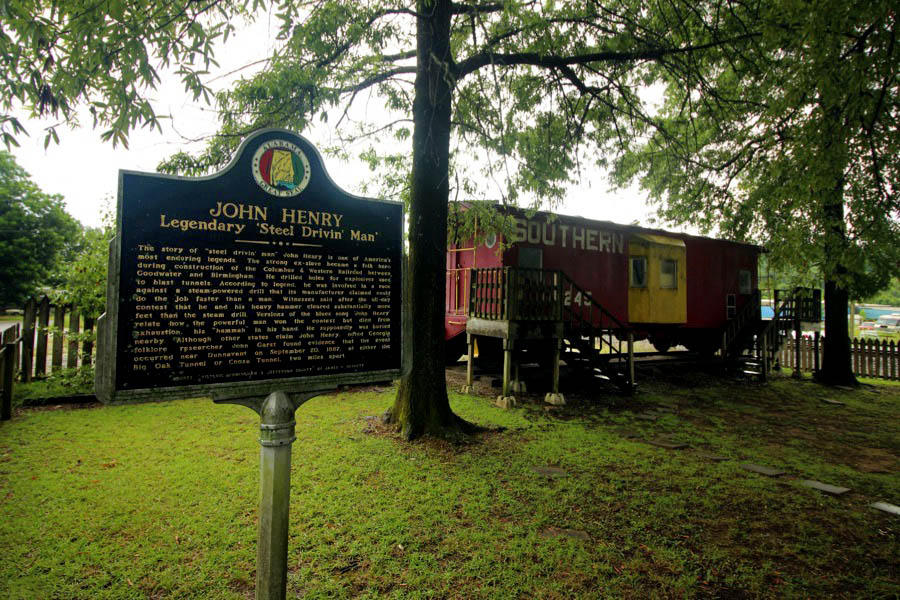
Leeds, Al / Aug 2021 / RWH
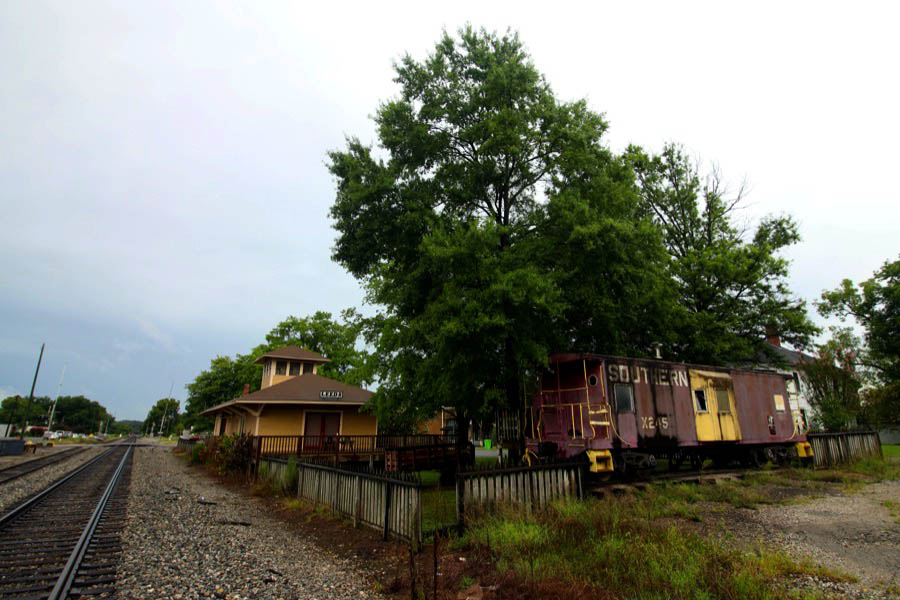
Leeds, Al / Aug 2021 / RWH
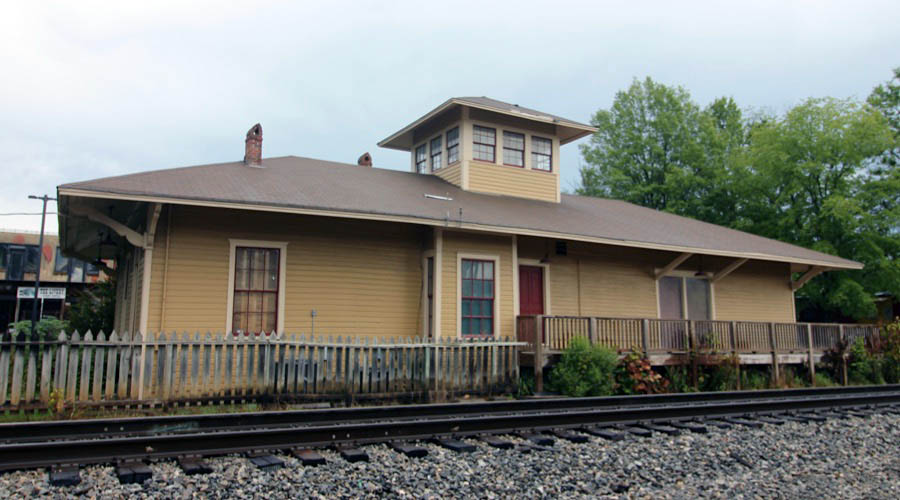
Leeds, Al / Aug 2021 / RWH
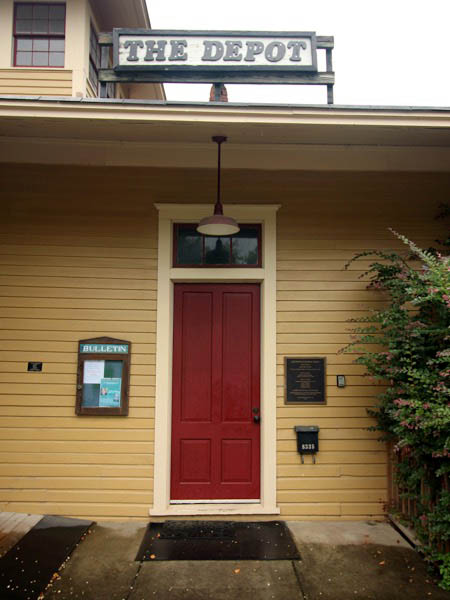
Aug 2021 / RWH
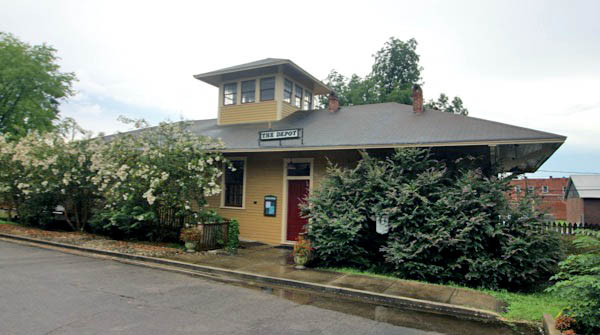
Leeds, Al / Aug 2021 / RWH
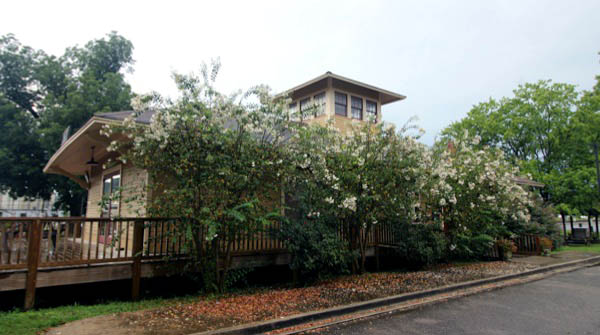
Leeds, Al / Aug 2021 / RWH
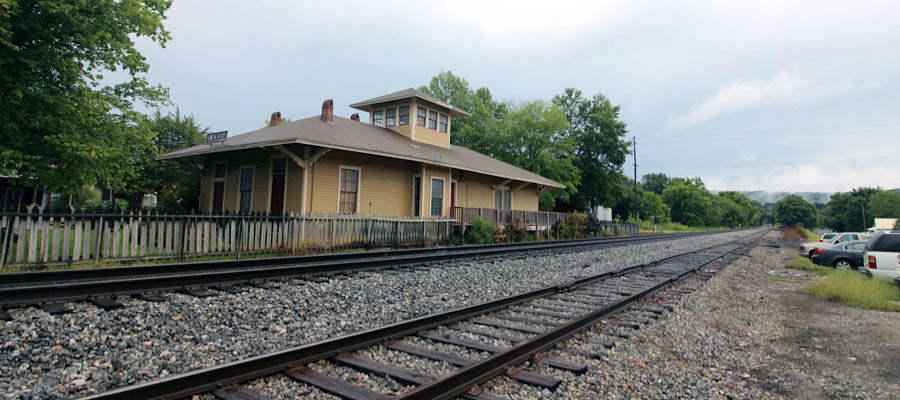
Leeds, Al / Aug 2021 / RWH
 Montgomery
Montgomery
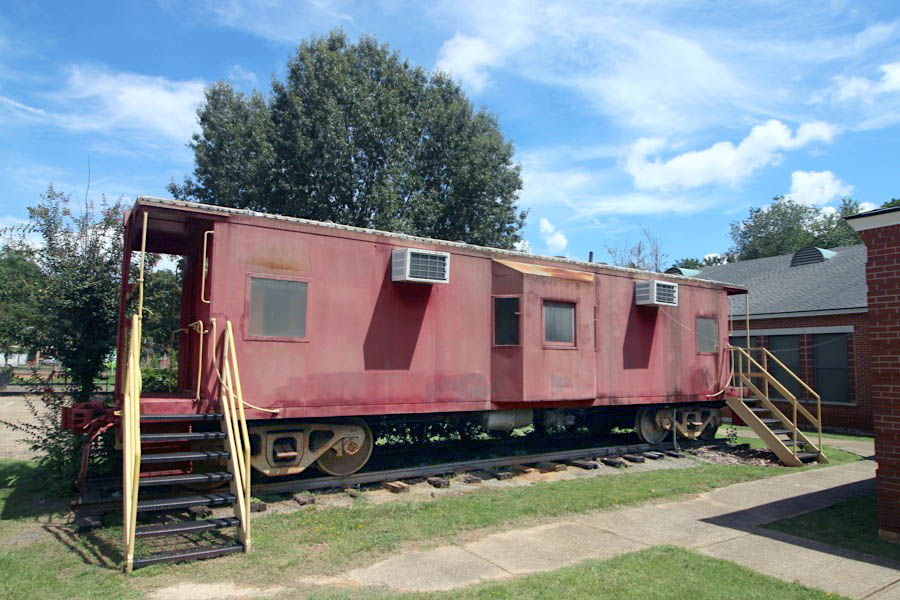
Southern Railway #X572
Montgomery, Al / Aug 2021 / RWH
 outhern #X572 spends its retirement from mainline service as a classroom for children at the Highland Elementary School in Montgomery, Alabama. The car has been parked on a short display track, with permanent steps, power, and air conditioners added. As of 2021, it wears a faded Southern caboose red, but the caboose no longer bears any lettering or markings.
outhern #X572 spends its retirement from mainline service as a classroom for children at the Highland Elementary School in Montgomery, Alabama. The car has been parked on a short display track, with permanent steps, power, and air conditioners added. As of 2021, it wears a faded Southern caboose red, but the caboose no longer bears any lettering or markings.

Click to see the Highland Elementary School plotted on a Google Maps page
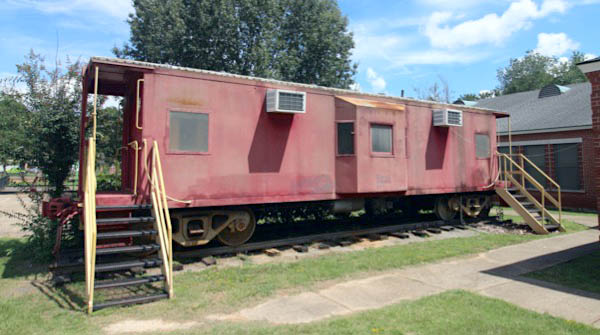
Montgomery, Al / Aug 2021 / RWH
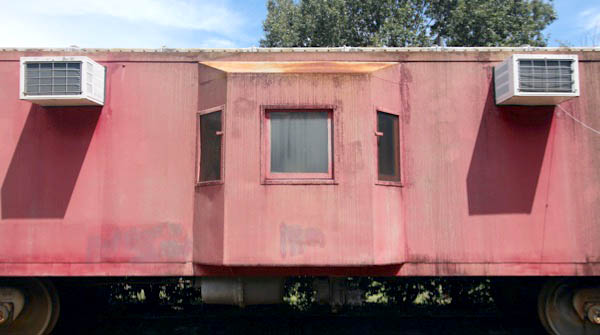
Aug 2021 / RWH
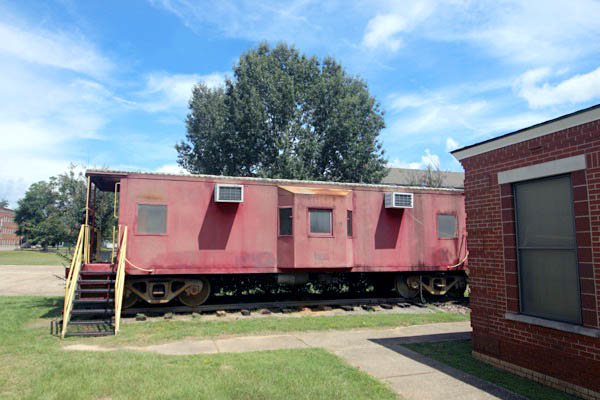
Montgomery, Al / Aug 2021 / RWH
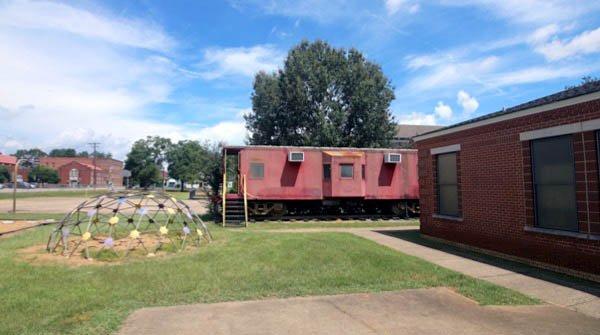
Montgomery, Al / Aug 2021 / RWH
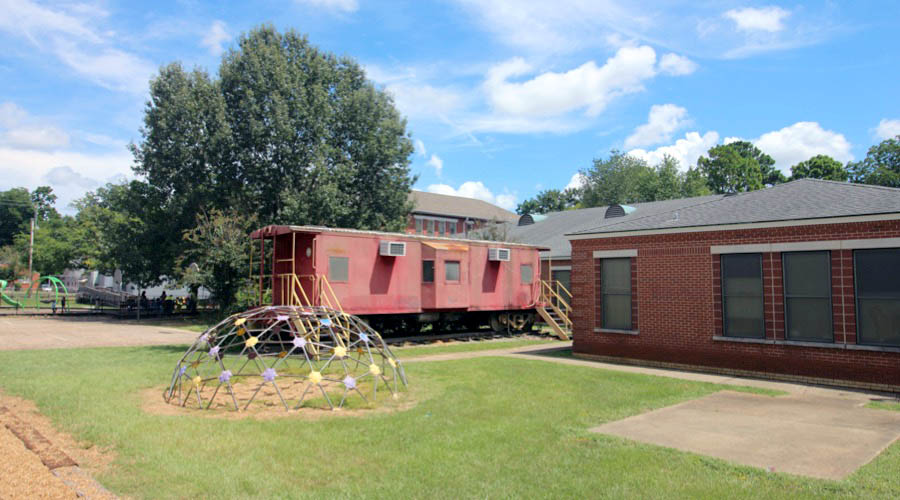
Montgomery, Al / Aug 2021 / RWH
 Nauvoo
Nauvoo
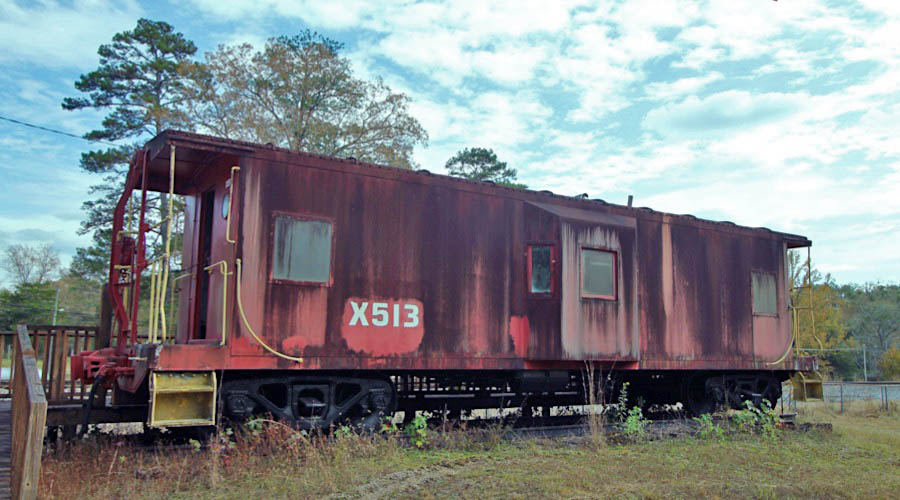
Southern Railway #X513
Nauvoo, Al / Oct 2022 / RWH
 outhern #X513 spends retirement on display outdoors in the tiny northern Alabama village of Nauvoo. The caboose rests on a short display track adjacent to the former Nauvoo depot, a modest wooden structure with the classic extended window front and freight doors. The depot and the caboose sit at the southern end of a passing siding along Norfolk Southern's mainline between Jasper and Sheffield, Alabama. This is the former Northern Alabama Railway, later Southern Railway. X513 is badly weathered from outdoor display, but retains most of the signature features of a Southern bay window. Some lettering and data markings have either been removed or have faded out from rusting, but the "Southern" name in its correct font remains on the track side of the body. Accessories are painted yellow and the carbody seems otherwise intact. The depot property appears to function as a community meeting grounds.
outhern #X513 spends retirement on display outdoors in the tiny northern Alabama village of Nauvoo. The caboose rests on a short display track adjacent to the former Nauvoo depot, a modest wooden structure with the classic extended window front and freight doors. The depot and the caboose sit at the southern end of a passing siding along Norfolk Southern's mainline between Jasper and Sheffield, Alabama. This is the former Northern Alabama Railway, later Southern Railway. X513 is badly weathered from outdoor display, but retains most of the signature features of a Southern bay window. Some lettering and data markings have either been removed or have faded out from rusting, but the "Southern" name in its correct font remains on the track side of the body. Accessories are painted yellow and the carbody seems otherwise intact. The depot property appears to function as a community meeting grounds.

Click to see the Nauvoo depot park plotted on a Google Maps page
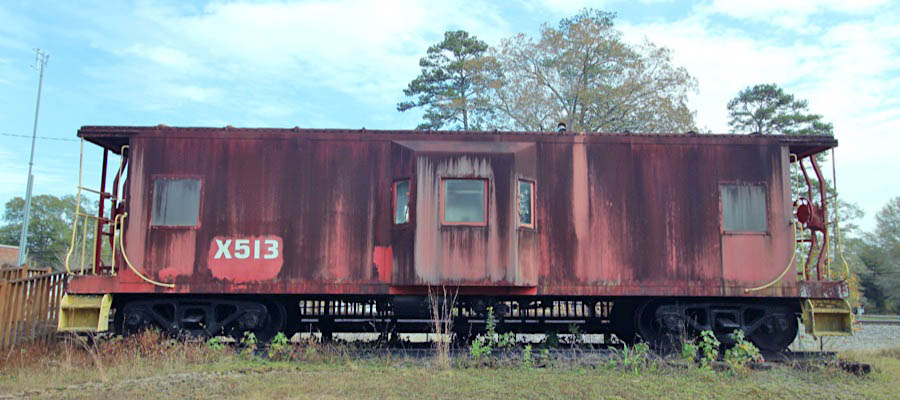
Nauvoo, Al / Oct 2022 / RWH
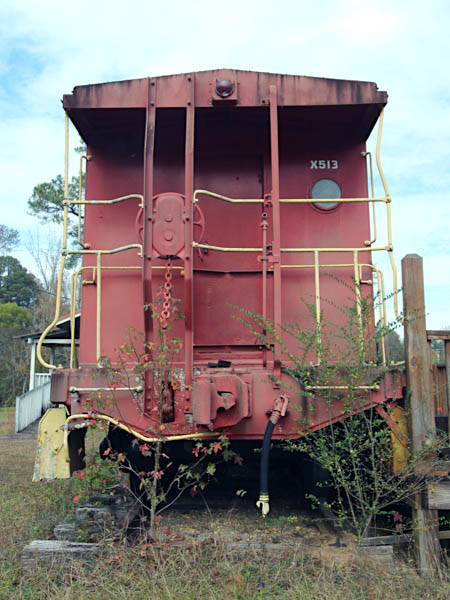
Oct 2022 / RWH
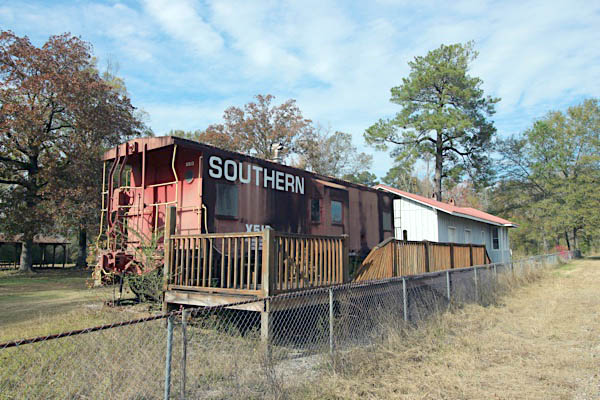
Nauvoo, Al / Oct 2022 / RWH
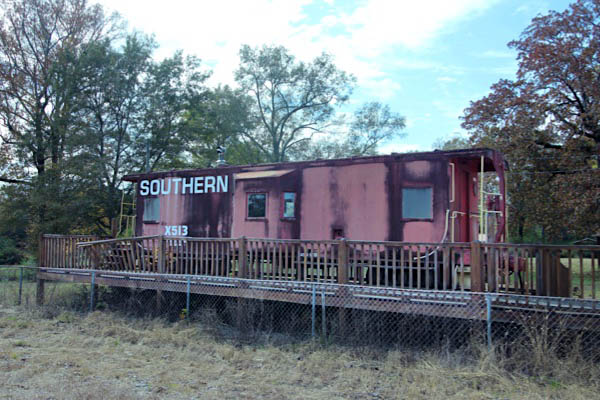
Nauvoo, Al / Oct 2022 / RWH
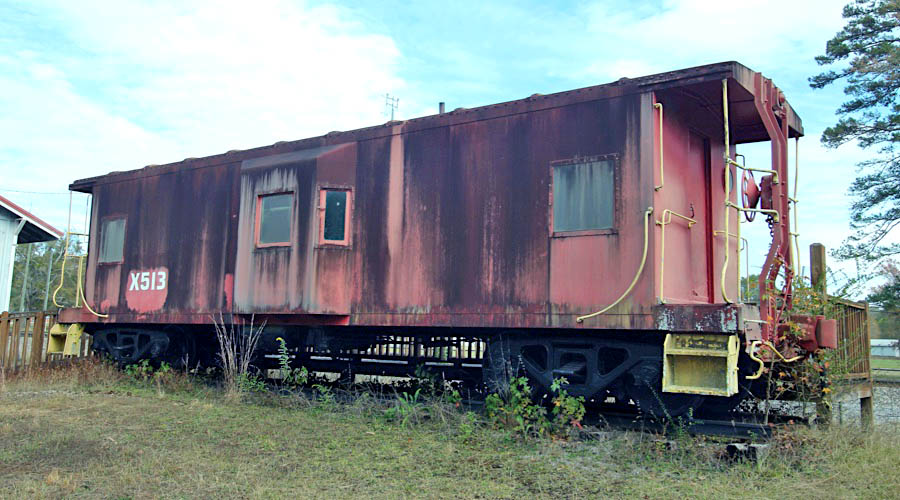
Nauvoo, Al / Oct 2022 / RWH
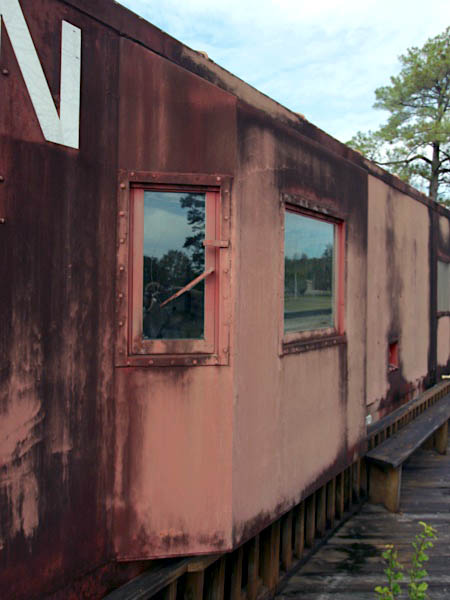
Oct 2022 / RWH
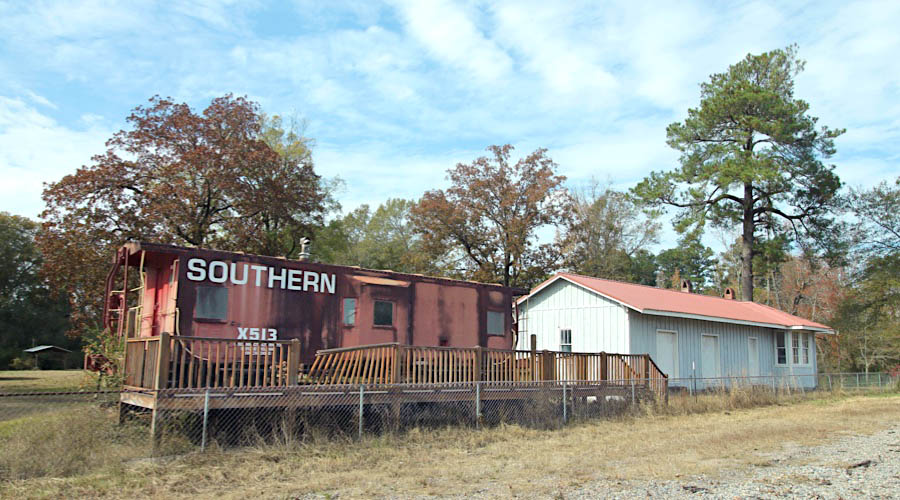
Nauvoo, Al / Oct 2022 / RWH
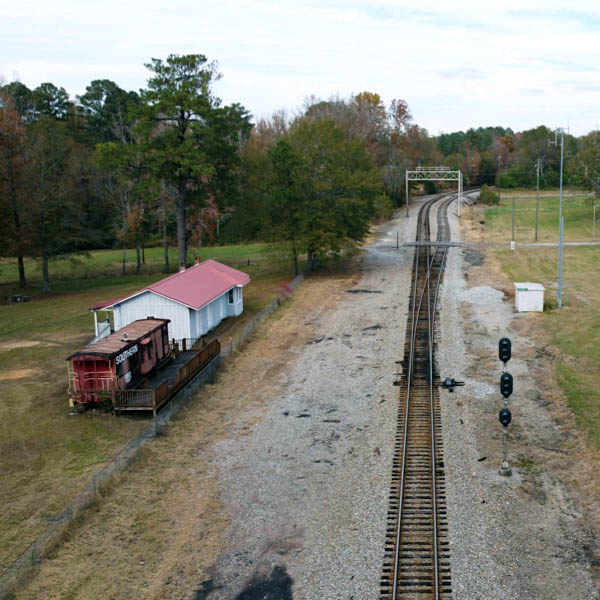
Nauvoo, Al / Oct 2022 / RWH
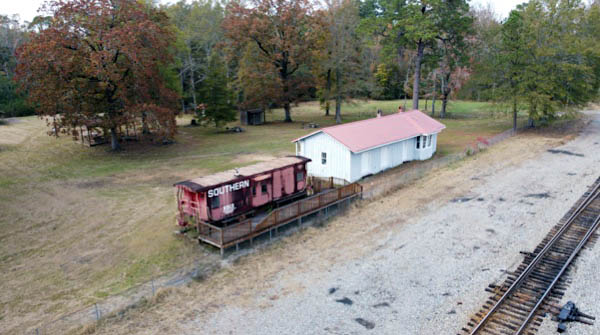
Nauvoo, Al / Oct 2022 / RWH
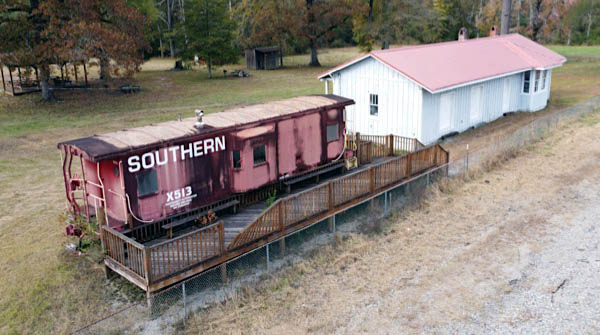
Nauvoo, Al / Oct 2022 / RWH
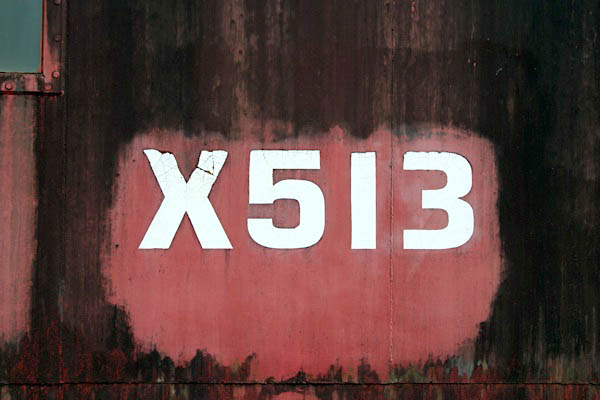
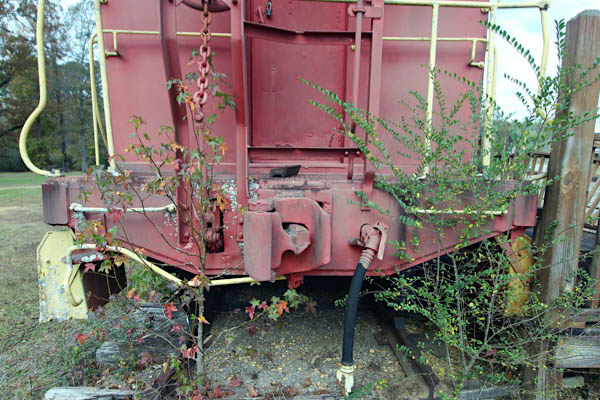
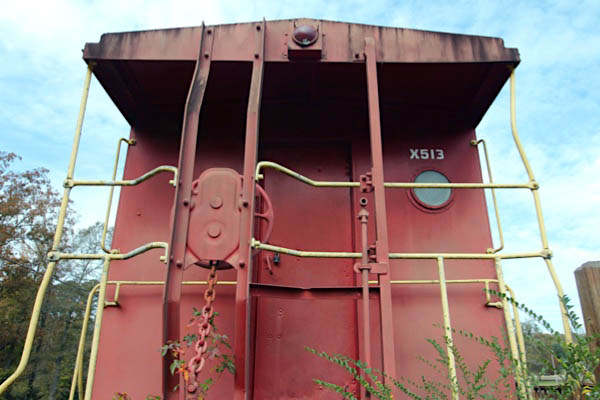
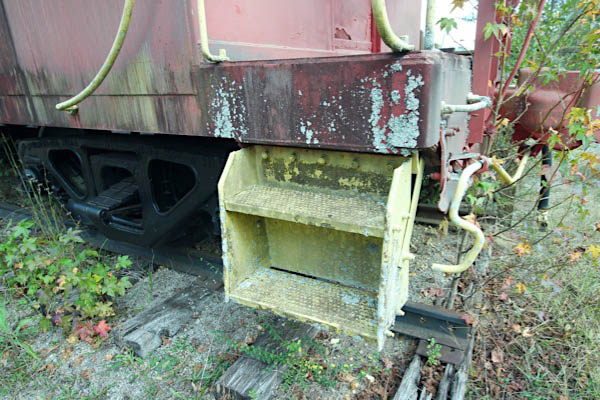
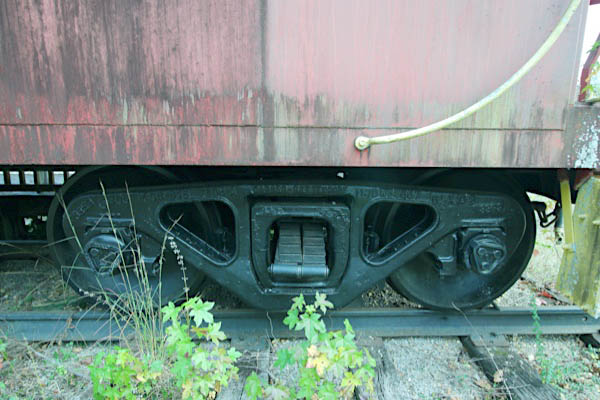

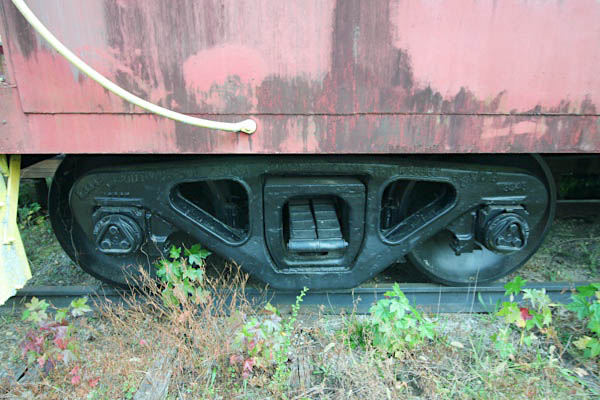
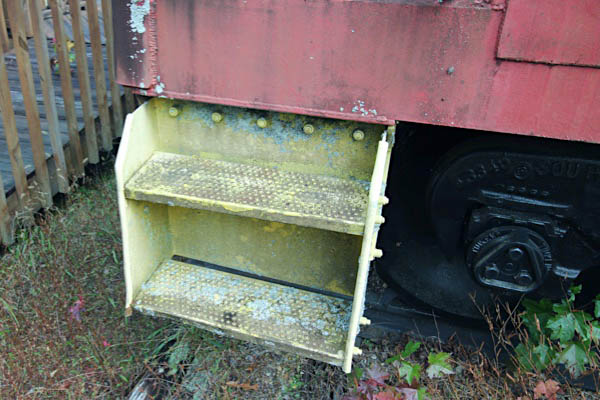
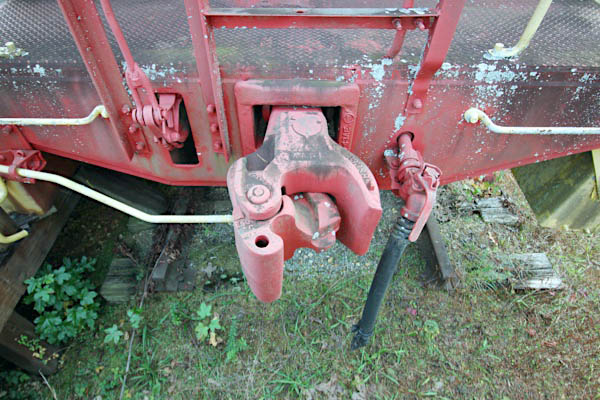
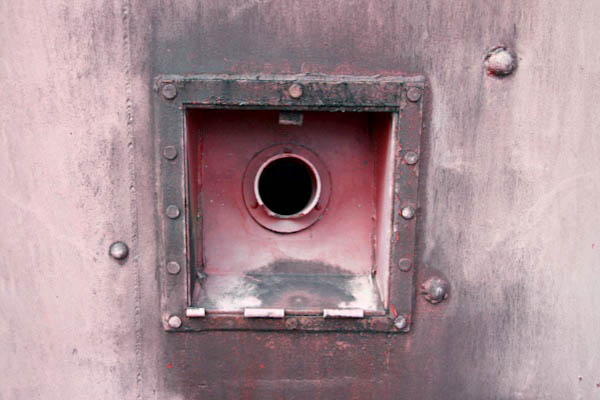
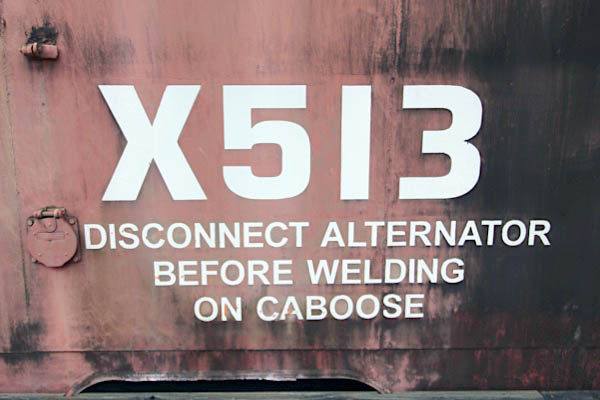
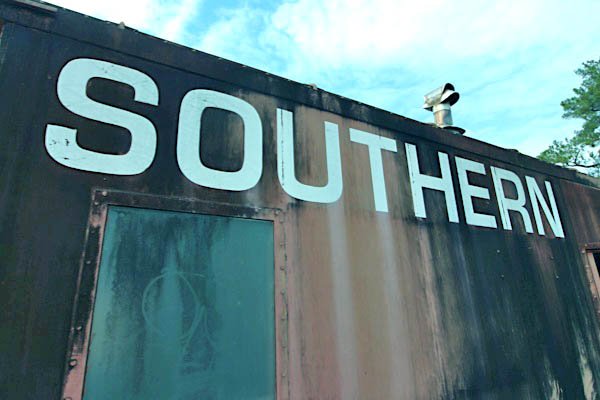
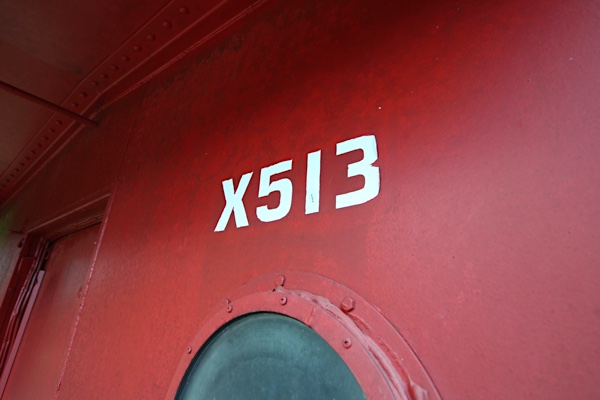
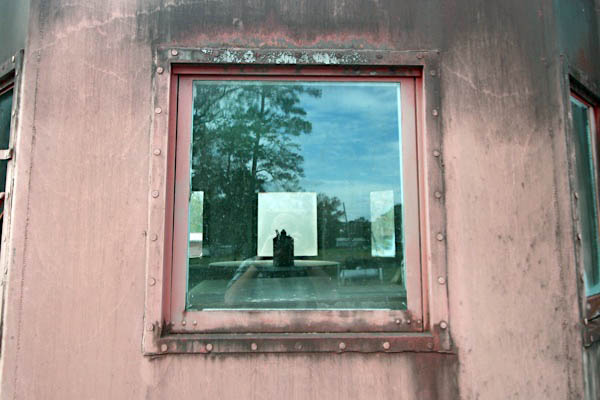
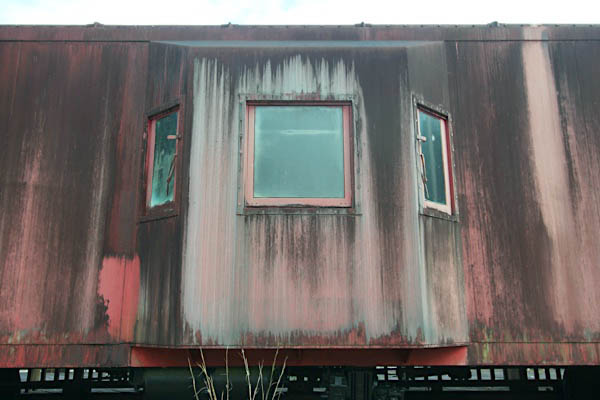
Oct 2022 / RWH
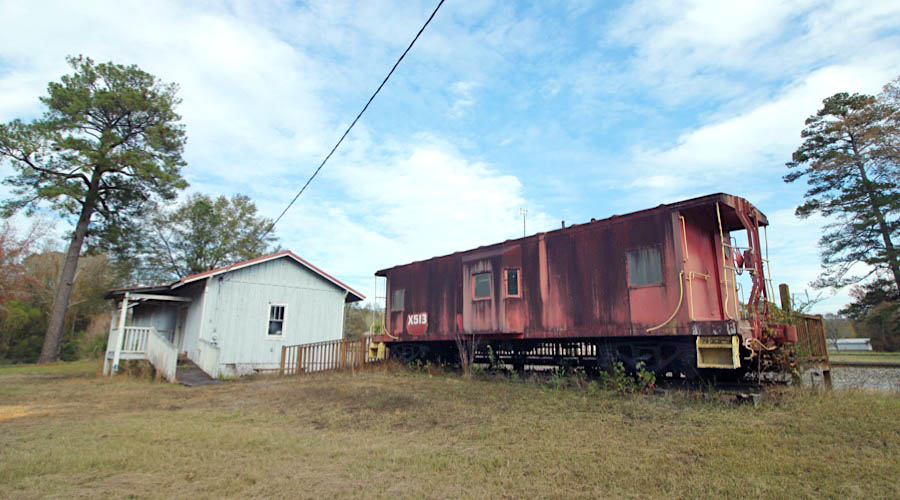
Nauvoo, Al / Oct 2022 / RWH
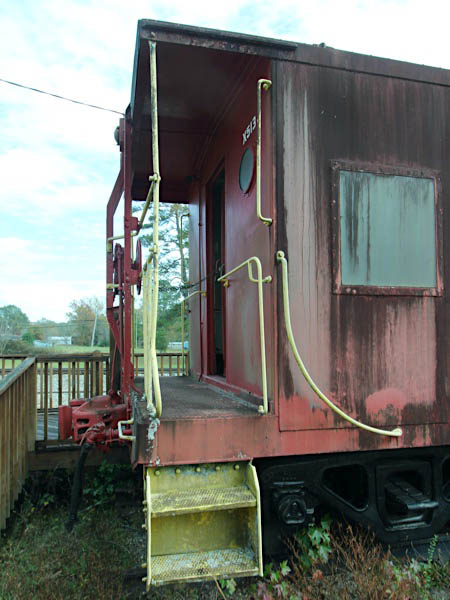
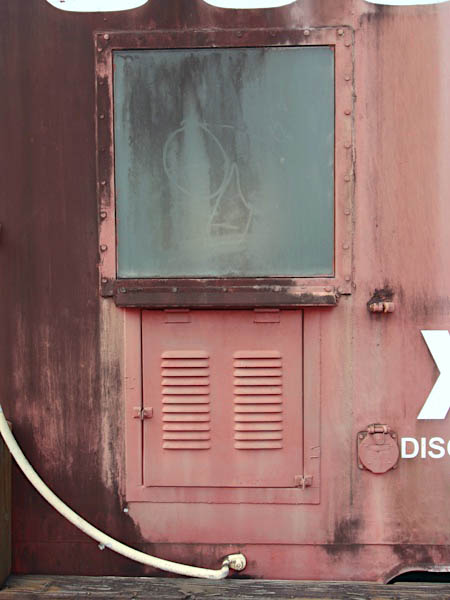
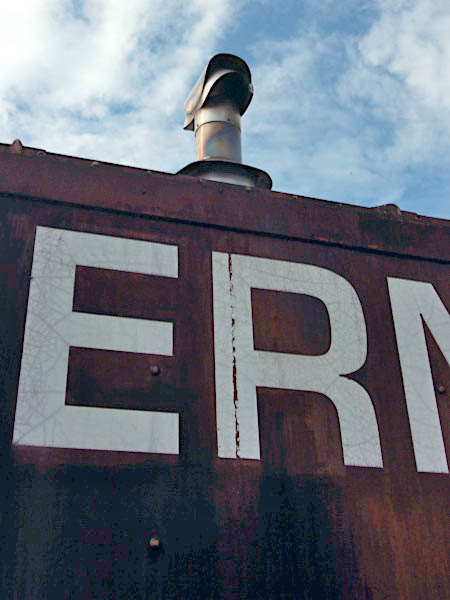
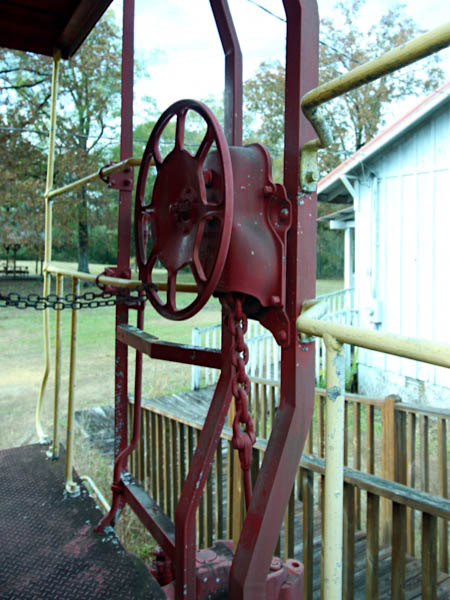
Oct 2022 / RWH
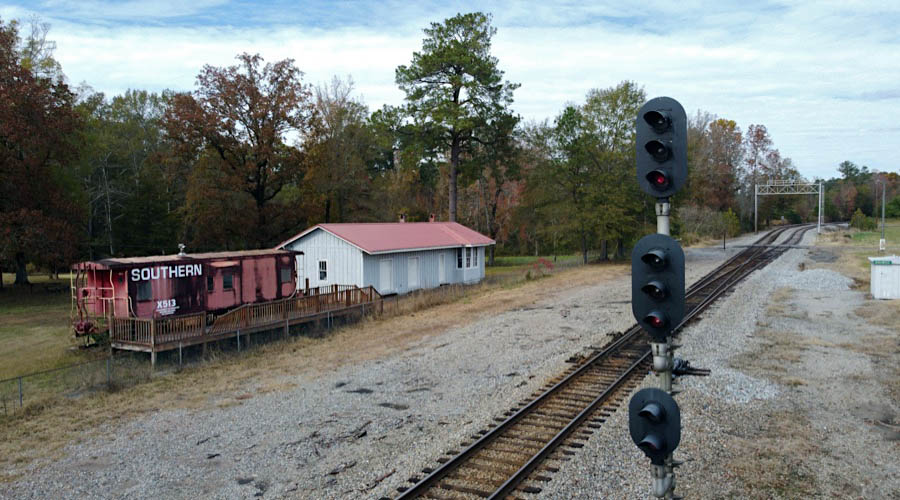
Nauvoo, Al / Oct 2022 / RWH
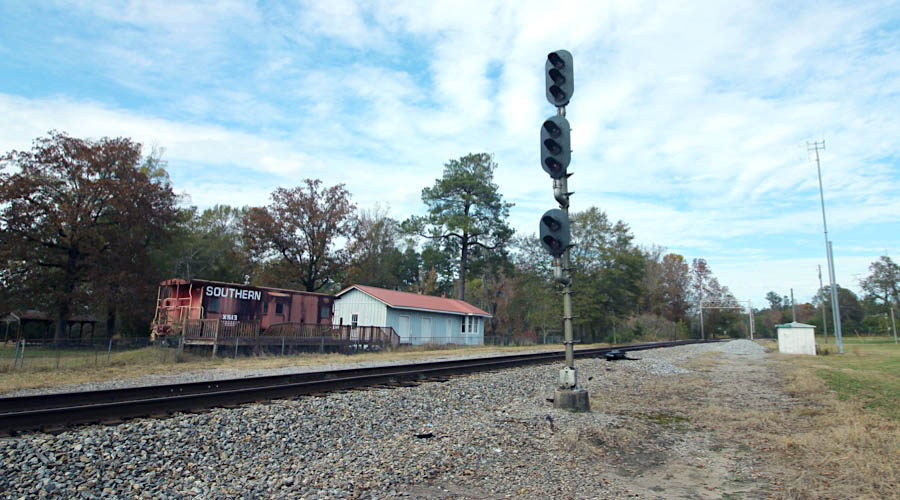
Nauvoo, Al / Oct 2022 / RWH
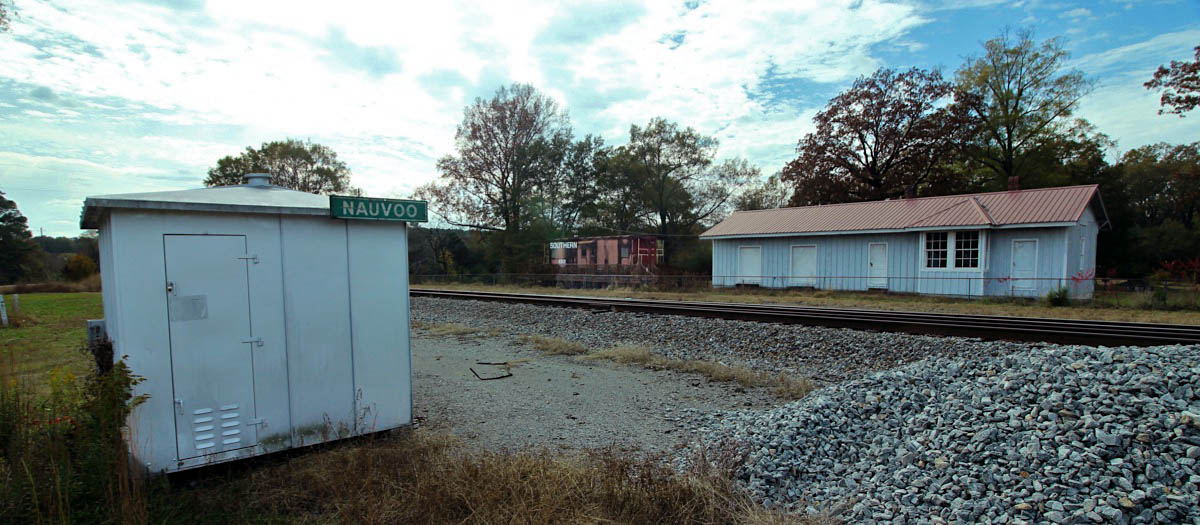
Nauvoo, Al / Oct 2022 / RWH
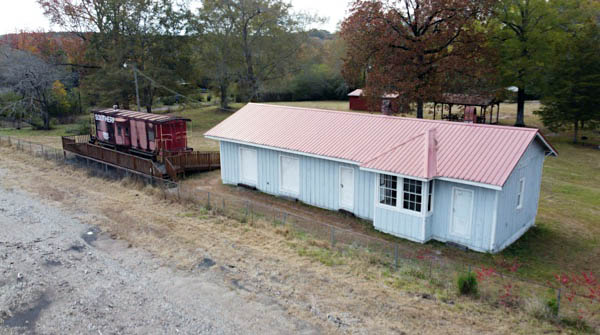
Nauvoo, Al / Oct 2022 / RWH
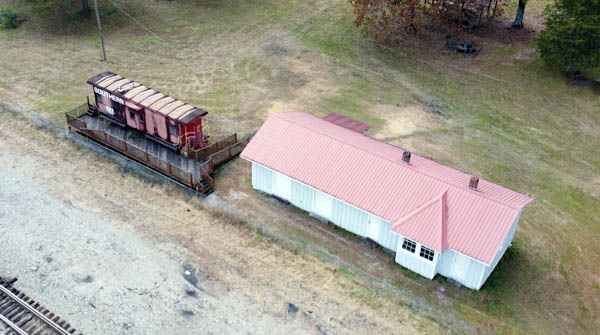
Nauvoo, Al / Oct 2022 / RWH
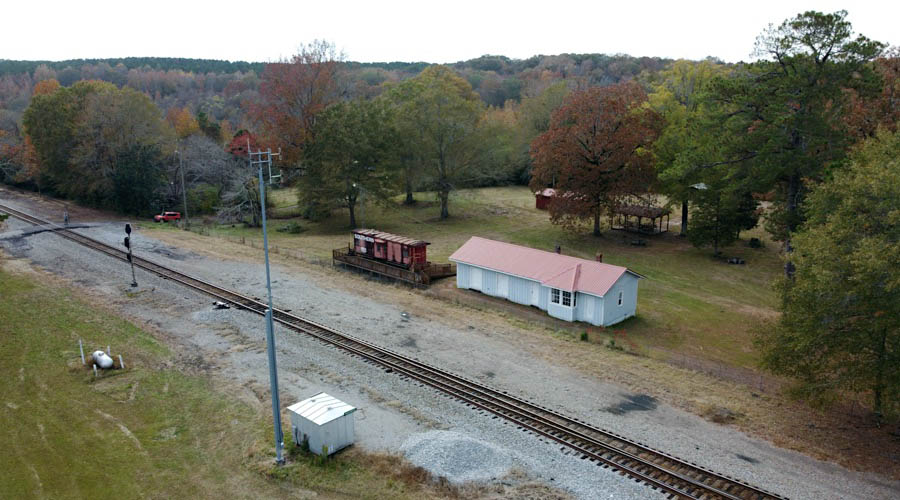
Nauvoo, Al / Oct 2022 / RWH
 Opelika
Opelika
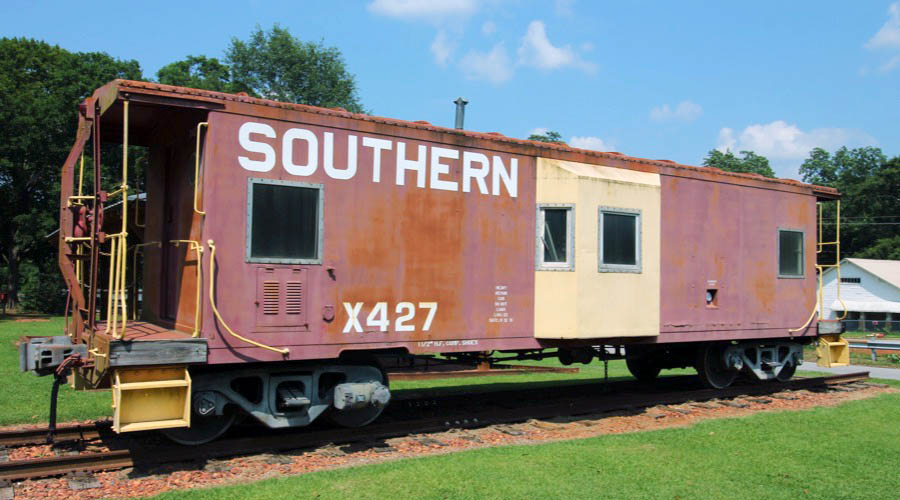
Southern Railway #X427
Opelika, Al / Jul 2023 / RWH
 outhern #X427 has found a second home in retirement, at the Stern Dog Park in Opelika, Alabama, on the midwestern side of the state near the Georgia line. After retirement, the car was first placed behind the former union depot building at the Norfolk Southern—CSX Transportation diamond, downtown. Here the former Central of Georgia mainline to Birmingham crosses the former Western Railway of Alabama route to Montgomery. During its placement there, around 2009, the car was cosmetically restored with accurate paint, lettering, numbering, and technical markings. Its bay window blisters were also painted yellow, mimicking the paint scheme for Southern bays assigned to local freight service. By 2020, the caboose had been moved across town to the Stern Dog Park and placed on a short display track near the small park's pavilion. As of 2023, the caboose's paint job had faded, but all appliances, markings, and lettering were still intact — including two of Southern's trademark safety slogans, often applied to bay window platform sides. Wooden deck pieces are still attached to the platform edges on the other side, leftover from the station display that included wooden steps. Despite its faded paint, the car remains an excellent example of a working steel bay window.
outhern #X427 has found a second home in retirement, at the Stern Dog Park in Opelika, Alabama, on the midwestern side of the state near the Georgia line. After retirement, the car was first placed behind the former union depot building at the Norfolk Southern—CSX Transportation diamond, downtown. Here the former Central of Georgia mainline to Birmingham crosses the former Western Railway of Alabama route to Montgomery. During its placement there, around 2009, the car was cosmetically restored with accurate paint, lettering, numbering, and technical markings. Its bay window blisters were also painted yellow, mimicking the paint scheme for Southern bays assigned to local freight service. By 2020, the caboose had been moved across town to the Stern Dog Park and placed on a short display track near the small park's pavilion. As of 2023, the caboose's paint job had faded, but all appliances, markings, and lettering were still intact — including two of Southern's trademark safety slogans, often applied to bay window platform sides. Wooden deck pieces are still attached to the platform edges on the other side, leftover from the station display that included wooden steps. Despite its faded paint, the car remains an excellent example of a working steel bay window.

Click to see the Stern Dog Park area plotted on a Google Maps page
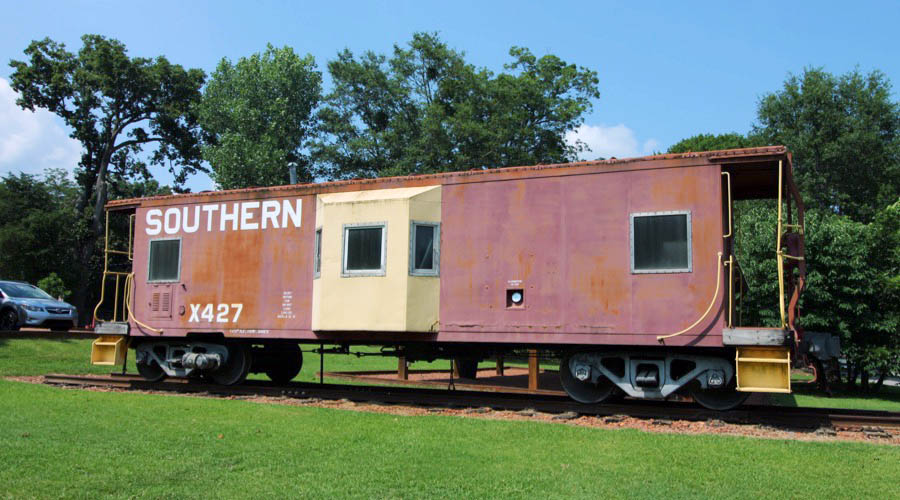
Opelika, Al / Jul 2023 / RWH
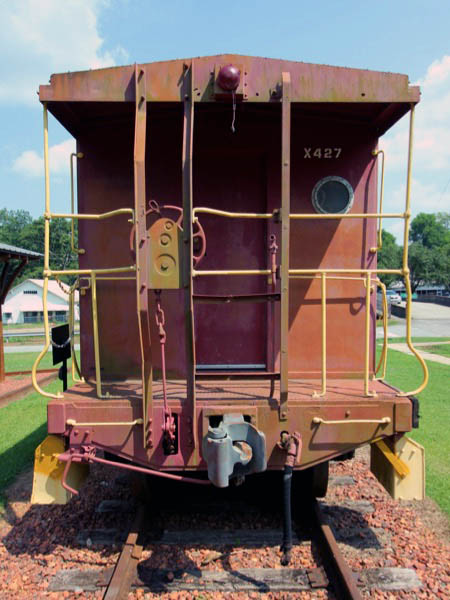
Jul 2023 / RWH
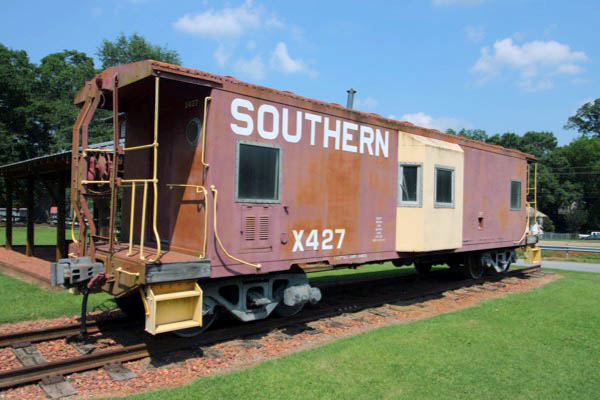
Opelika, Al / Jul 2023 / RWH
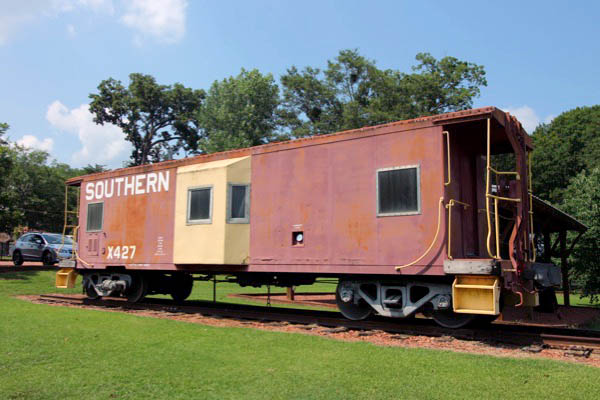
Opelika, Al / Jul 2023 / RWH
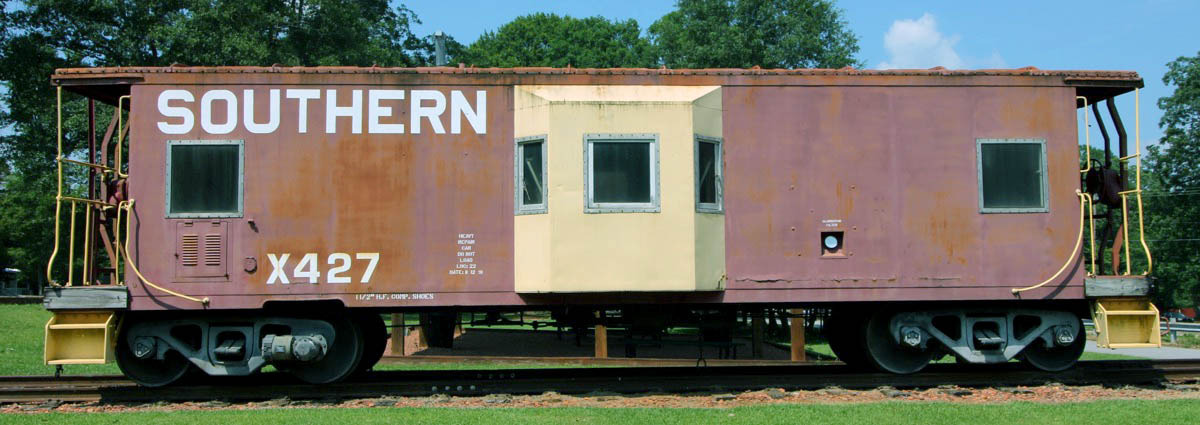
Opelika, Al / Jul 2023 / RWH
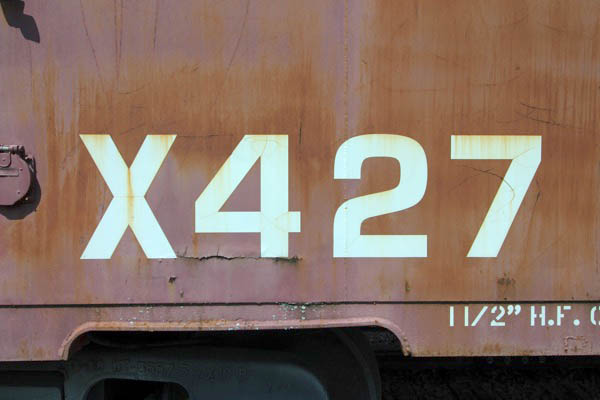
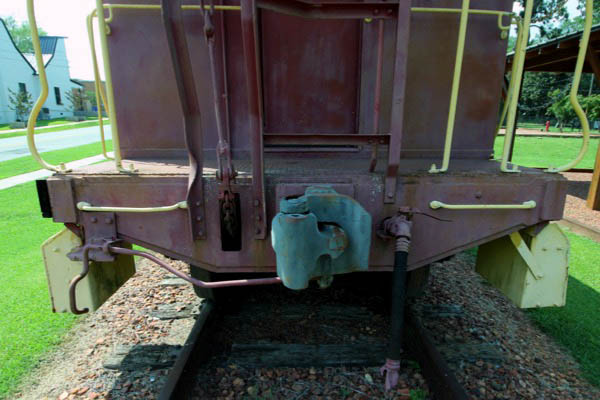
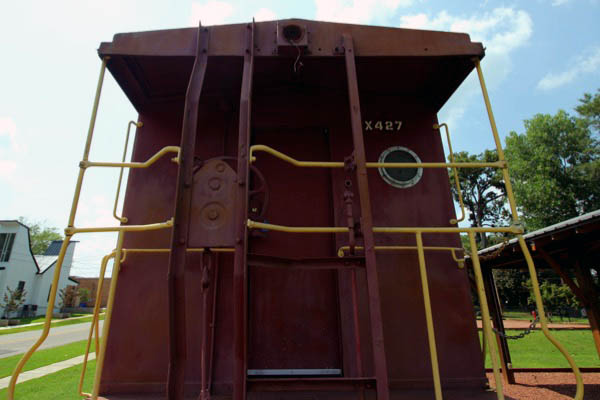
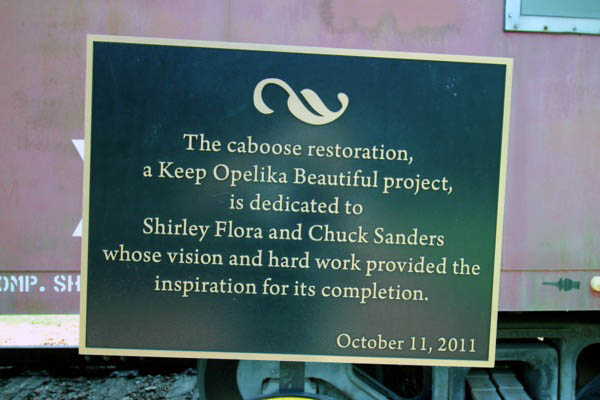
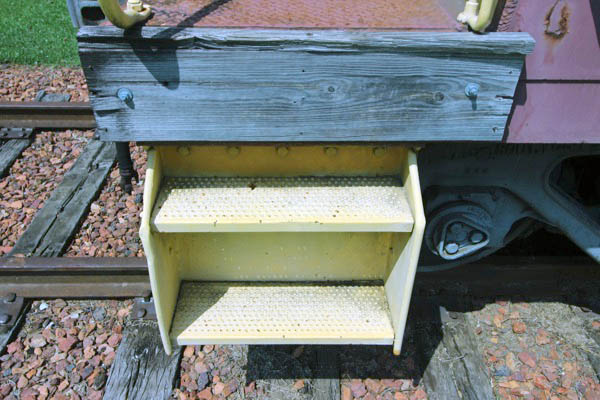
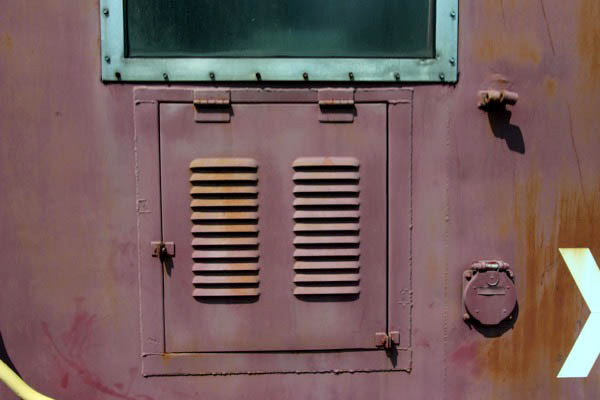
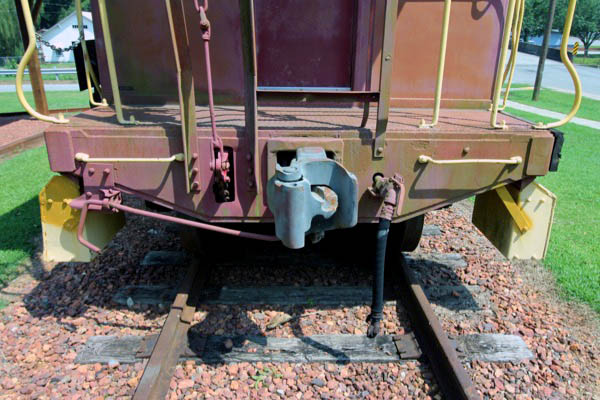
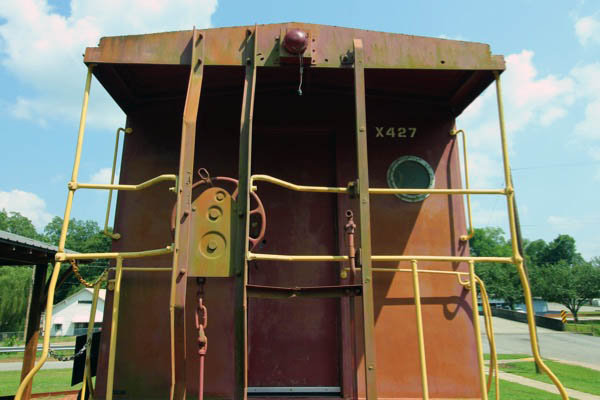
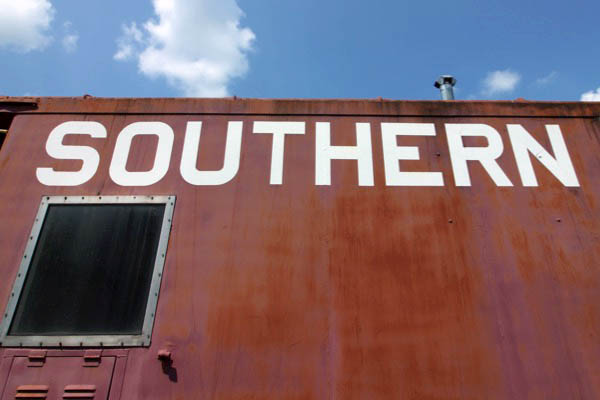
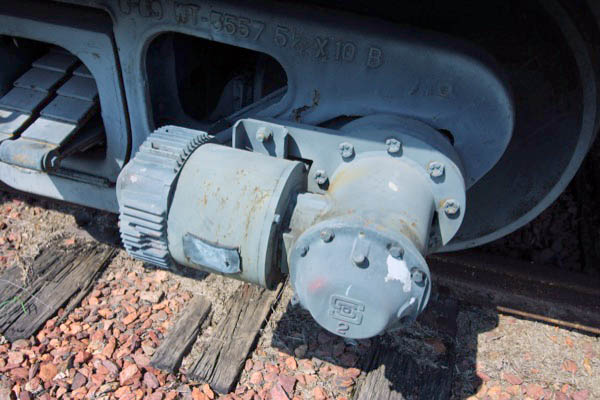
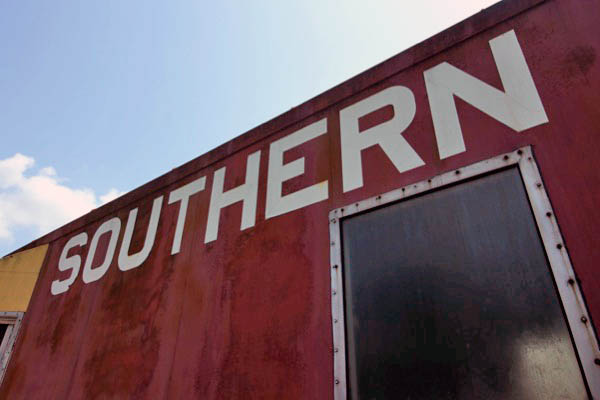
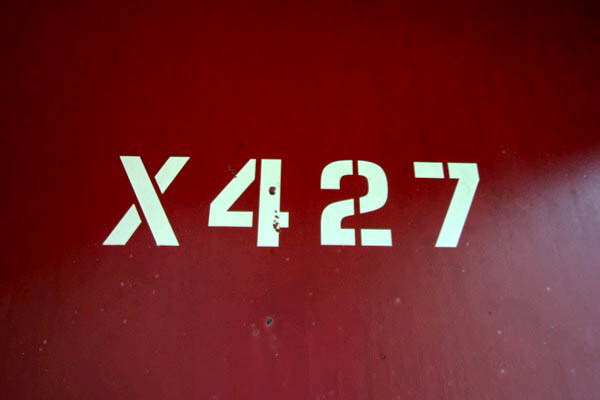
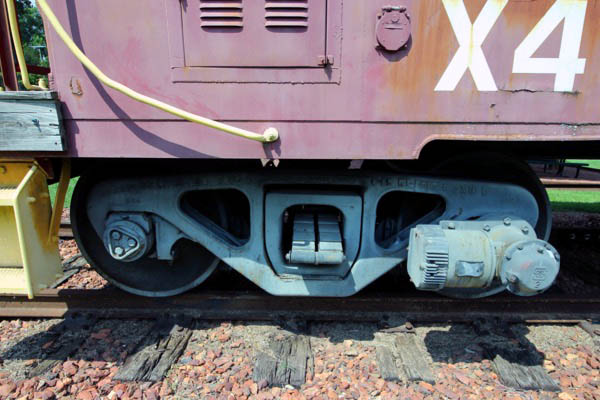
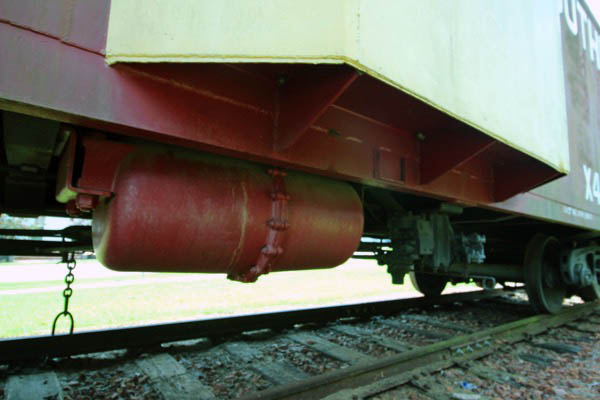
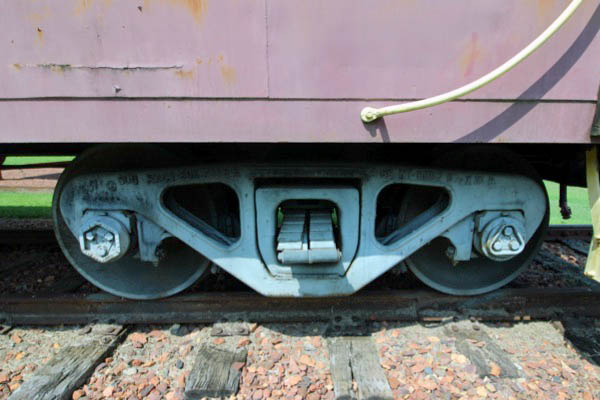
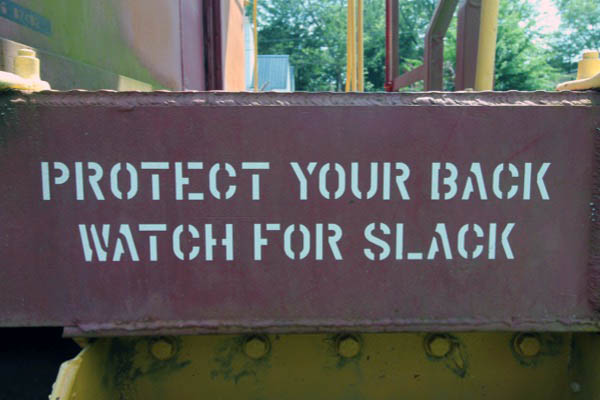
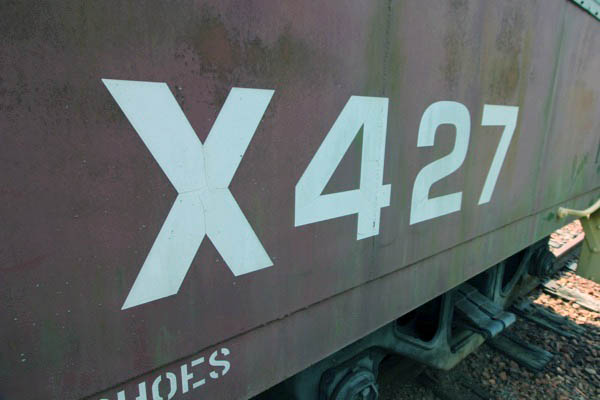
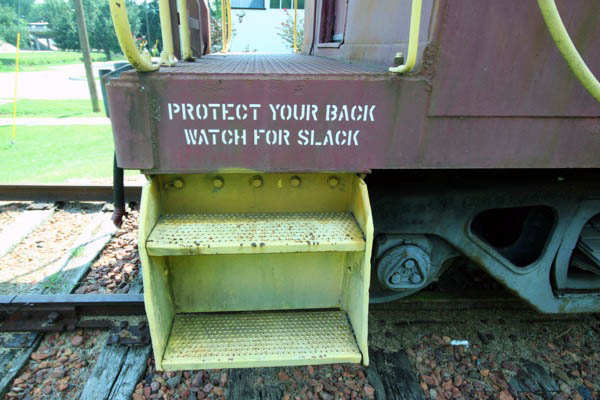
Jul 2023 / RWH
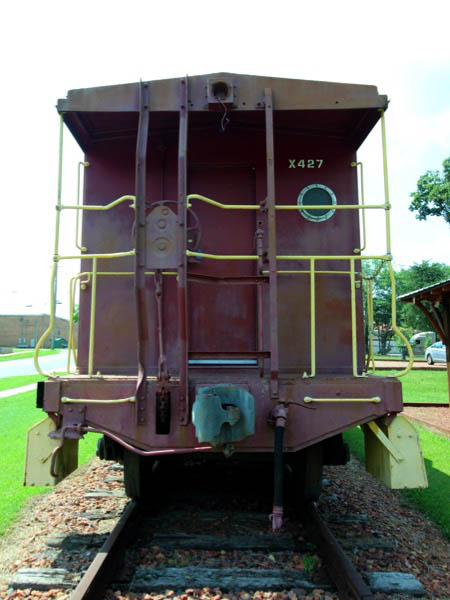
Jul 2023 / RWH
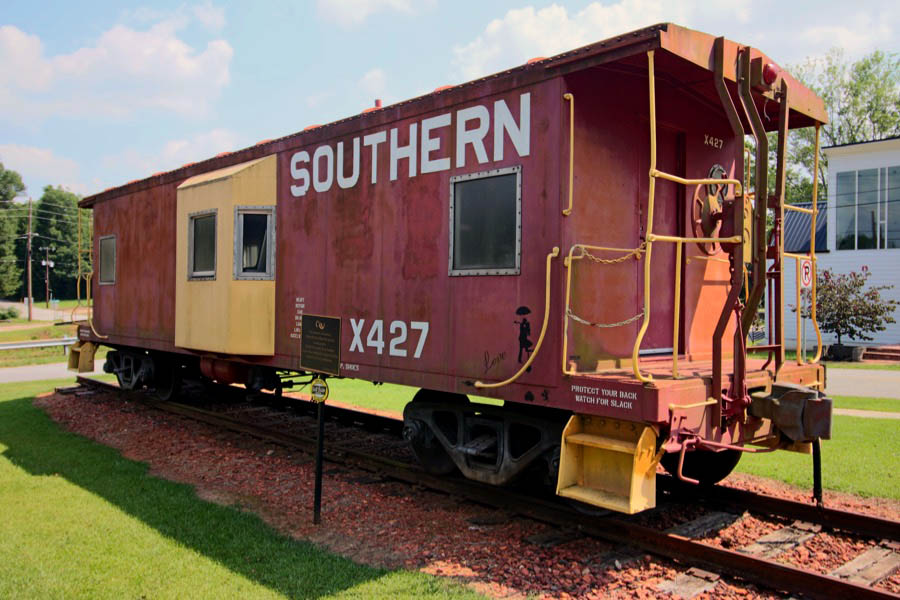
Opelika, Al / Jul 2023 / RWH
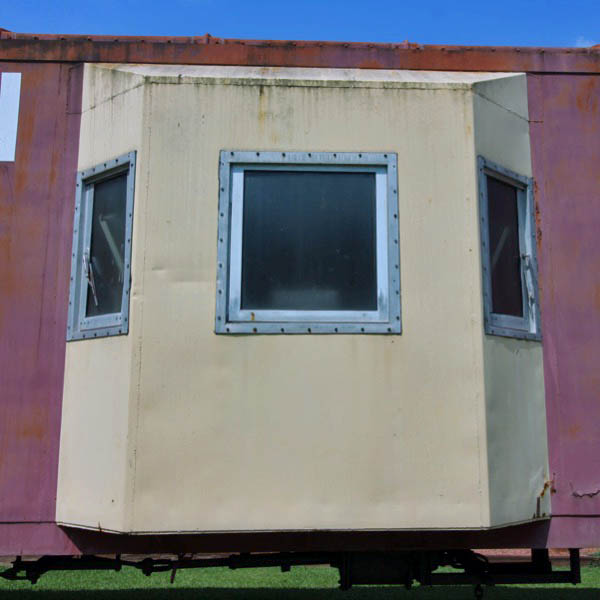
Jul 2023 / RWH
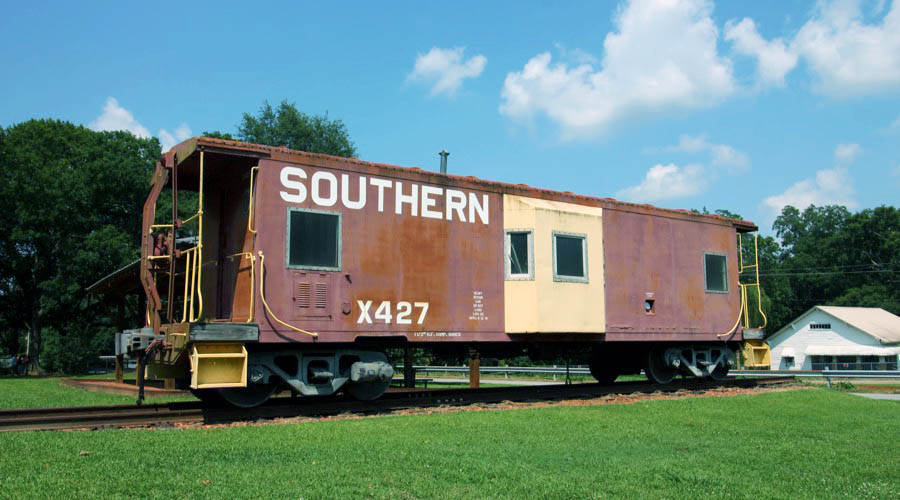
Opelika, Al / Jul 2023 / RWH
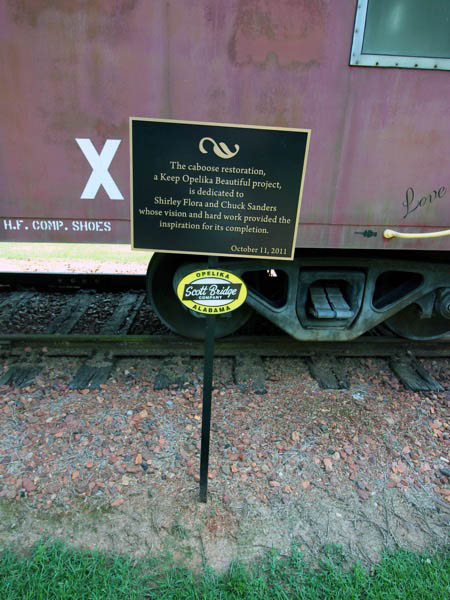
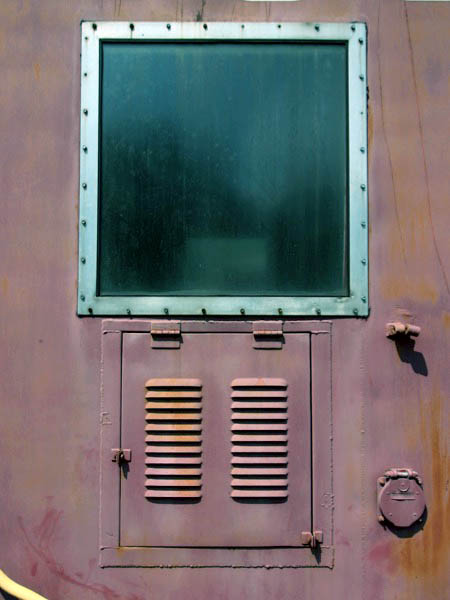
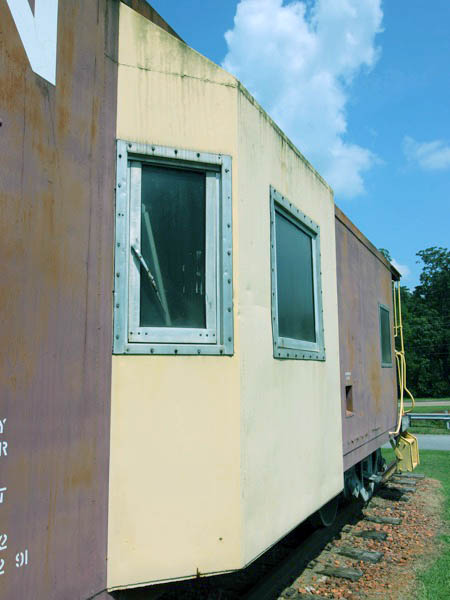
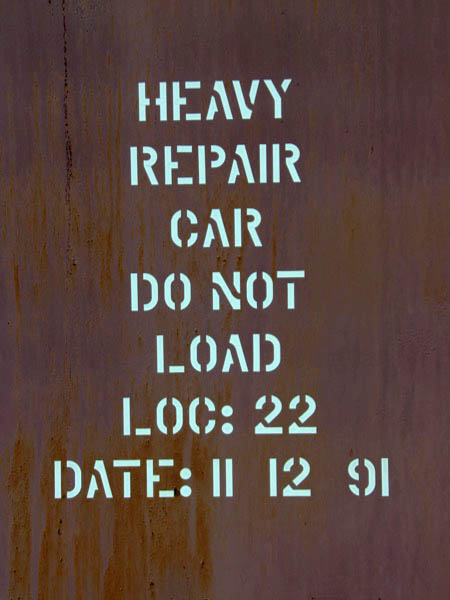
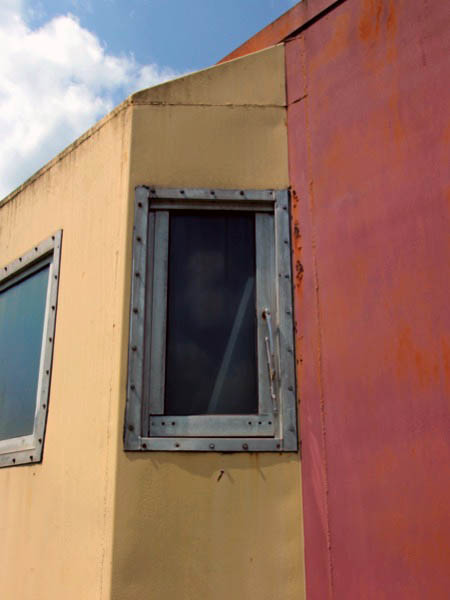
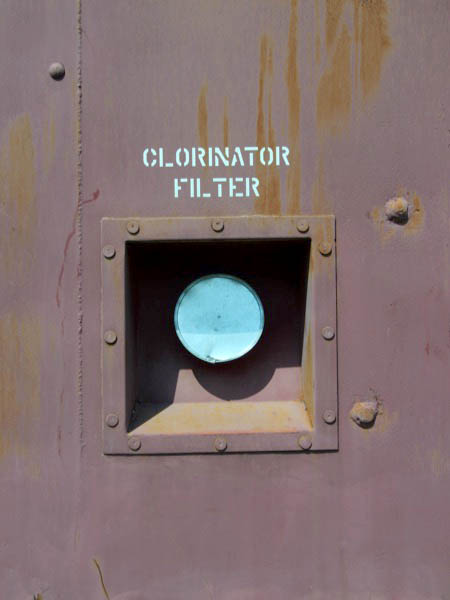
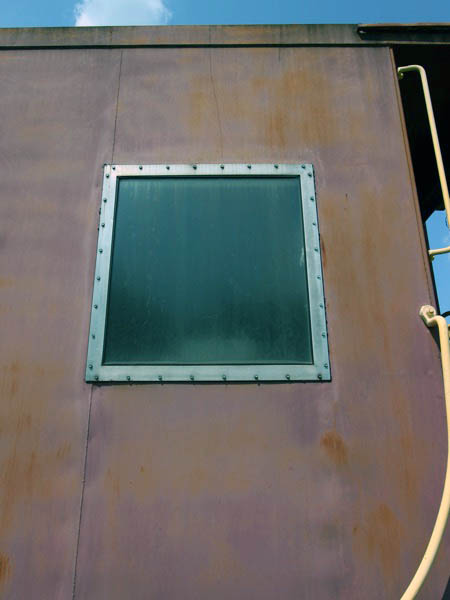
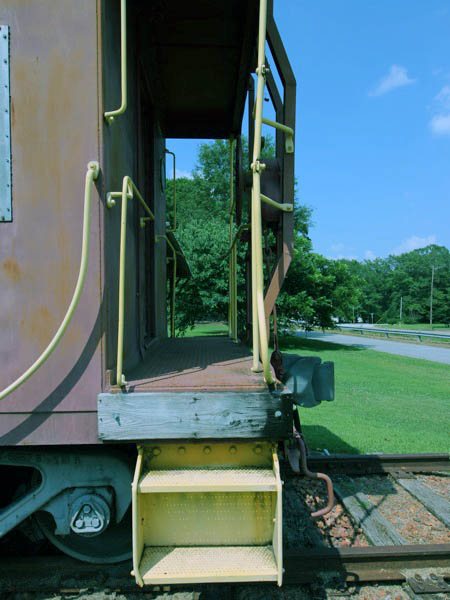
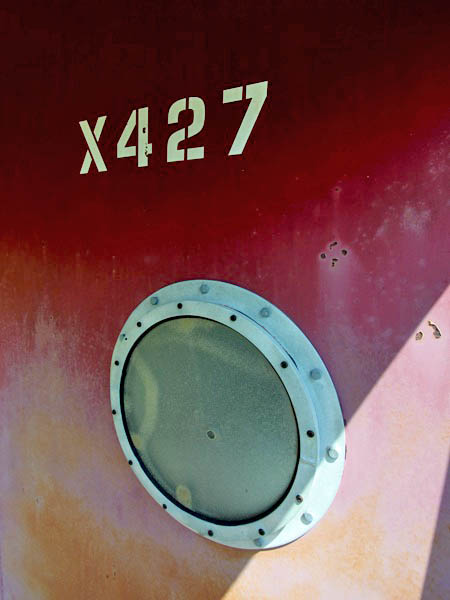
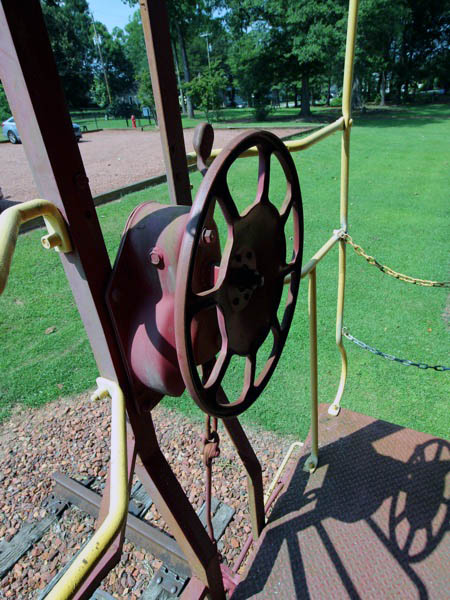
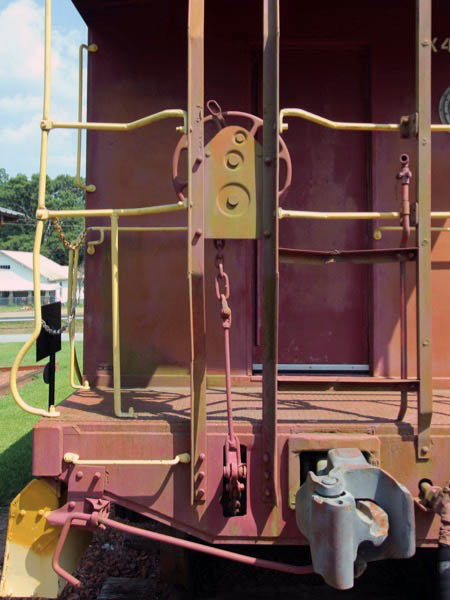
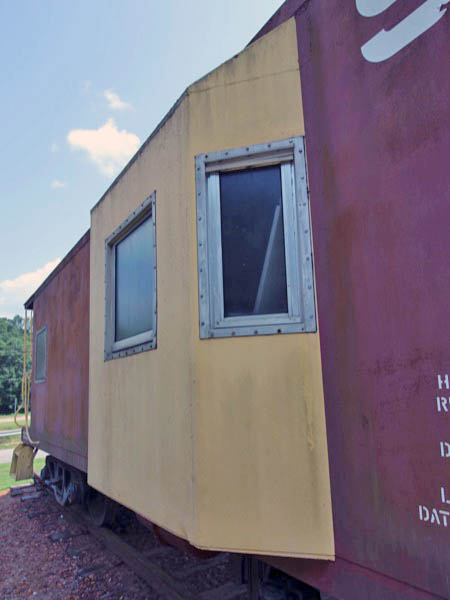
Jul 2023 / RWH
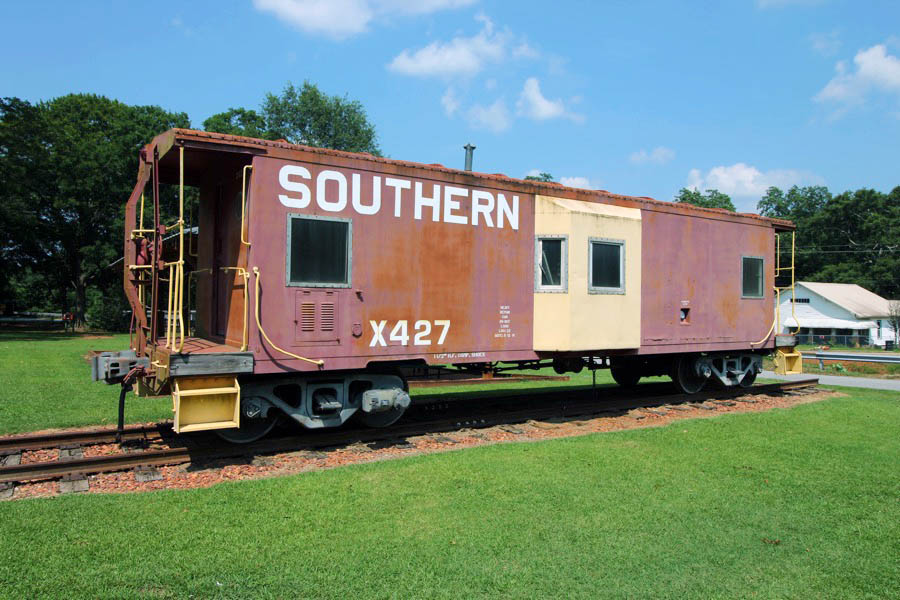
Opelika, Al / Jul 2023 / RWH
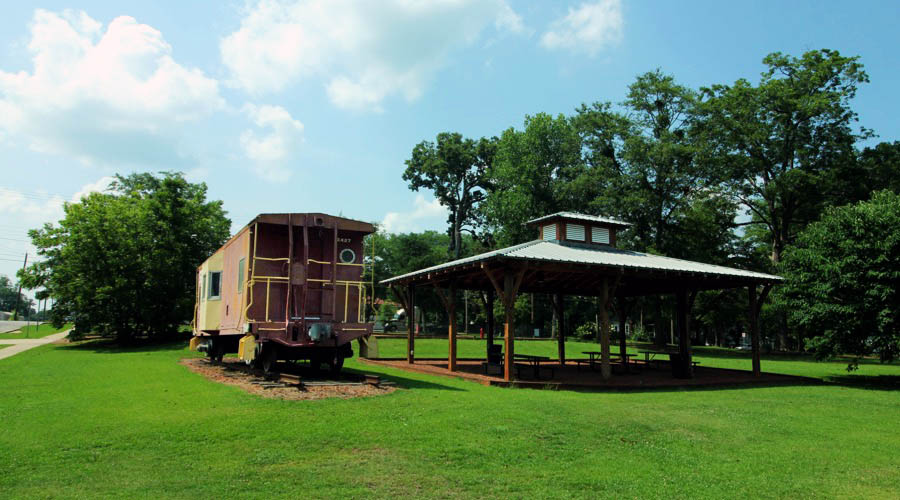
Opelika, Al / Jul 2023 / RWH
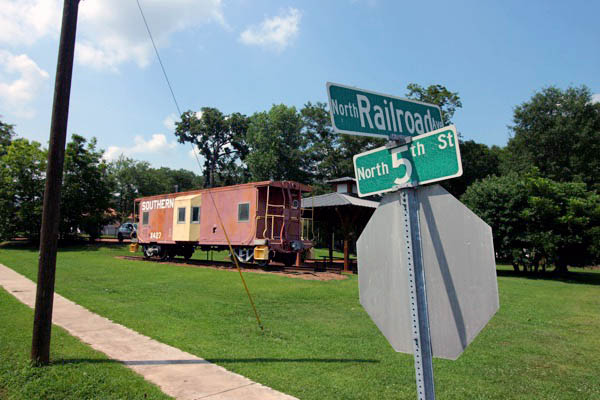
Opelika, Al / Jul 2023 / RWH
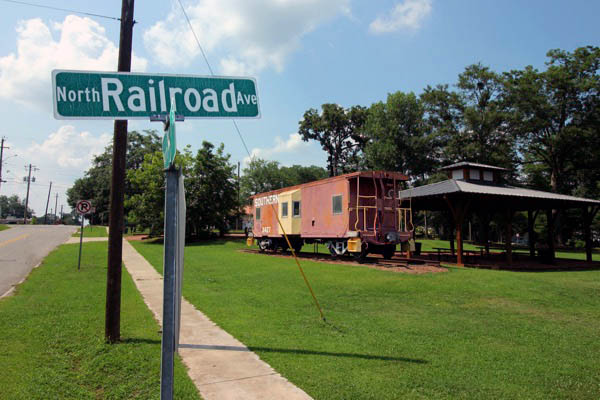
Opelika, Al / Jul 2023 / RWH
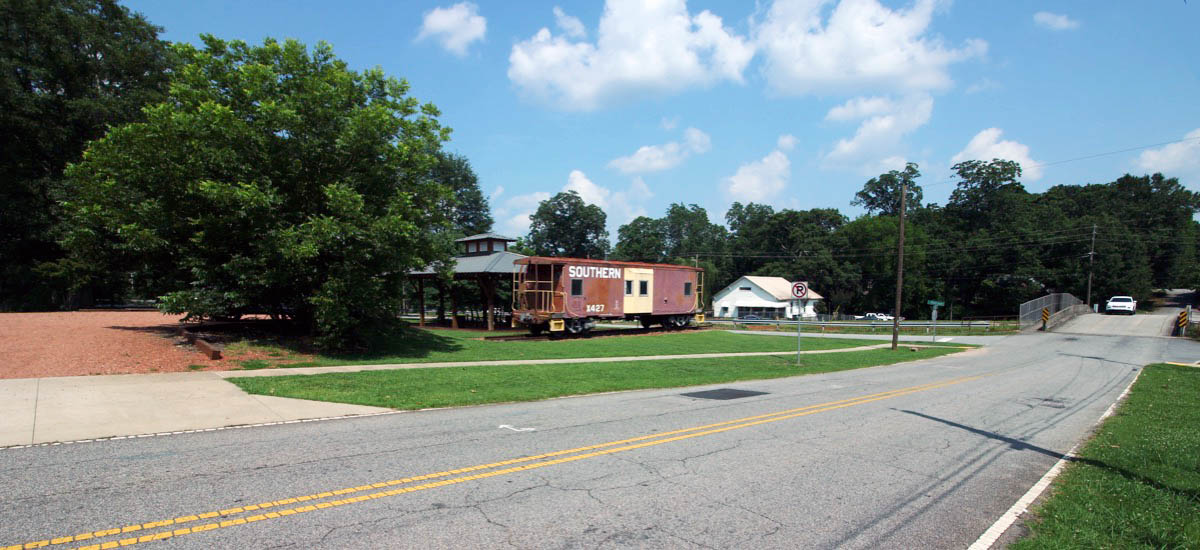
Opelika, Al / Jul 2023 / RWH
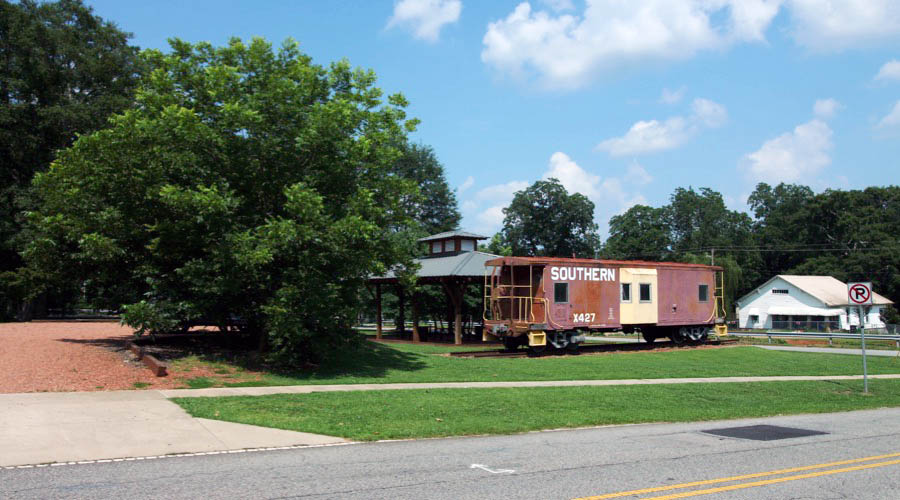
Opelika, Al / Jul 2023 / RWH
 Piedmont
Piedmont
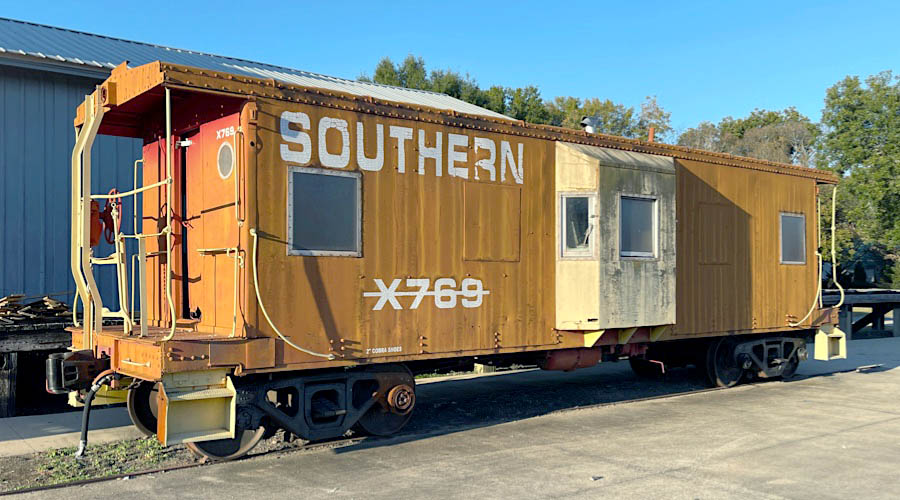
Southern Railway #X769
Piedmont, Al / Oct 2022 / RWH
 outhern #X769 sits adjacent to the handsome wooden depot in Piedmont, Alabama, a structure erected for the Alabama Tennessee River Railroad. This line became the Southern Railway's secondary line between Anniston and Rome, Georgia. The Seaboard Air Line had a parallel line that also passed through Piedmont, but both routes have been abandoned. As of 2022, the caboose sits in Piedmont on the depot house track — appropriately, on Southern Boulevard — likely just as it looked at retirement from Norfolk Southern ... plus additional weathering over the years. The Southern number is still blanked out, indicating removal from the roster. Southern lettering remains, but many of the data markings are gone. Despite numbering in the 700 range (normally road service cars), the car was last painted for local freight service — evidenced by the yellow bay window sections. It is missing its axle-mounted generator and a few other accessories. Blanked-out windows can clearly be seen along the carbody, indicating rebuilding from an older steel bay window.
outhern #X769 sits adjacent to the handsome wooden depot in Piedmont, Alabama, a structure erected for the Alabama Tennessee River Railroad. This line became the Southern Railway's secondary line between Anniston and Rome, Georgia. The Seaboard Air Line had a parallel line that also passed through Piedmont, but both routes have been abandoned. As of 2022, the caboose sits in Piedmont on the depot house track — appropriately, on Southern Boulevard — likely just as it looked at retirement from Norfolk Southern ... plus additional weathering over the years. The Southern number is still blanked out, indicating removal from the roster. Southern lettering remains, but many of the data markings are gone. Despite numbering in the 700 range (normally road service cars), the car was last painted for local freight service — evidenced by the yellow bay window sections. It is missing its axle-mounted generator and a few other accessories. Blanked-out windows can clearly be seen along the carbody, indicating rebuilding from an older steel bay window.

Click to see the Piedmont depot and caboose plotted on a Google Maps page
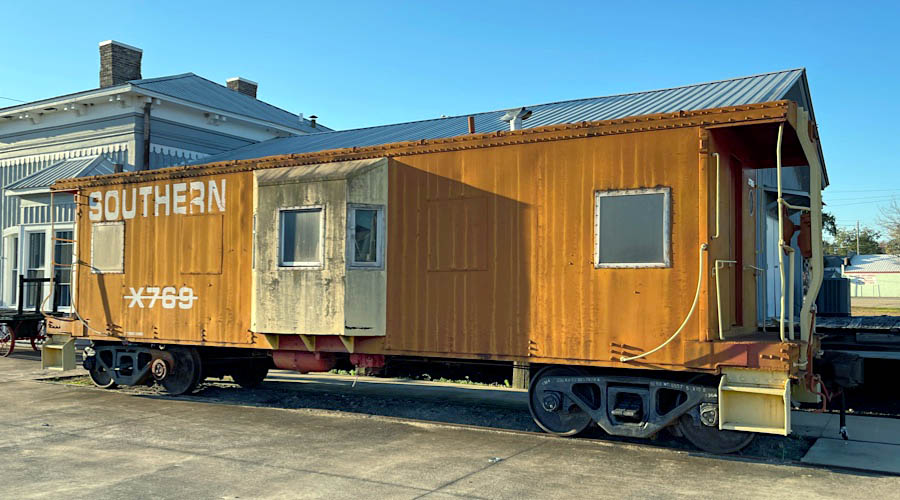
Piedmont, Al / Oct 2022 / RWH
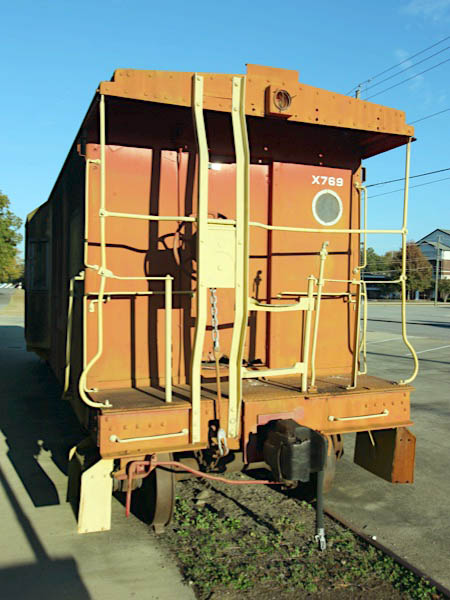
Oct 2022 / RWH
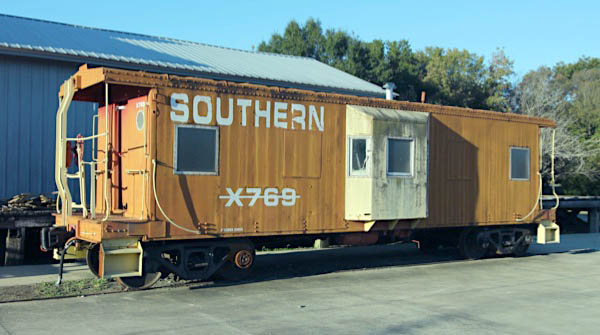
Piedmont, Al / Oct 2022 / RWH
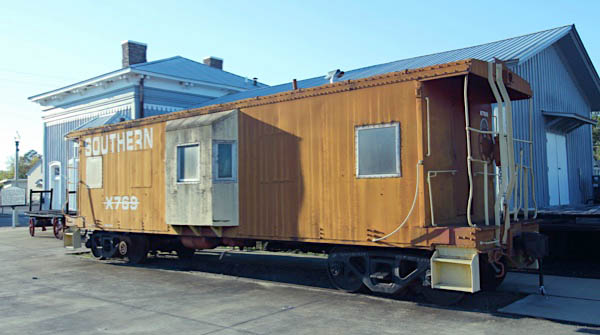
Piedmont, Al / Oct 2022 / RWH
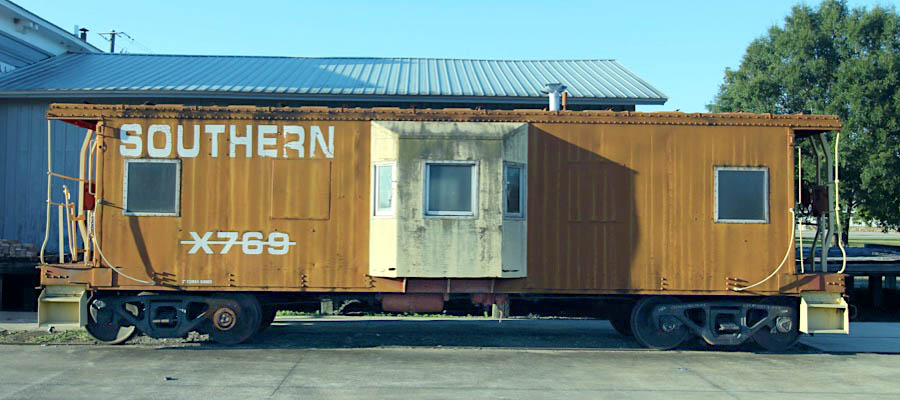
Piedmont, Al / Oct 2022 / RWH
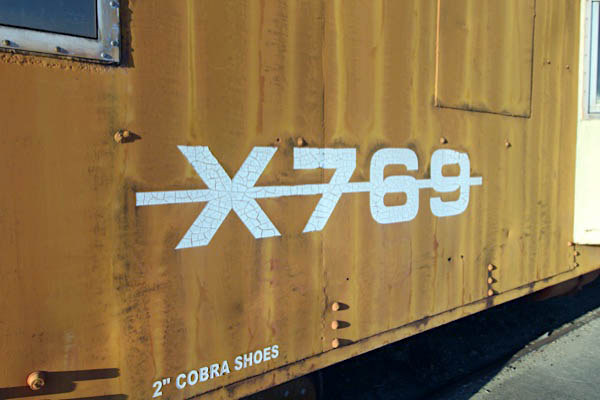
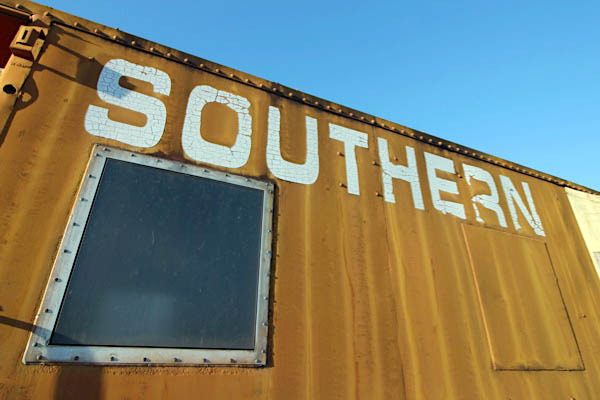
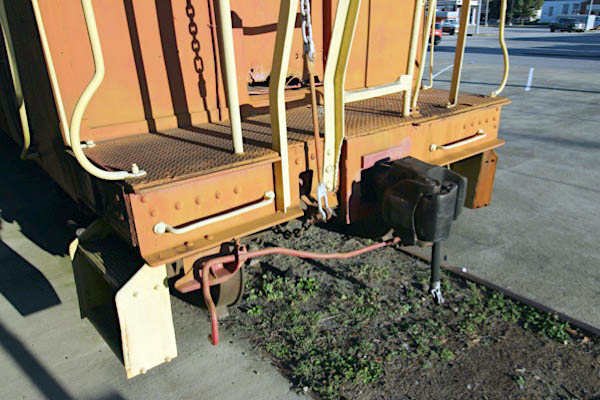
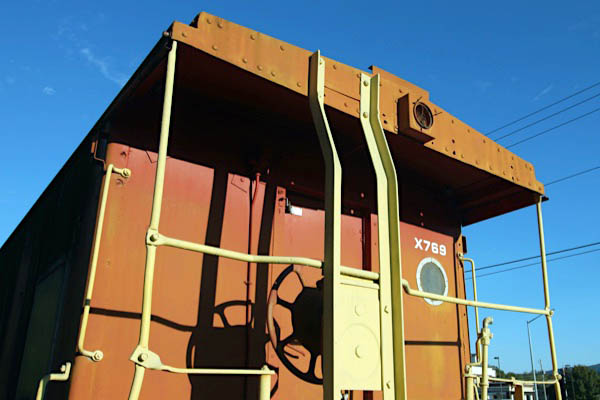
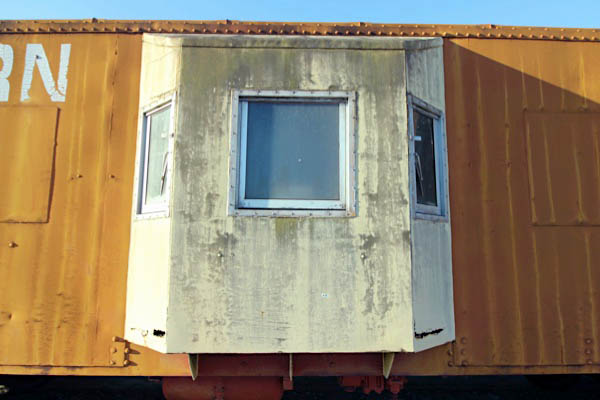
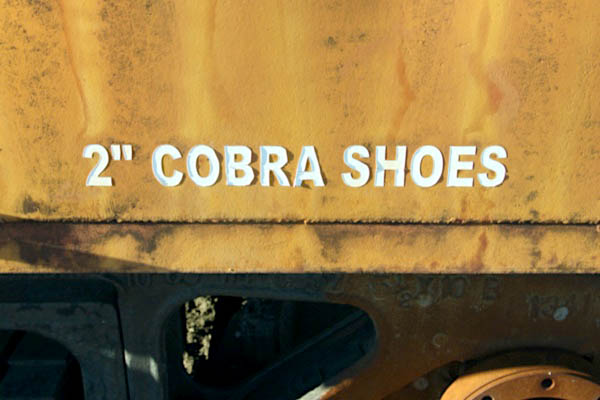
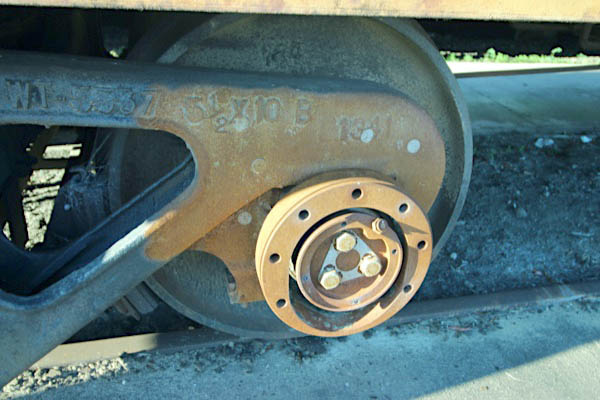
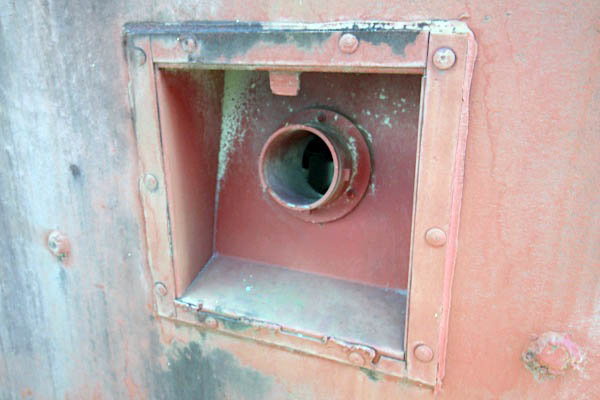
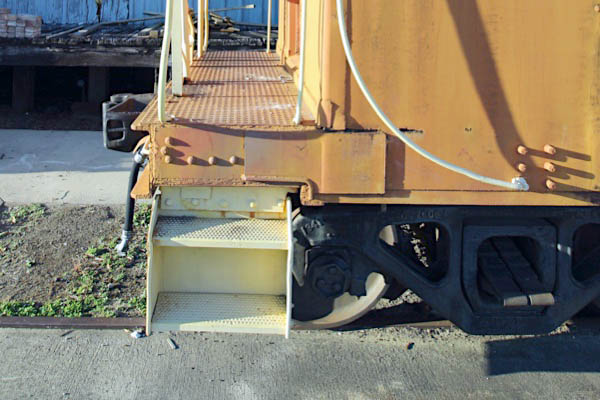
Oct 2022 / RWH
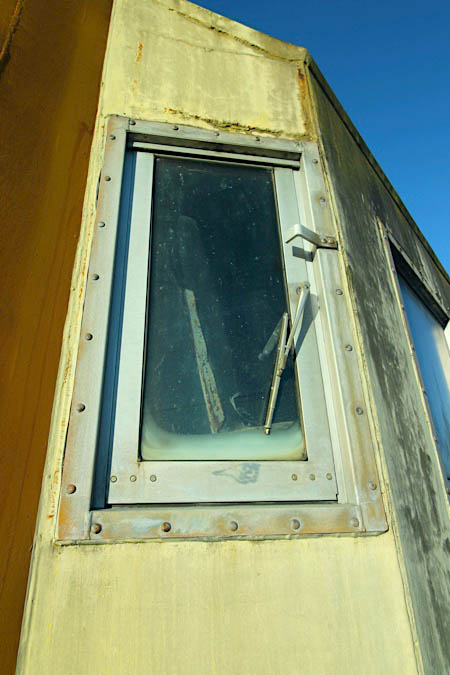
Oct 2022 / RWH
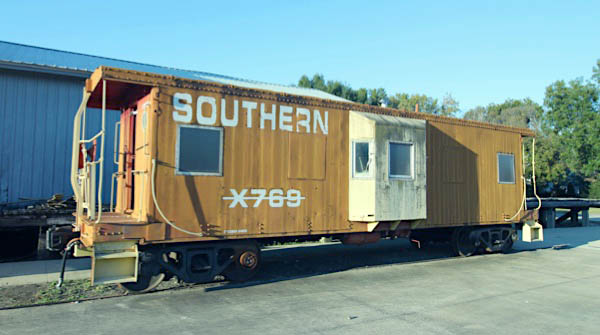
Piedmont, Al / Oct 2022 / RWH
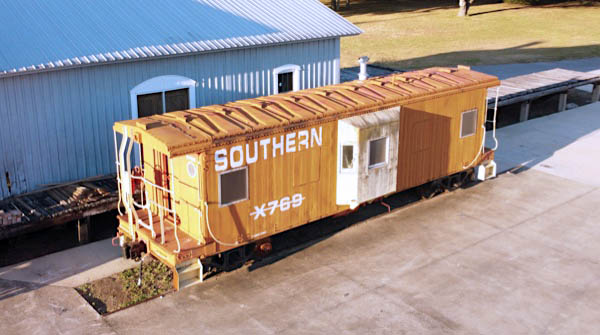
Piedmont, Al / Oct 2022 / RWH
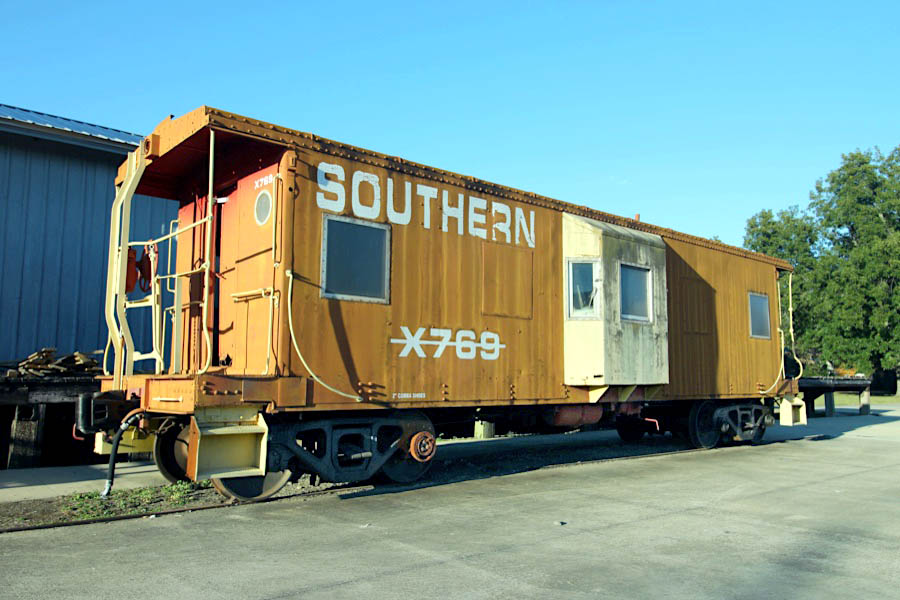
Piedmont, Al / Oct 2022 / RWH
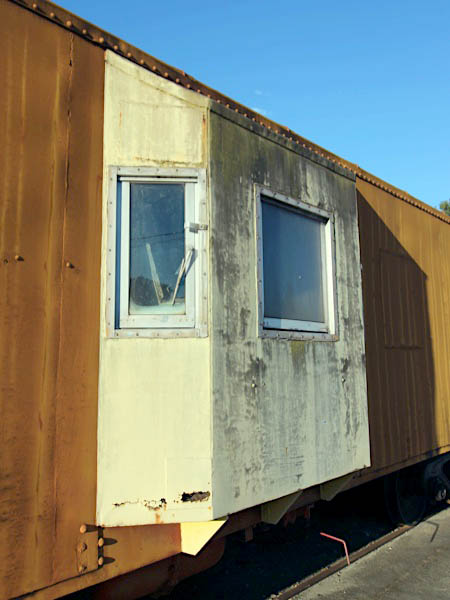
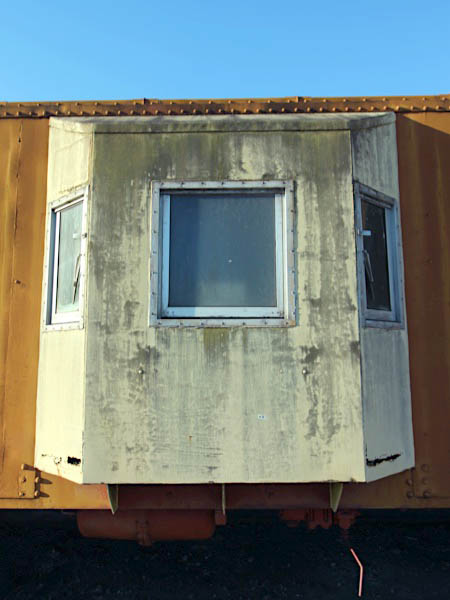
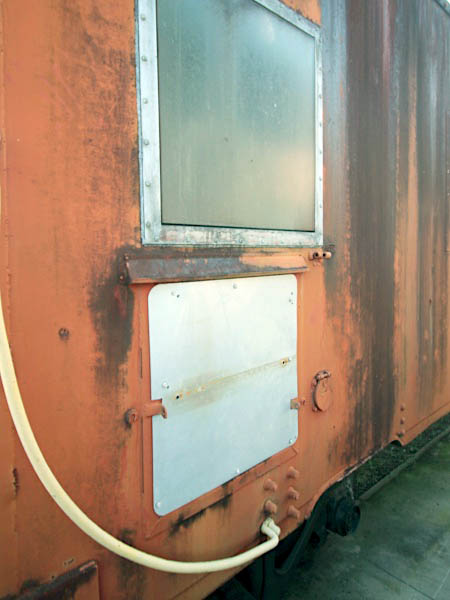
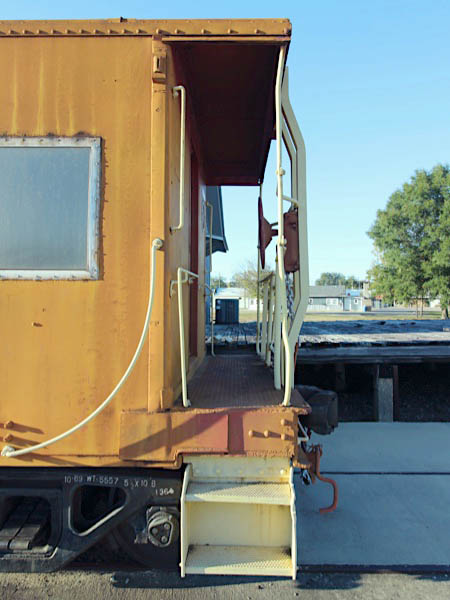
Oct 2022 / RWH
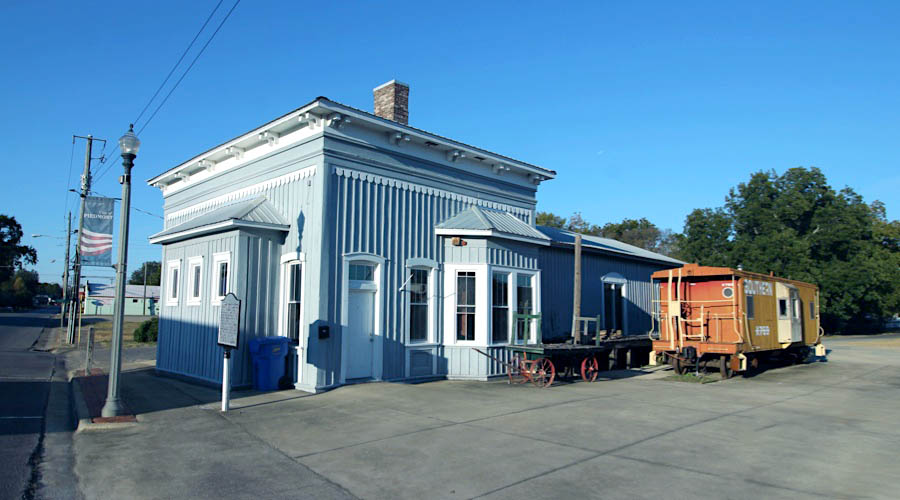
Piedmont, Al / Oct 2022 / RWH
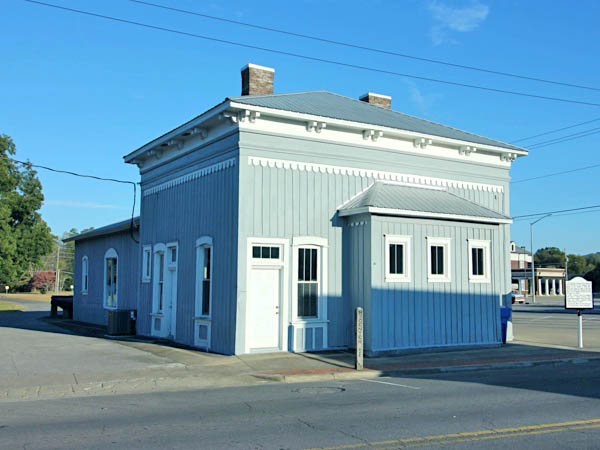
Piedmont, Al / Oct 2022 / RWH
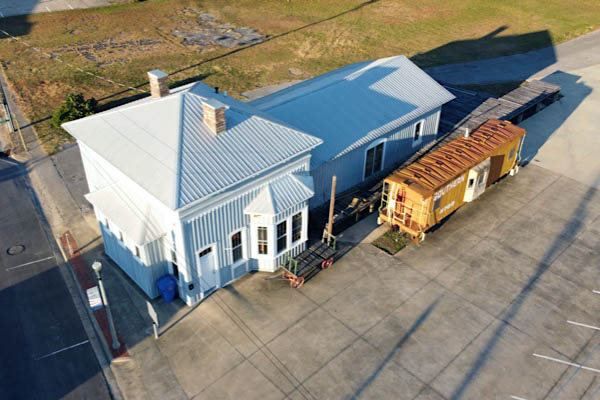
Piedmont, Al / Oct 2022 / RWH
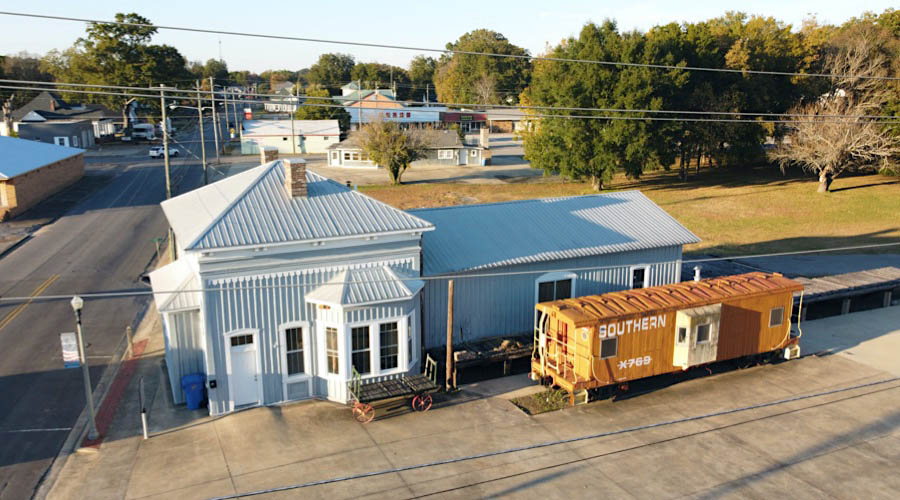
Piedmont, Al / Oct 2022 / RWH
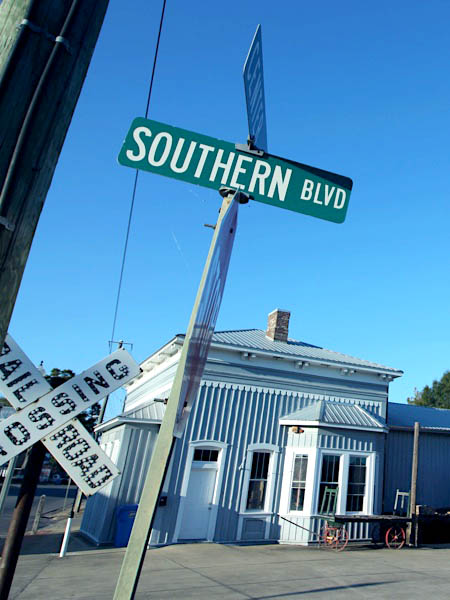
Oct 2022 / RWH
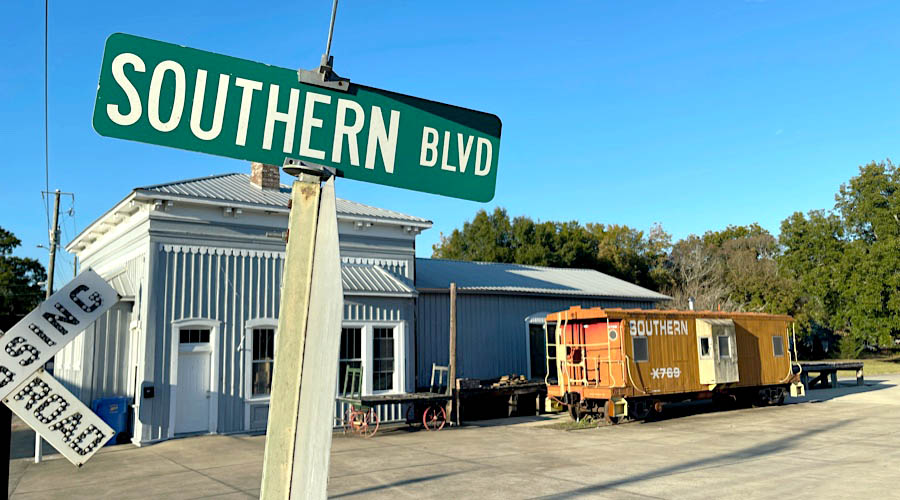
Piedmont, Al / Oct 2022 / RWH
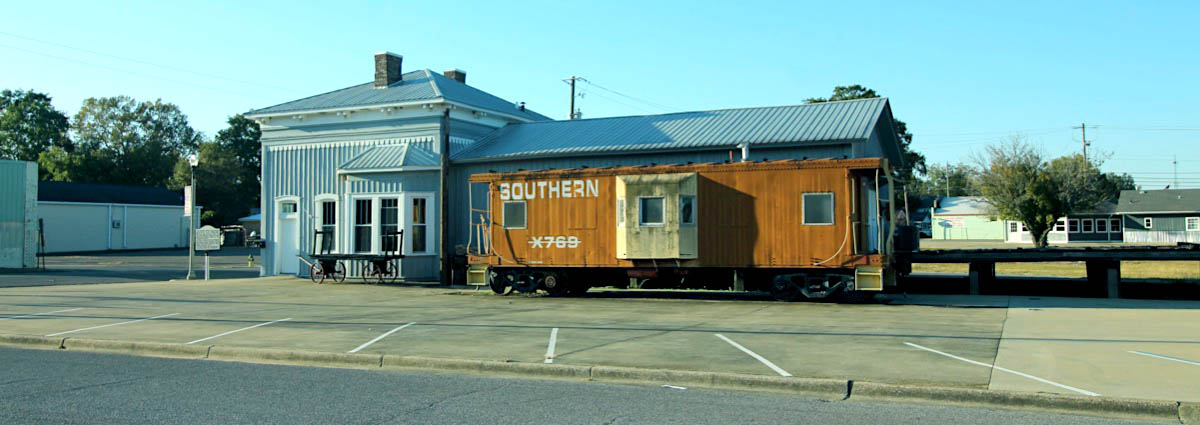
Piedmont, Al / Oct 2022 / RWH
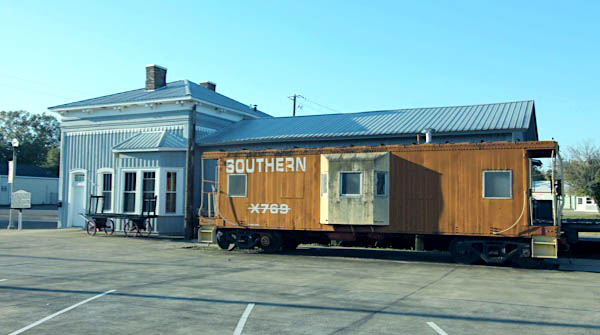
Piedmont, Al / Oct 2022 / RWH
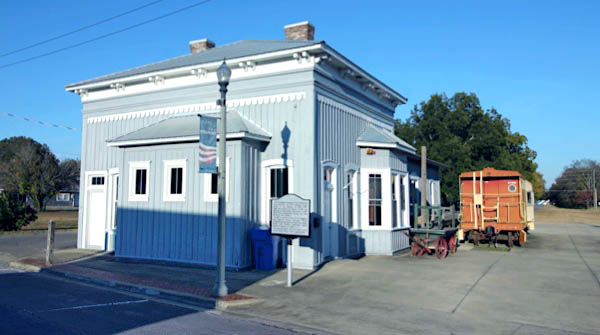
Piedmont, Al / Oct 2022 / RWH
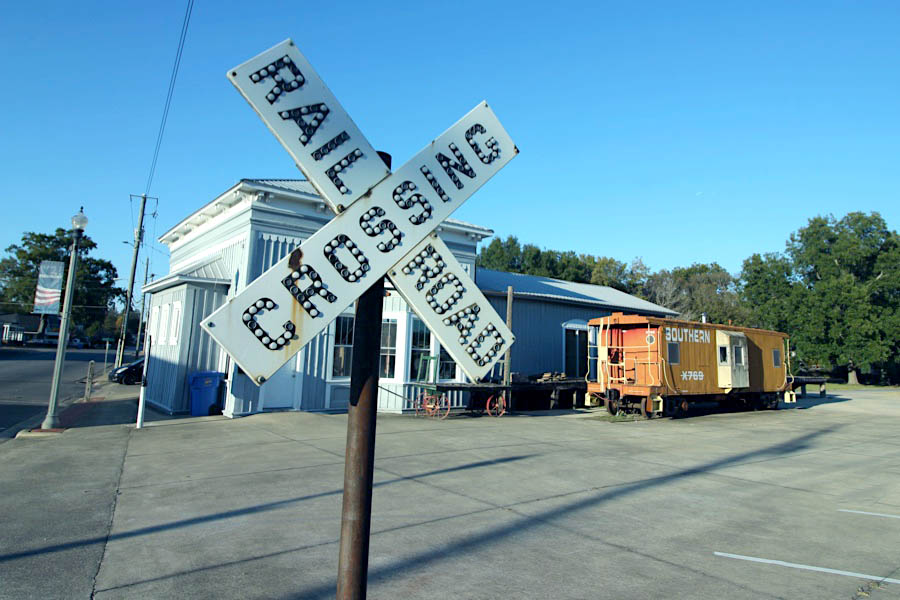
Piedmont, Al / Oct 2022 / RWH
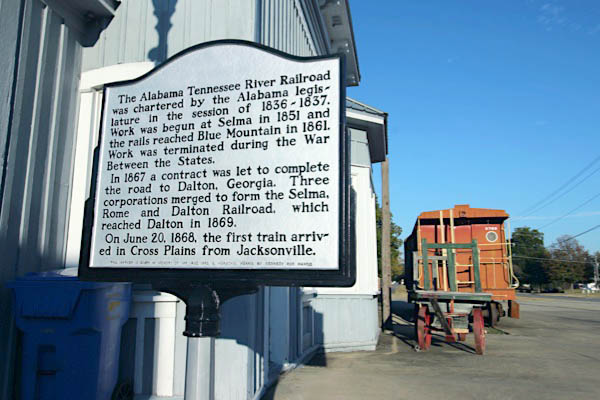
Piedmont, Al / Oct 2022 / RWH
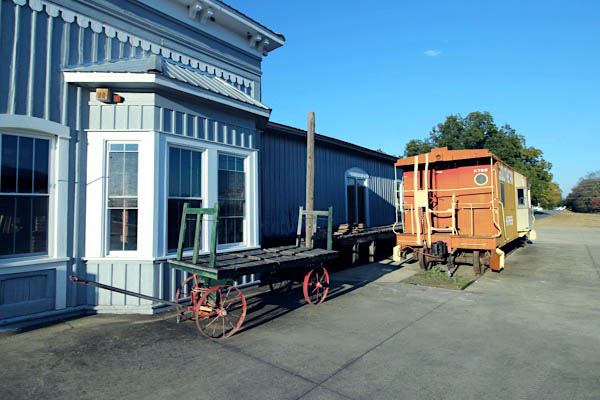
Piedmont, Al / Oct 2022 / RWH
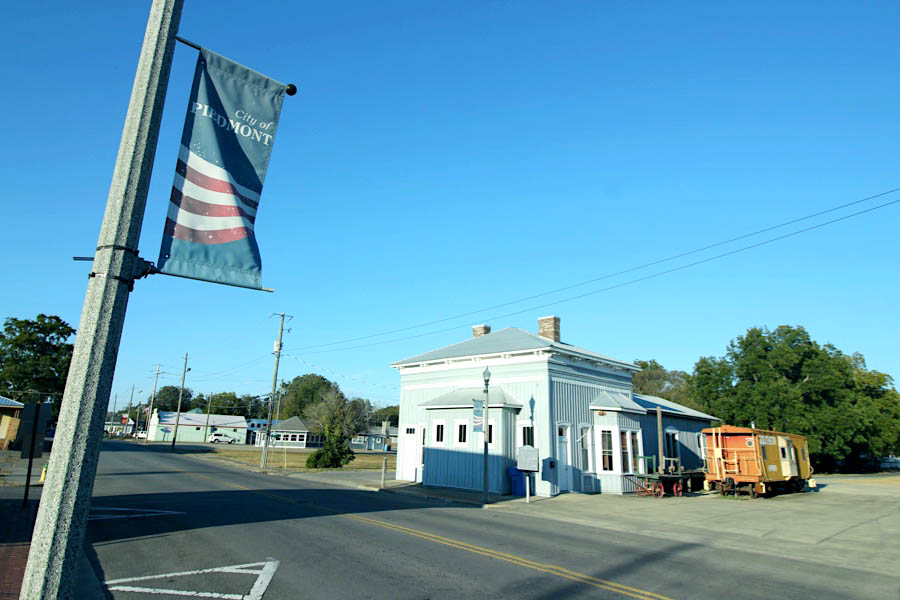
Piedmont, Al / Oct 2022 / RWH
 Satsuma
Satsuma
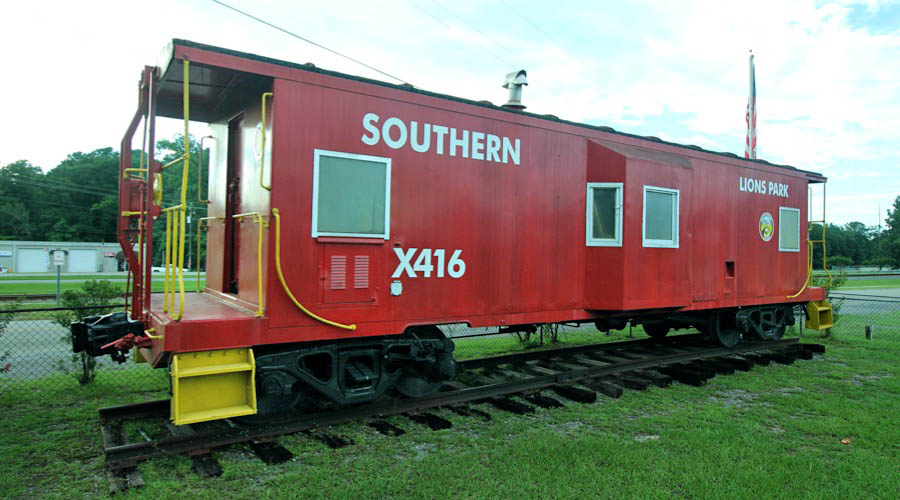
Southern Railway #X416
Satsuma, Al / Jul 2022 / RWH
 outhern #X416 is well preserved on display at the entrance to the Lions Park along Old Highway 43 in Satsuma, Alabama, north of Mobile. The car features authentic Southern caboose red paint with yellow highlights, together standard aluminum window frames. Although it is lettered and numbered for Southern, the font is atypical and the car lacks any other markings. Lions Park sits adjacent to the Norfolk Southern mainline into Mobile.
outhern #X416 is well preserved on display at the entrance to the Lions Park along Old Highway 43 in Satsuma, Alabama, north of Mobile. The car features authentic Southern caboose red paint with yellow highlights, together standard aluminum window frames. Although it is lettered and numbered for Southern, the font is atypical and the car lacks any other markings. Lions Park sits adjacent to the Norfolk Southern mainline into Mobile.

Click to see the Satsuma Lions Park entrance plotted on a Google Maps page
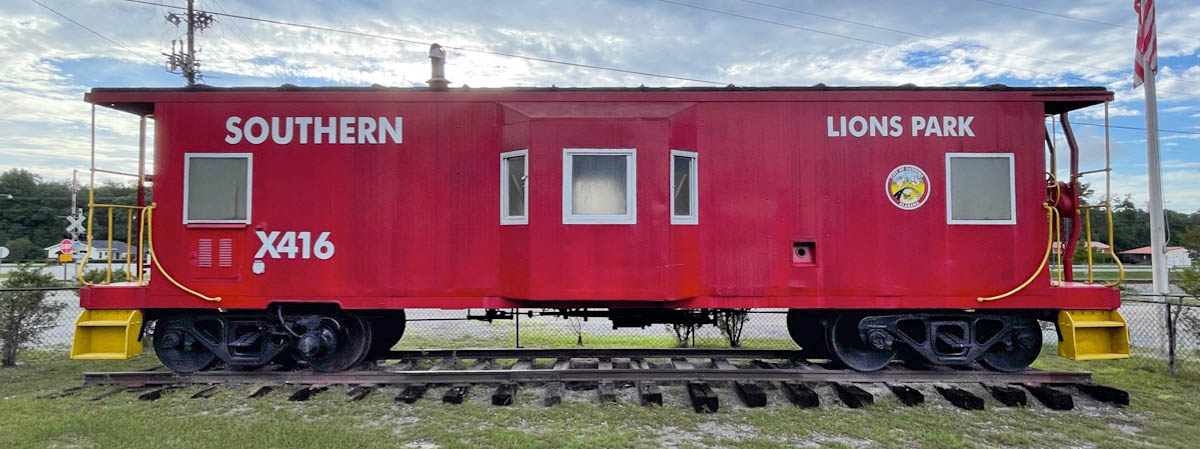
Satsuma, Al / Jul 2022 / RWH
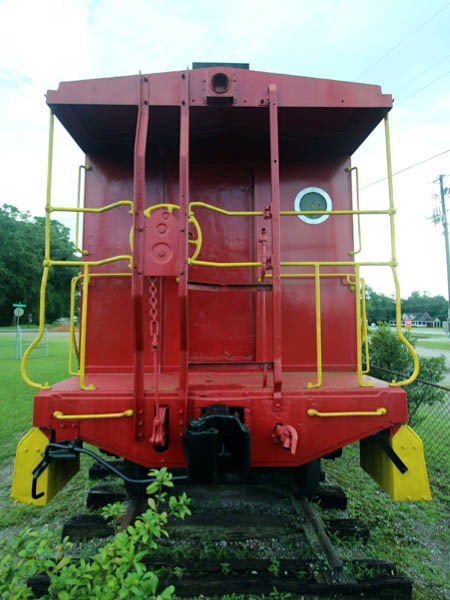
Jul 2022 / RWH
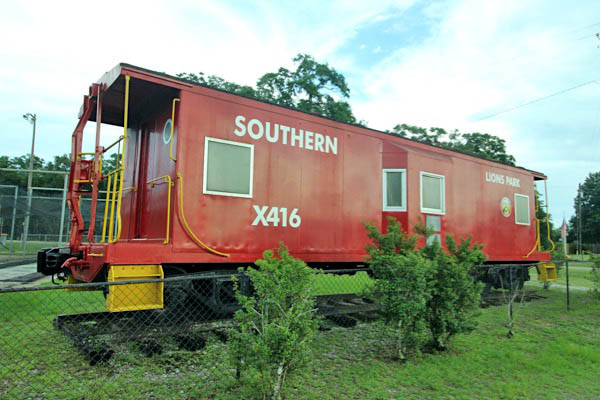
Satsuma, Al / Jul 2022 / RWH
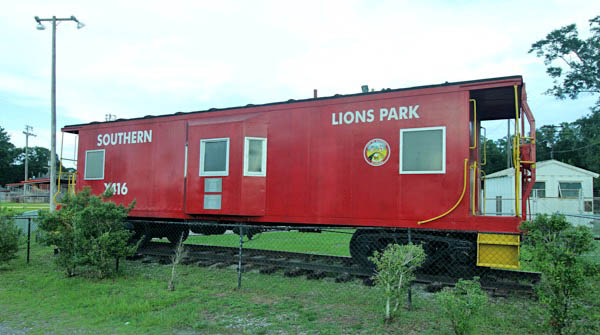
Satsuma, Al / Jul 2022 / RWH
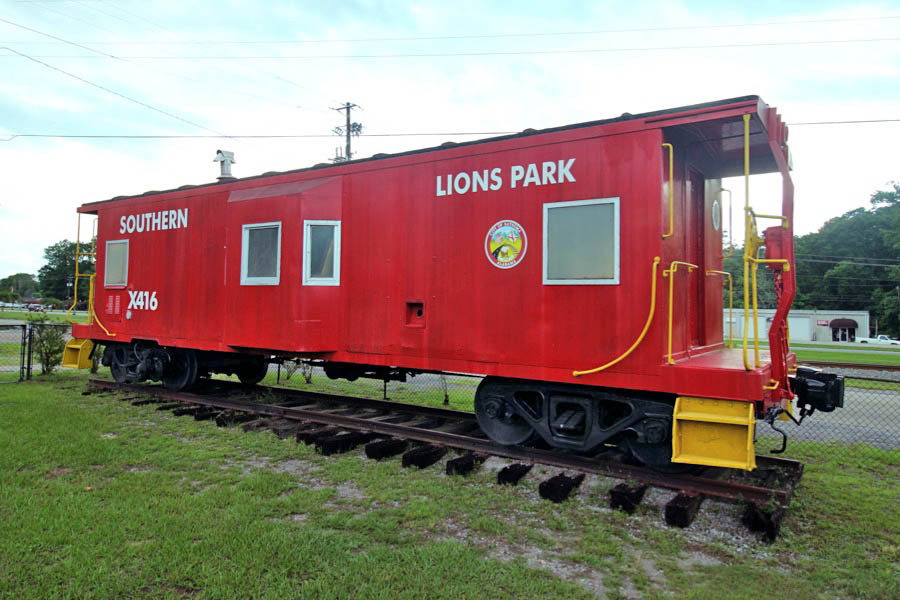
Satsuma, Al / Jul 2022 / RWH
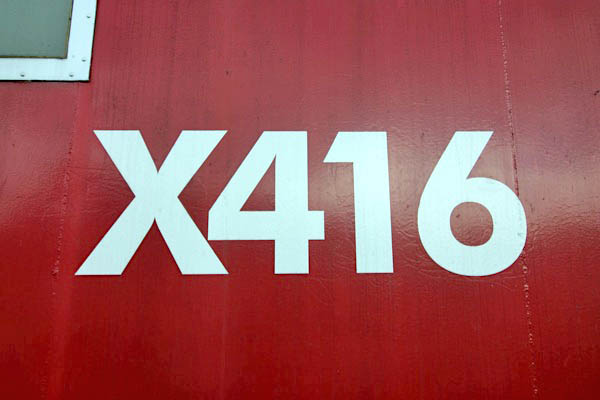
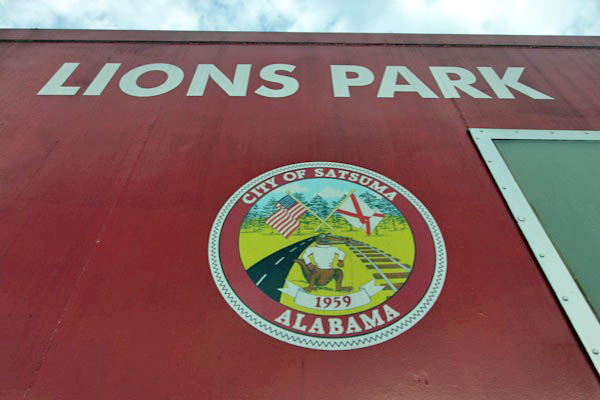
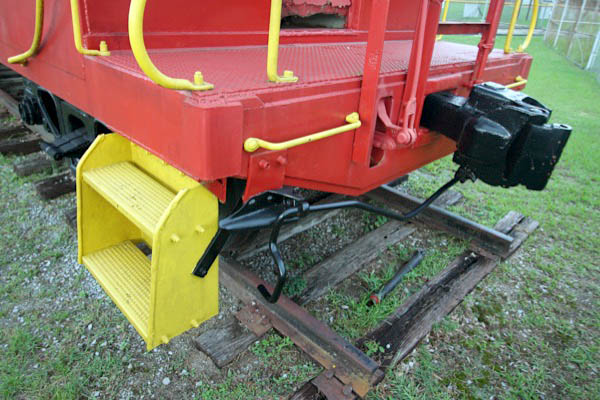
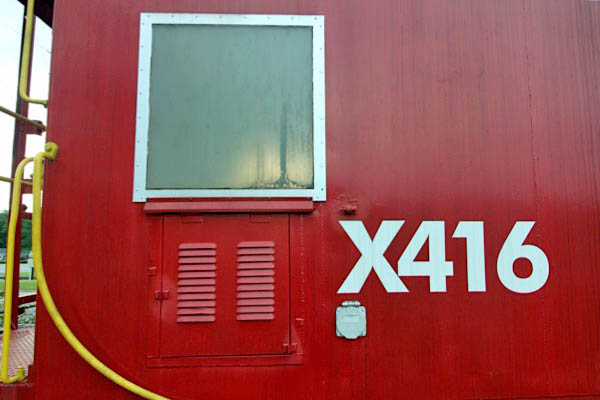
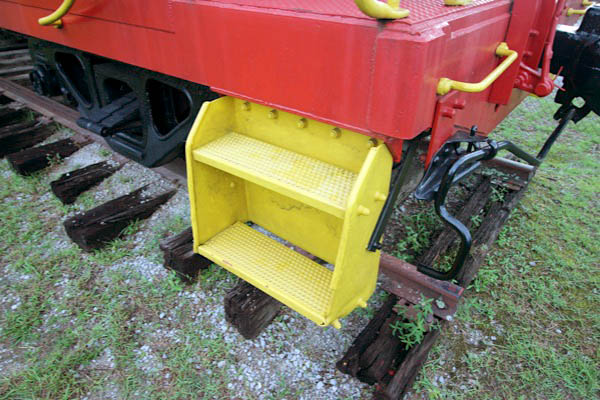
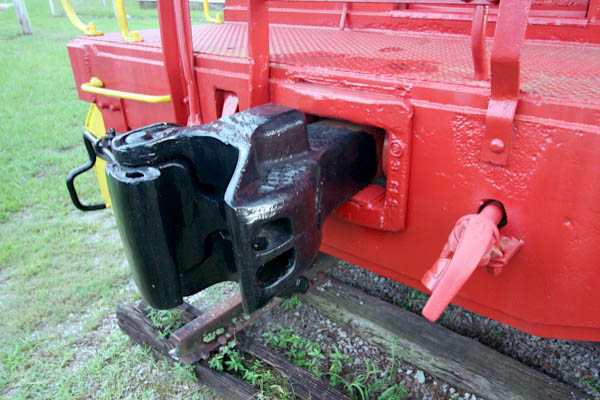
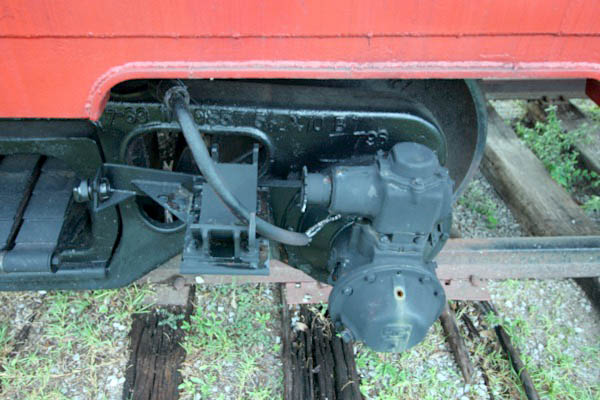
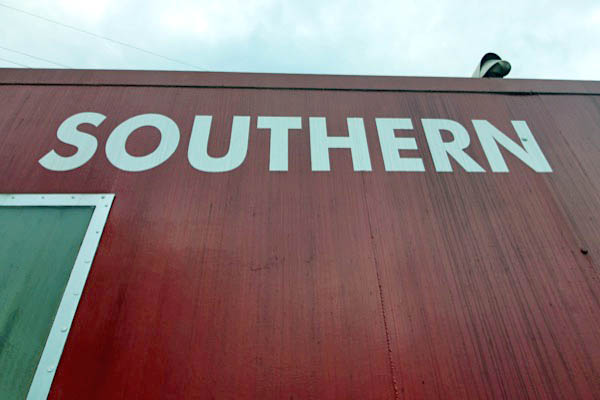
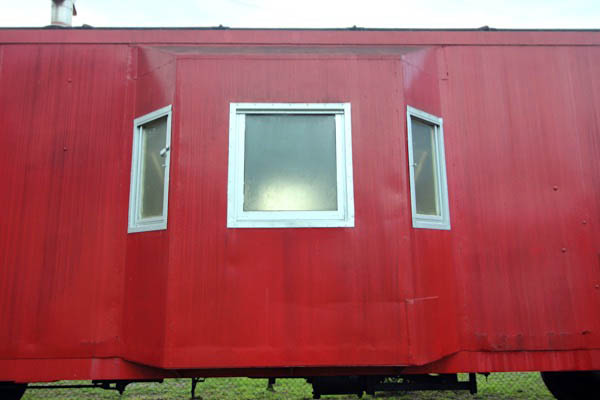
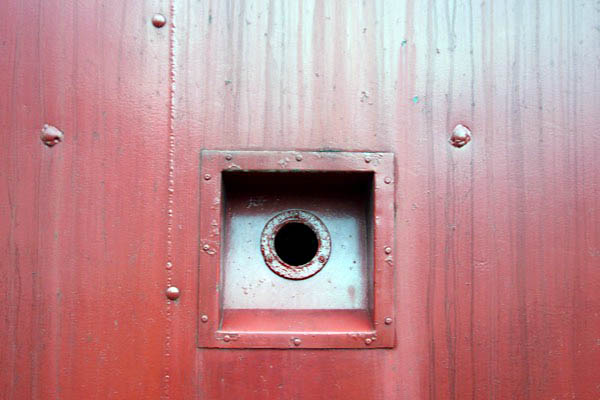
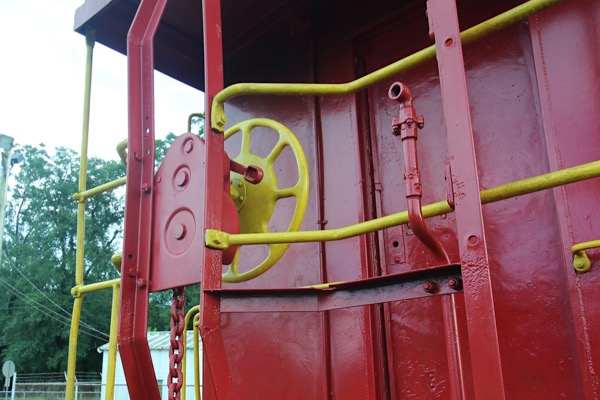
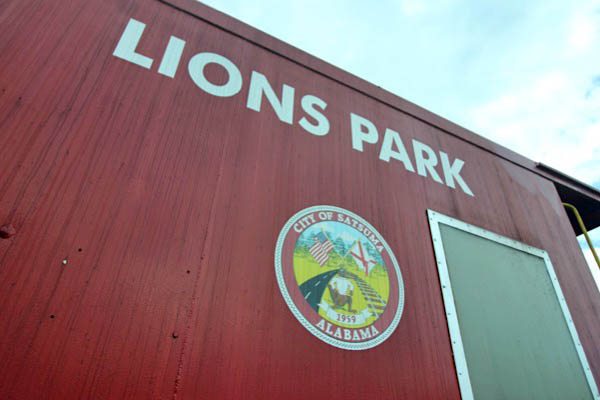
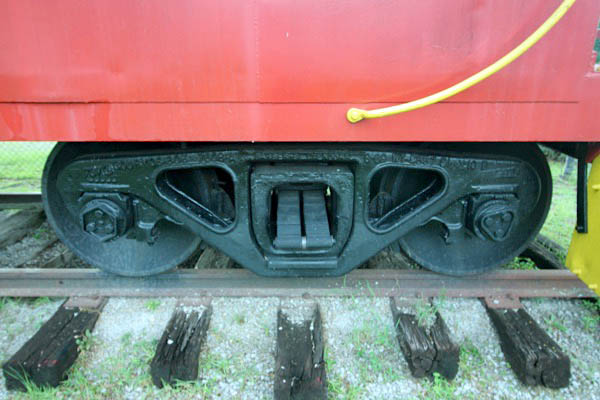
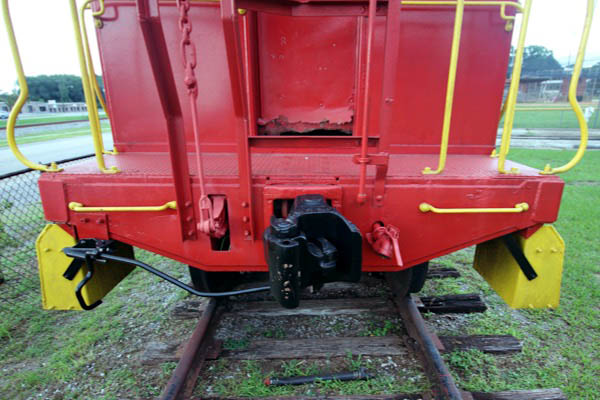
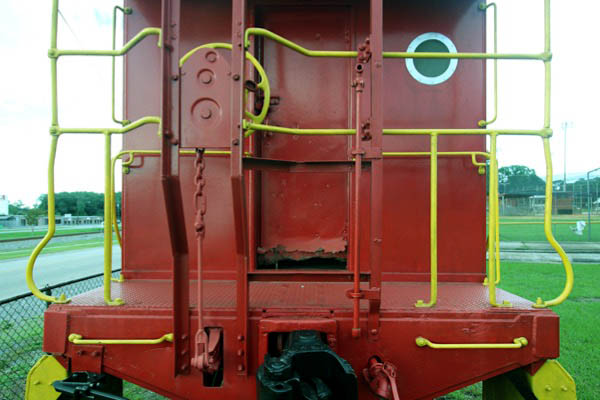
Jul 2022 / RWH
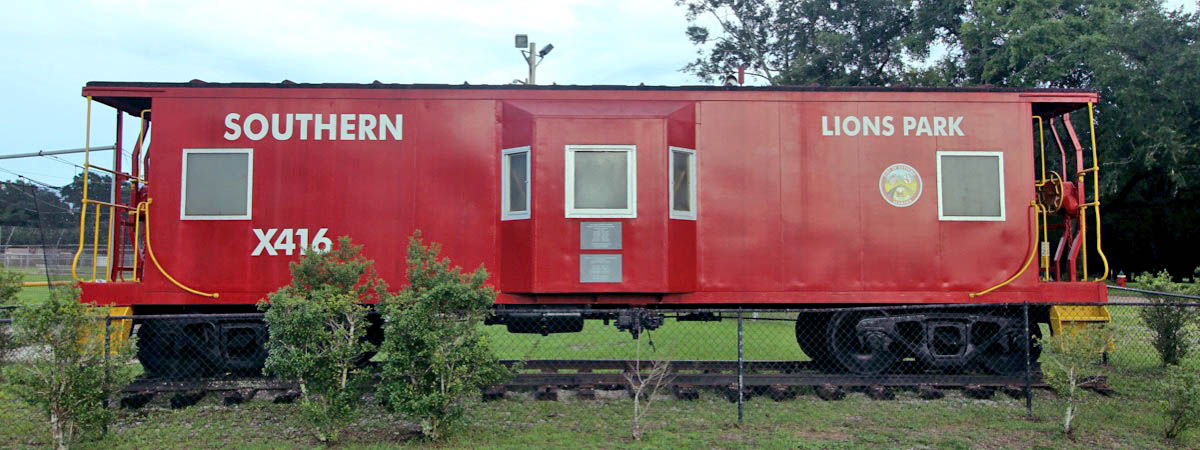
Satsuma, Al / Jul 2022 / RWH
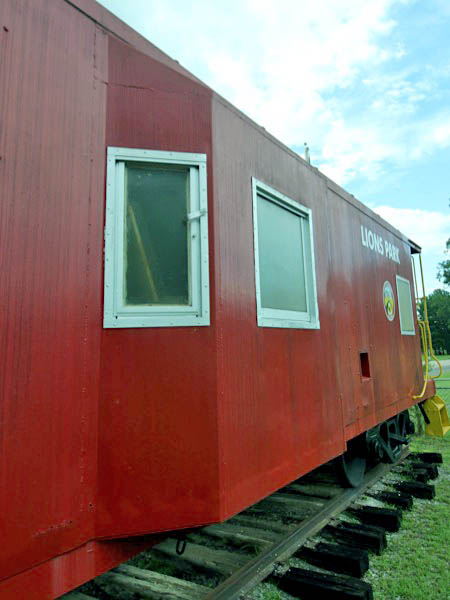
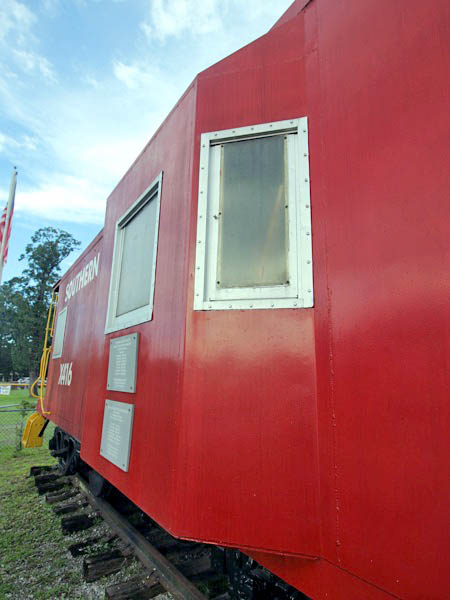
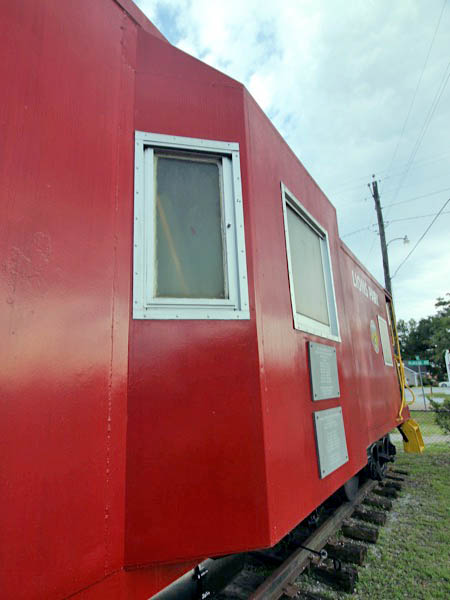
Jul 2022 / RWH
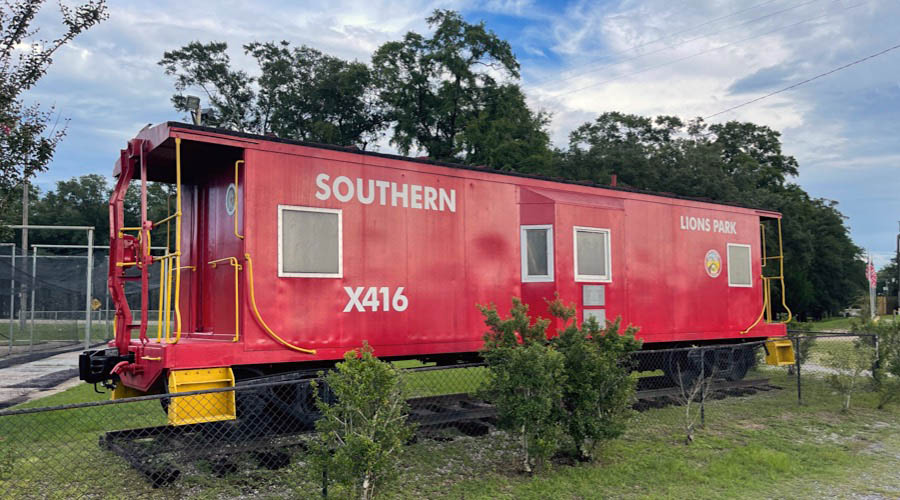
Satsuma, Al / Jul 2022 / RWH
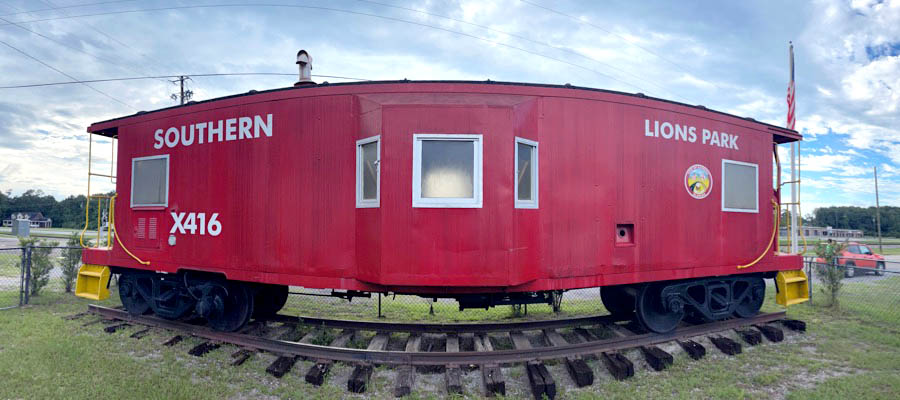
Satsuma, Al / Jul 2022 / RWH
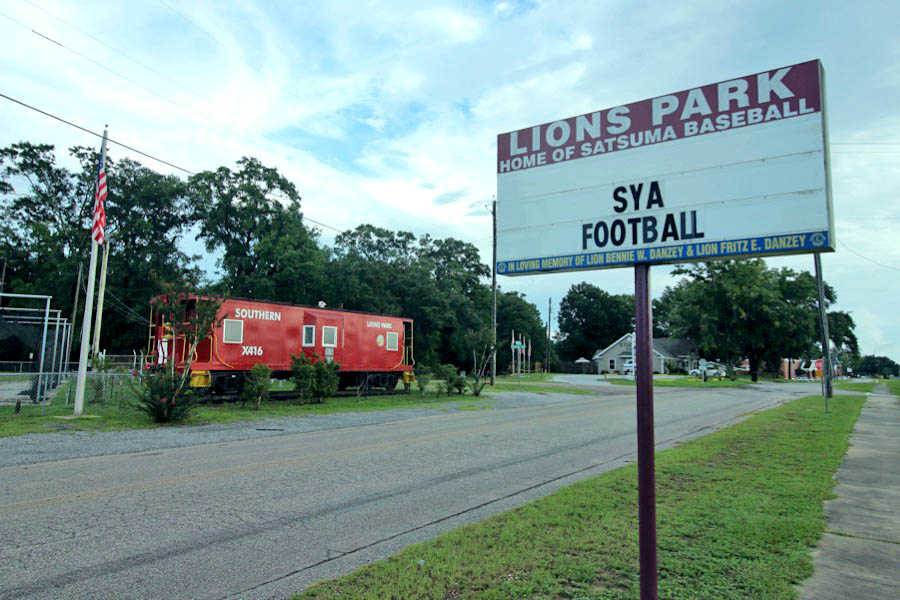
Satsuma, Al / Jul 2022 / RWH
 Sheffield
Sheffield
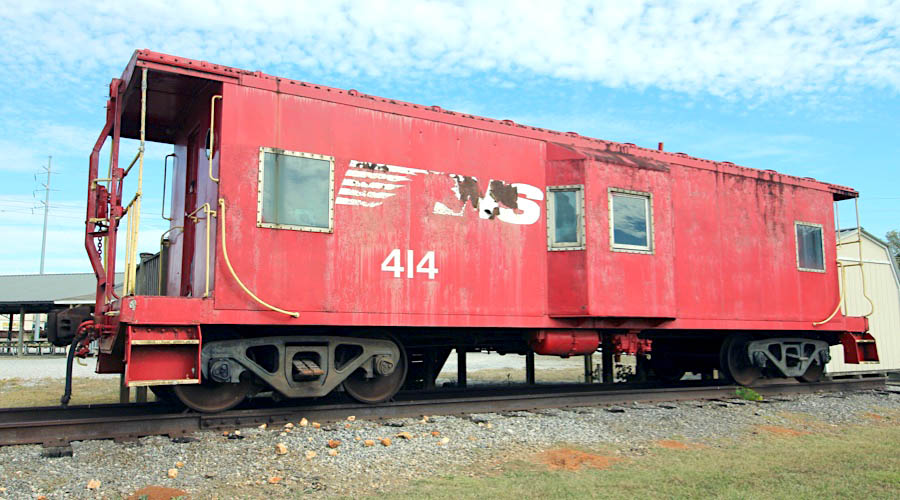
Norfolk Southern #414
Sheffield, Al / Oct 2022 / RWH
 ow lettered for Norfolk Southern, former Southern #X414 is on display on Norfolk Southern property at the west end yard office in Sheffield, Alabama. Norfolk Southern emblems were applied and the "X" was dropped from the Southern number, but otherwise the car remains a good example of service-era bay windows. As of 2022, the body shows some rust and weathering, but appears to be in decent physical shape otherwise. Although parked on railroad property, it can be photographed from the public access road off the main highway.
ow lettered for Norfolk Southern, former Southern #X414 is on display on Norfolk Southern property at the west end yard office in Sheffield, Alabama. Norfolk Southern emblems were applied and the "X" was dropped from the Southern number, but otherwise the car remains a good example of service-era bay windows. As of 2022, the body shows some rust and weathering, but appears to be in decent physical shape otherwise. Although parked on railroad property, it can be photographed from the public access road off the main highway.

Click to see the Sheffield yard office area plotted on a Google Maps page
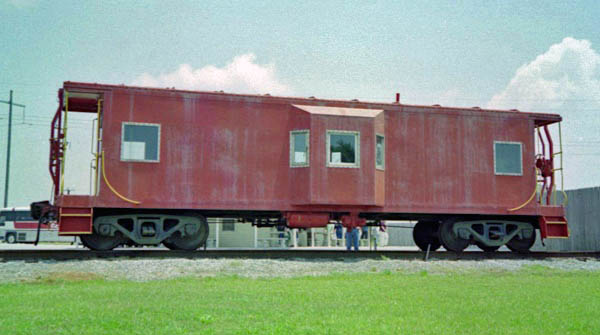
Sheffield, Al / May 1999 / JCH
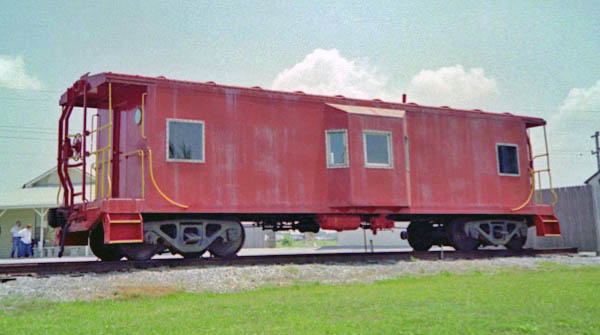
Sheffield, Al / May 1999 / JCH
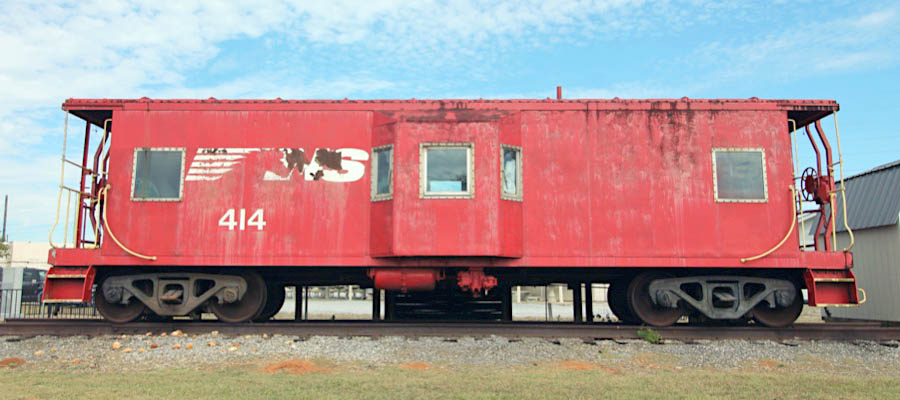
Sheffield, Al / Oct 2022 / RWH
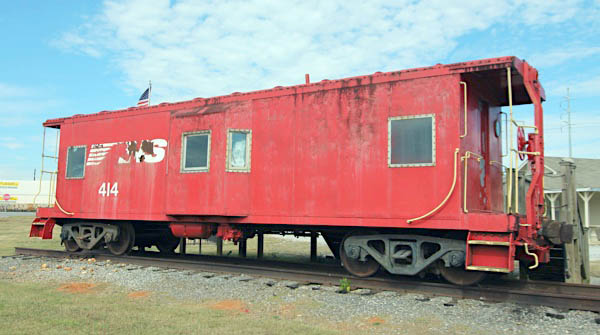
Oct 2022 / RWH
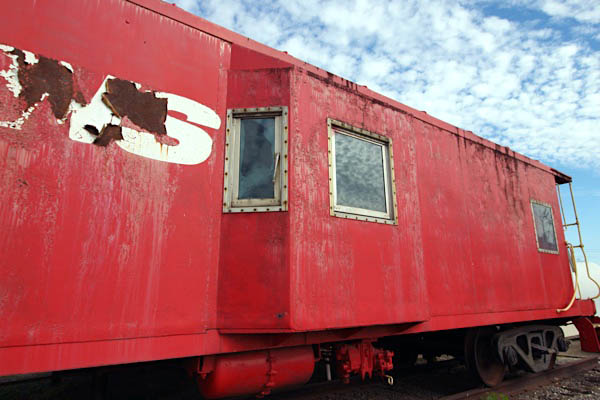
Oct 2022 / RWH
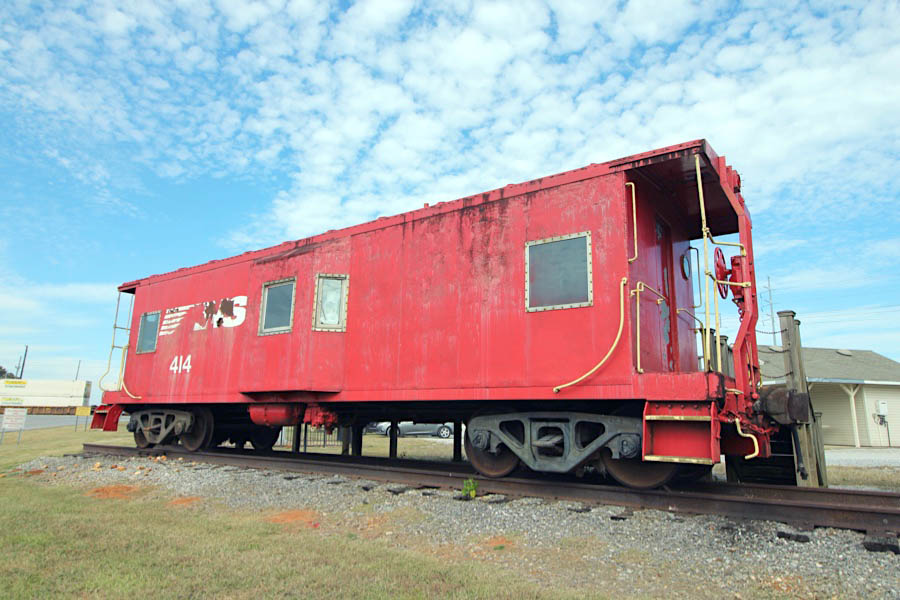
Sheffield, Al / Oct 2022 / RWH
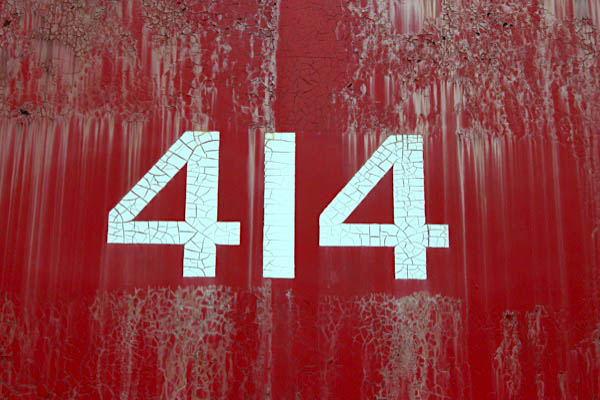
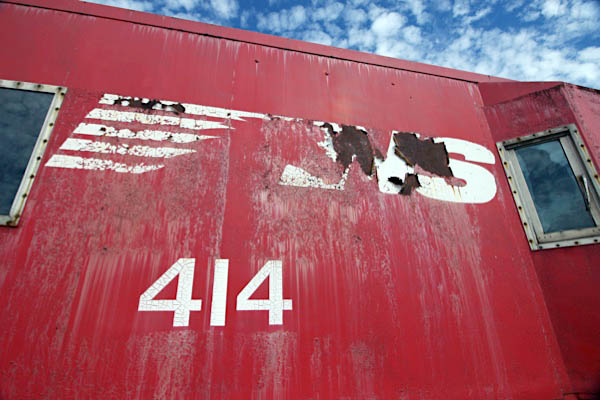
Oct 2022 / RWH
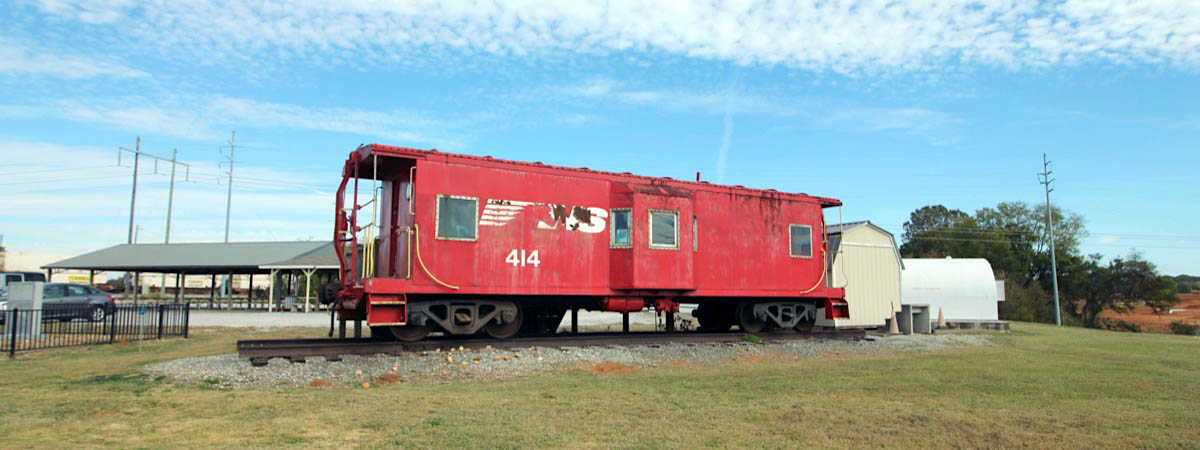
Sheffield, Al / Oct 2022 / RWH
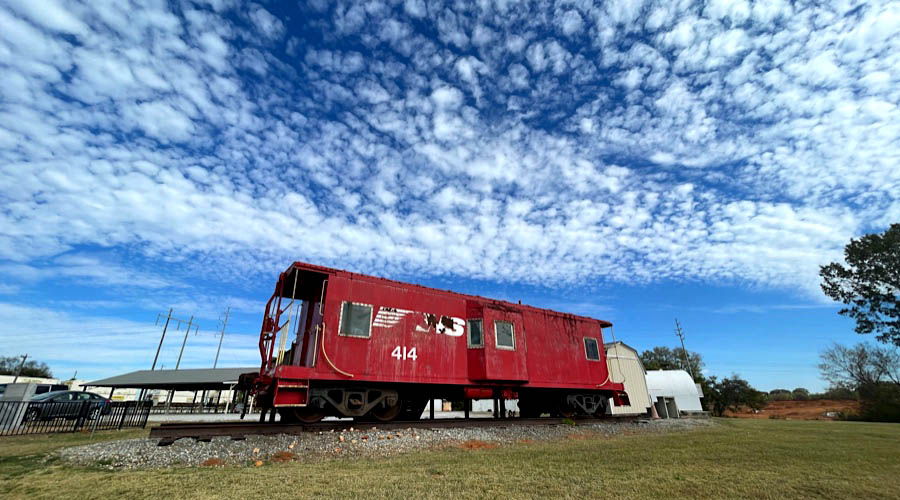
Sheffield, Al / Oct 2022 / RWH
 Trinity
Trinity
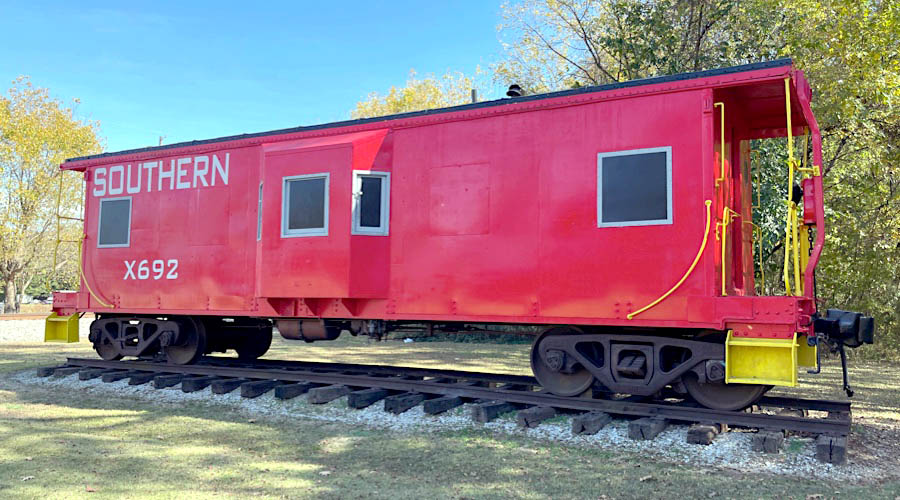
Southern Railway #X692
Trinity, Al / Oct 2022 / RWH

 outhern #X692 enjoys a retirement in the shade of bucolic Caboose Park in the northern Alabama village of Trinity, just west of Decatur and south of the Tennessee River. The park sits adjacent to Norfolk Southern's busy mainline across the state's northern region, connecting Chattanooga to Memphis via Huntsville and Decatur. This was the original Memphis & Charleston Railroad, one of the oldest mainlines in the South and a basic component of the evental Southern Railway system. These days, bay #X692 is in excellent shape for an outdoor display. As of 2022, it sports a fresh coat of accurate caboose red with yellow accessories. Although the font is not accurate, the car is lettered and numbered. Data markings have not been retained. Couplers and roof have been painted black. 692 is a good example of a rebuilt Southern bay, as two blanked-over windows are clearly visible on both sides of the carbody.
outhern #X692 enjoys a retirement in the shade of bucolic Caboose Park in the northern Alabama village of Trinity, just west of Decatur and south of the Tennessee River. The park sits adjacent to Norfolk Southern's busy mainline across the state's northern region, connecting Chattanooga to Memphis via Huntsville and Decatur. This was the original Memphis & Charleston Railroad, one of the oldest mainlines in the South and a basic component of the evental Southern Railway system. These days, bay #X692 is in excellent shape for an outdoor display. As of 2022, it sports a fresh coat of accurate caboose red with yellow accessories. Although the font is not accurate, the car is lettered and numbered. Data markings have not been retained. Couplers and roof have been painted black. 692 is a good example of a rebuilt Southern bay, as two blanked-over windows are clearly visible on both sides of the carbody.

Click to see the Trinity Caboose Park plotted on a Google Maps page
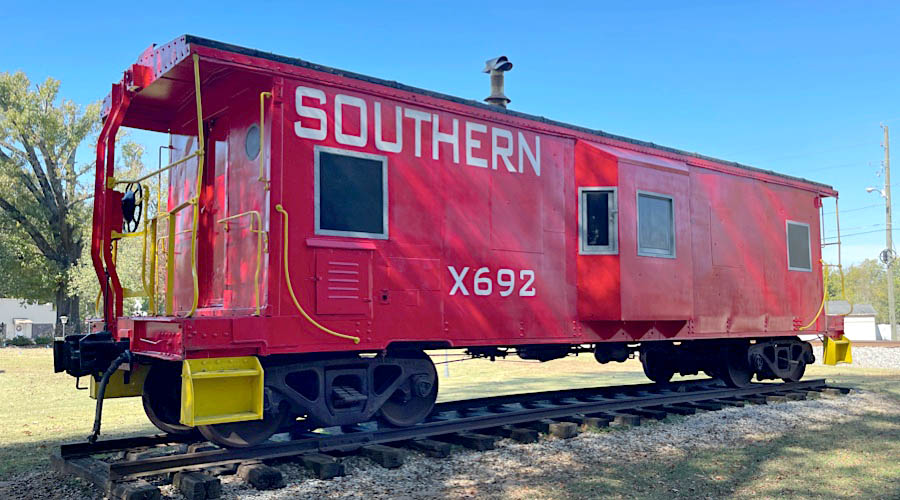
Trinity, Al / Oct 2022 / RWH
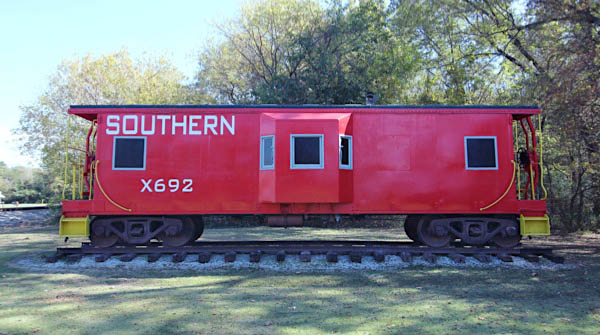
Trinity, Al / Oct 2022 / RWH
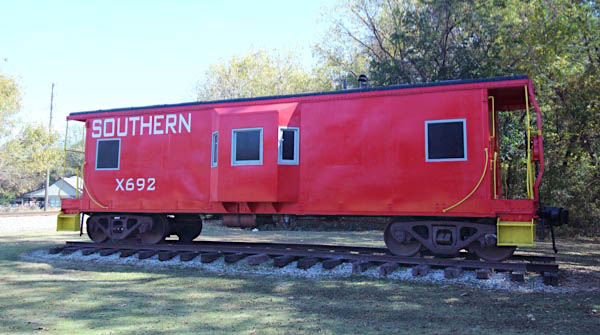
Trinity, Al / Oct 2022 / RWH
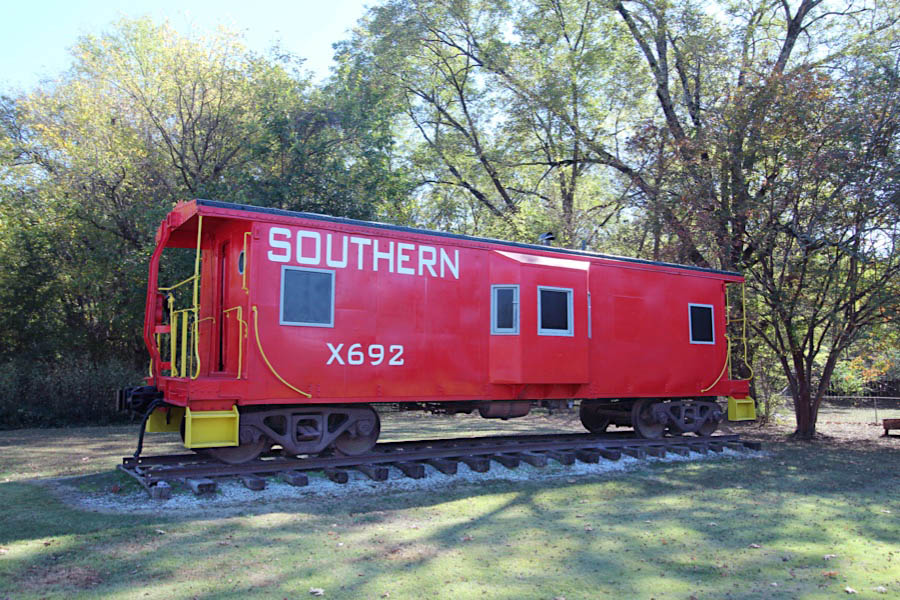
Trinity, Al / Oct 2022 / RWH
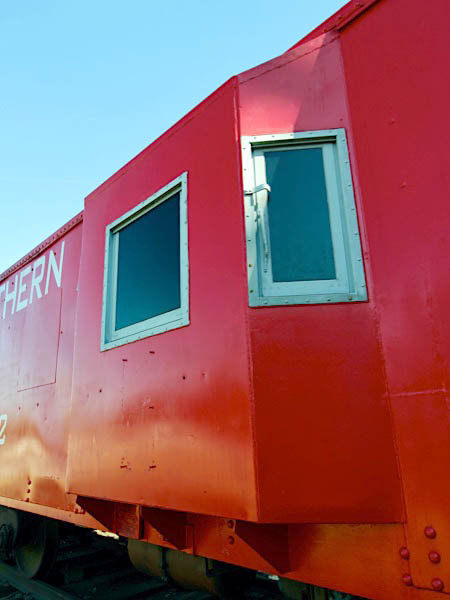
Oct 2022 / RWH
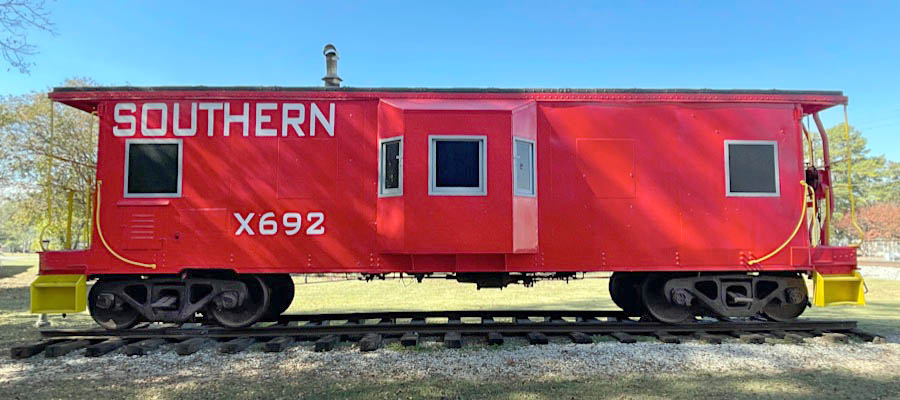
Trinity, Al / Oct 2022 / RWH
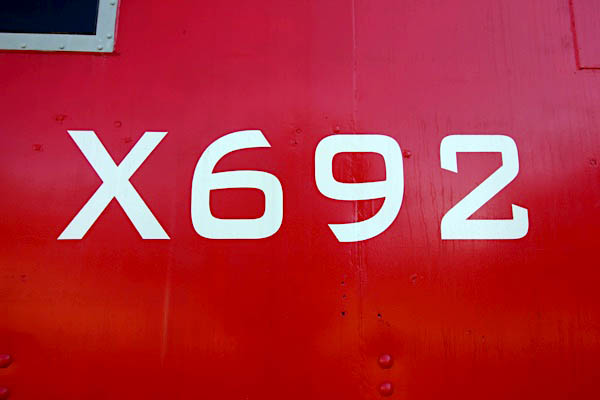
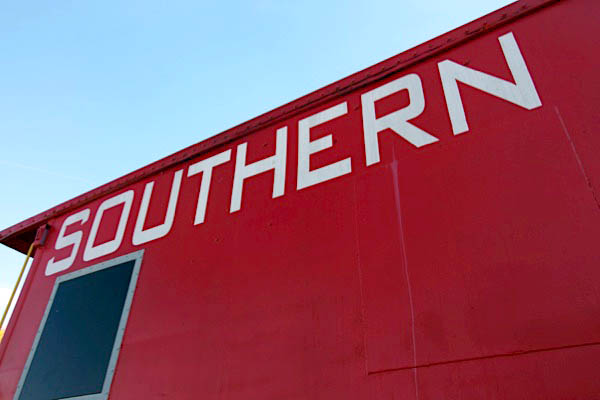
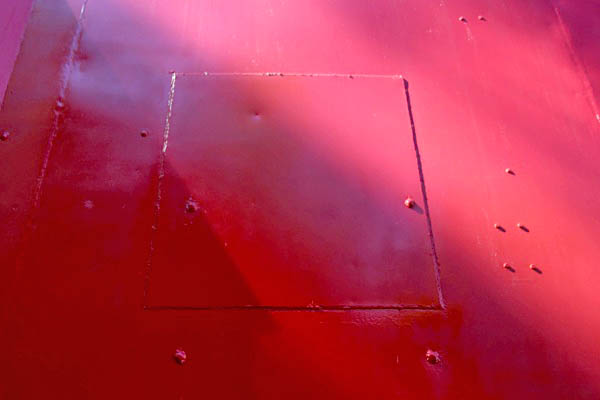
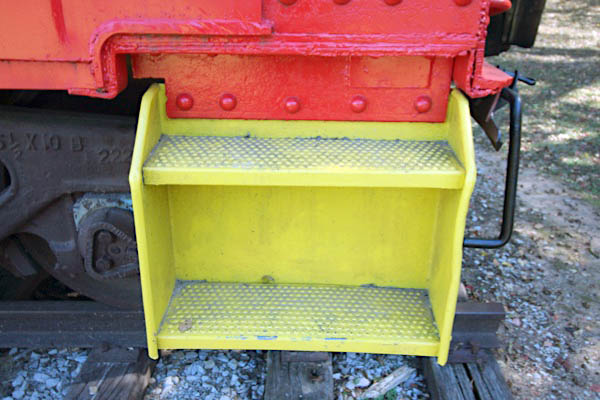
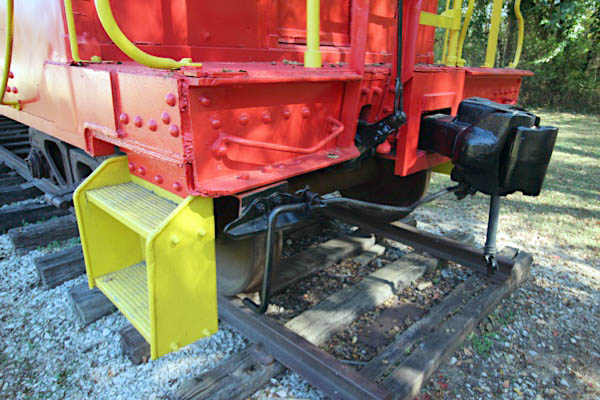
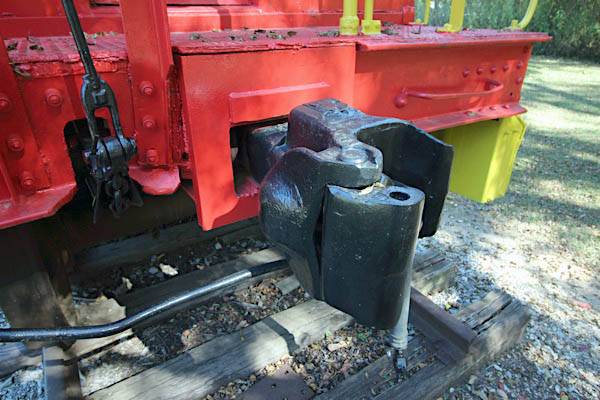
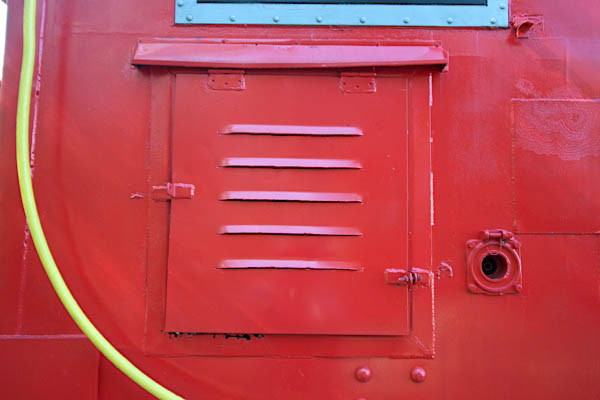
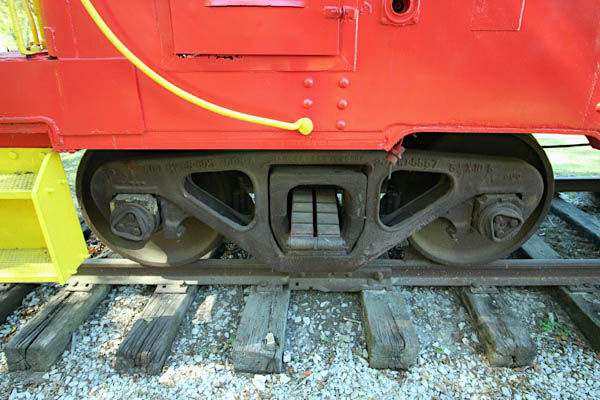
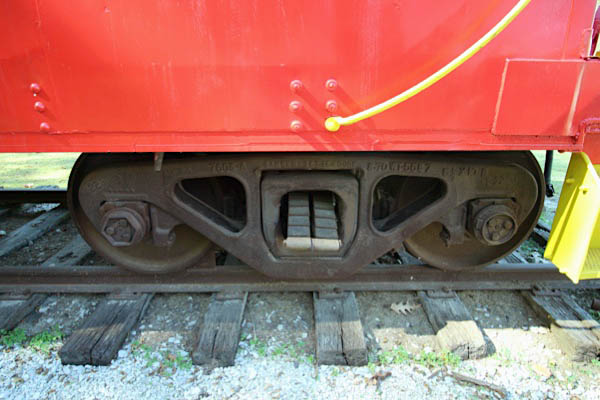
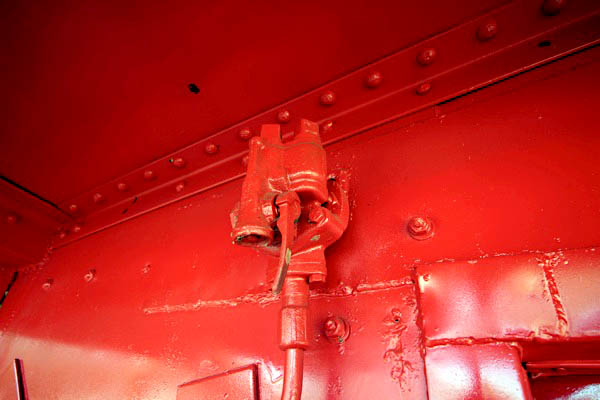
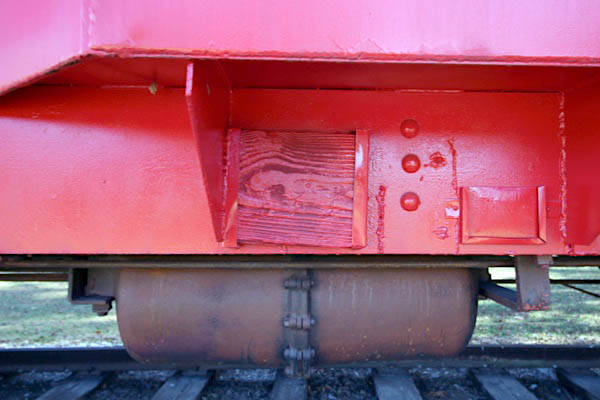
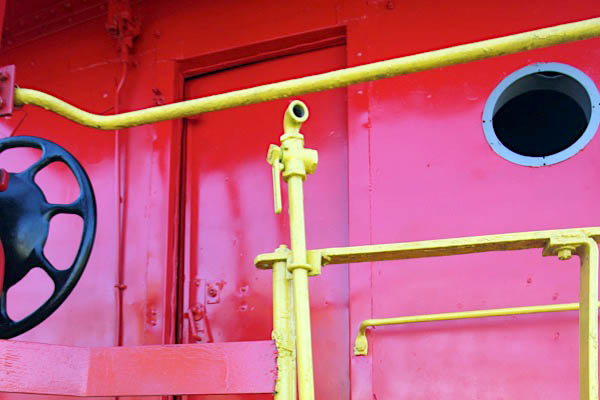
Oct 2022 / RWH
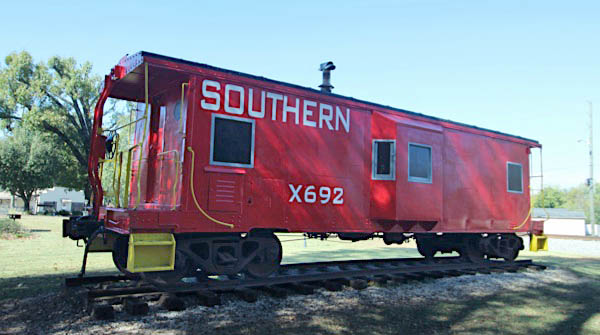
Trinity, Al / Oct 2022 / RWH
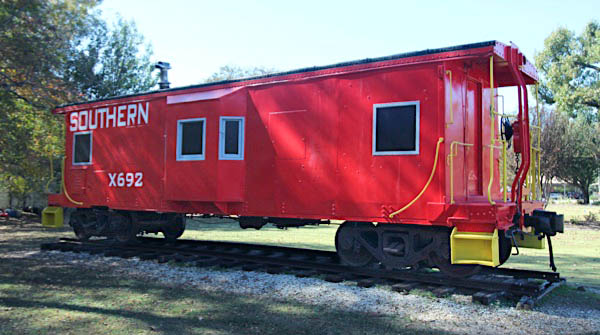
Trinity, Al / Oct 2022 / RWH
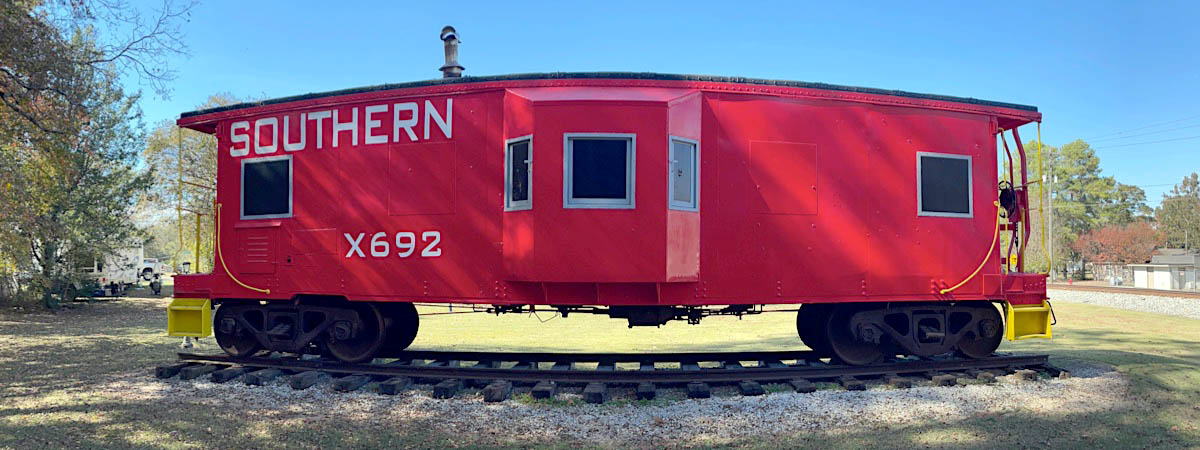
Trinity, Al / Oct 2022 / RWH
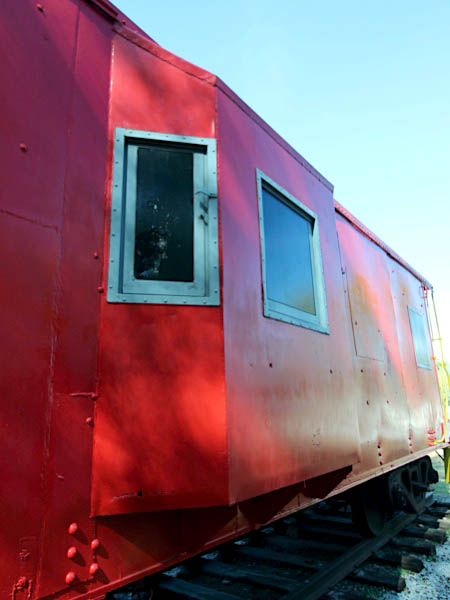
Oct 2022 / RWH
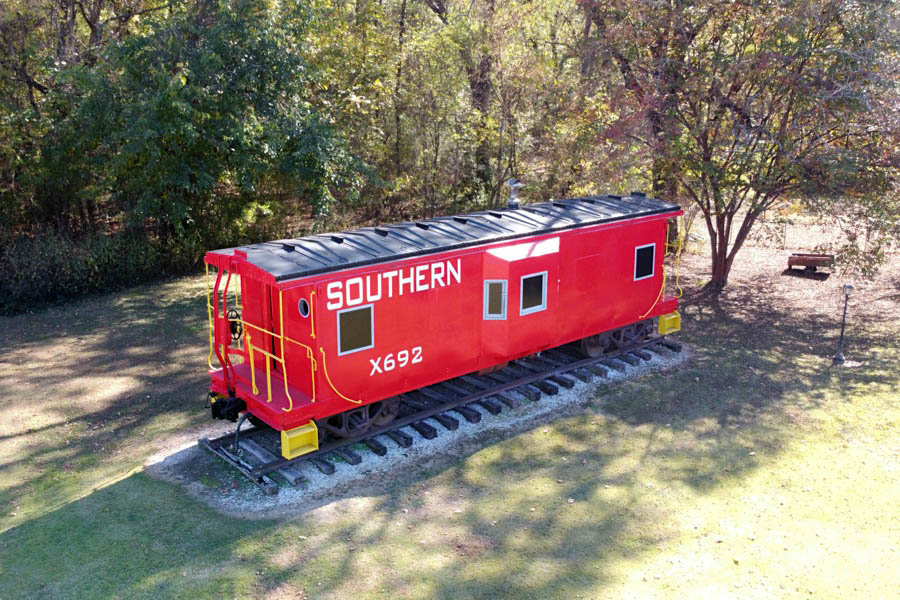
Trinity, Al / Oct 2022 / RWH
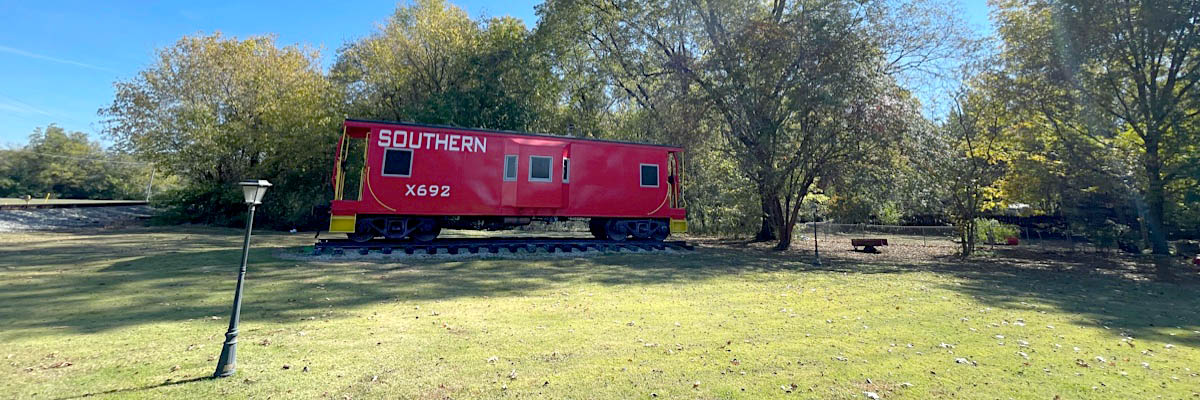
Trinity, Al / Oct 2022 / RWH
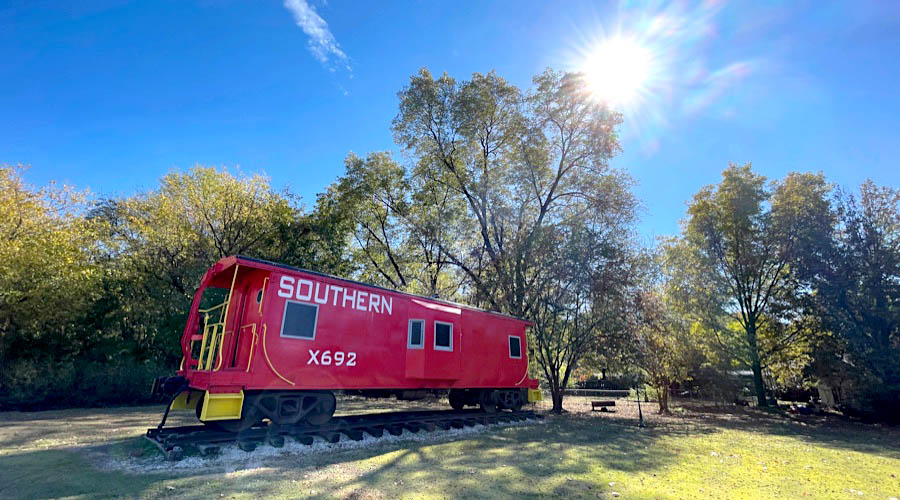
Trinity, Al / Oct 2022 / RWH
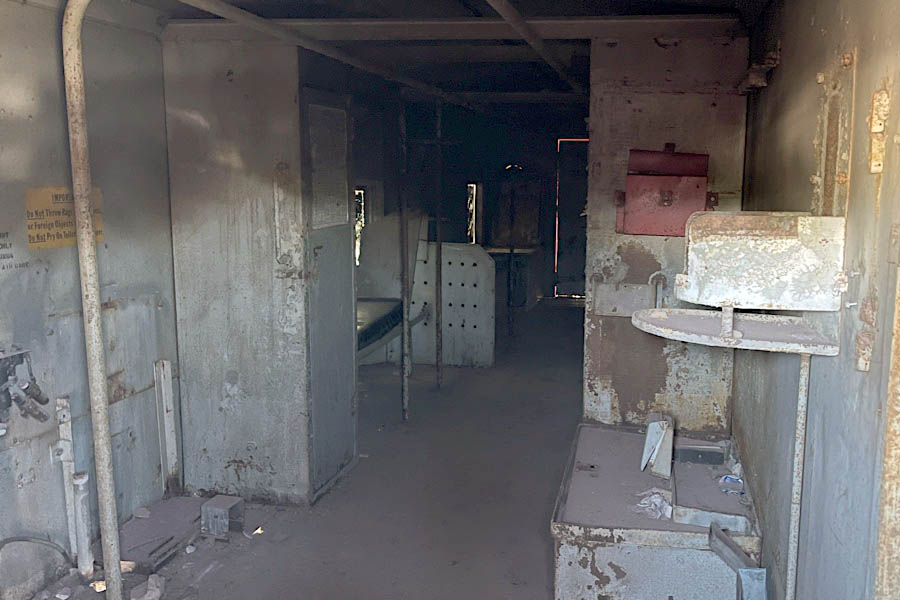
Oct 2022 / RWH
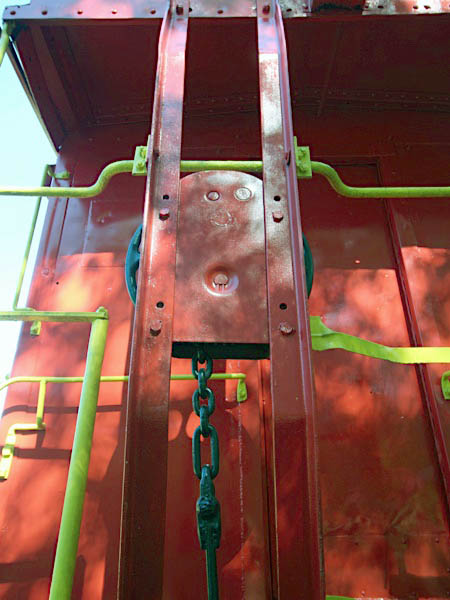
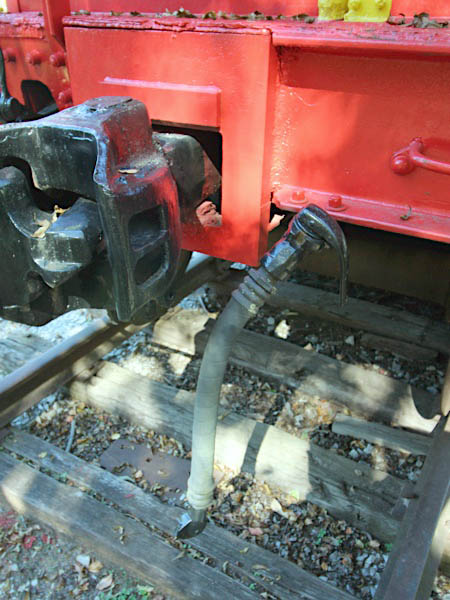
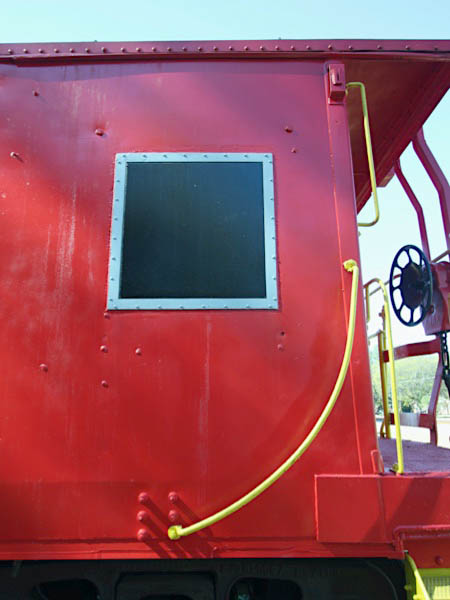
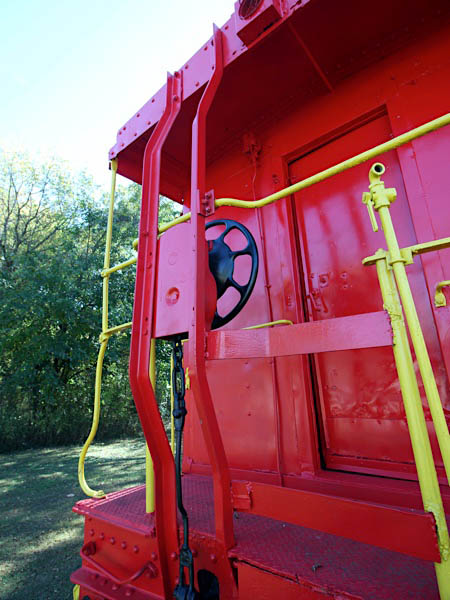
Oct 2022 / RWH
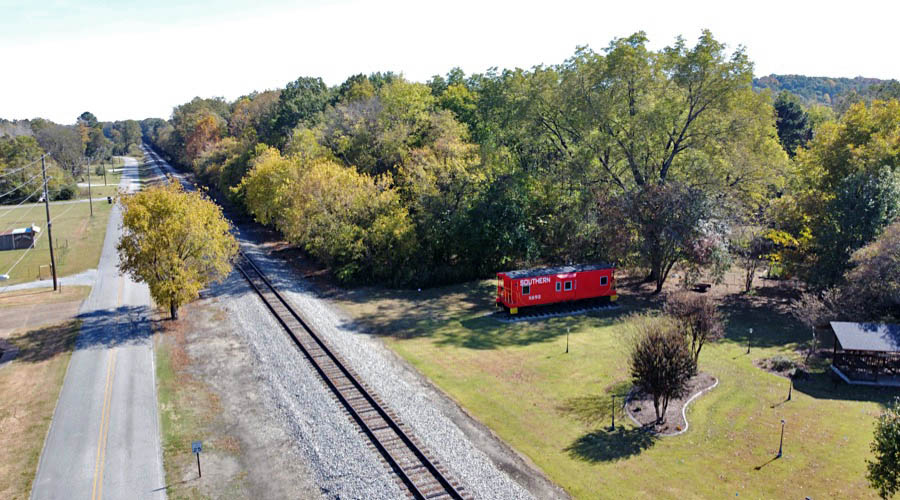
Trinity, Al / Oct 2022 / RWH
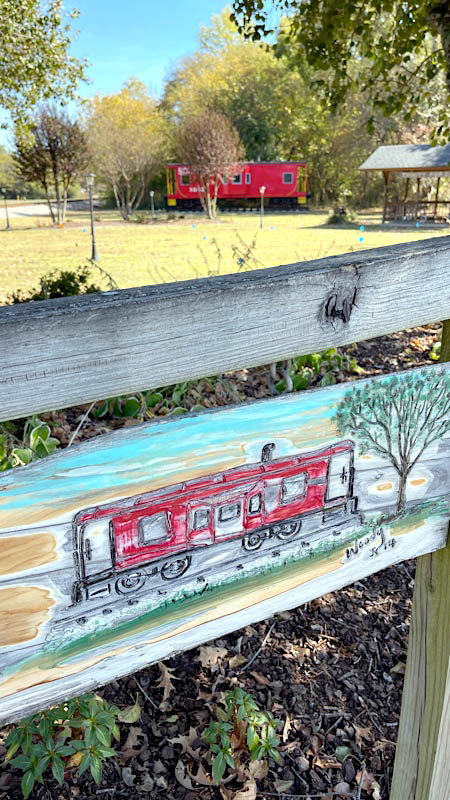
Oct 2022 / RWH
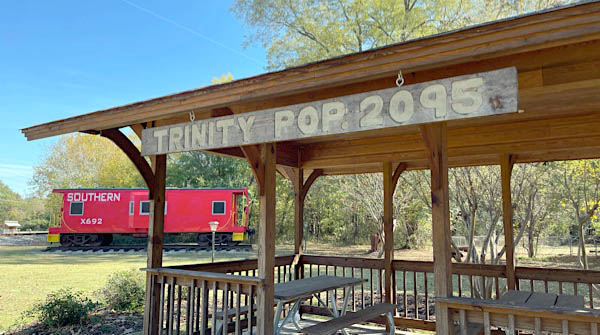
Oct 2022 / RWH
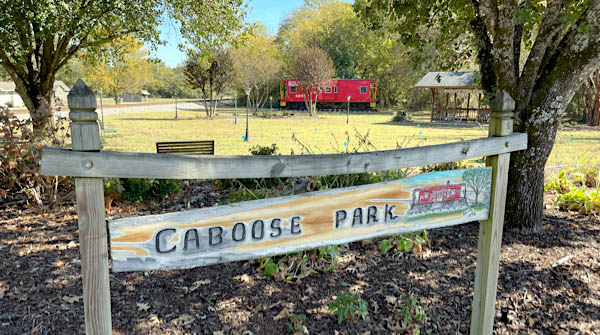
Oct 2022 / RWH
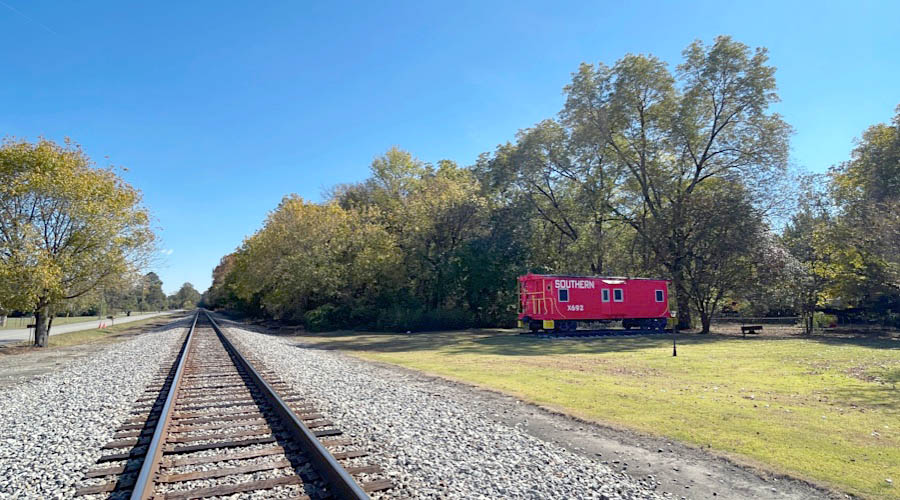
Trinity, Al / Oct 2022 / RWH

Trinity, Al / Oct 2022 / RWH
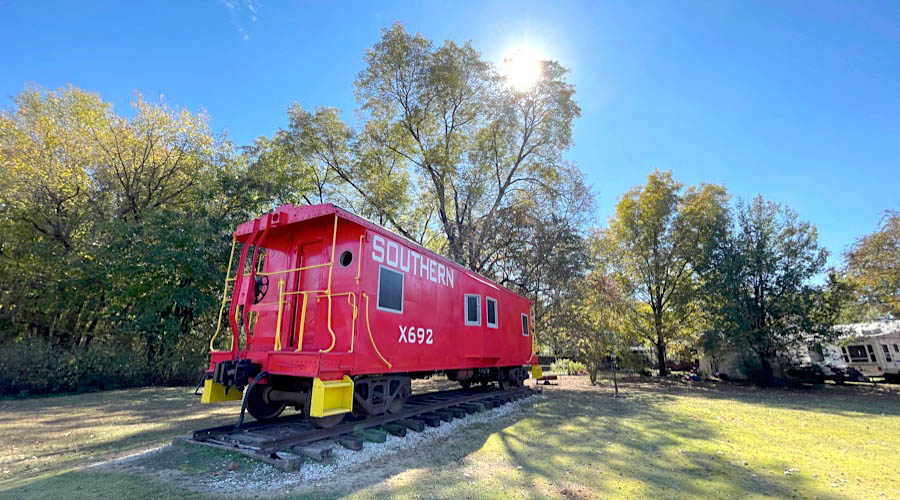
Trinity, Al / Oct 2022 / RWH
 Tuscumbia
Tuscumbia
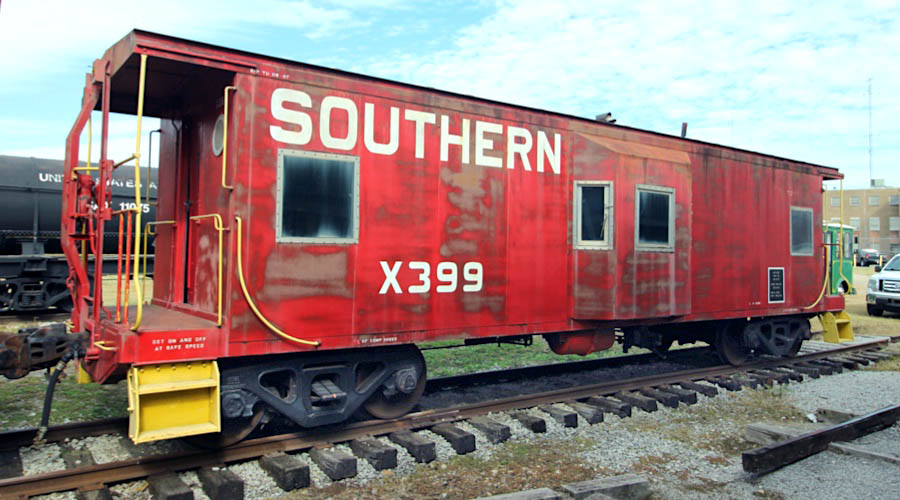
Southern Railway #X399
Tuscumbia, Al / Oct 2022 / RWH
 outhern #X399 is preserved outdoors at the Tuscumbia Depot and Roundhouse museum, along with sister bay window former Southern #X373 (below). Number X399 is an exact specimen of an as-retired Southern bay window caboose, complete with accurate red paint and yellow accessories, aluminum window trim, and Southern-font lettering, numbers, and markings. As of 2022, its paint job is worn but otherwise the caboose is in good shape for its age. Its small Gantt Manufacturing builder's stencil can still be seen on the body, this case marked for 1974. Interestingly, the car retains stencilled safety slogans above its steps on only one end.
outhern #X399 is preserved outdoors at the Tuscumbia Depot and Roundhouse museum, along with sister bay window former Southern #X373 (below). Number X399 is an exact specimen of an as-retired Southern bay window caboose, complete with accurate red paint and yellow accessories, aluminum window trim, and Southern-font lettering, numbers, and markings. As of 2022, its paint job is worn but otherwise the caboose is in good shape for its age. Its small Gantt Manufacturing builder's stencil can still be seen on the body, this case marked for 1974. Interestingly, the car retains stencilled safety slogans above its steps on only one end.
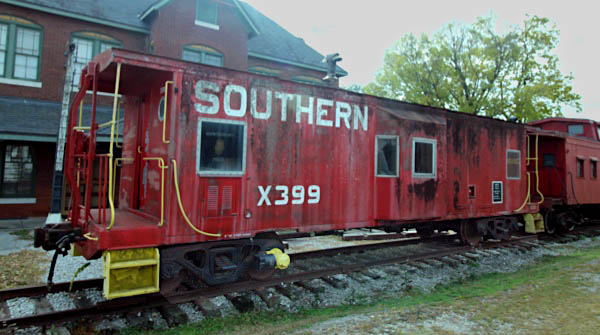
Tuscumbia, Al / Oct 2022 / RWH
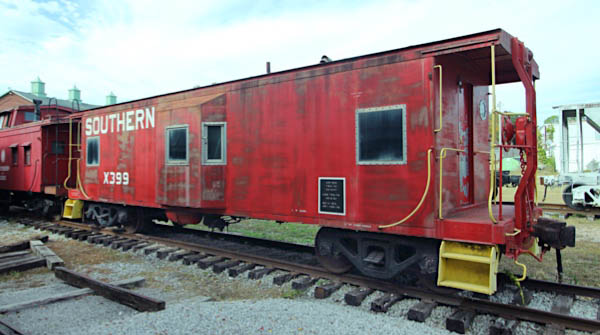
Tuscumbia, Al / Oct 2022 / RWH
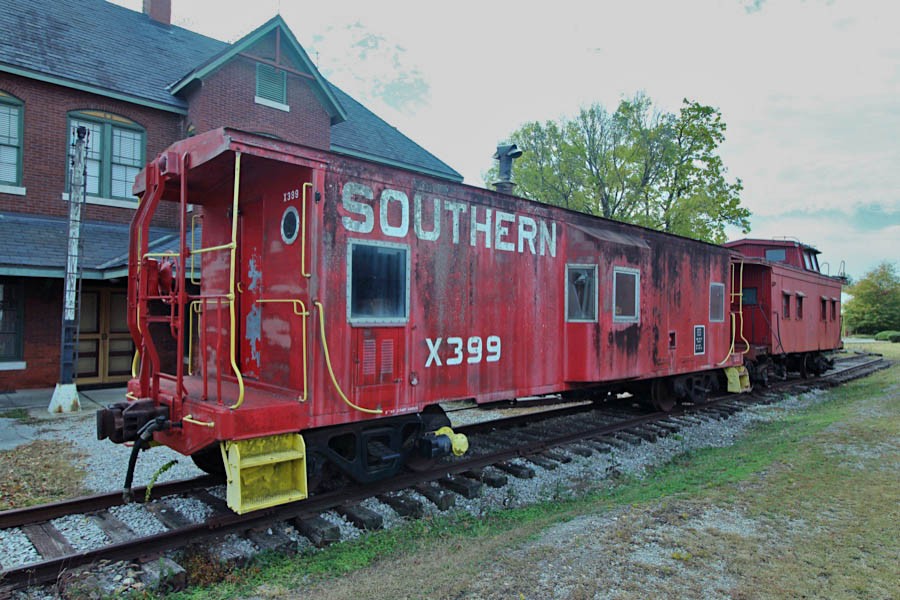
Tuscumbia, Al / Oct 2022 / RWH
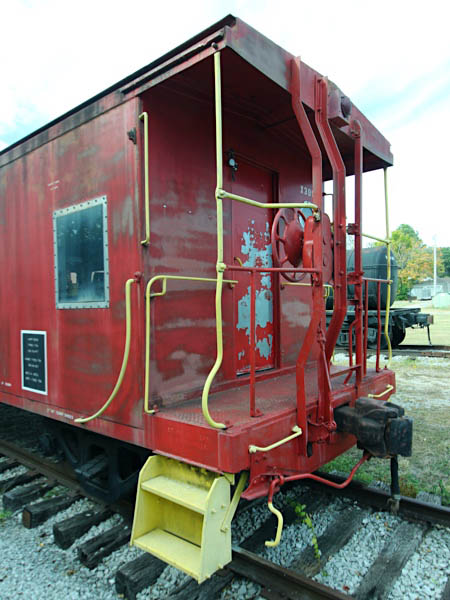
Oct 2022 / RWH
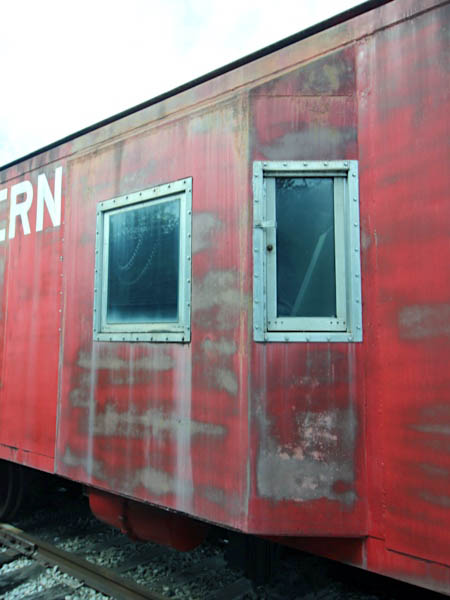
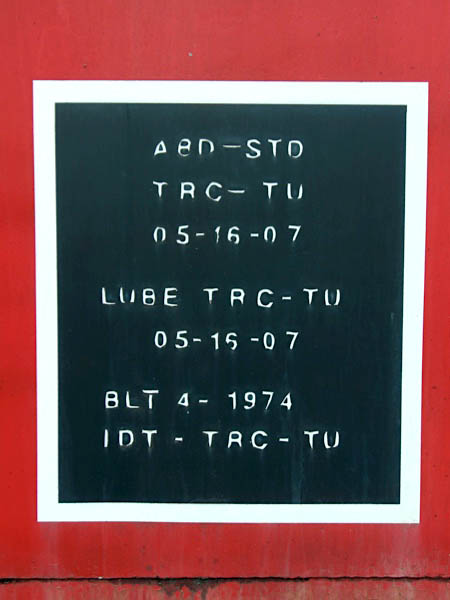
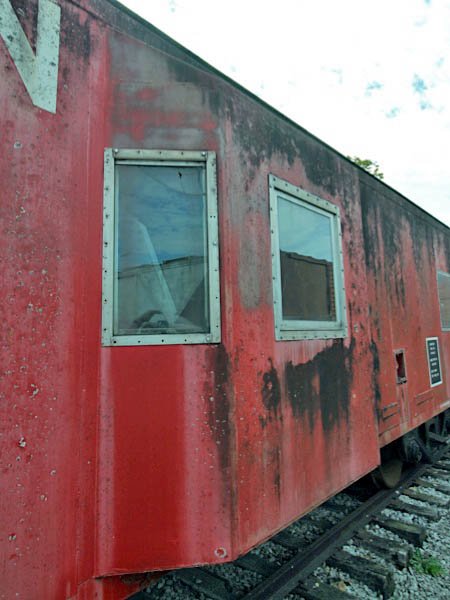
Oct 2022 / RWH

Oct 2022 / RWH
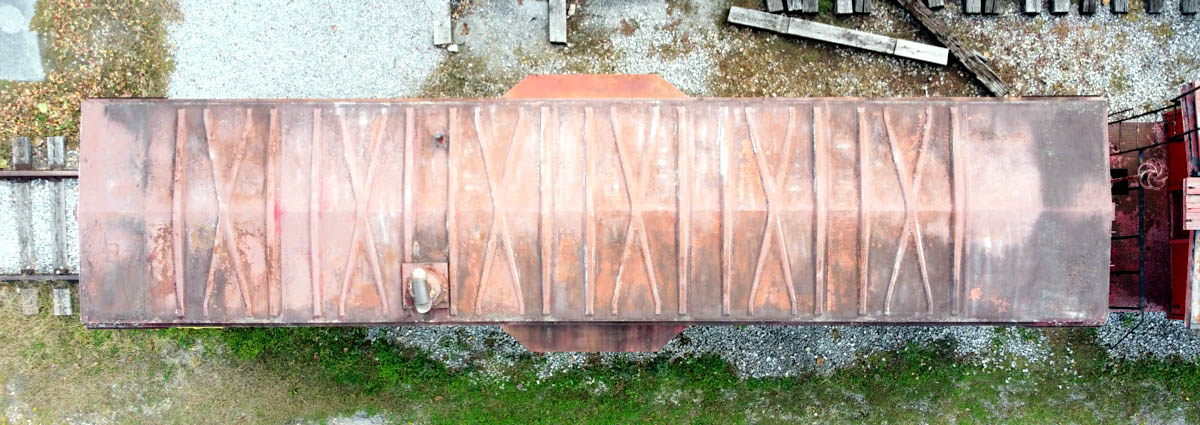
Oct 2022 / RWH
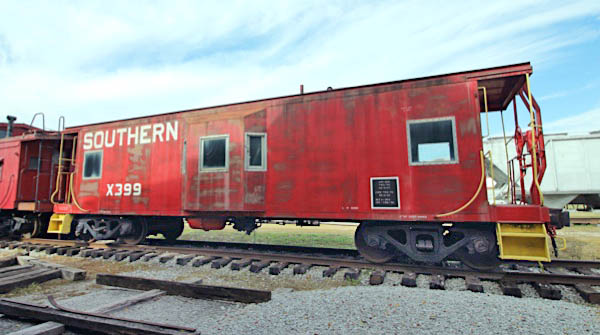
Oct 2022 / RWH
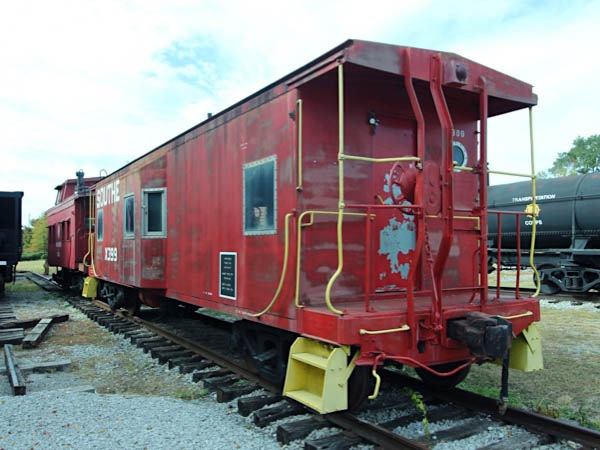
Oct 2022 / RWH
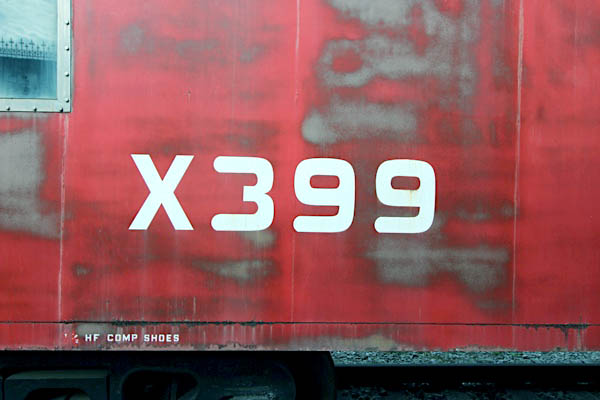
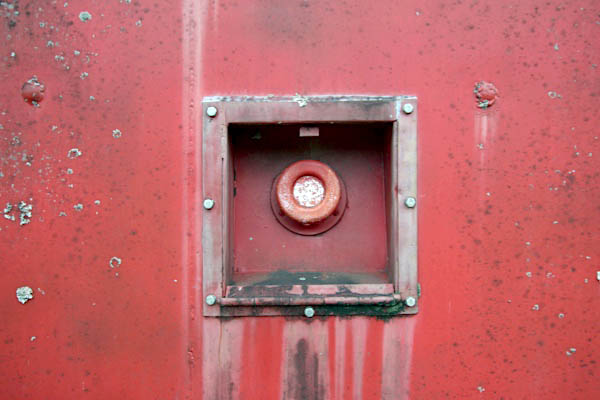
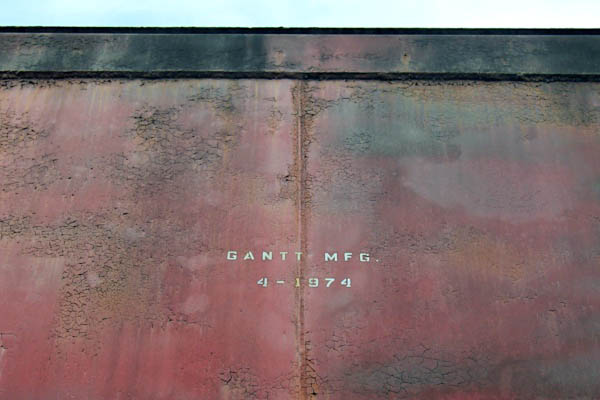
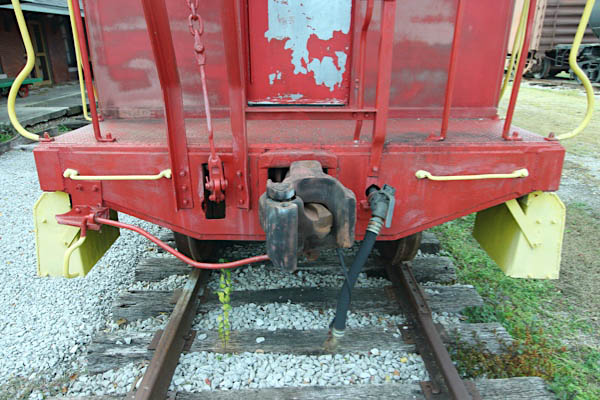
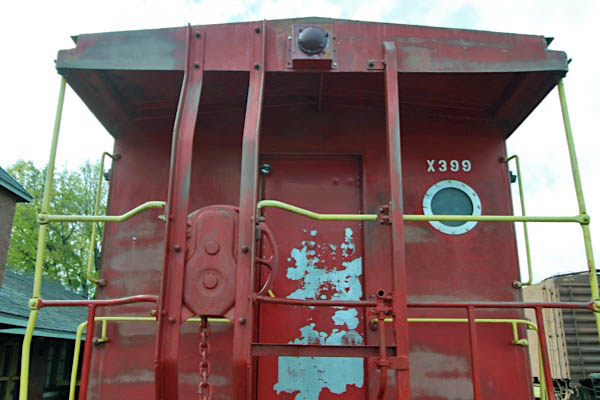
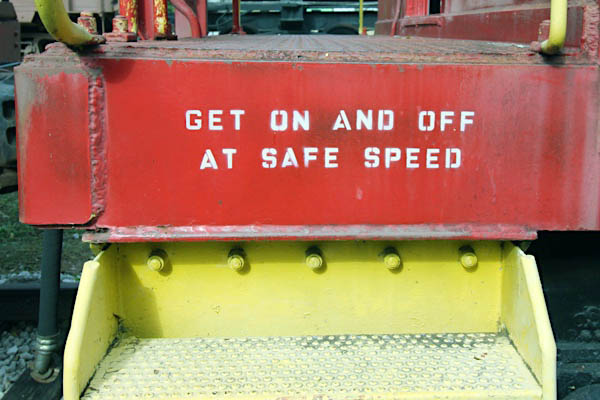
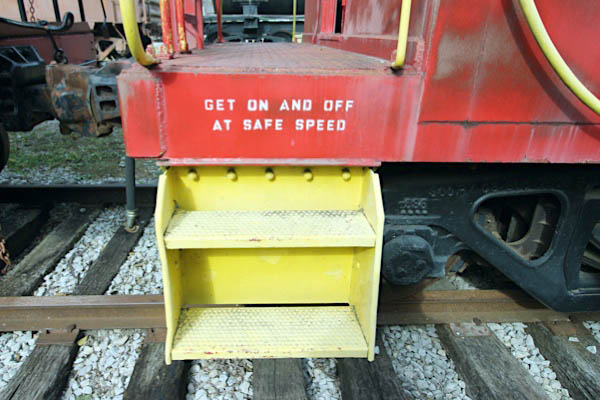
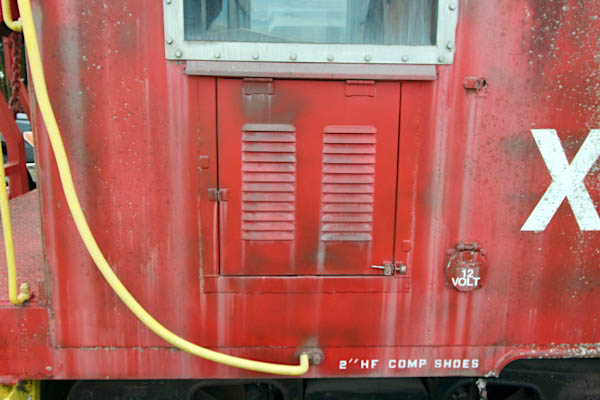
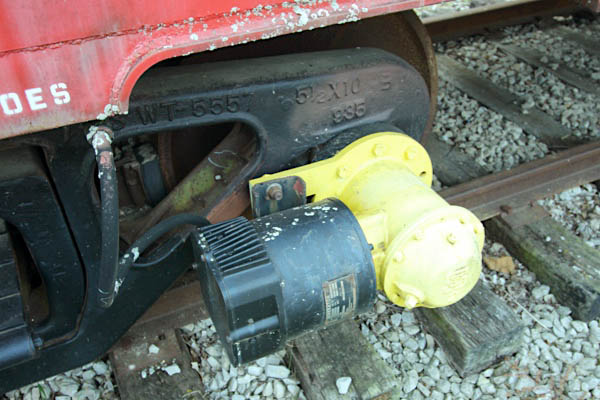
Oct 2022 / RWH
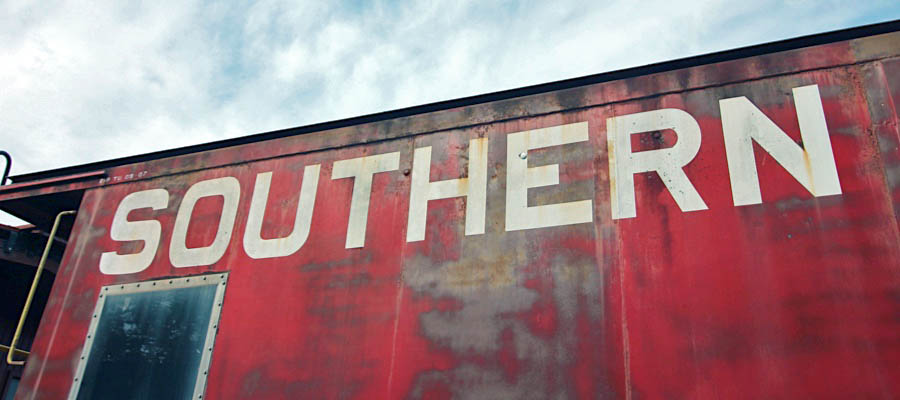
Tuscumbia, Al / Oct 2022 / RWH
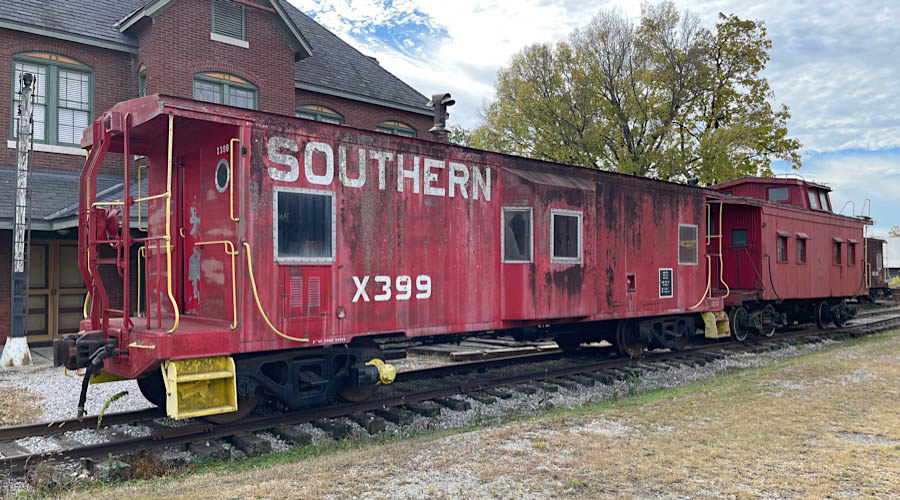
Tuscumbia, Al / Oct 2022 / RWH
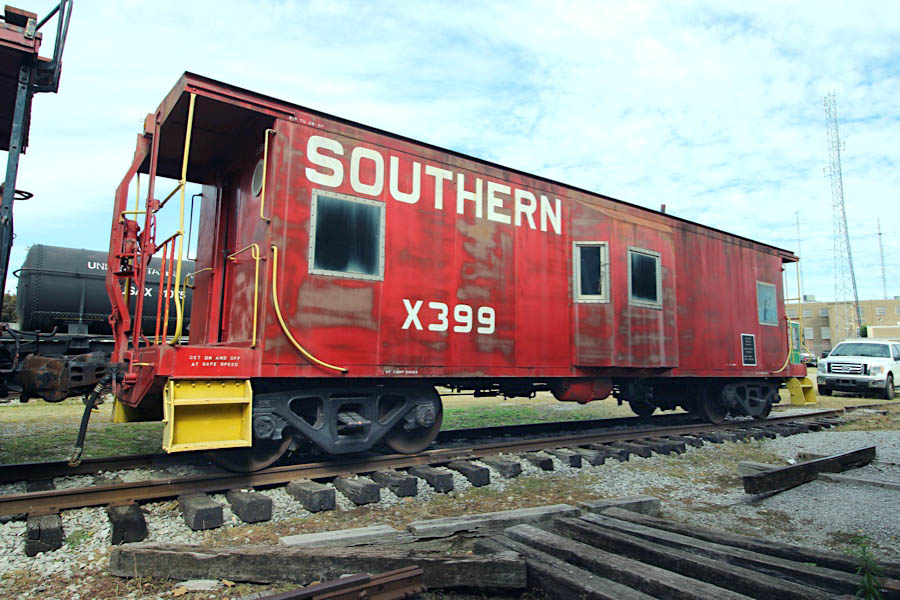
Tuscumbia, Al / Oct 2022 / RWH
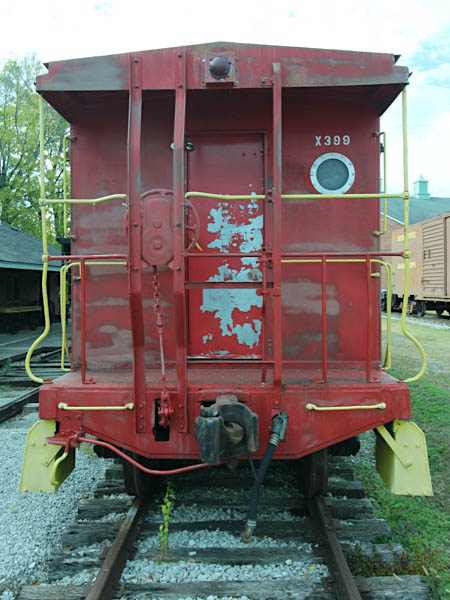
Oct 2022 / RWH
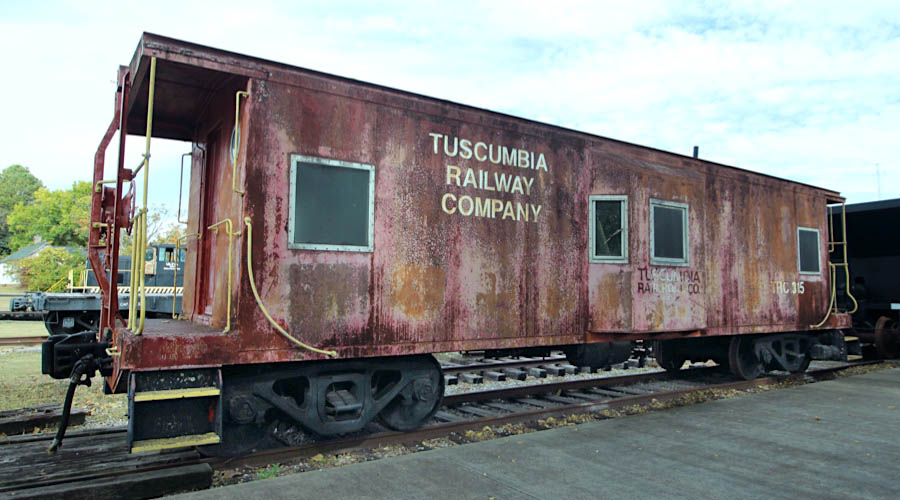
Tuscumbia Railway #315
Tuscumbia, Al / Oct 2022 / RWH
 o the best of our research, the bay window now lettered Tuscumbia Railway Company #315 is former Southern Railway #X373. It and sister bay #X399 (above) are both situated outdoors at the Tuscumbia Depot and Roundhouse museum in northwestern Alabama. As of 2022, TRC 315 is in need a paint job but otherwise appears to be a good physical shape. It retains all the features of a service-era Southern car, even if some of the accessories have been painted different colors and all of the Southern markings and data have been removed since retirement.
o the best of our research, the bay window now lettered Tuscumbia Railway Company #315 is former Southern Railway #X373. It and sister bay #X399 (above) are both situated outdoors at the Tuscumbia Depot and Roundhouse museum in northwestern Alabama. As of 2022, TRC 315 is in need a paint job but otherwise appears to be a good physical shape. It retains all the features of a service-era Southern car, even if some of the accessories have been painted different colors and all of the Southern markings and data have been removed since retirement.
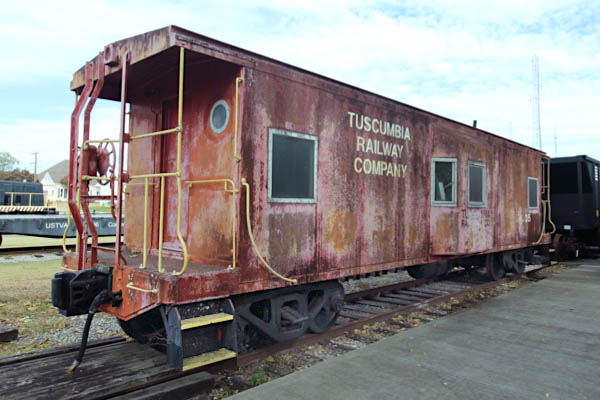
Tuscumbia, Al / Oct 2022 / RWH
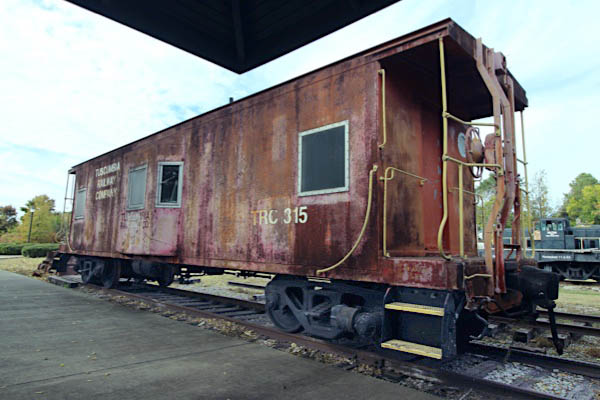
Tuscumbia, Al / Oct 2022 / RWH
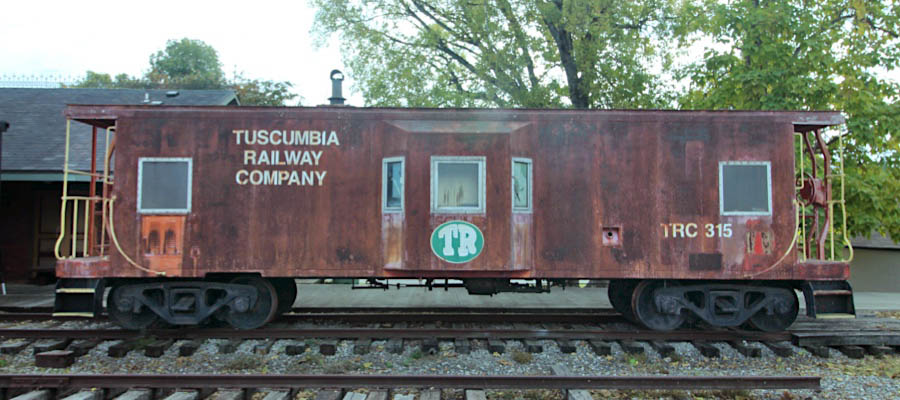
Tuscumbia, Al / Oct 2022 / RWH
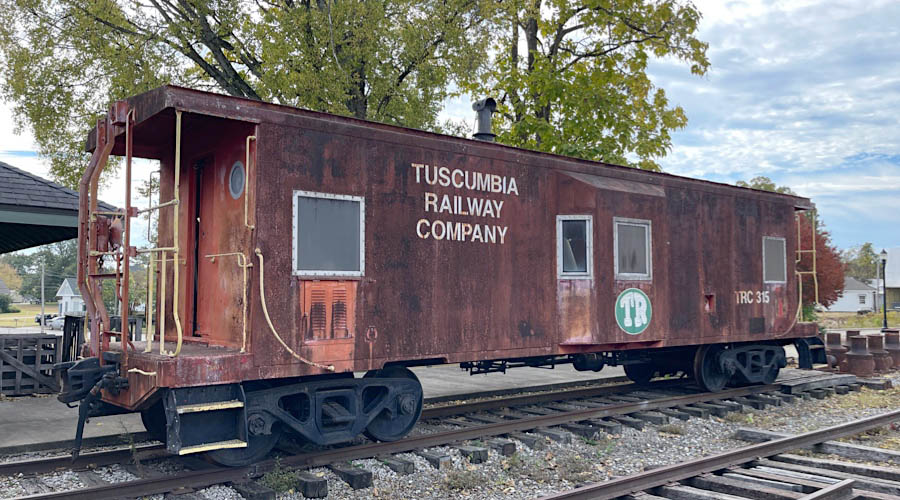
Tuscumbia, Al / Oct 2022 / RWH
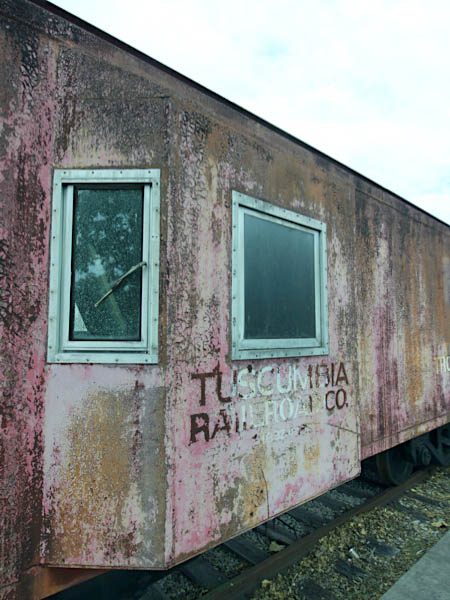
Oct 2022 / RWH
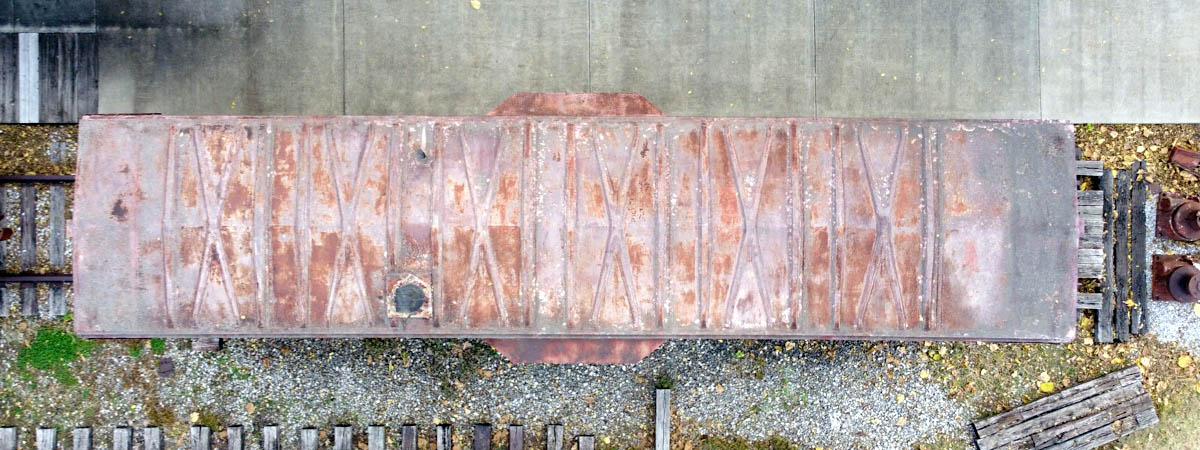
Oct 2022 / RWH
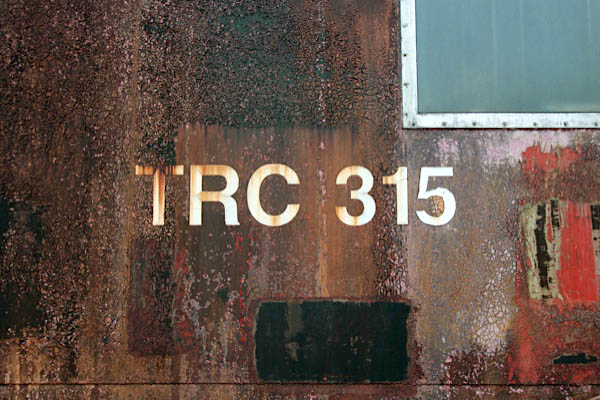
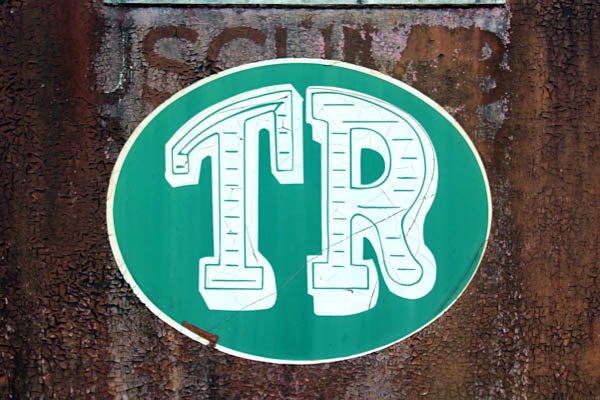
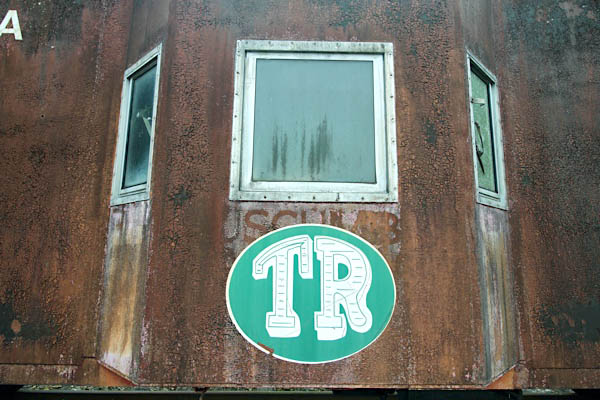
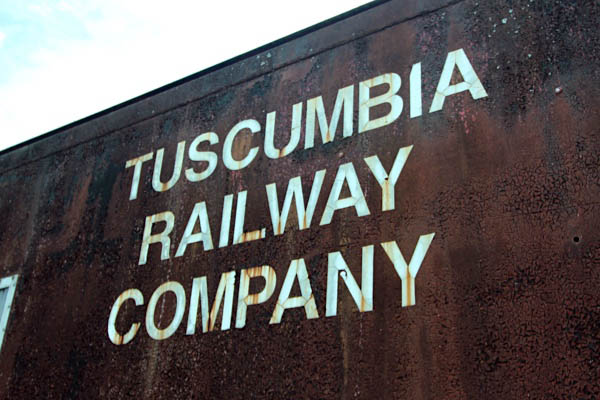
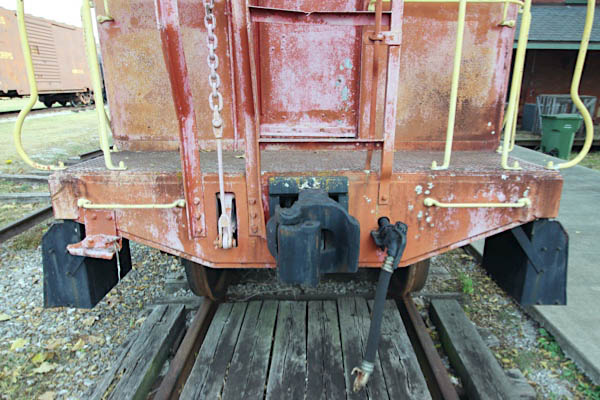
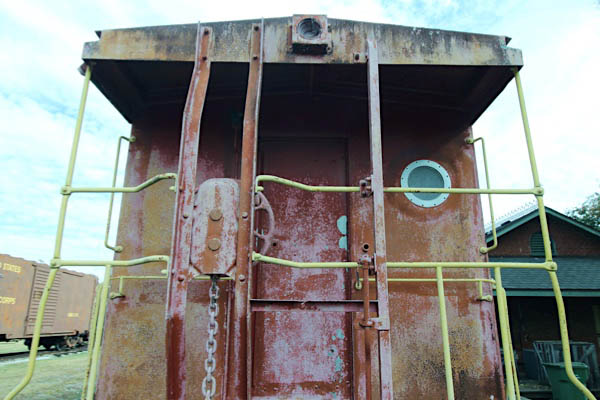
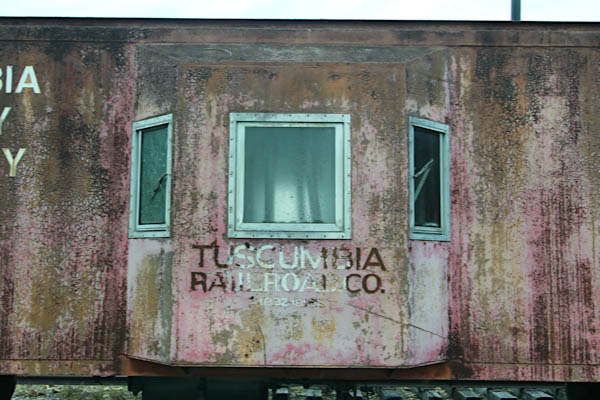
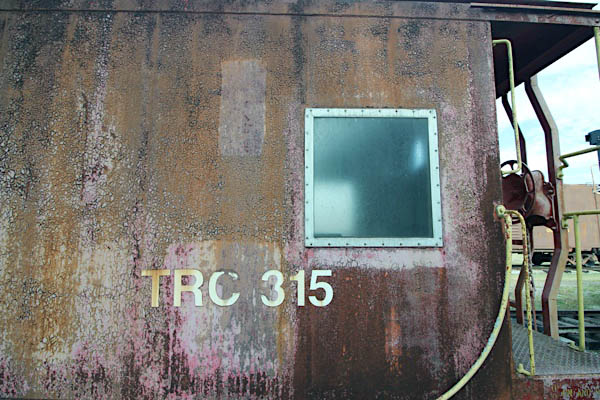
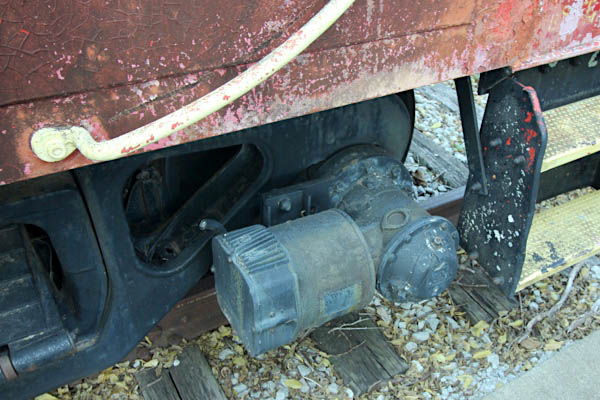
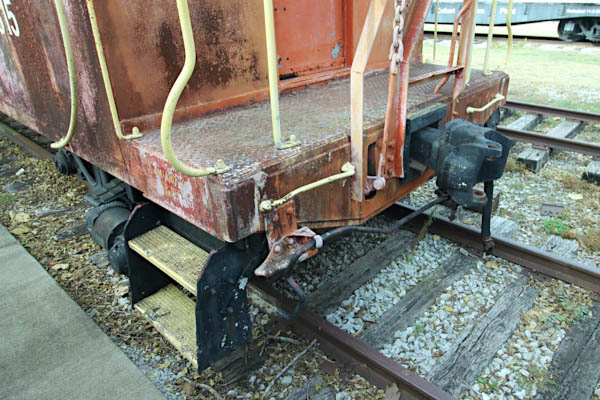
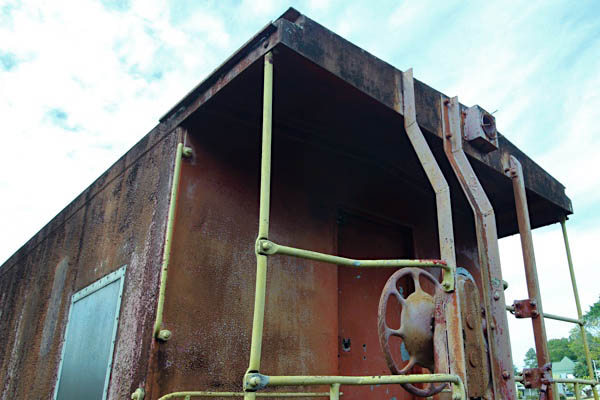
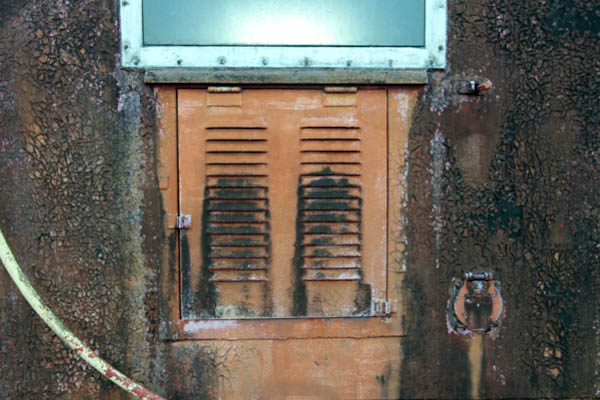
Oct 2022 / RWH
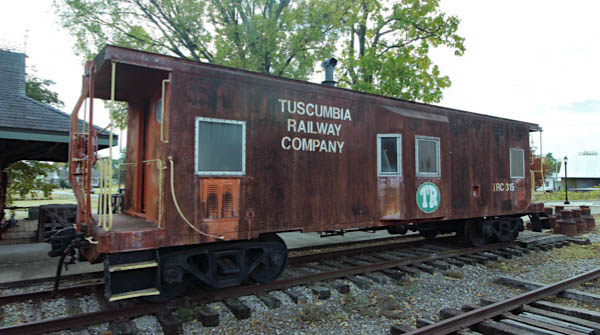
Tuscumbia, Al / Oct 2022 / RWH
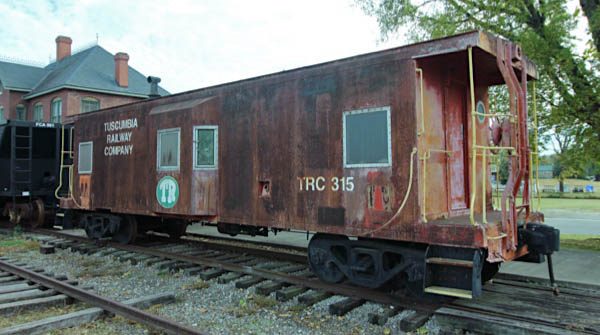
Tuscumbia, Al / Oct 2022 / RWH
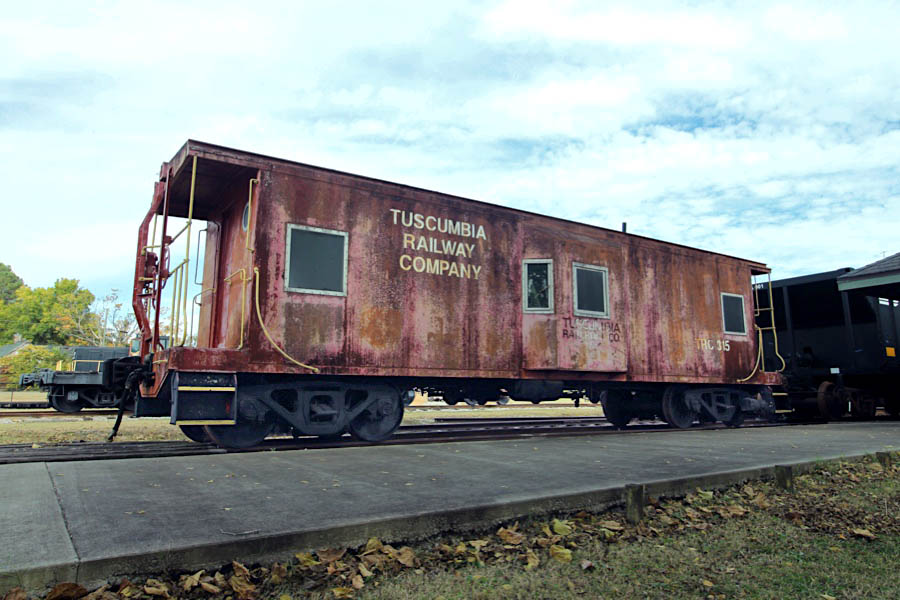
Tuscumbia, Al / Oct 2022 / RWH
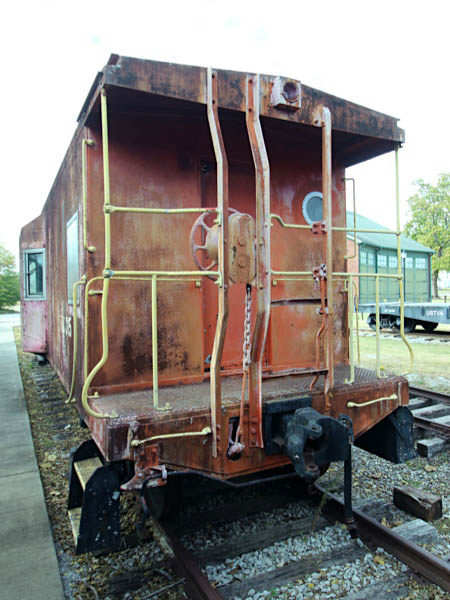
Oct 2022 / RWH

See also our complete Tuscumbia Depot and Roundhouse scrapbook in Preservation
 Valley Head
Valley Head
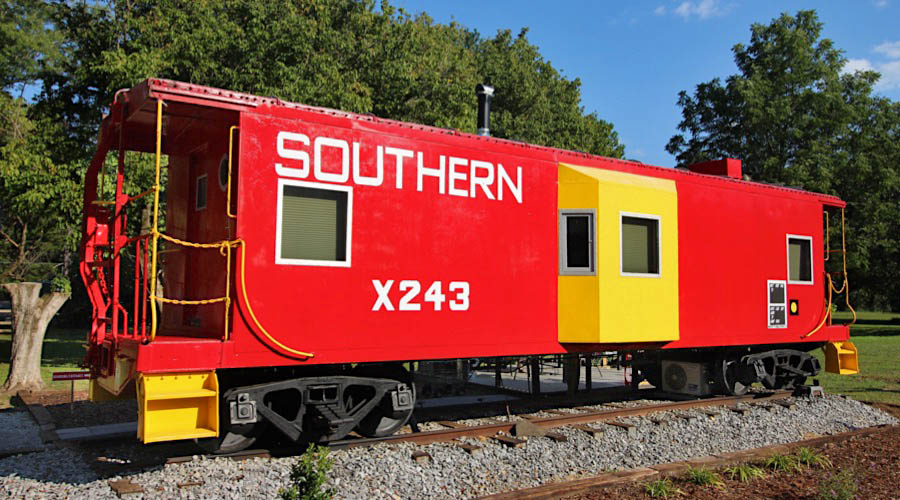
Southern Railway X243
Valley Head, Al / Aug 2024 / RWH
 outhern #X243 is in private ownership but on public display along Route 117 in Valley Head, in northeast Alabama. The property is adjacent to the Norfolk Southern's busy Birmingham-Chattanooga mainline. After retirement, this caboose spent many years as an office for a campground in Carey, Georgia, east of Atlanta. In 2022, the car was purchased and moved to its current location, restored and renovated into a vacation rental. X243 was a local service bay window, built new using steel panels and therefore absent any blanked-over external windows. The current owners returned the car to its proper yellow-red paint scheme, used by Southern to denote local freight service assignments. The roof retains the battery box and mounting brackets for the solar panel array Southern deployed on many local cabs in lieu of an axle-mounted generator for lighting. In addition to accurate paint colors and restored lettering, the car's exterior windows have been correctly returned to an aluminum framing and all grab irons and steps are painted yellow. The interior has been completely transformed for rental accommodations (see below). At some point after retirement, the car was placed on leaf-spring friction-bearing freight car trucks that predate the caboose by at least 30 years. Likely because of this, most of the brake rigging and air brake appliances are missing underneath the body; couplers and uncoupling levers are missing also. Otherwise, X243 is in excellent physical shape and has been restored to a beautiful example of a "yellow belly" local bay window for many to enjoy as a vacation destination.
outhern #X243 is in private ownership but on public display along Route 117 in Valley Head, in northeast Alabama. The property is adjacent to the Norfolk Southern's busy Birmingham-Chattanooga mainline. After retirement, this caboose spent many years as an office for a campground in Carey, Georgia, east of Atlanta. In 2022, the car was purchased and moved to its current location, restored and renovated into a vacation rental. X243 was a local service bay window, built new using steel panels and therefore absent any blanked-over external windows. The current owners returned the car to its proper yellow-red paint scheme, used by Southern to denote local freight service assignments. The roof retains the battery box and mounting brackets for the solar panel array Southern deployed on many local cabs in lieu of an axle-mounted generator for lighting. In addition to accurate paint colors and restored lettering, the car's exterior windows have been correctly returned to an aluminum framing and all grab irons and steps are painted yellow. The interior has been completely transformed for rental accommodations (see below). At some point after retirement, the car was placed on leaf-spring friction-bearing freight car trucks that predate the caboose by at least 30 years. Likely because of this, most of the brake rigging and air brake appliances are missing underneath the body; couplers and uncoupling levers are missing also. Otherwise, X243 is in excellent physical shape and has been restored to a beautiful example of a "yellow belly" local bay window for many to enjoy as a vacation destination.

Click to see the Valley Head caboose location plotted on a Google Maps page
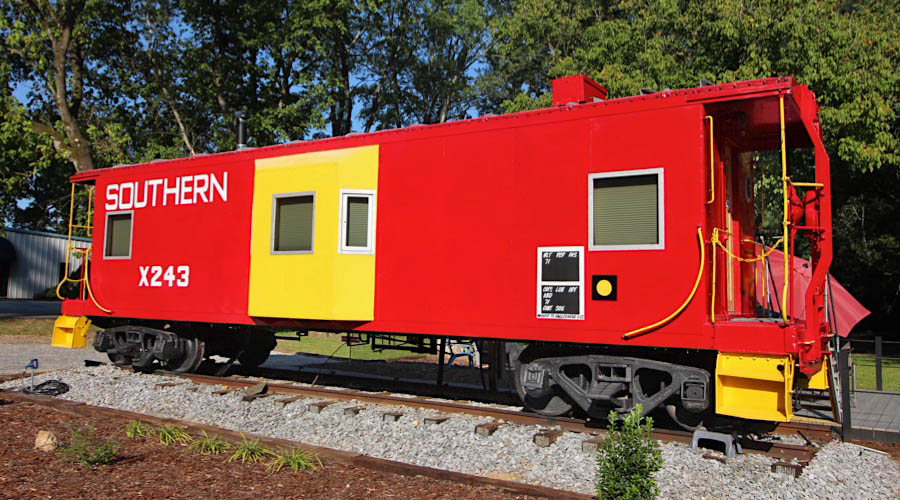
Valley Head, Al / Aug 2024 / RWH
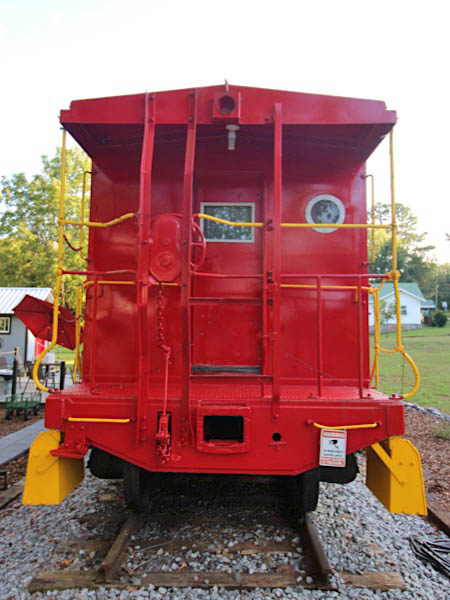
Aug 2024 / RWH
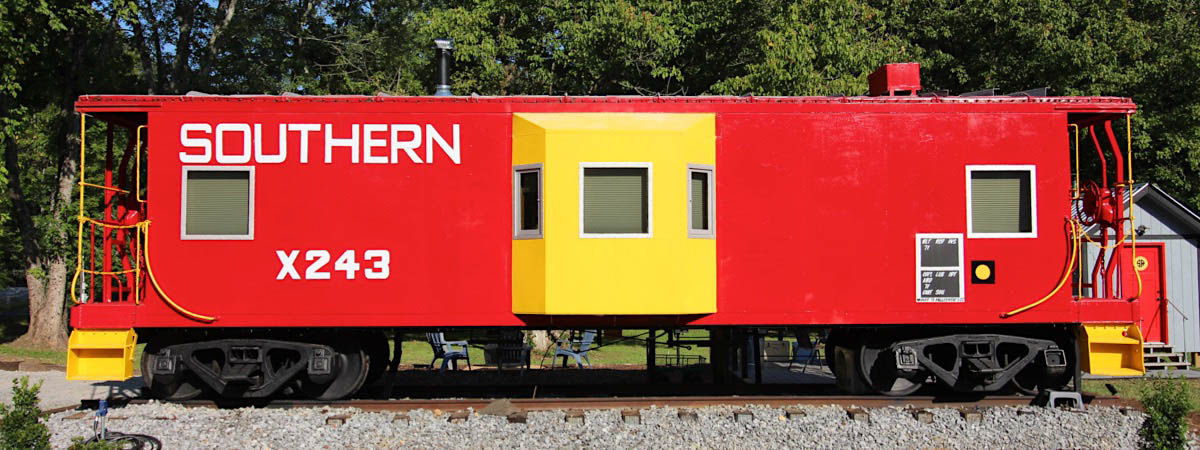
Valley Head, Al / Aug 2024 / RWH
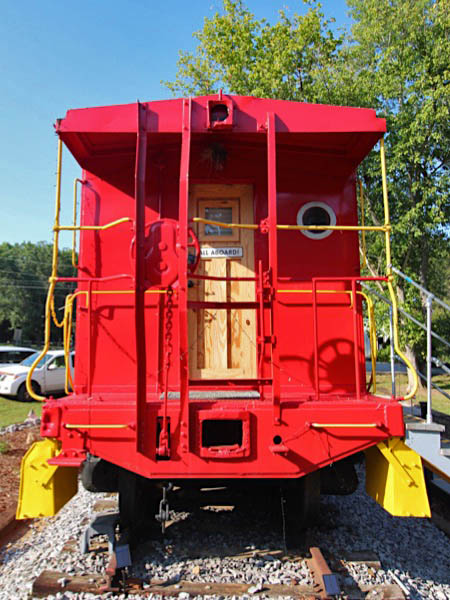
Aug 2024 / RWH
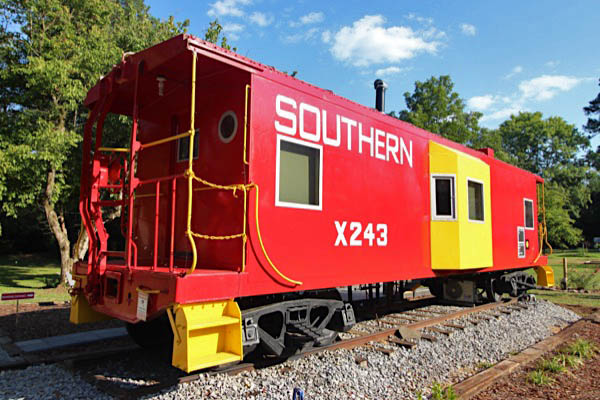
Valley Head, Al / Aug 2024 / RWH
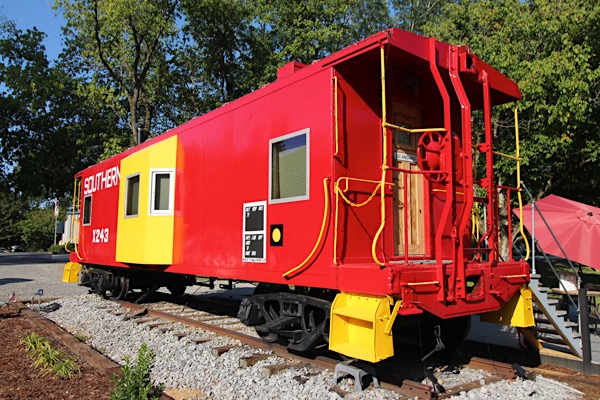
Valley Head, Al / Aug 2024 / RWH

Aug 2024 / RWH
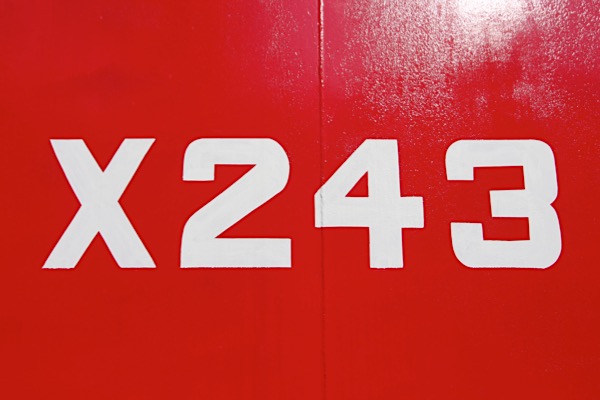
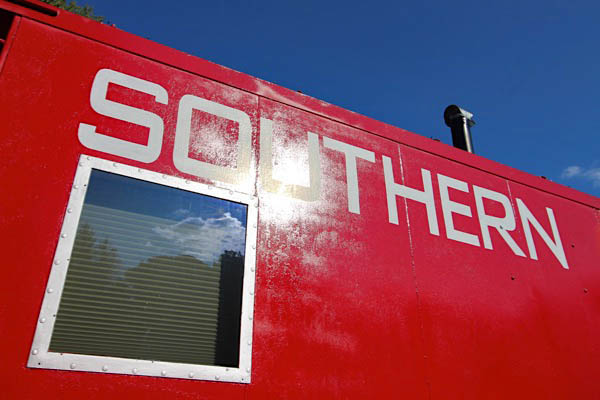
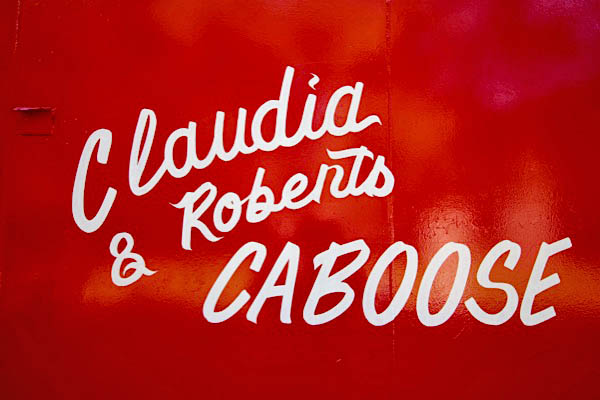
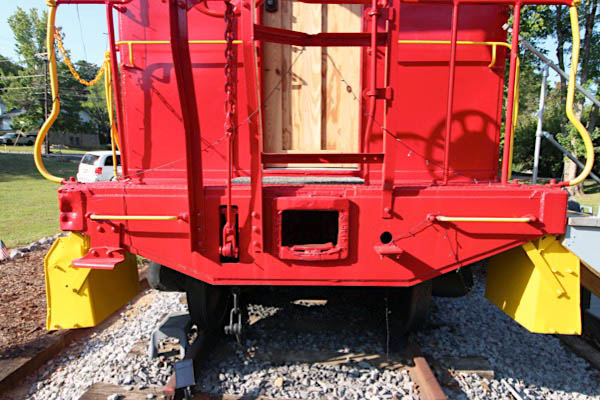
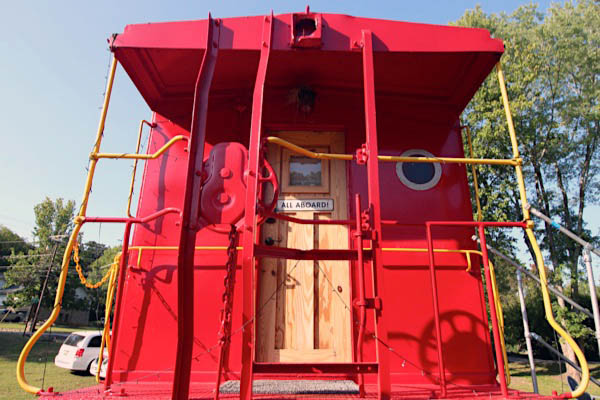
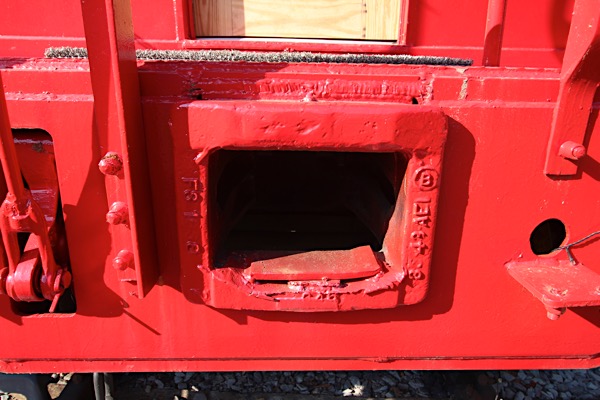
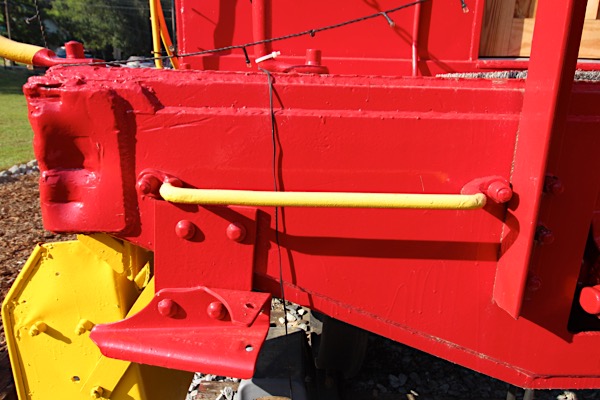
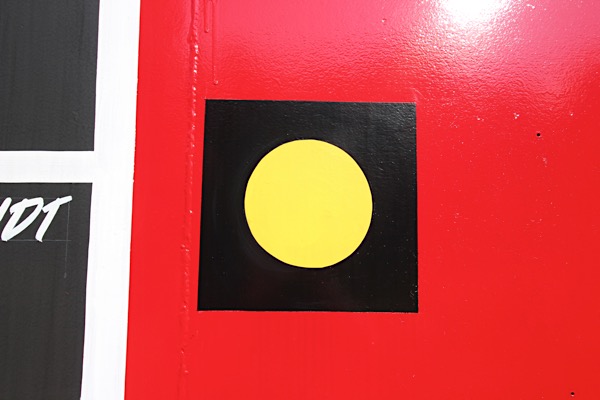
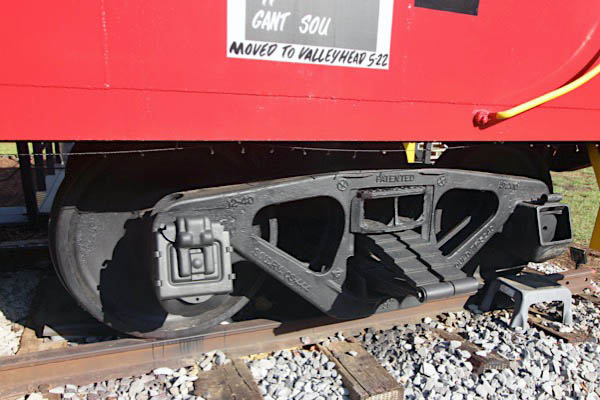
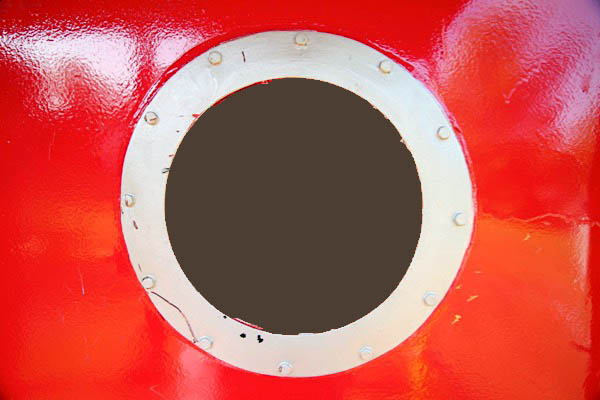
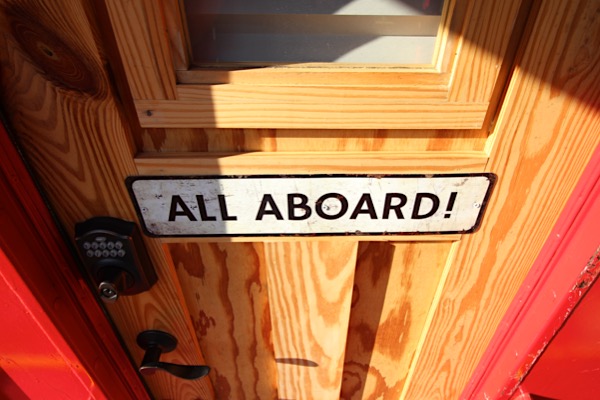
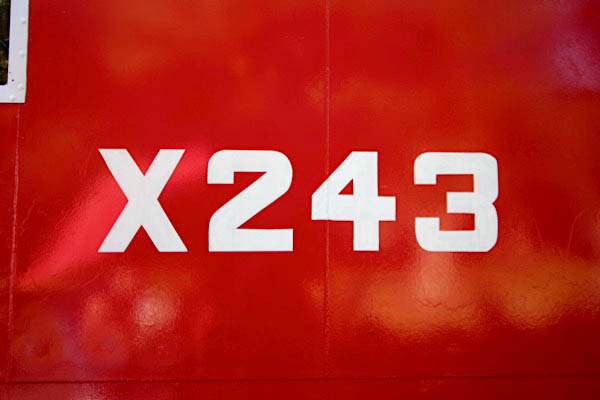
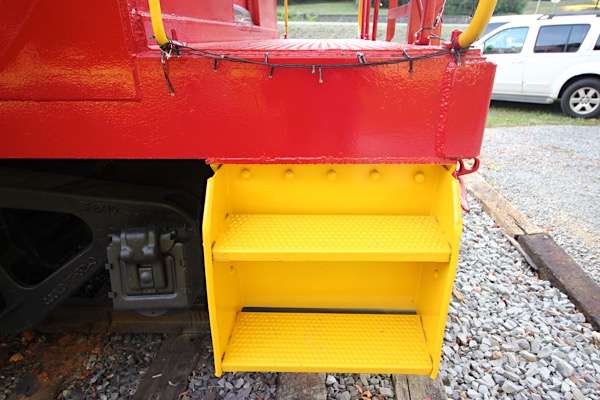
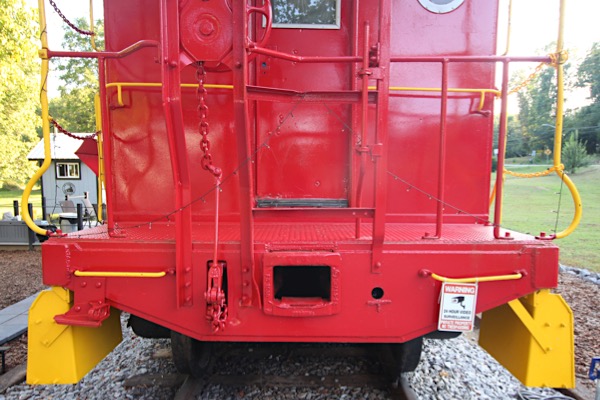
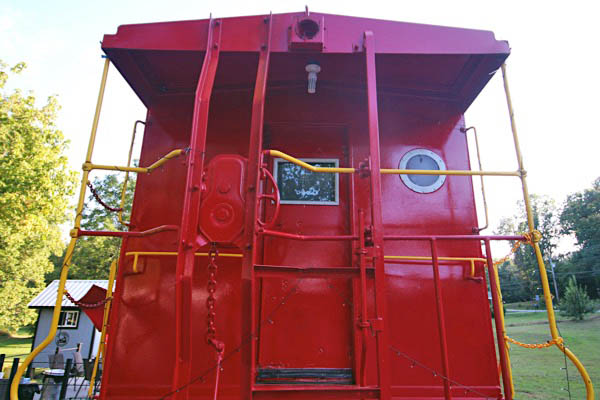
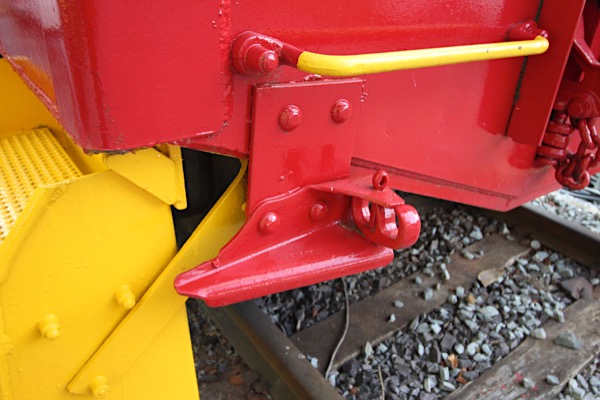
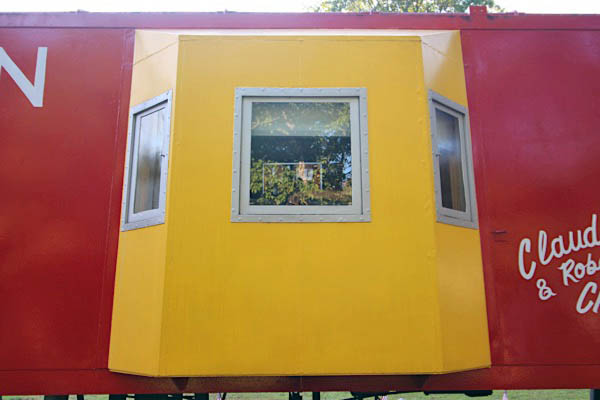
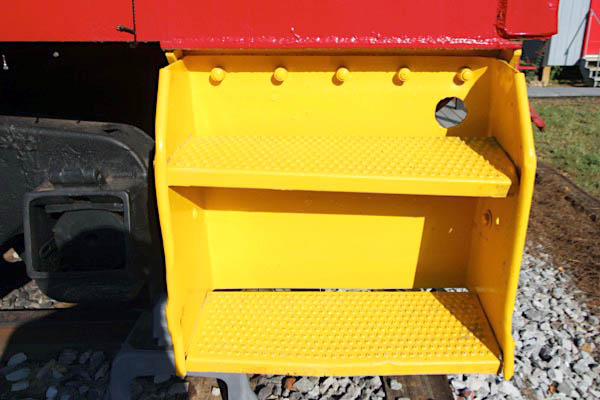
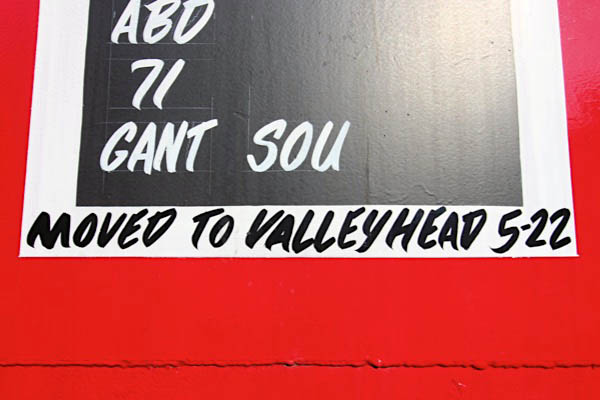
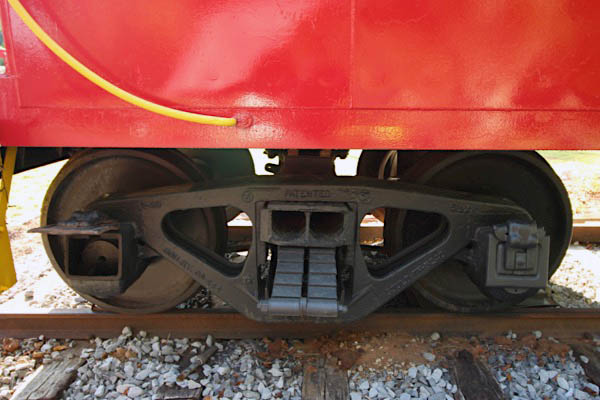
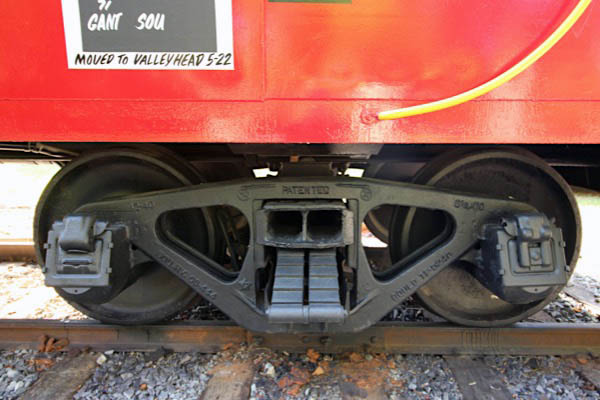
Aug 2024 / RWH
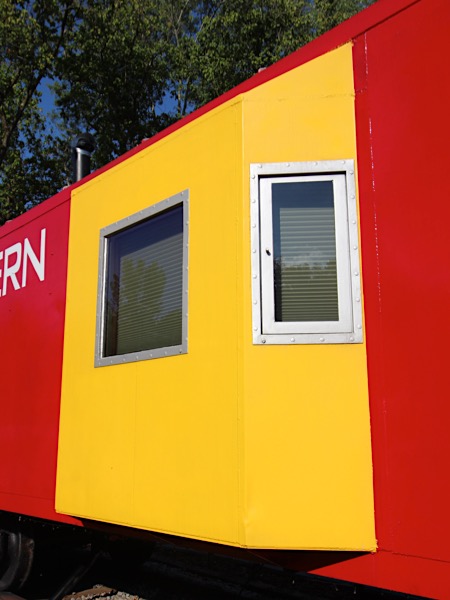
Aug 2024 / RWH
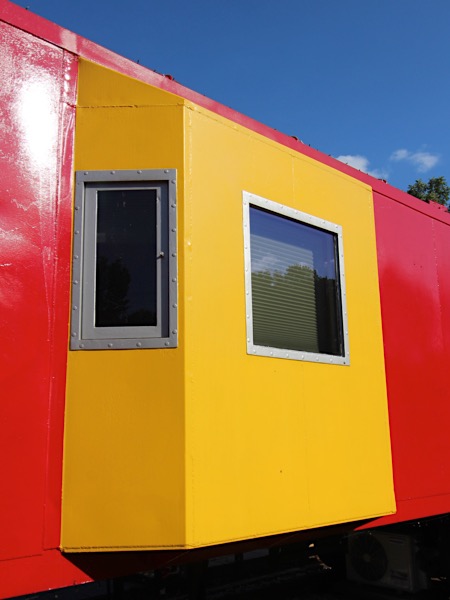
Aug 2024 / RWH
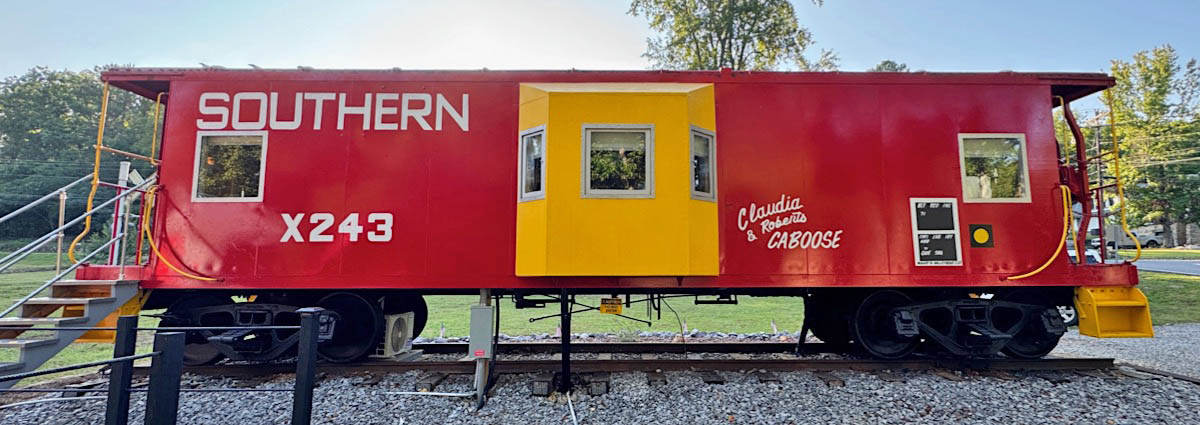
Valley Head, Al / Aug 2024 / RWH
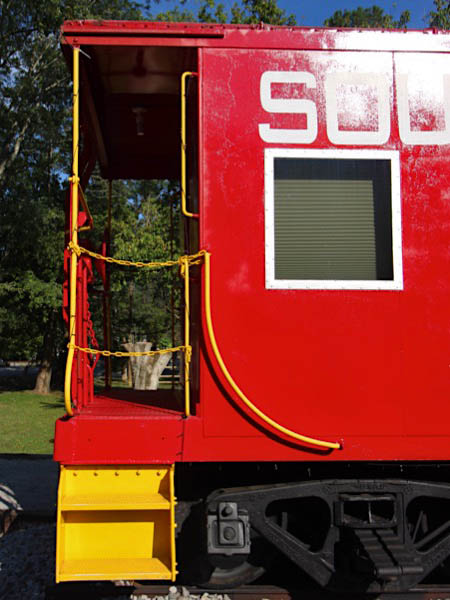
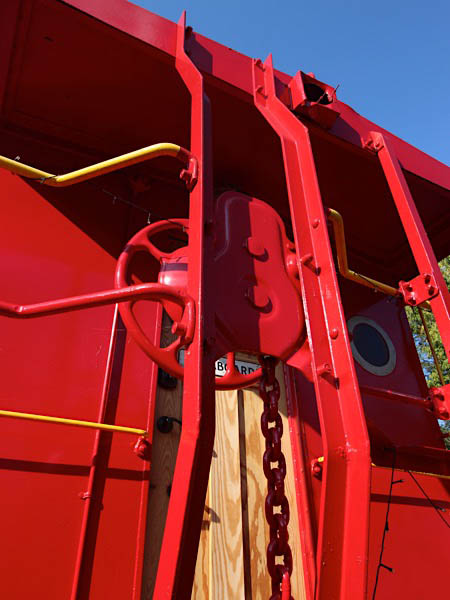
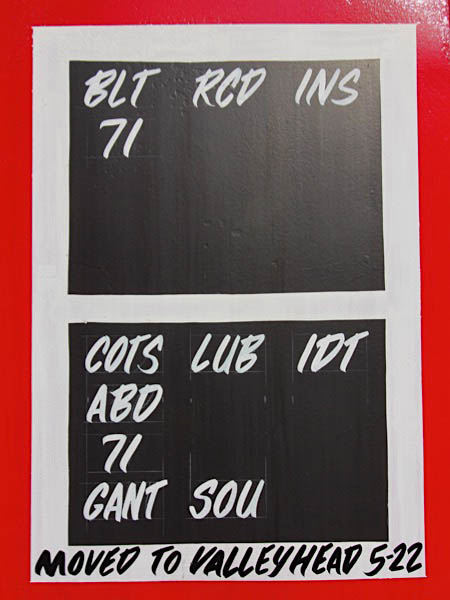
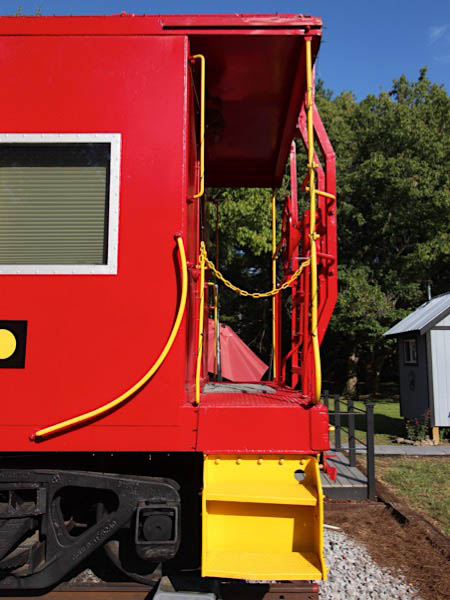
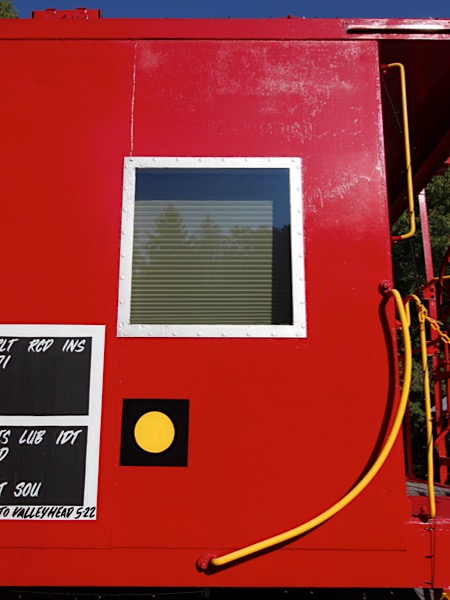
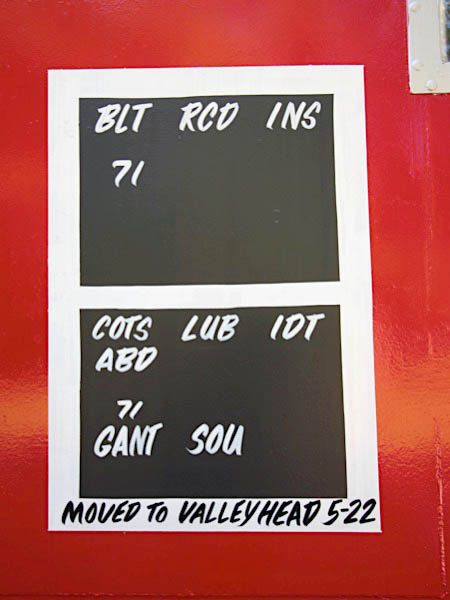
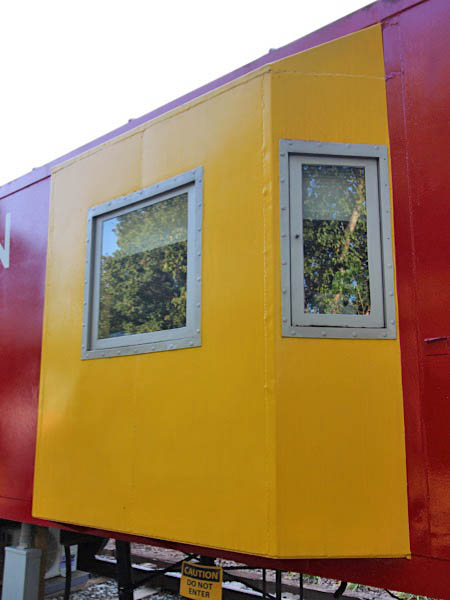
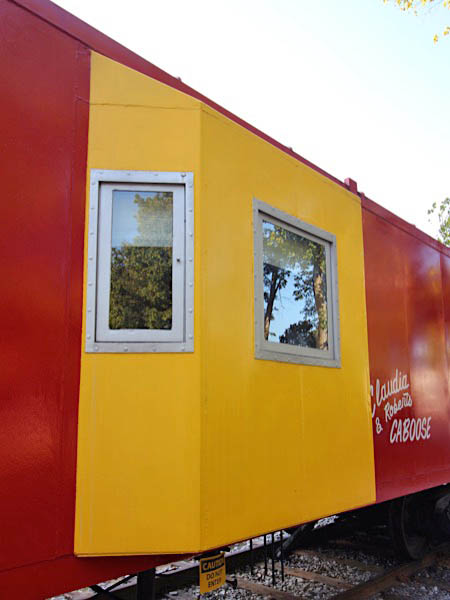
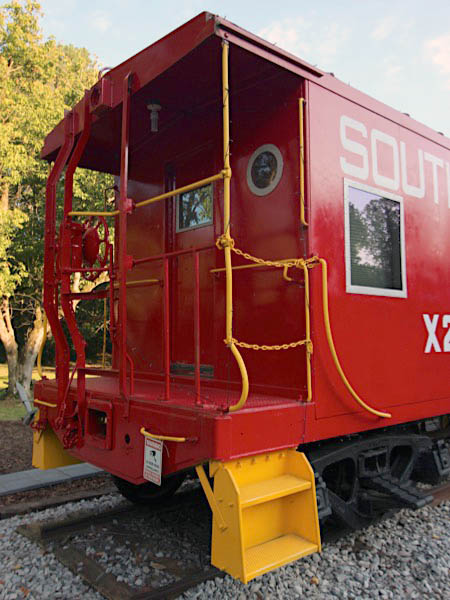
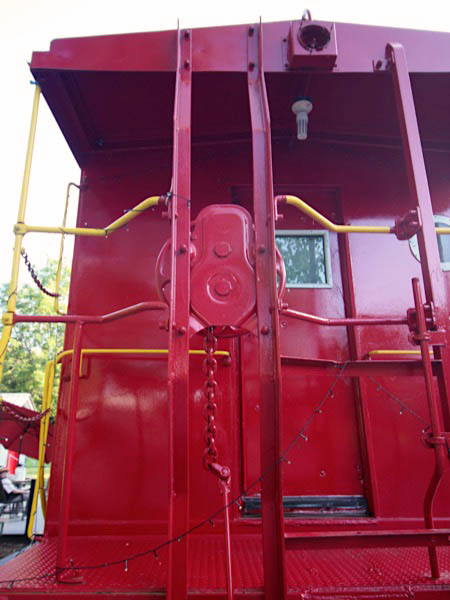
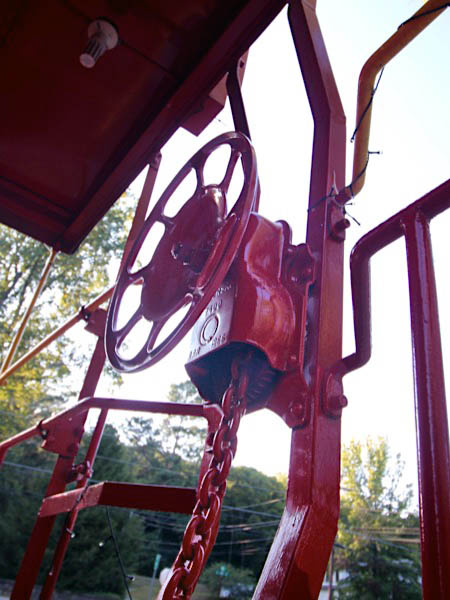
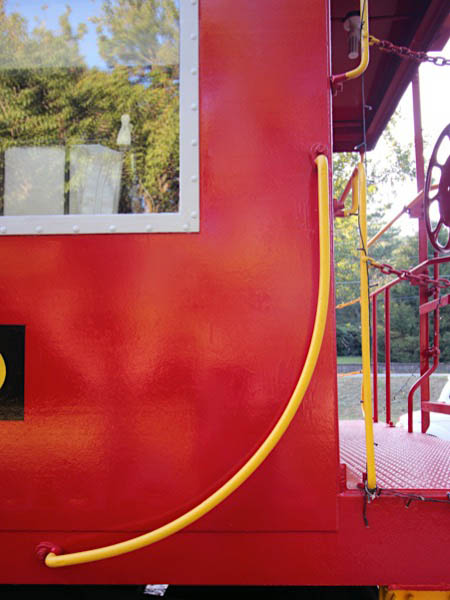
Aug 2024 / RWH
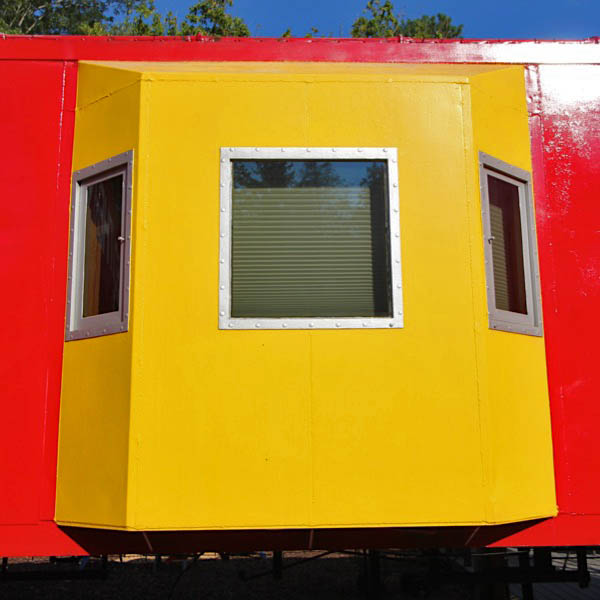
Aug 2024 / RWH
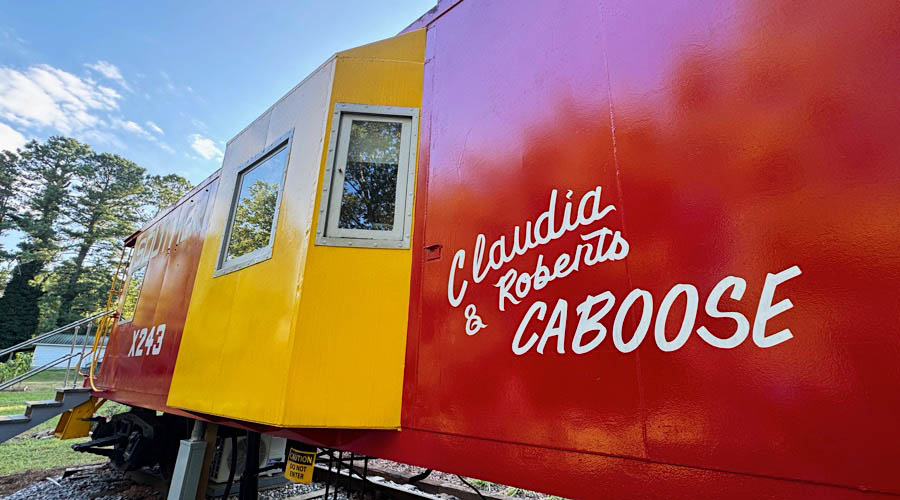
Aug 2024 / RWH
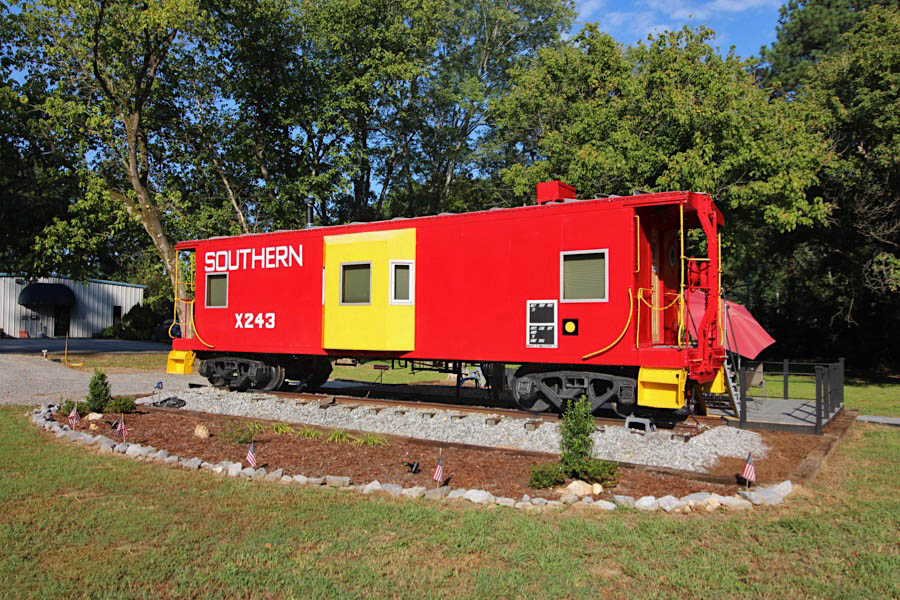
Valley Head, Al / Aug 2024 / RWH
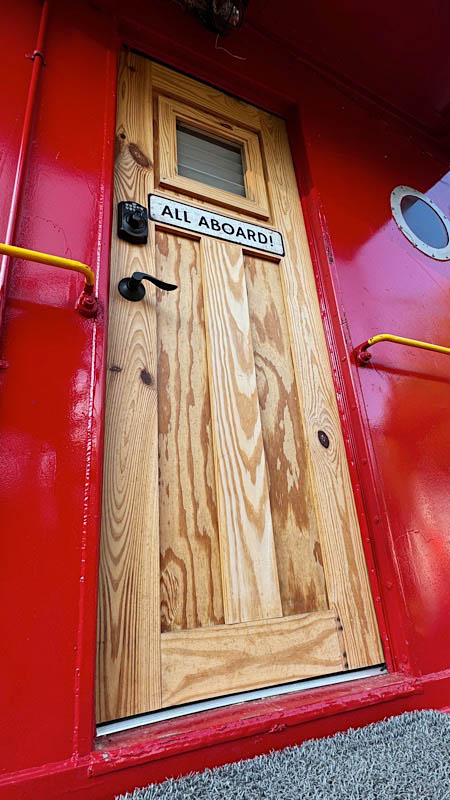
Aug 2024 / RWH
 Claudia's Caboose
Claudia's Caboose

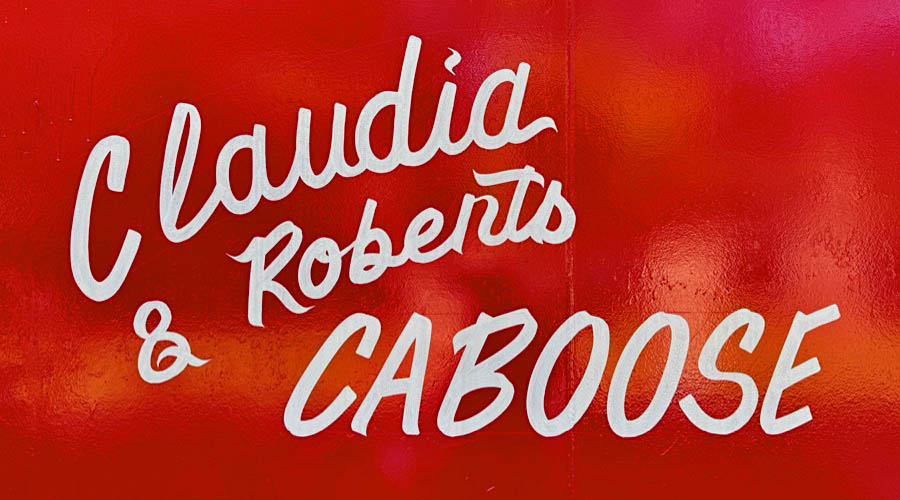
Aug 2024 / RWH

Aug 2024 / RWH
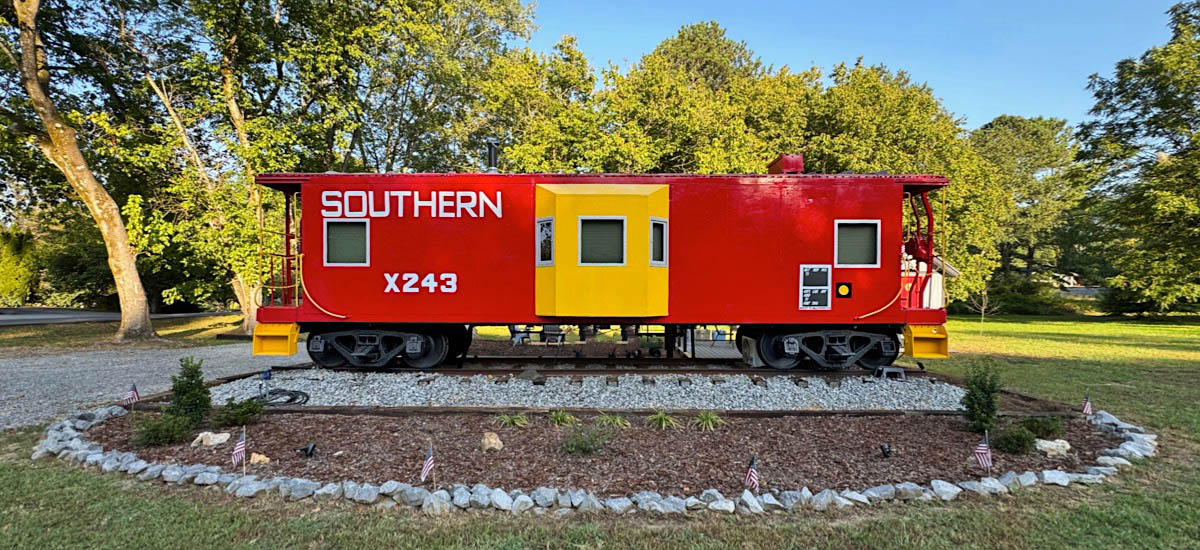
Valley Head, Al / Aug 2024 / RWH
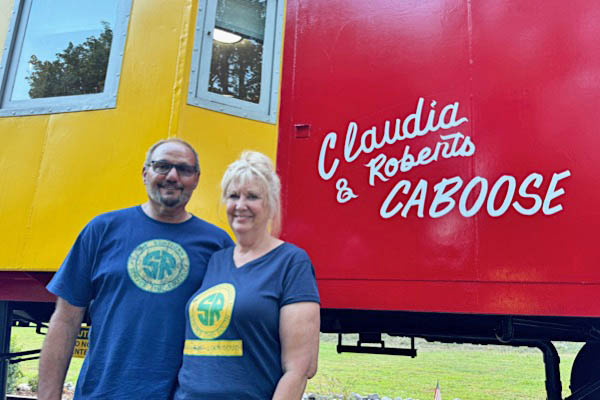
Valley Head, Al / Aug 2024 / RWH
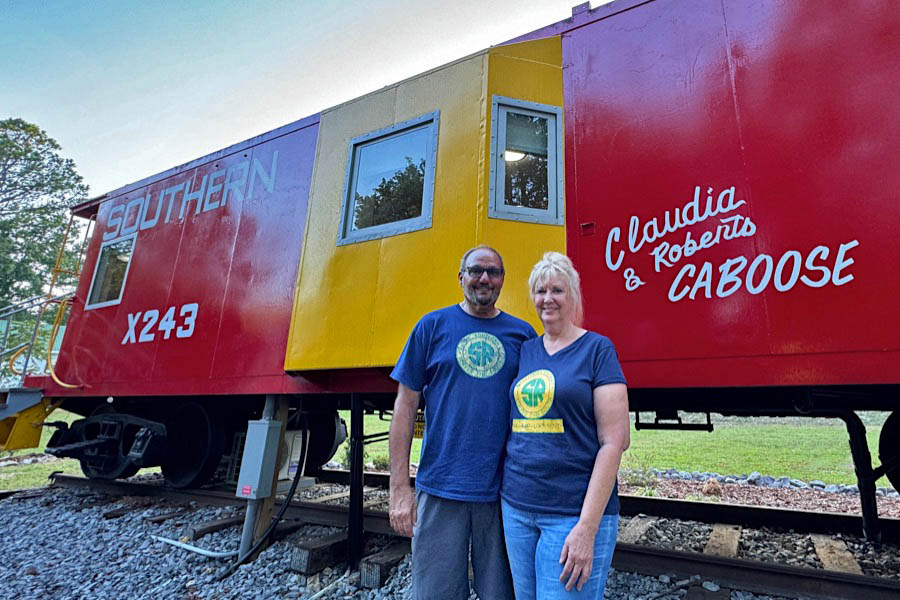
Valley Head, Al / Aug 2024 / RWH

"Moved to Valley Head 5-22"
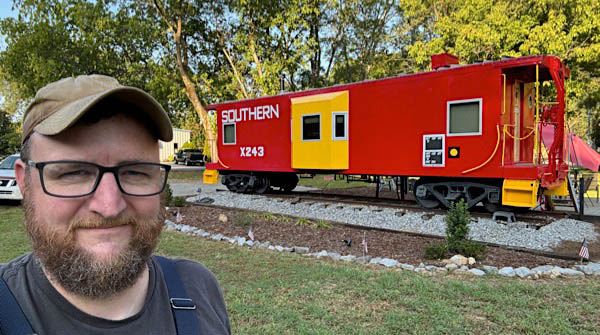 So reads the new technical sheet painted on both sides of X243, and so marks her rescue from decades as a utilitarian campground office — carbody buried in the deep Georgia dirt. Local bay 243 has moved west across the state line, and she's moved uptown, too ... to Valley Head, Alabama. Gone is the camping scene with the wrong carbody color and the black roof someone gave her after retirement; hello to beautiful glossy caboose red with distinguished yellow window bays. And now she's standing tall — no more dirt dwelling — with good rails and ties under her wheels. Inside, there's been a complete makeover: wood paneling and creature comforts, ready to host a whole new season of inhabitants. 243 has Claudia and Robert to thank for her portage west to transformation. Already vacation property owners in Sweet Home Alabama, they found the car up for sale one state over and caught the vision for recasting her as a getaway rental in cozy DeKalb County.
So reads the new technical sheet painted on both sides of X243, and so marks her rescue from decades as a utilitarian campground office — carbody buried in the deep Georgia dirt. Local bay 243 has moved west across the state line, and she's moved uptown, too ... to Valley Head, Alabama. Gone is the camping scene with the wrong carbody color and the black roof someone gave her after retirement; hello to beautiful glossy caboose red with distinguished yellow window bays. And now she's standing tall — no more dirt dwelling — with good rails and ties under her wheels. Inside, there's been a complete makeover: wood paneling and creature comforts, ready to host a whole new season of inhabitants. 243 has Claudia and Robert to thank for her portage west to transformation. Already vacation property owners in Sweet Home Alabama, they found the car up for sale one state over and caught the vision for recasting her as a getaway rental in cozy DeKalb County.
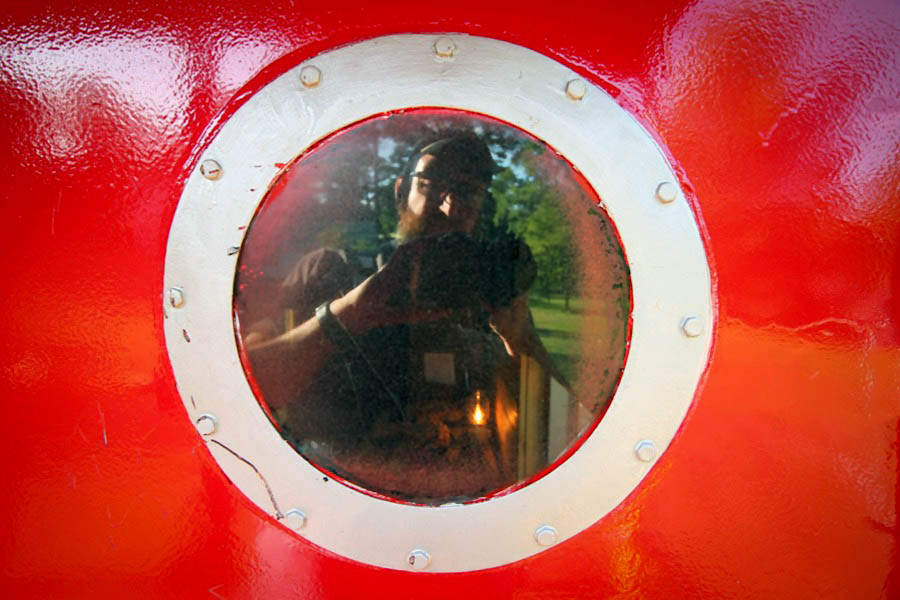 Vision is what a takes, and aplomb: lifting, trucking, moving, lifting again, setting, wiring, plumbing, and altogether resuscitating a Southern bay window is not for the faint of heart. Good news for them, this bay had good bones: a solid steel body with little decay, despite 50 years since rolling off the line at Gantt Manufacturing and notwithstanding a truck swap to friction bearings at some point. That at least gave a good foundation for the glossy makeover. And good news for 243: Claudia and Robert know what they have. They love riding the rails and understand what a treasure a red caboose is nowadays, some 40 years since the Mainlines sent most of them to scrap. No junkyard here along Route 119, however; only the bright colors of the Big Progressive Railroad that had the good sense to mount solar panels on its local cabs, so that its men on the rear of its switching runs could count on lights as they worked all those branches and locals. A block away from 243, Southern successor Norfolk Southern still blasts across School Street all throughout the day, making money on the lovely mainline that Southern always used to connect its Appalachian traffic to the Deeper South. This is Valley Head: where big trains still run, where red cabooses move uptown, and where you can enjoy all the benefits of both. Go spend a night in Claudia and Robert's fine caboose. "Welcome aboard," as they say.
Vision is what a takes, and aplomb: lifting, trucking, moving, lifting again, setting, wiring, plumbing, and altogether resuscitating a Southern bay window is not for the faint of heart. Good news for them, this bay had good bones: a solid steel body with little decay, despite 50 years since rolling off the line at Gantt Manufacturing and notwithstanding a truck swap to friction bearings at some point. That at least gave a good foundation for the glossy makeover. And good news for 243: Claudia and Robert know what they have. They love riding the rails and understand what a treasure a red caboose is nowadays, some 40 years since the Mainlines sent most of them to scrap. No junkyard here along Route 119, however; only the bright colors of the Big Progressive Railroad that had the good sense to mount solar panels on its local cabs, so that its men on the rear of its switching runs could count on lights as they worked all those branches and locals. A block away from 243, Southern successor Norfolk Southern still blasts across School Street all throughout the day, making money on the lovely mainline that Southern always used to connect its Appalachian traffic to the Deeper South. This is Valley Head: where big trains still run, where red cabooses move uptown, and where you can enjoy all the benefits of both. Go spend a night in Claudia and Robert's fine caboose. "Welcome aboard," as they say.
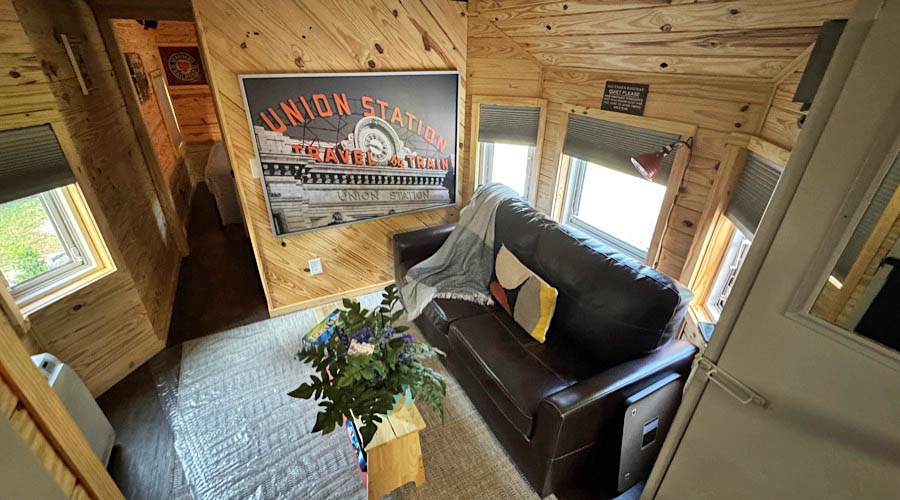
Aug 2024 / RWH
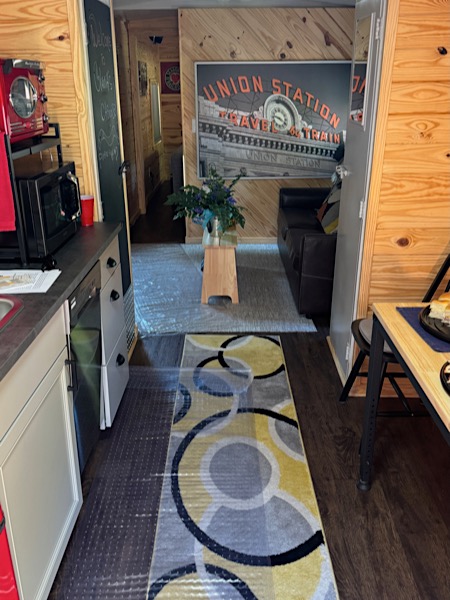
Aug 2024 / RWH
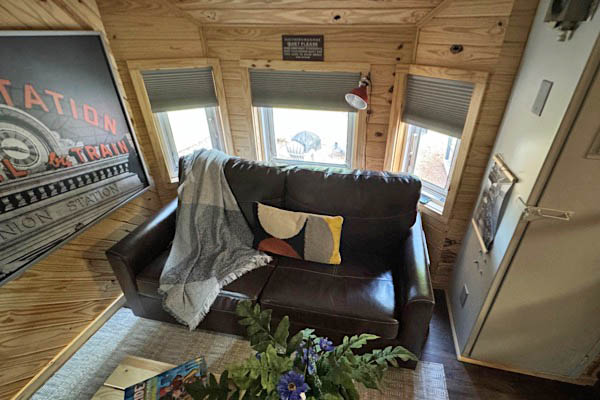
Aug 2024 / RWH
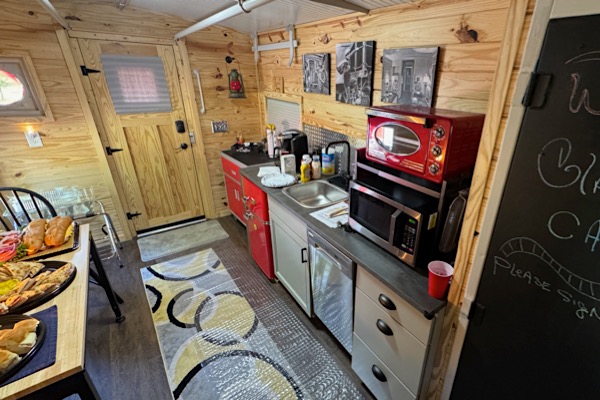
Aug 2024 / RWH
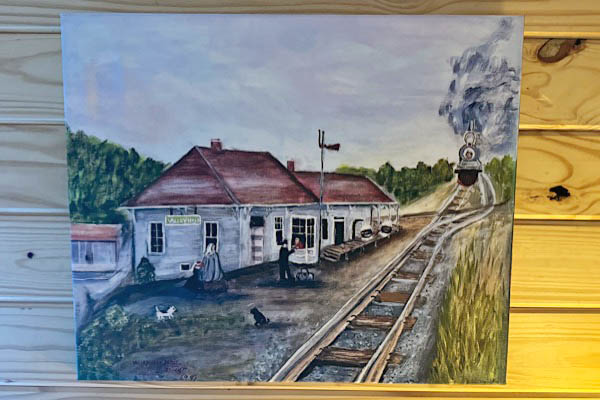
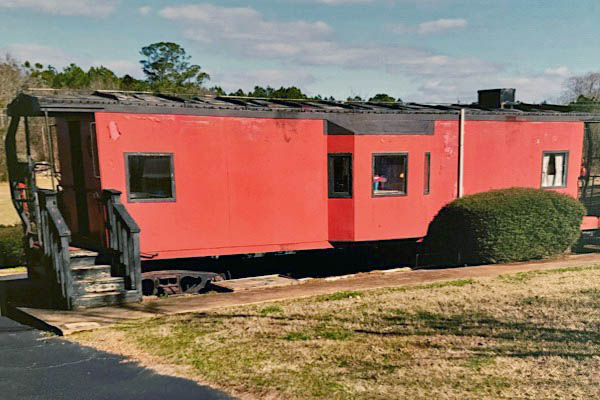
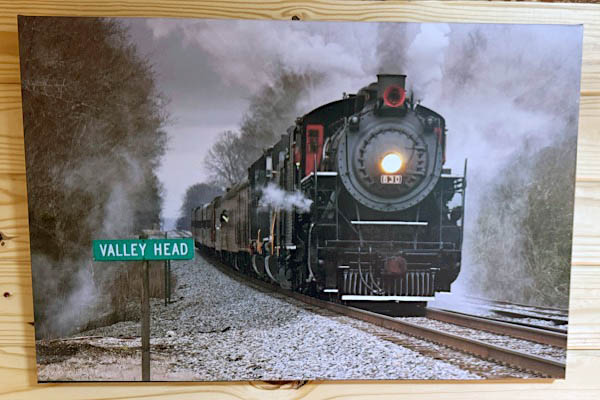
Aug 2024 / RWH
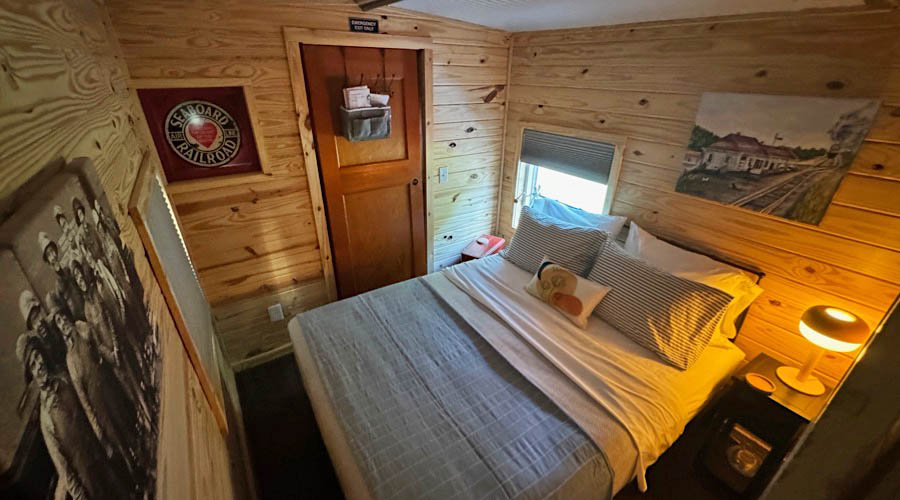
Aug 2024 / RWH
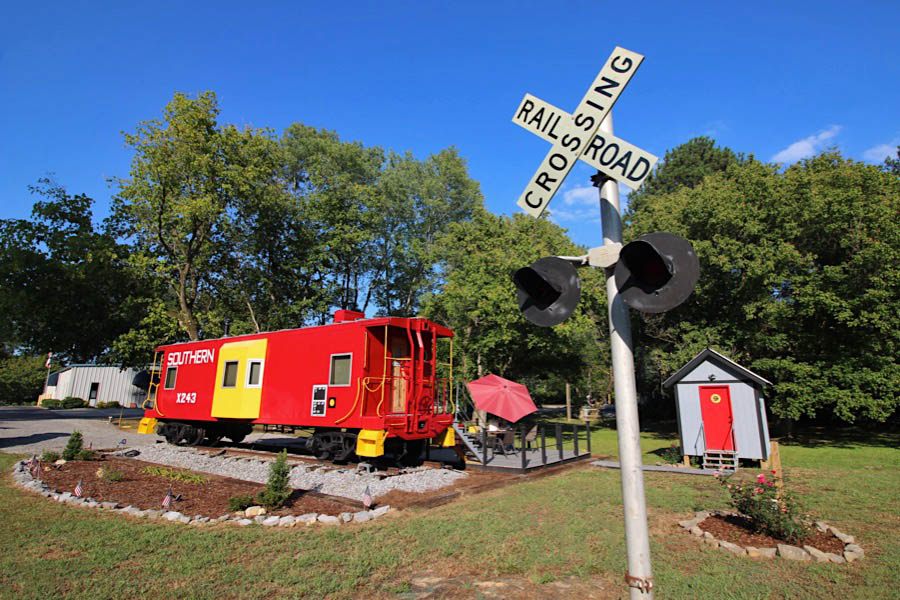
Valley Head, Al / Aug 2024 / RWH
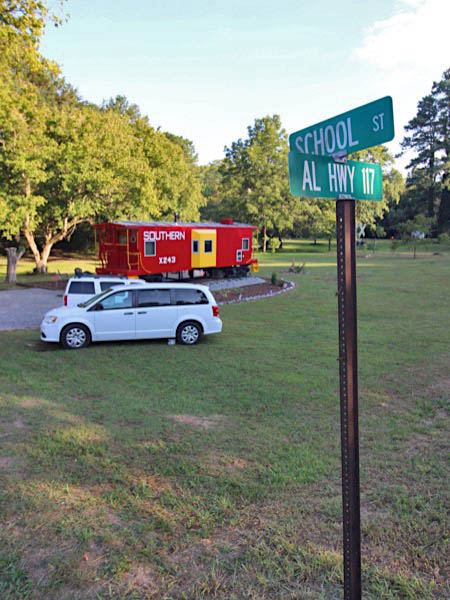
Aug 2024 / RWH
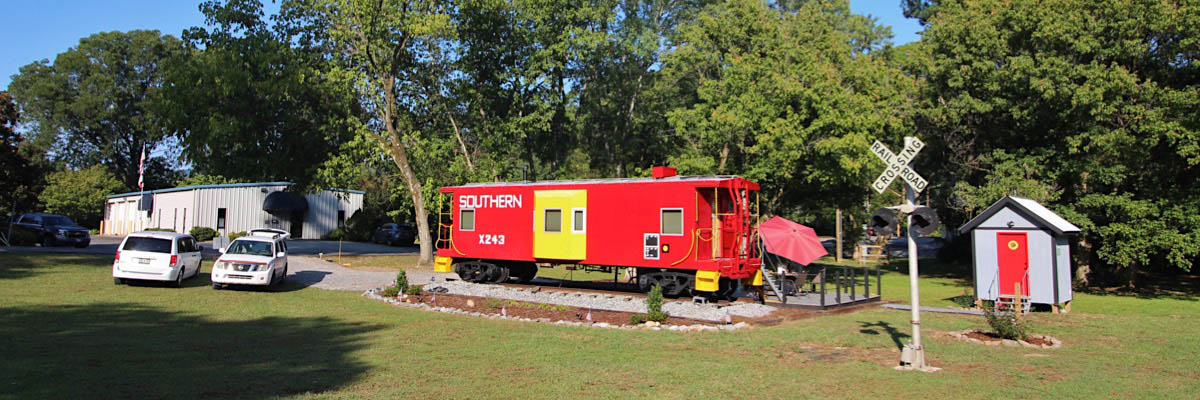
Valley Head, Al / Aug 2024 / RWH
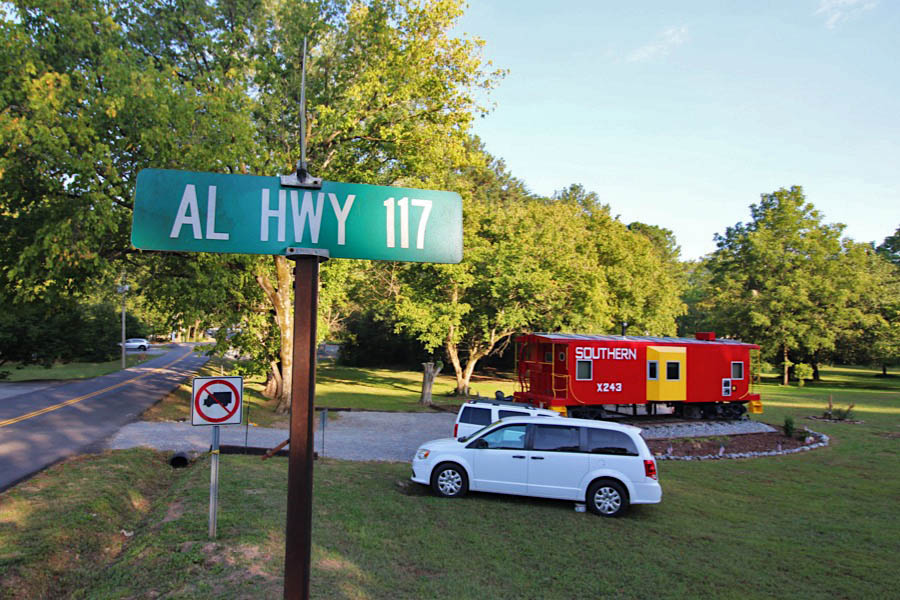
Valley Head, Al / Aug 2024 / RWH
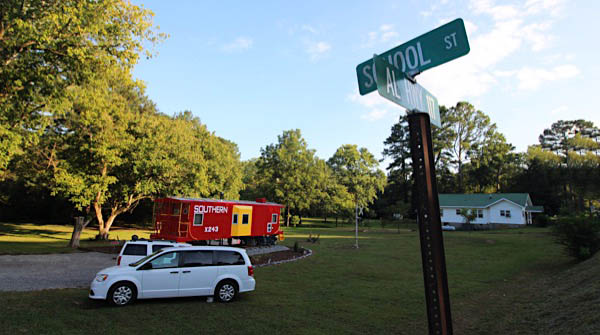
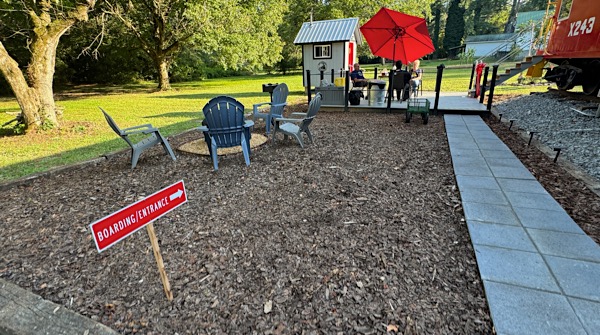
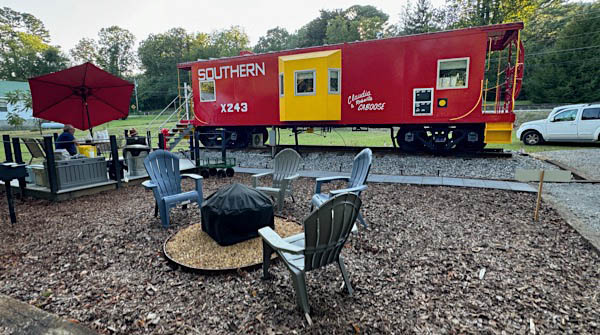
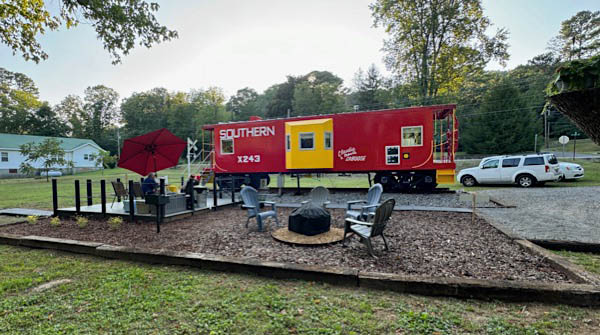
Valley Head, Al / Aug 2024 / RWH
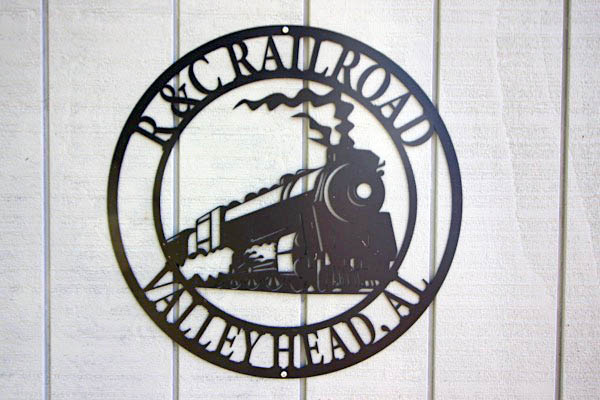
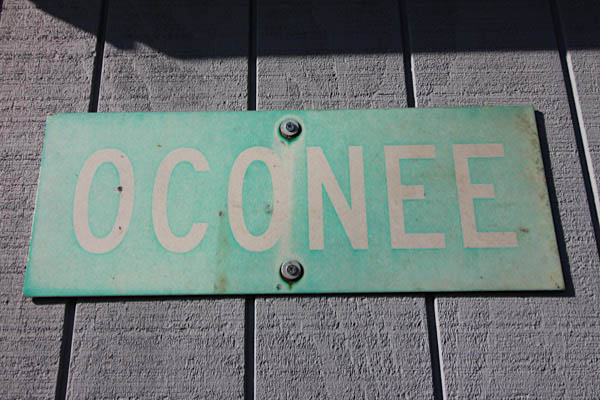
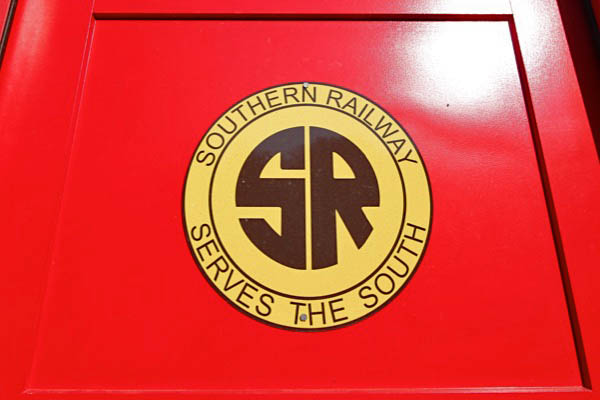
Aug 2024 / RWH
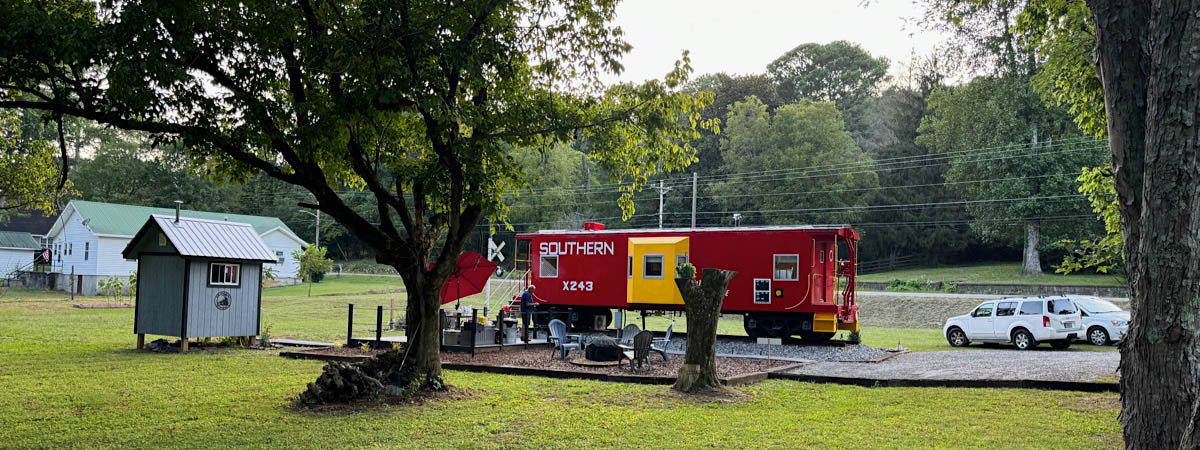
Valley Head, Al / Aug 2024 / RWH
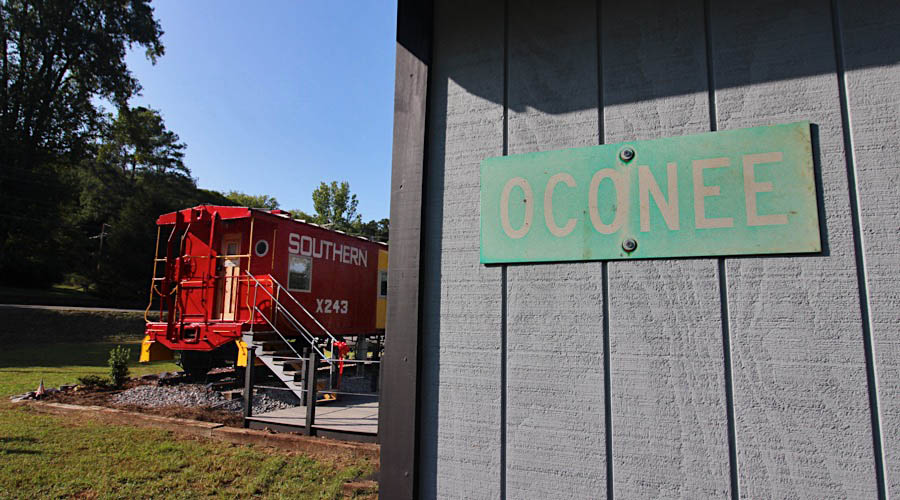
Valley Head, Al / Aug 2024 / RWH
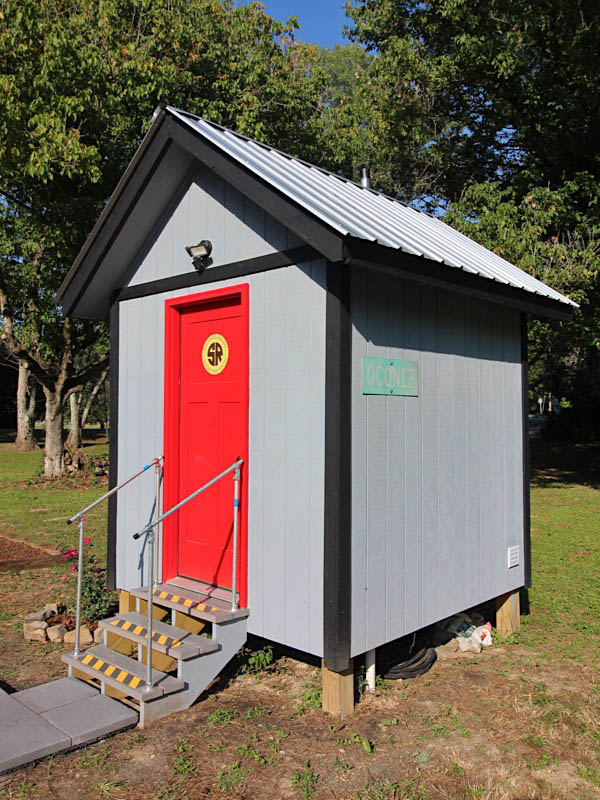
Aug 2024 / RWH
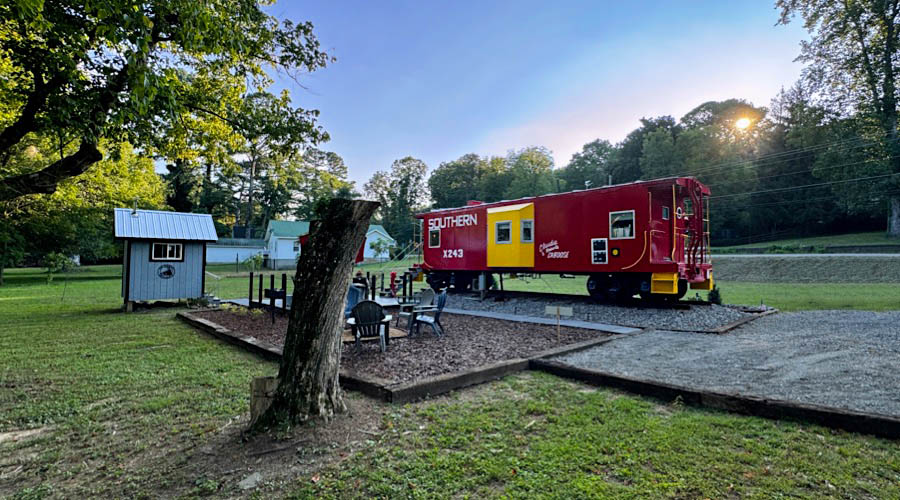
Valley Head, Al / Aug 2024 / RWH

Check out Mountain Wood Cottages to see more information about Claudia's Caboose
 Article
Article
Retired Caboose Up and Renting in Valley Head
September 17, 2024
A recent open-house and ribbon cutting showcased a unique property — Claudia’s Caboose.
It is a railroad car newly renovated to serve as a guest lodging rental property.
The caboose is located in Valley Head between the main thoroughfare (Highway 117) and the active train track that runs through Valley Head. The owners of the caboose are Robert and Claudia Pike.
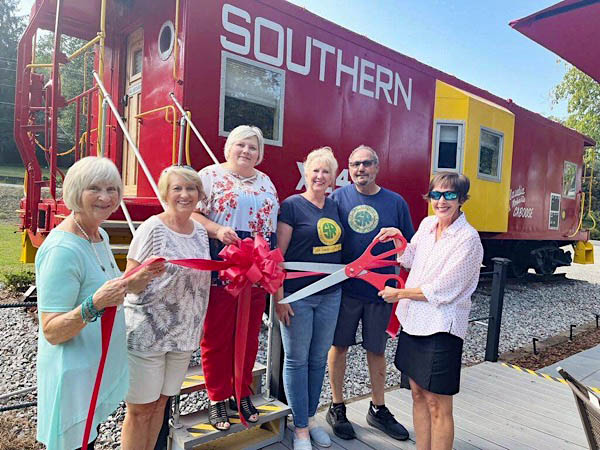 When cabooses were built, they were given an identification number. Based on the number on Claudia’s Caboose, it is the sister caboose (built approximately at the same time) to the one that resides at the Fort Payne Depot. Claudia’s Caboose was found in Georgia and traveled by truck hauler over the Interstate system and through Collinsville to its current home.
When cabooses were built, they were given an identification number. Based on the number on Claudia’s Caboose, it is the sister caboose (built approximately at the same time) to the one that resides at the Fort Payne Depot. Claudia’s Caboose was found in Georgia and traveled by truck hauler over the Interstate system and through Collinsville to its current home.
Claudia’s fascination with trains began when she was just a youngster. “My cousins and I would jump on a boxcar and ride a little bit and then walk back home when I grew up in Corinth, Mississippi,” said Pike. “We also played ‘damsel in distress’ with our Barbie dolls, mimicking what we saw on the ‘Rocky and Bullwinkle Show.”’
When Pike found out her husband had never ridden on a train they booked a vacation rental caboose in Georgia. “He loved it and the idea was hatched to purchase our own,” said Pike. The process was a huge undertaking and took over two-years to complete. The Pike’s caboose was built in 1971 and is known as a yellow-belly, because it stayed close to Alabama and did not travel across the country.
The caboose the Pikes purchased was moved to Valley Head and placed on a small section of train track by a crane. “Just getting the train track level and placed on built-up ground was a project on its own,” said Pike. “Then the caboose had to be gutted and restored. We decorated in midcentury, industrial style to reflect the era when the caboose was in service. We still maintained some of the original features of a working caboose.”
The 290 square-foot carriage offers a mini-fridge, dishwasher, toaster oven/air fryer, microwave, coffee bar, small dinette, bedroom with queen-sized bed, full-sized sleeper sofa in the living room, 32-inch smart television, heat and air, indoor restroom and shower, train memorabilia, and all the charm of yesteryear.
Cabooses were used on every freight train in the United States and Canada until the 1980s when the Staggers Rail Act deregulated the American railroad industry and replaced the regulatory structure that had existed since the Interstate Commerce Act of 1887. When the safety laws were relaxed train companies decided it was more cost efficient to eliminate the caboose and the five or so employees who rode in the caboose. Currently there are only about 150 cabooses still in existence, making the experience of staying in one a special treat.
“When cabooses were no longer required, Southern Railway found themselves with hundreds of them and many were donated to museums, sold or donated to municipalities, and some were sold into private hands like the one in Valley Head,” said Ralph Hawkins. Hawkins has a web scrapbook featuring 75 years of railroad photography, shared by three generations of Hawkinses (his deceased father, himself, and now his adult daughter). Hawkins found Claudia’s Caboose on Facebook. He shares his train memorabilia finds on Facebook and on his website hawkinsrails.net. The sites highlight locomotives, lines, and locations across the southern and eastern United States. Claudia’s Caboose was posted on his Facebook page on Aug. 28.
The main purpose of a caboose was to allow train personnel to observe any problems at the rear of the train before uncontrollable trouble occurred. Lineside defect detectors and end-of-train devices eliminated much of this need. The caboose also served as the conductor’s office, and on longer routes served as sleeping accommodations for train employees. The caboose crew could watch for load shifting and look for overheating and potential fire. Older freight cars had plain bearings with hot boxes (overheated axle bearings, a serious fire and derailment threat). The crew was able to spot the problem by either watching from a cupola (crow’s nest) or out of bay windows on the sides of the caboose. The bay window cabooses gained favor with many railroads because it eliminated the need for additional clearance in tunnels and overpasses the way a cupola needed. Claudia’s Caboose has bay windows on each side. Claudia’s Caboose is now taking bookings.
Marla Ballard / Times-Journal
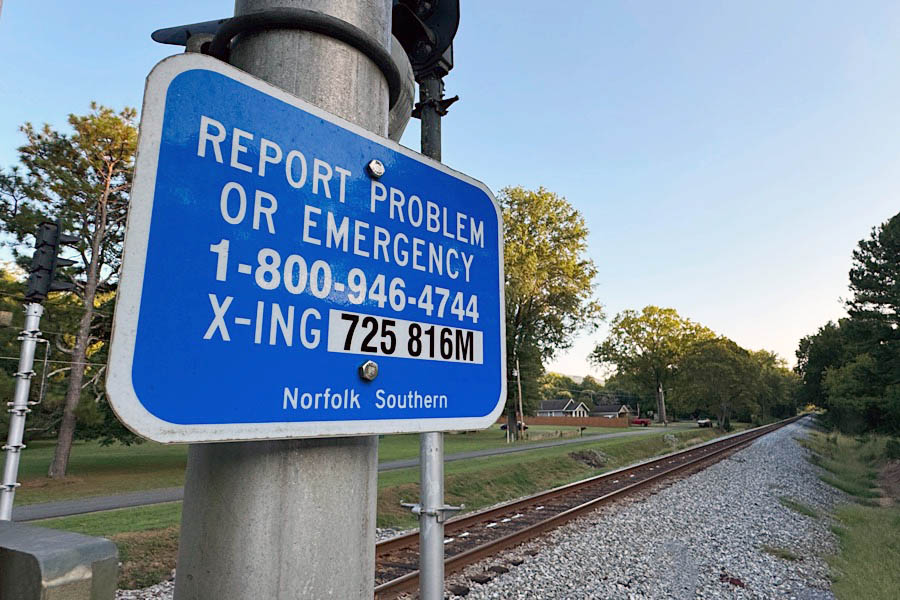
Valley Head, Al / Aug 2024 / RWH
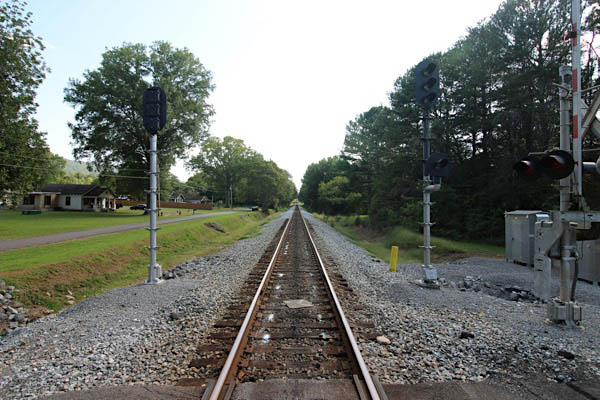
Valley Head, Al / Aug 2024 / RWH
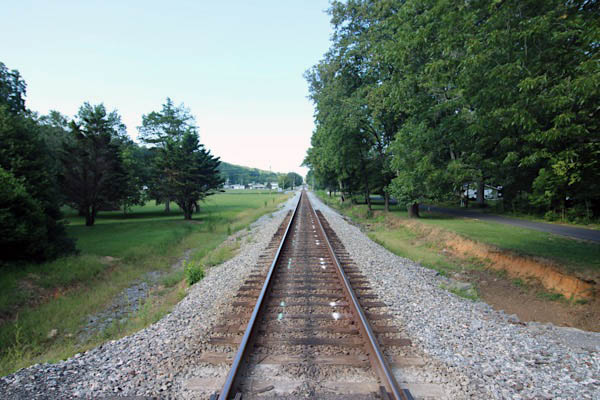
Valley Head, Al / Aug 2024 / RWH
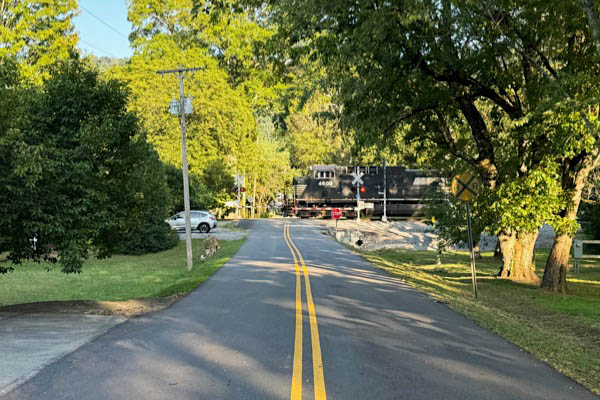
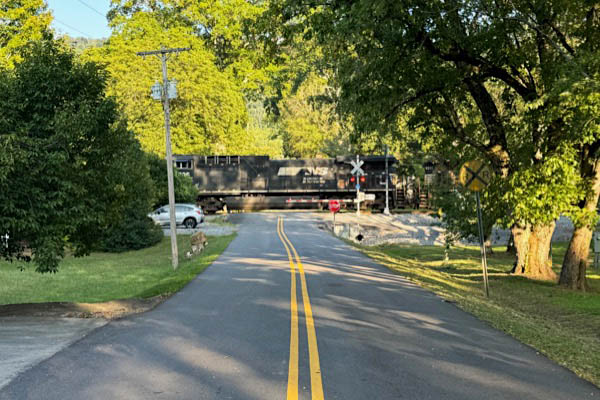
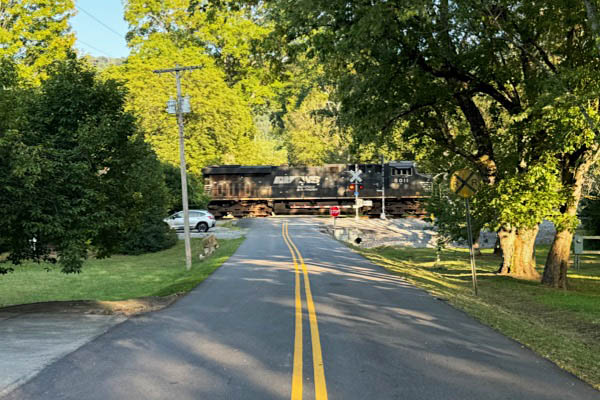
Valley Head, Al / Aug 2024 / RWH
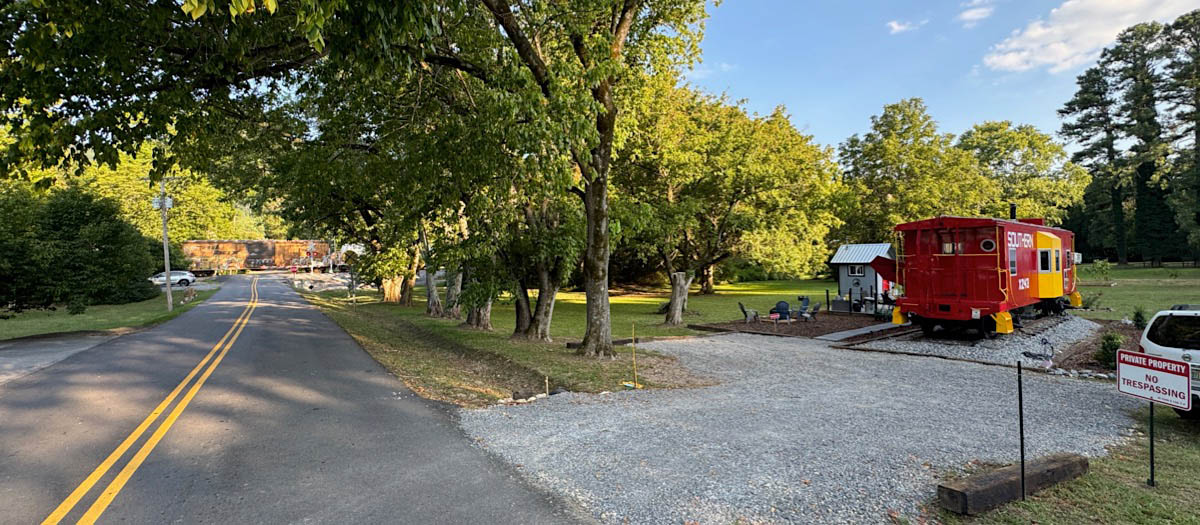
Valley Head, Al / Aug 2024 / RWH
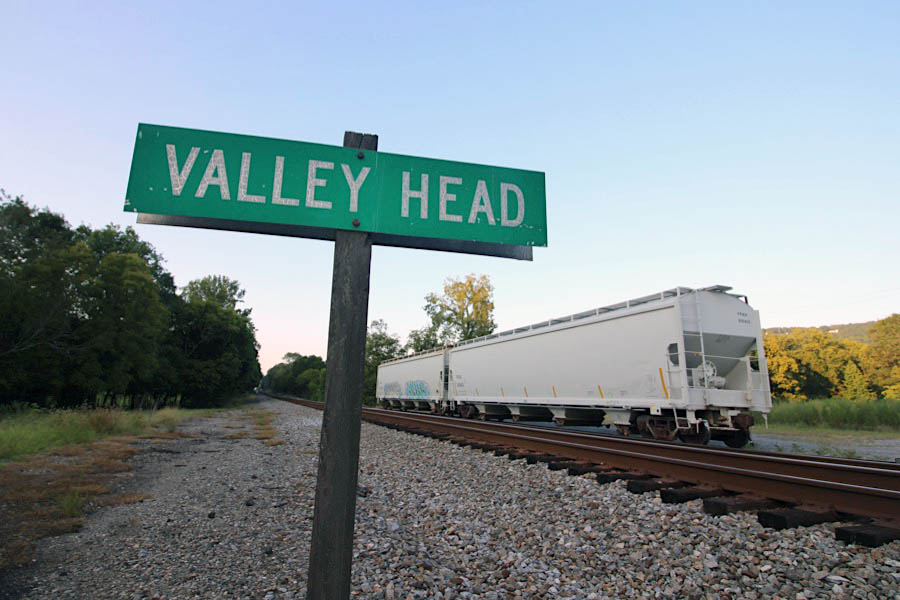
Valley Head, Al / Aug 2024 / RWH
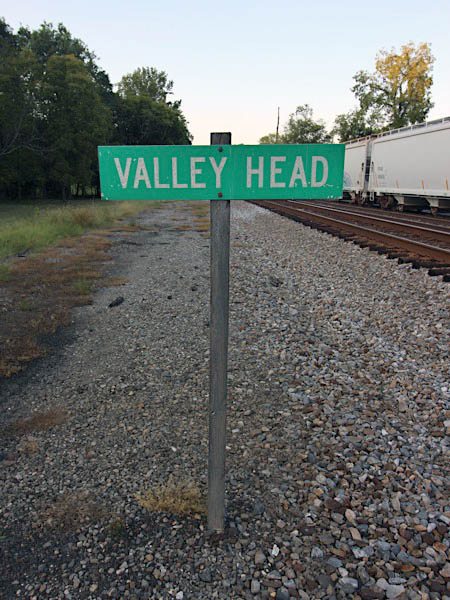
Aug 2024 / RWH
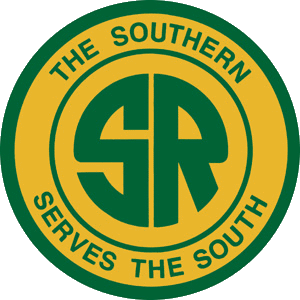
 Surviving Southern Bay Windows in Alabama
Surviving Southern Bay Windows in Alabama
